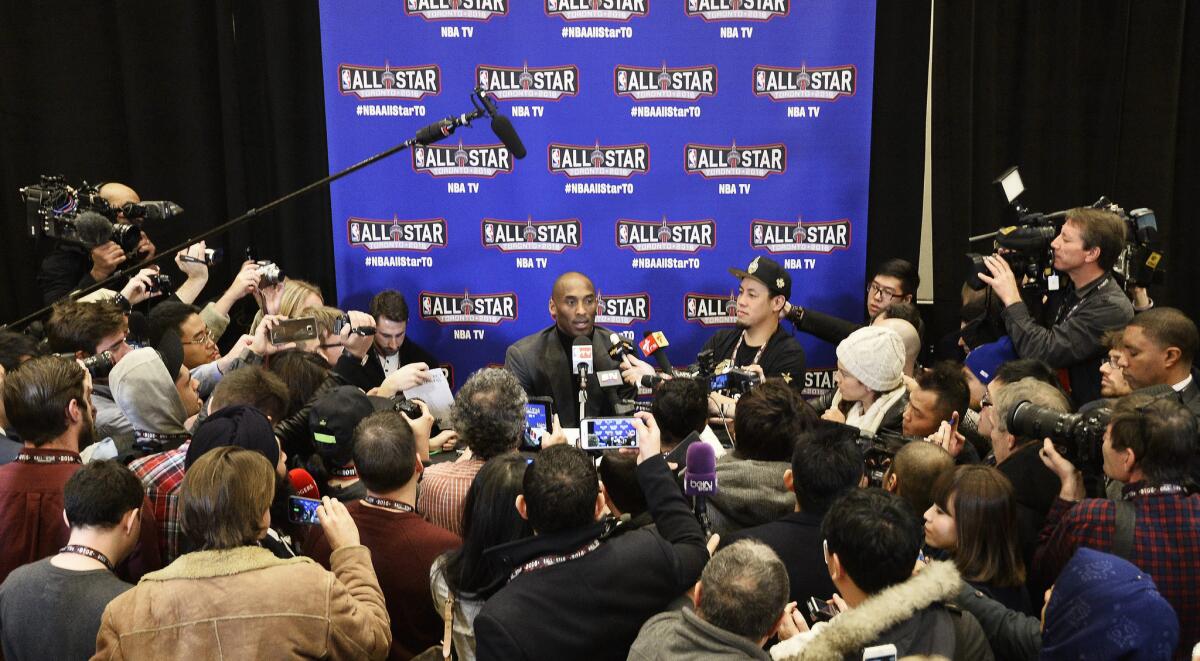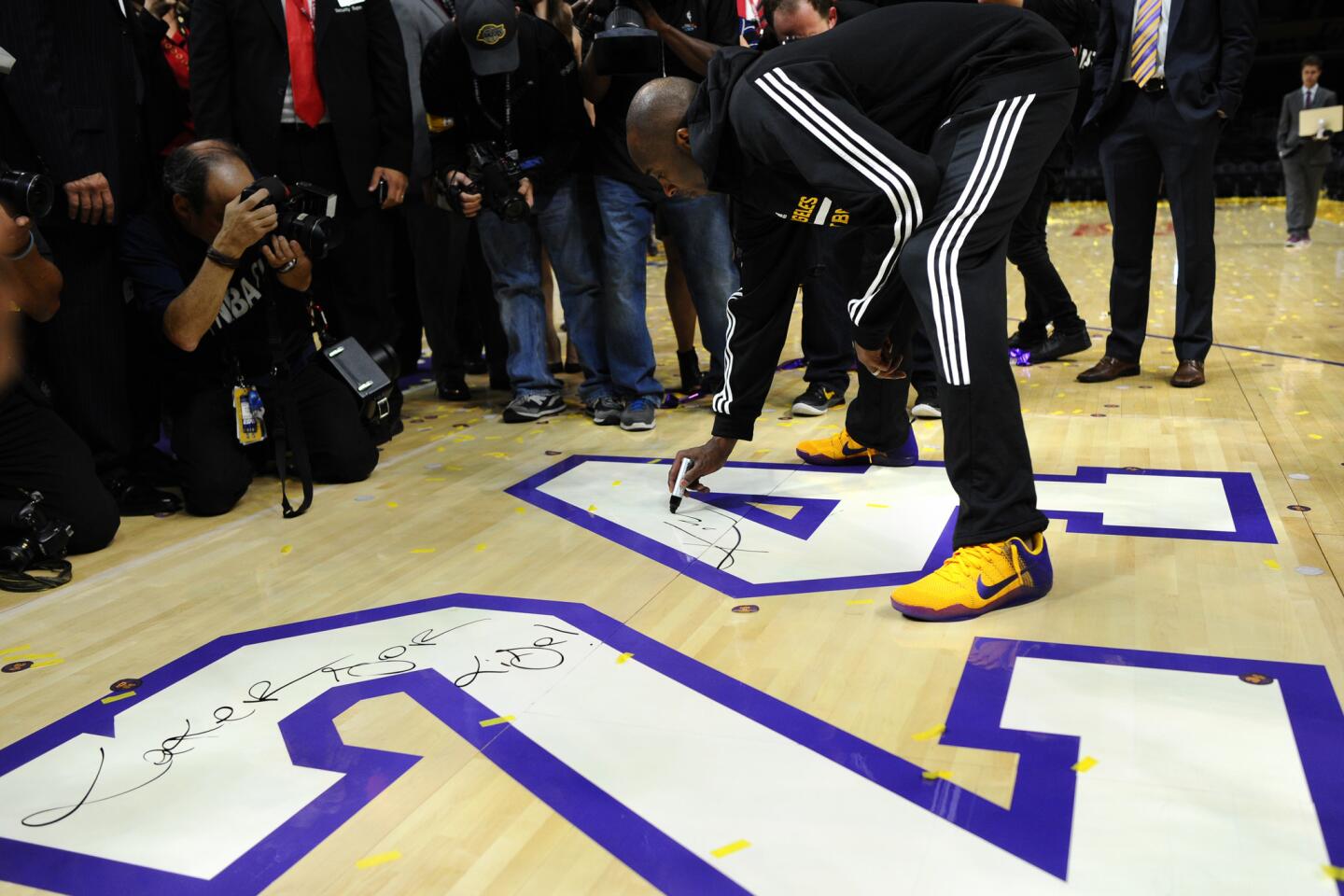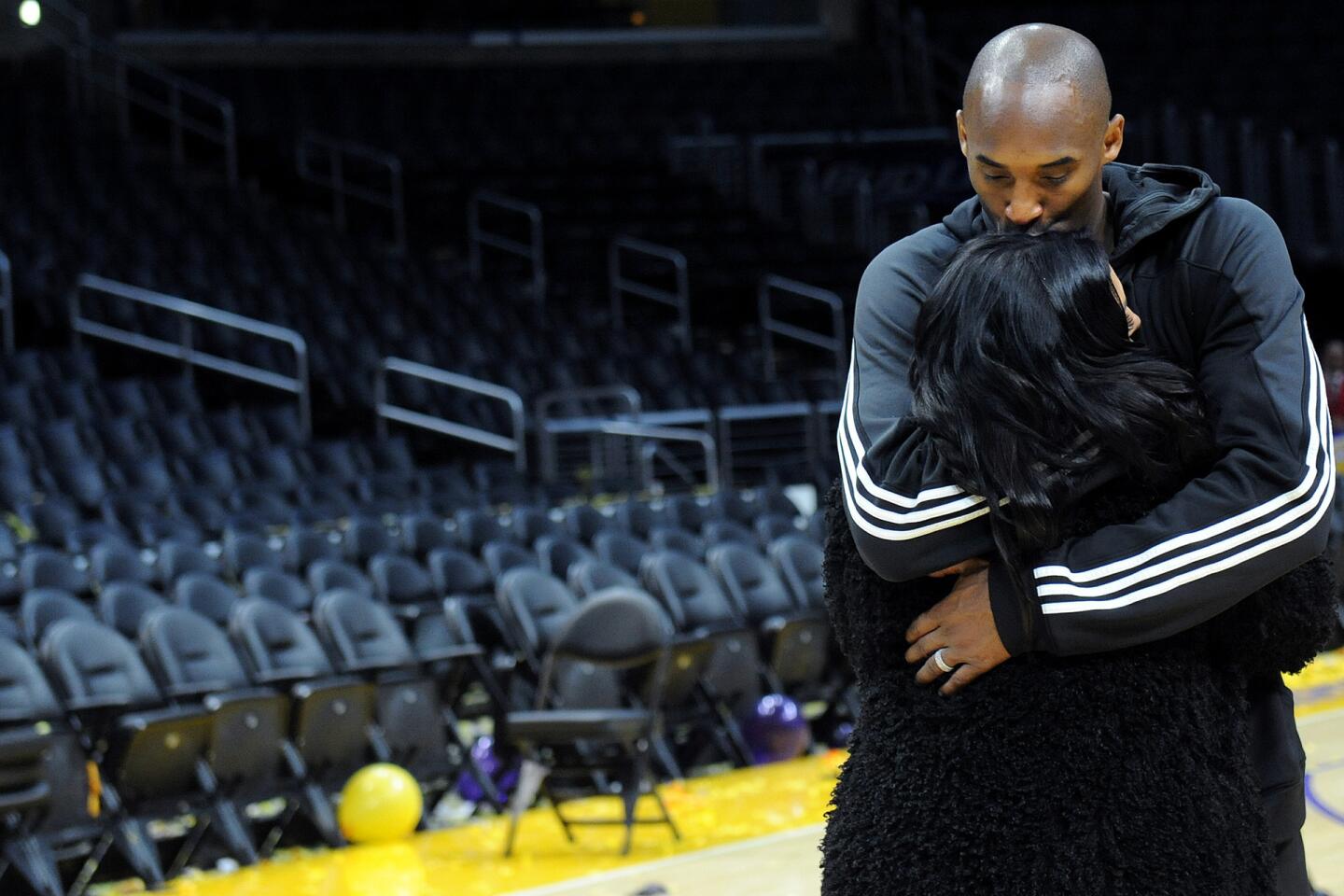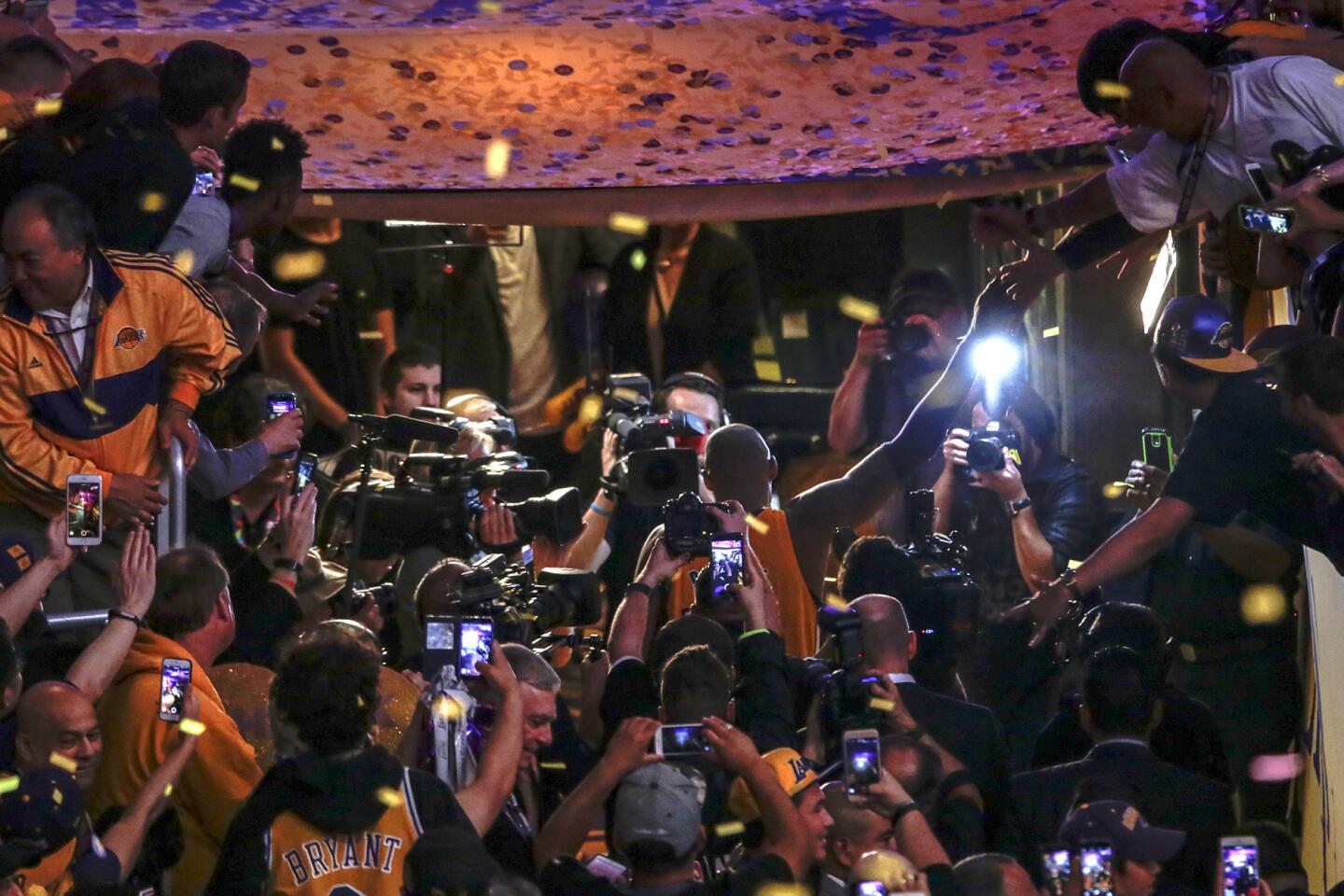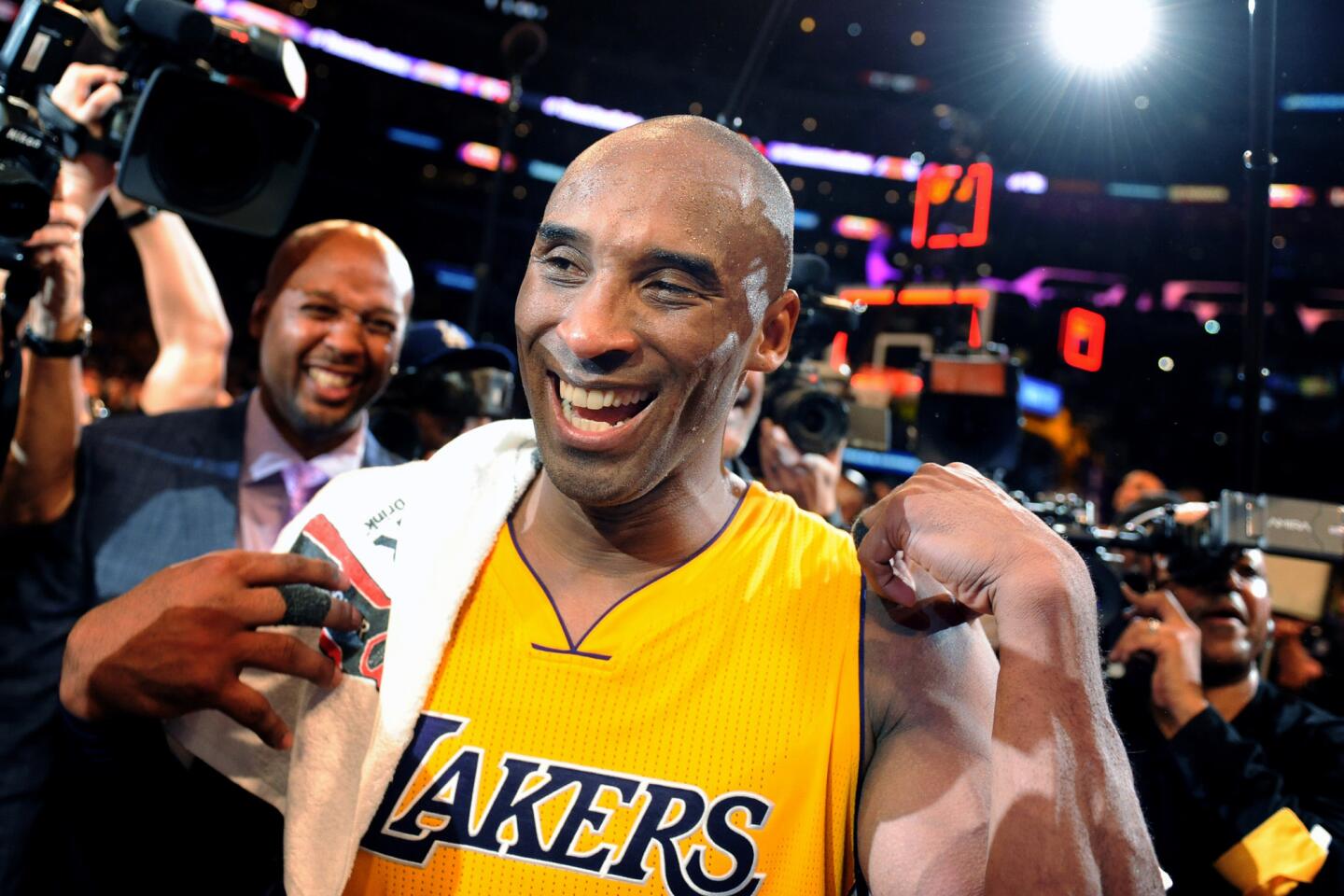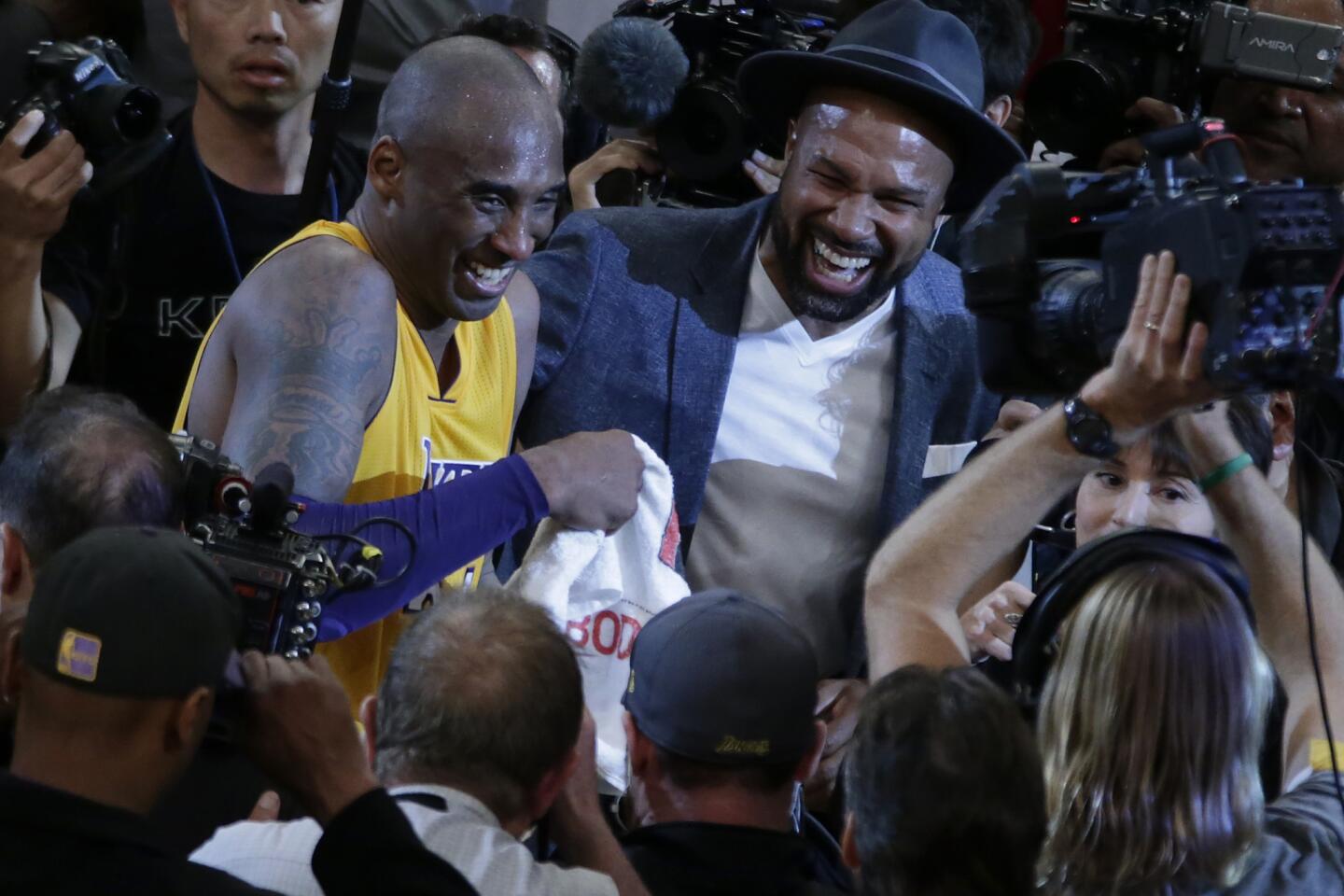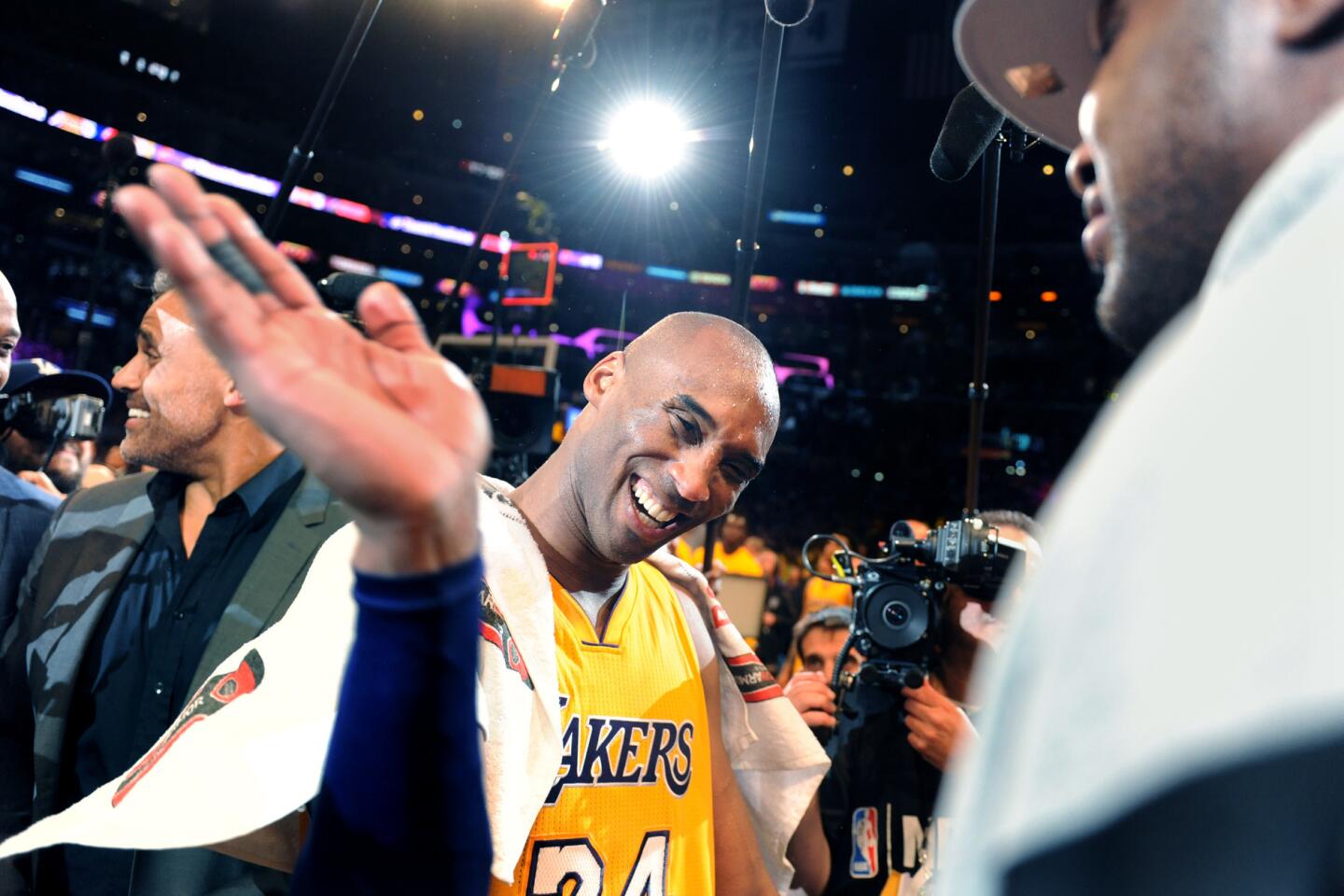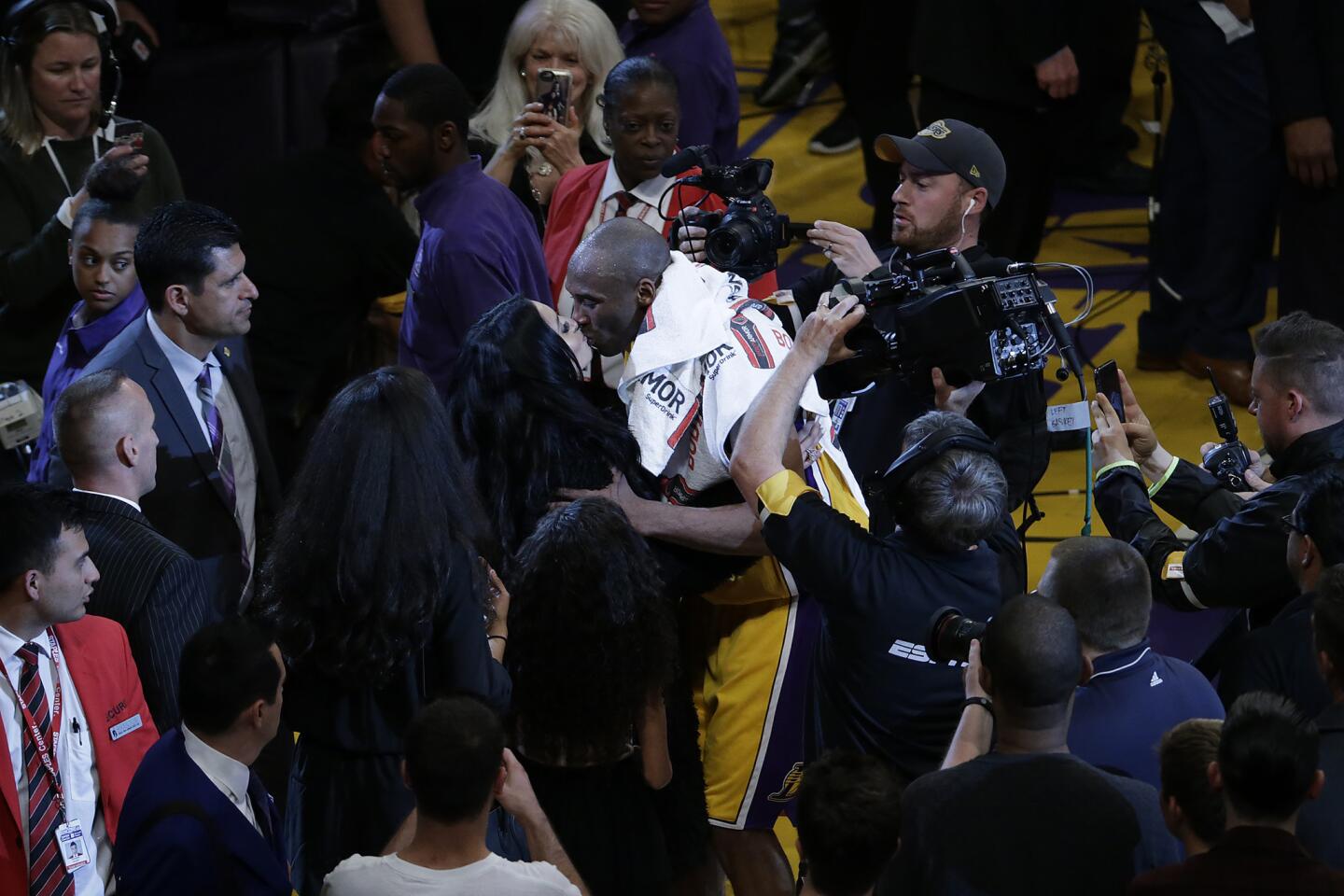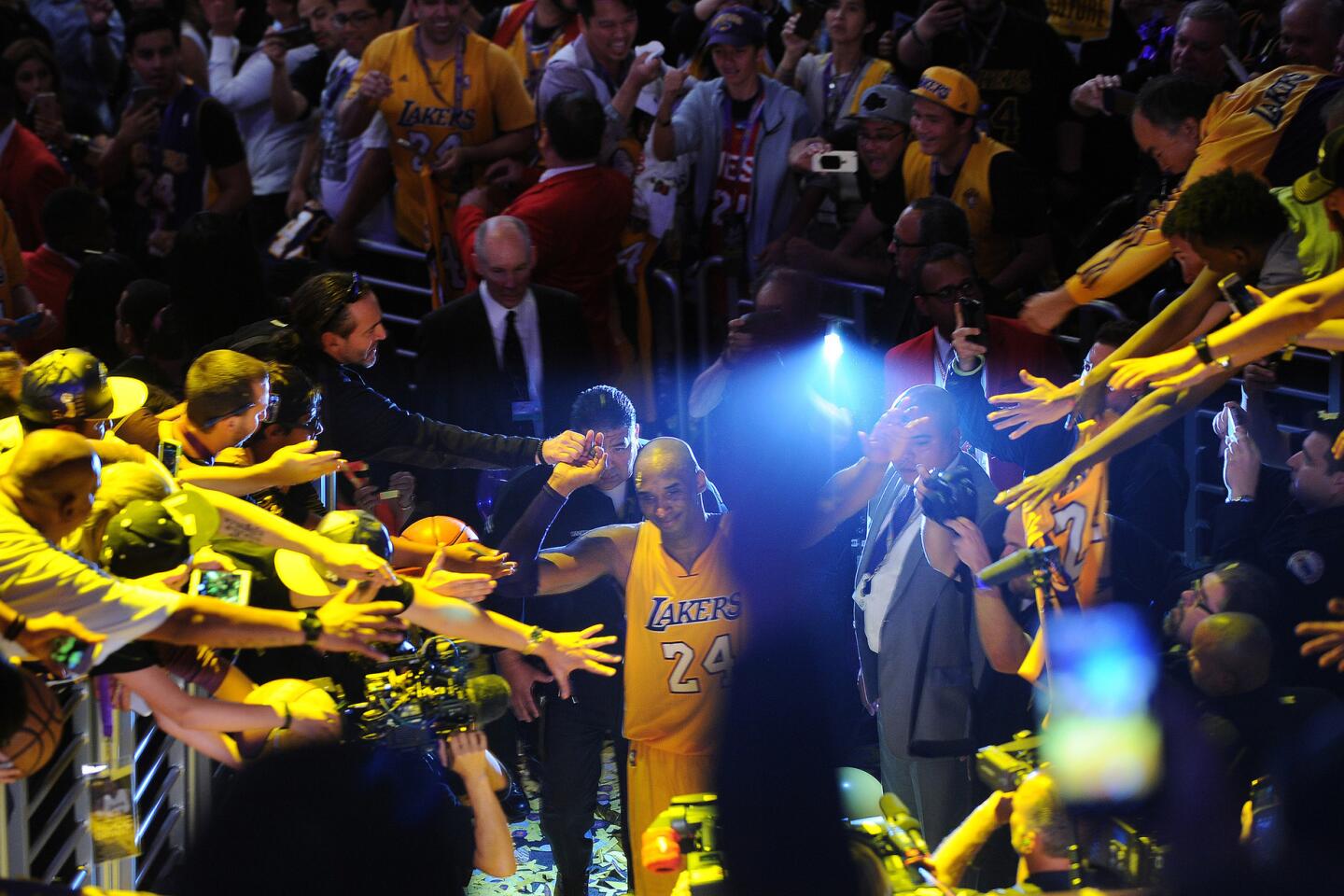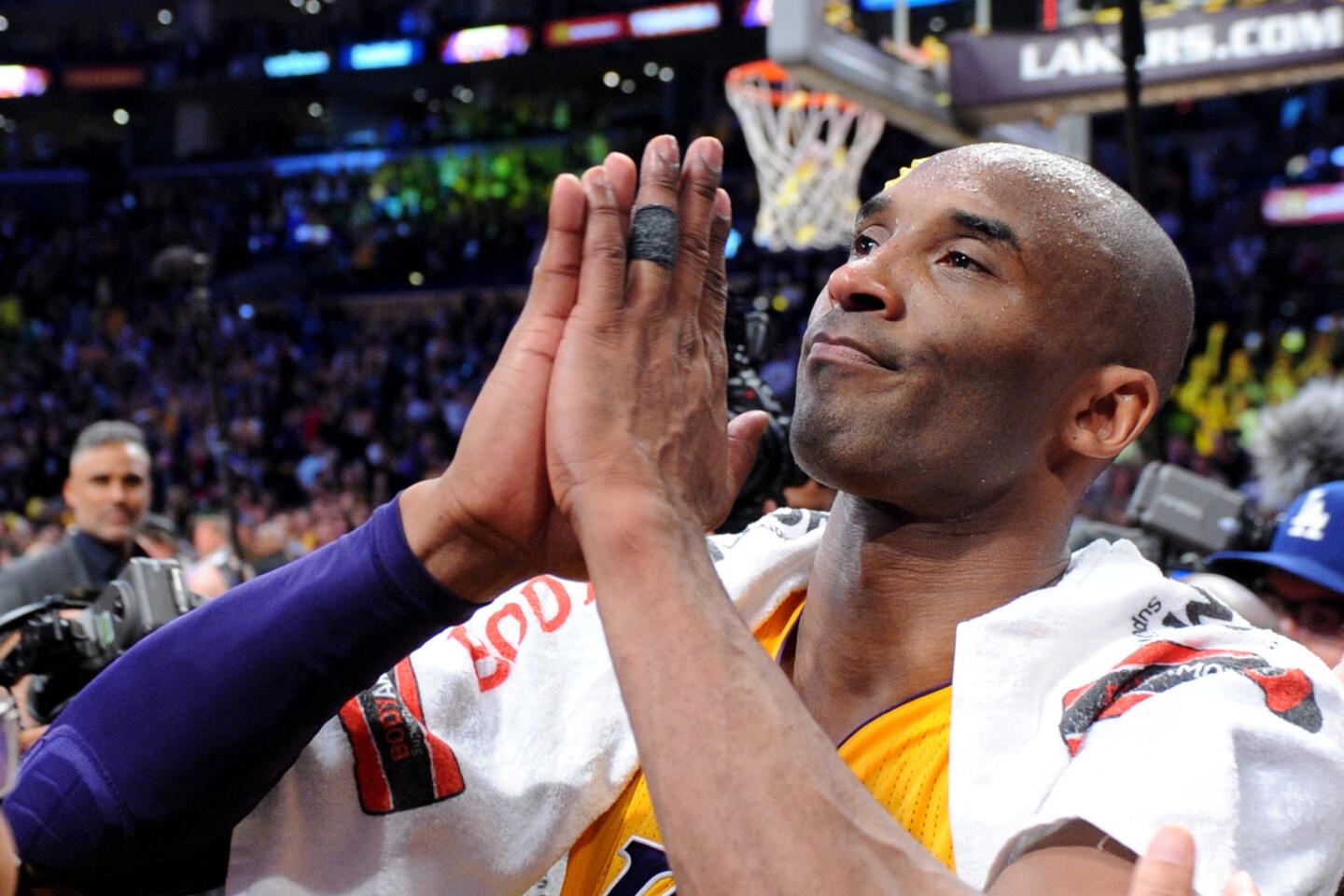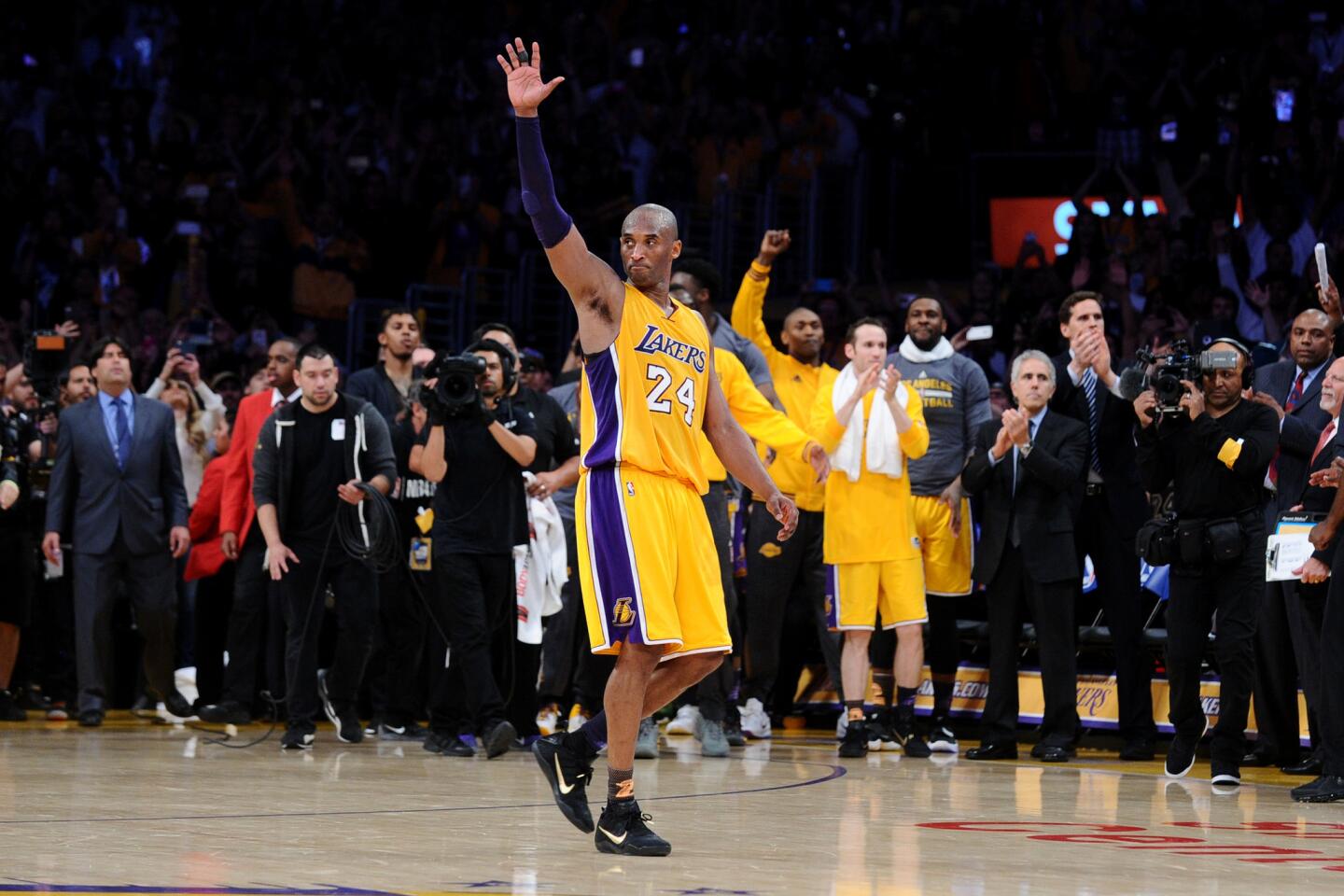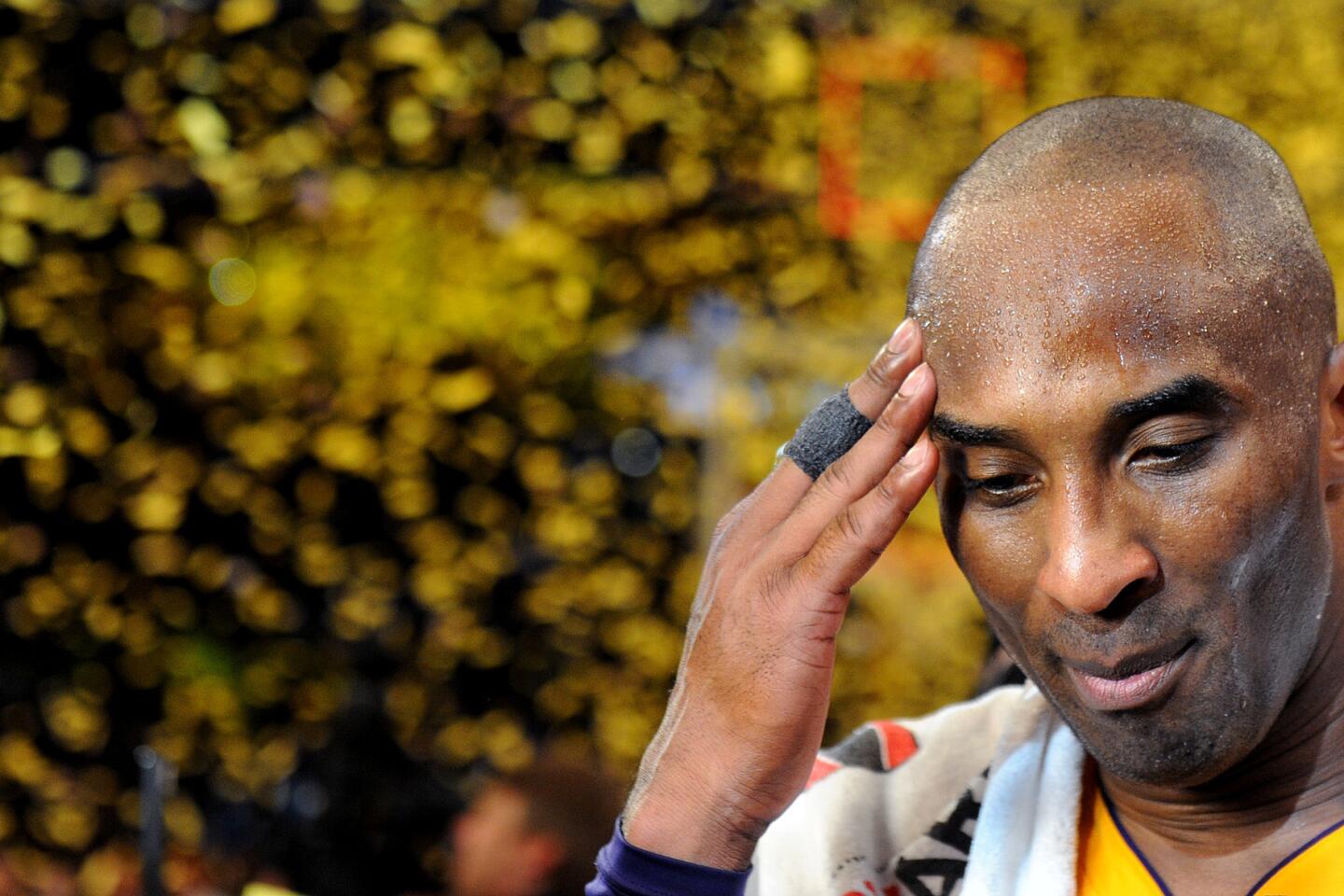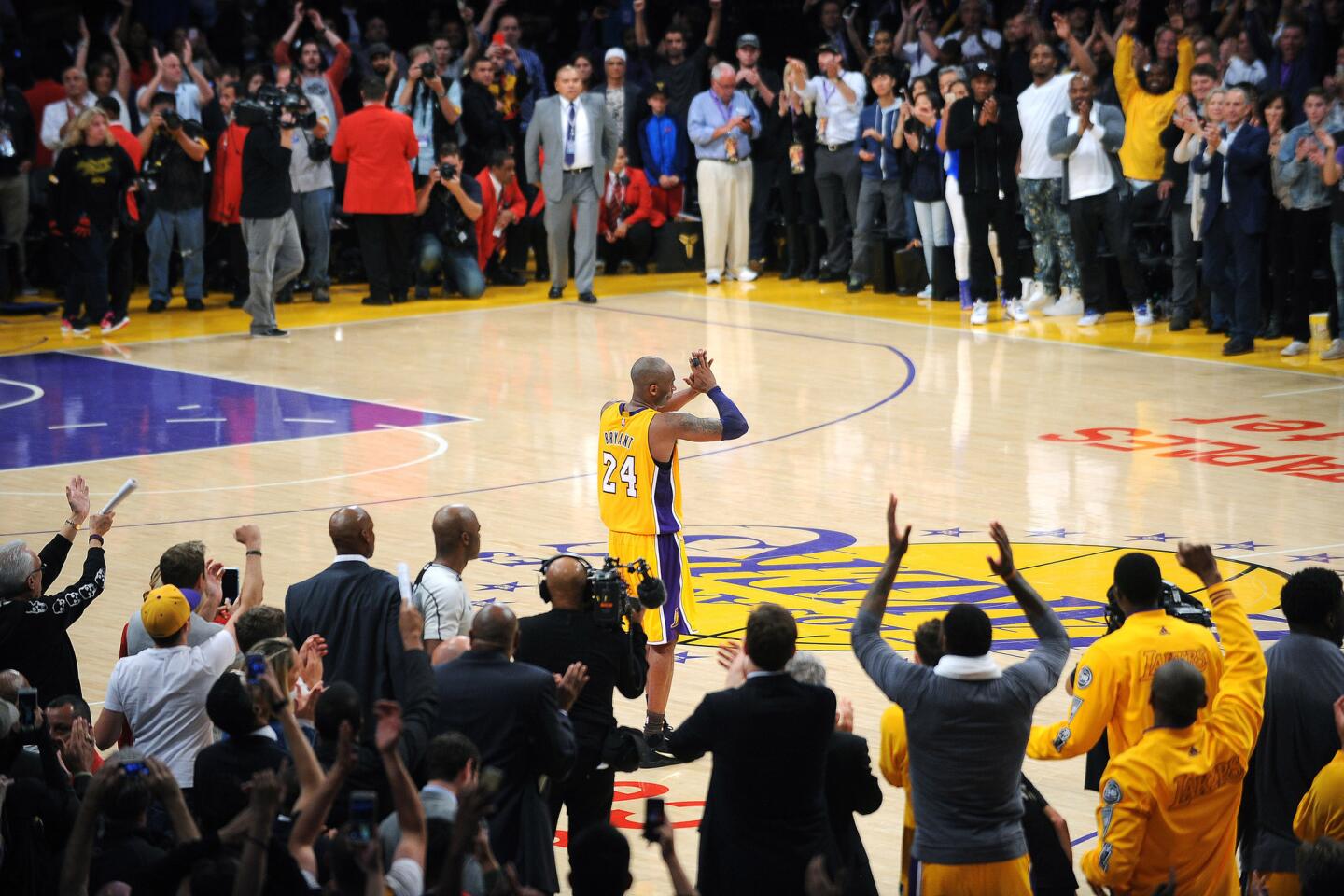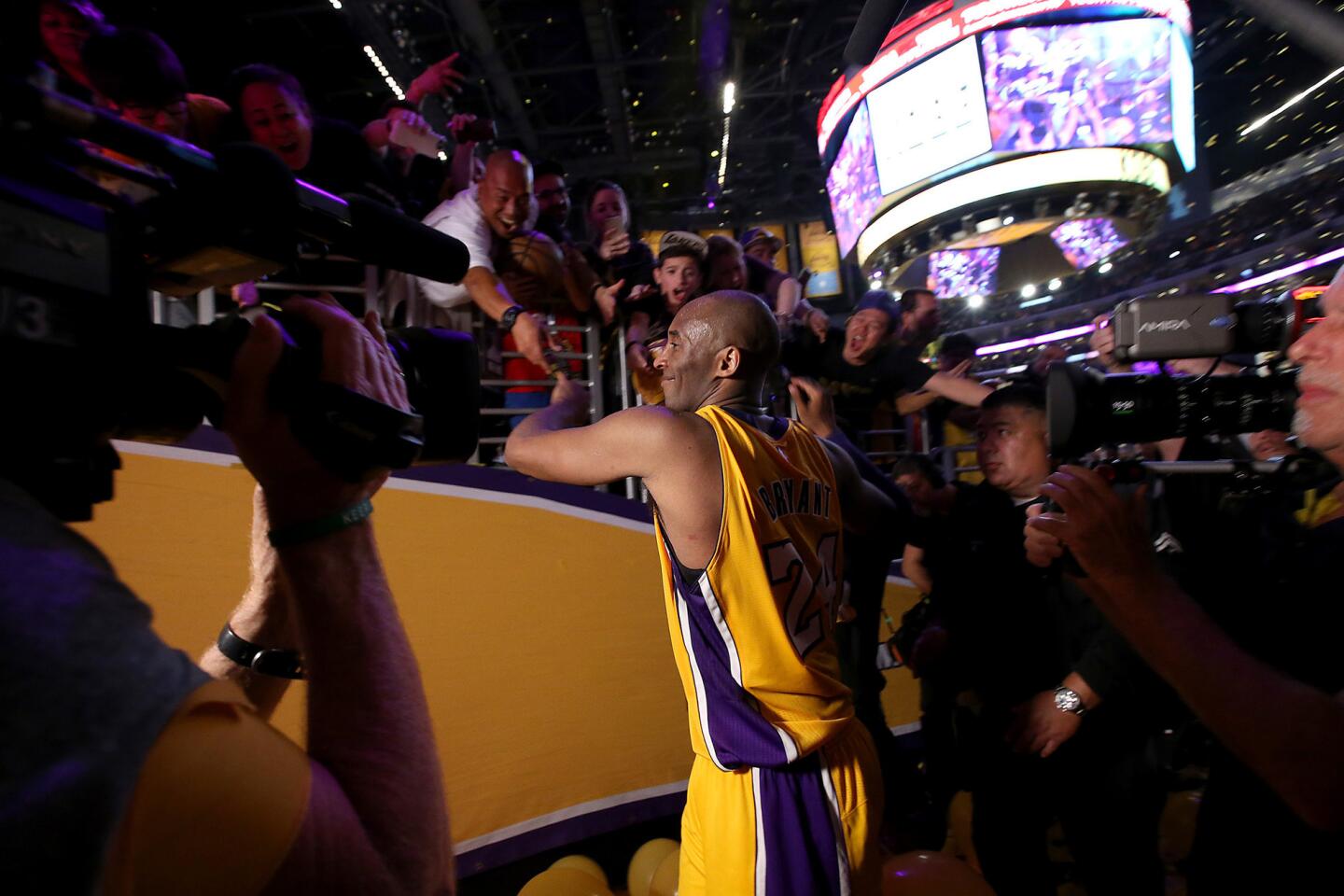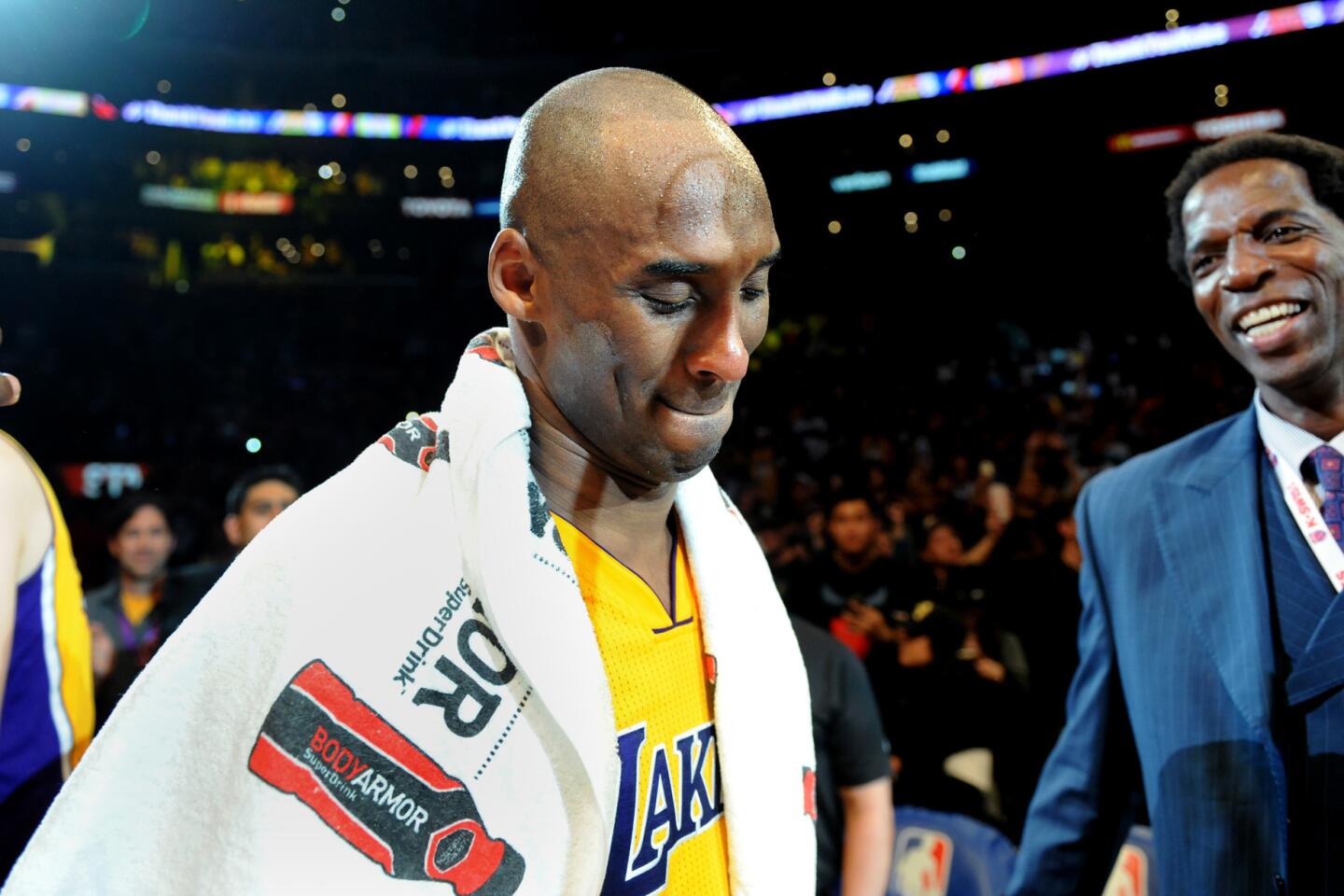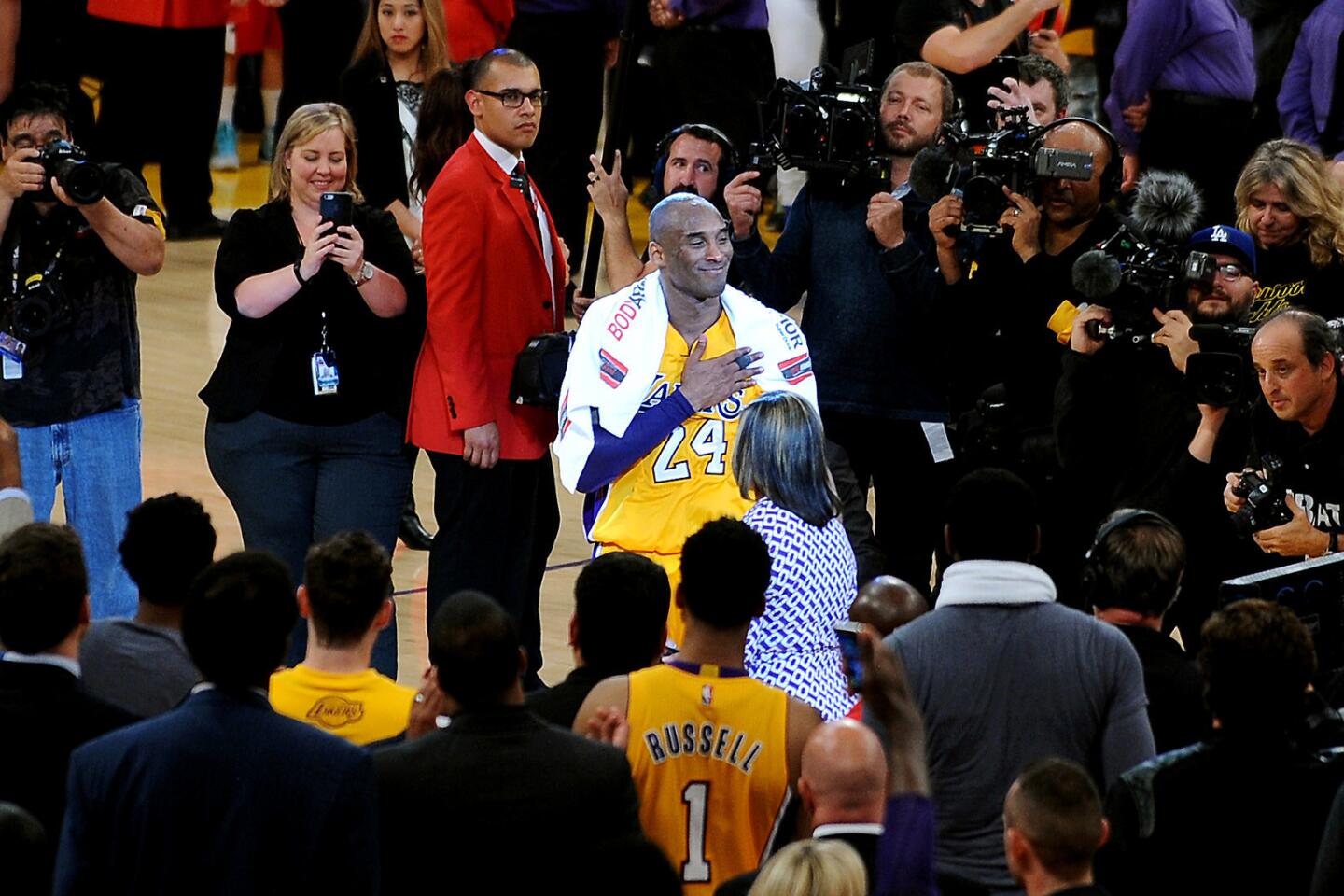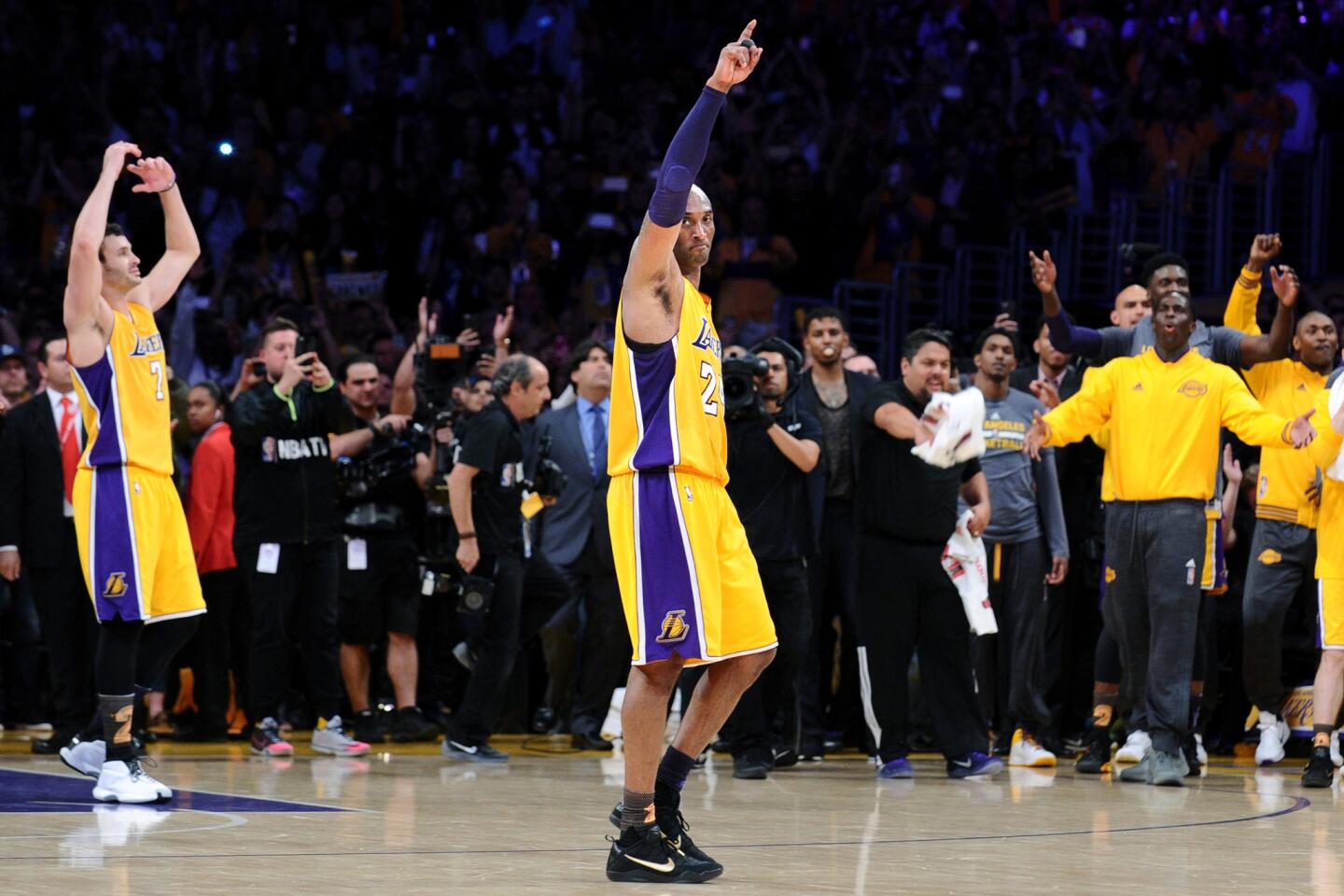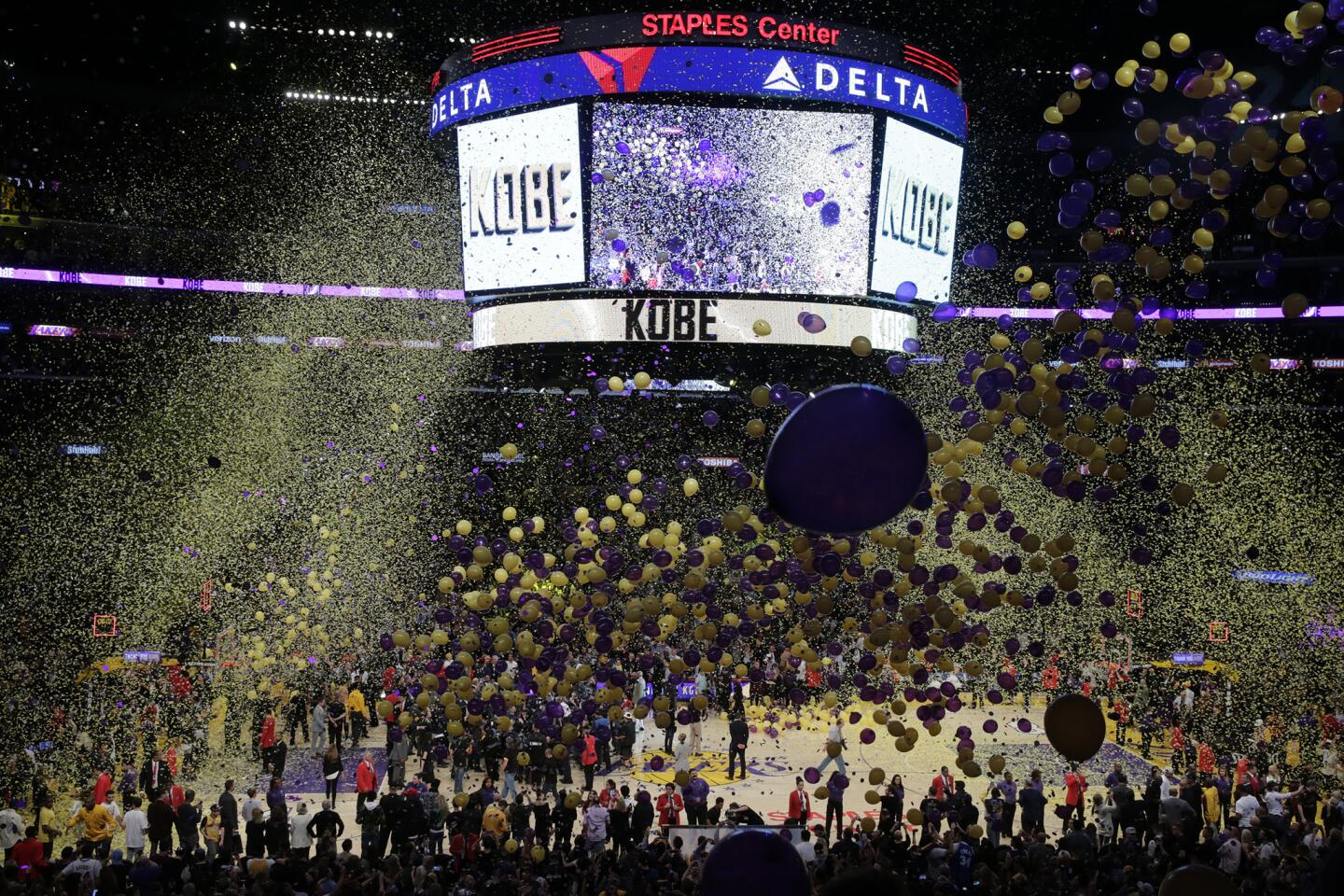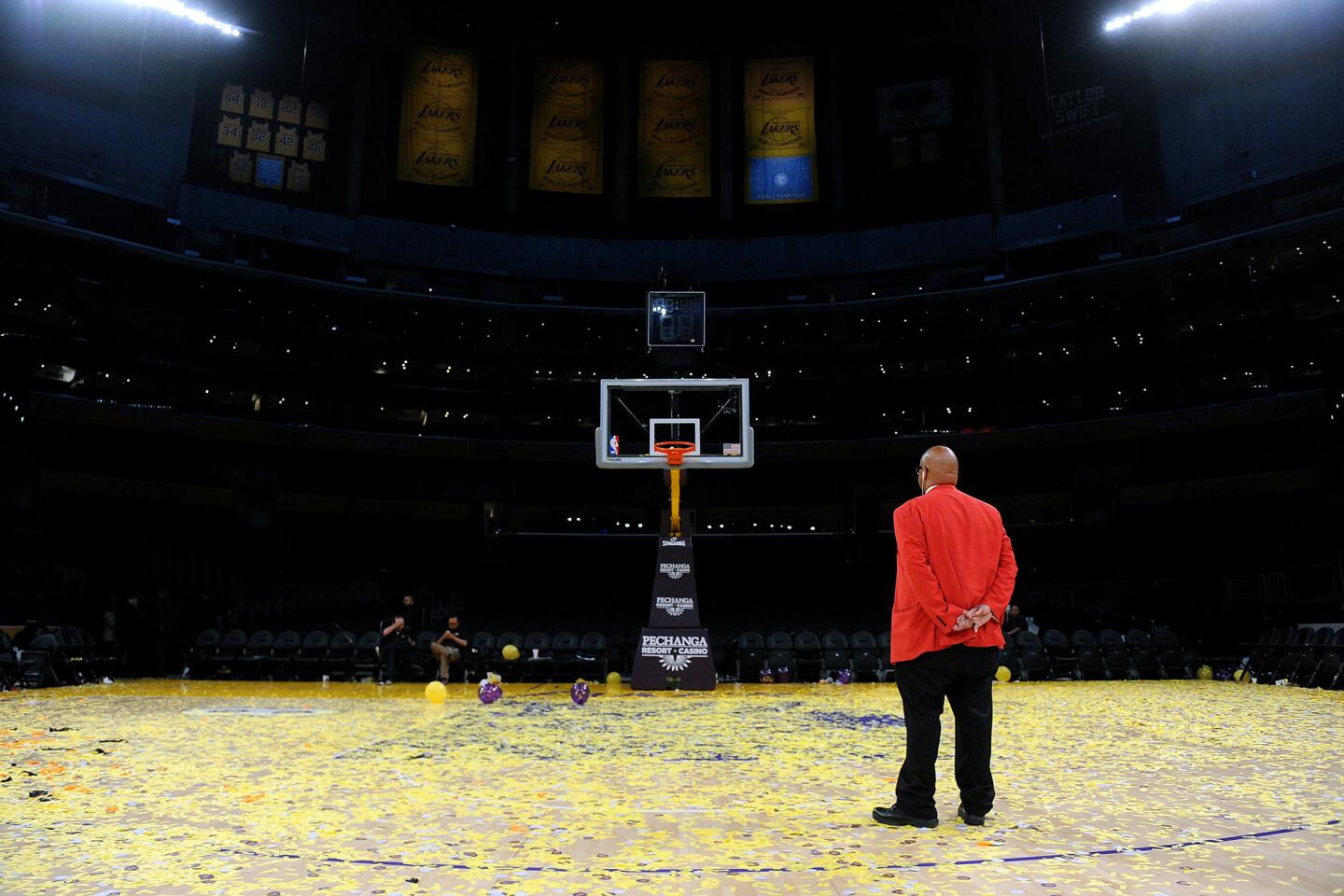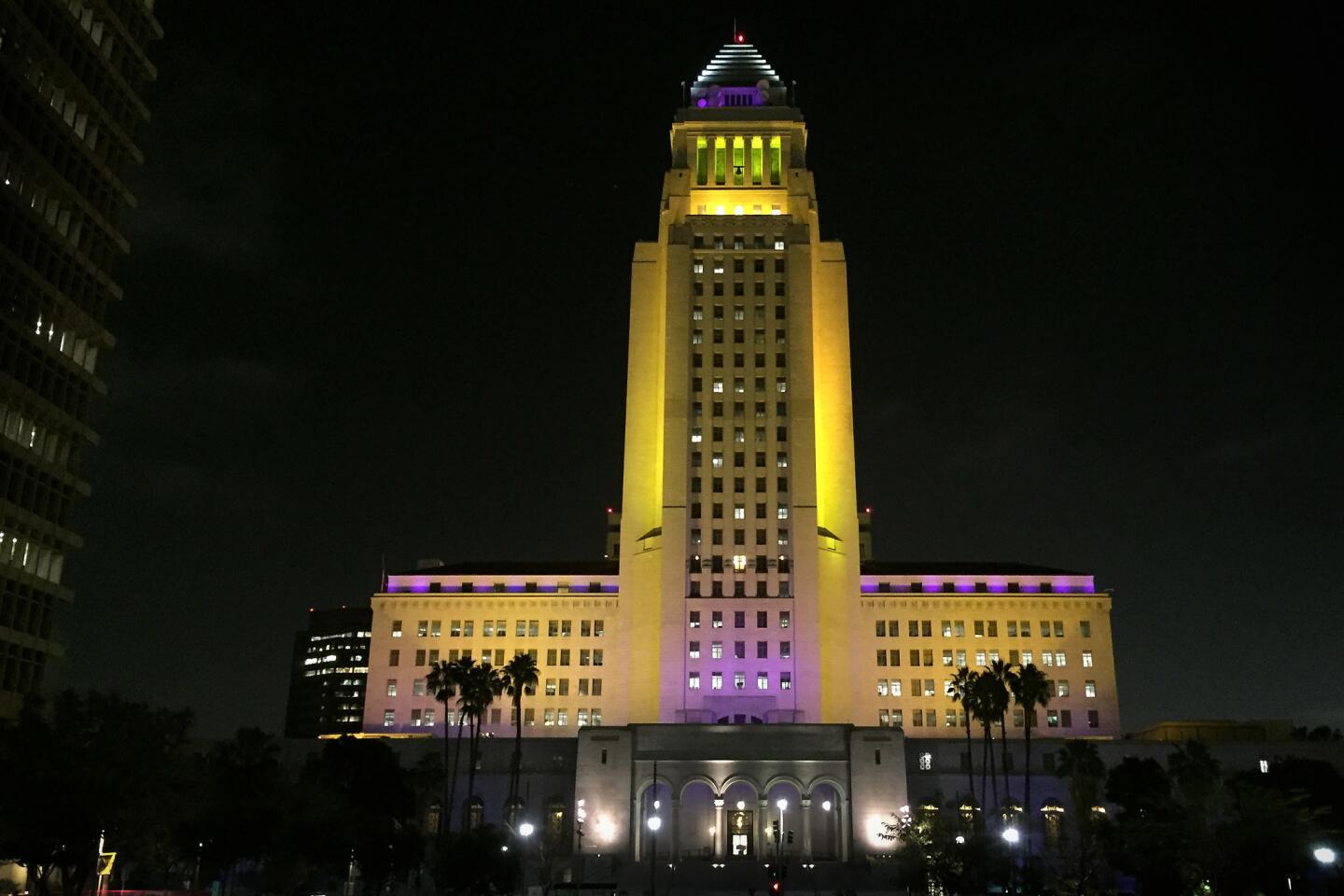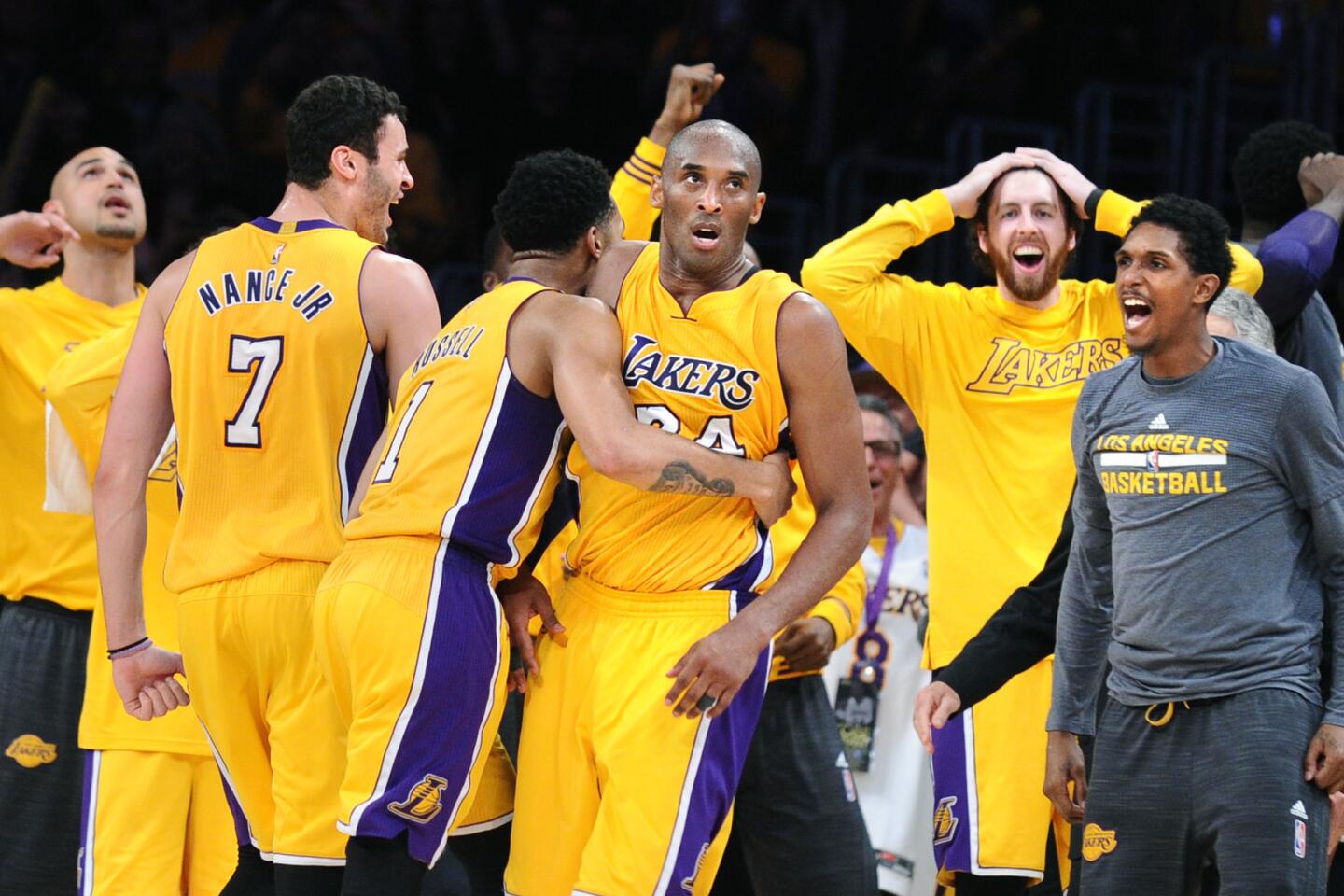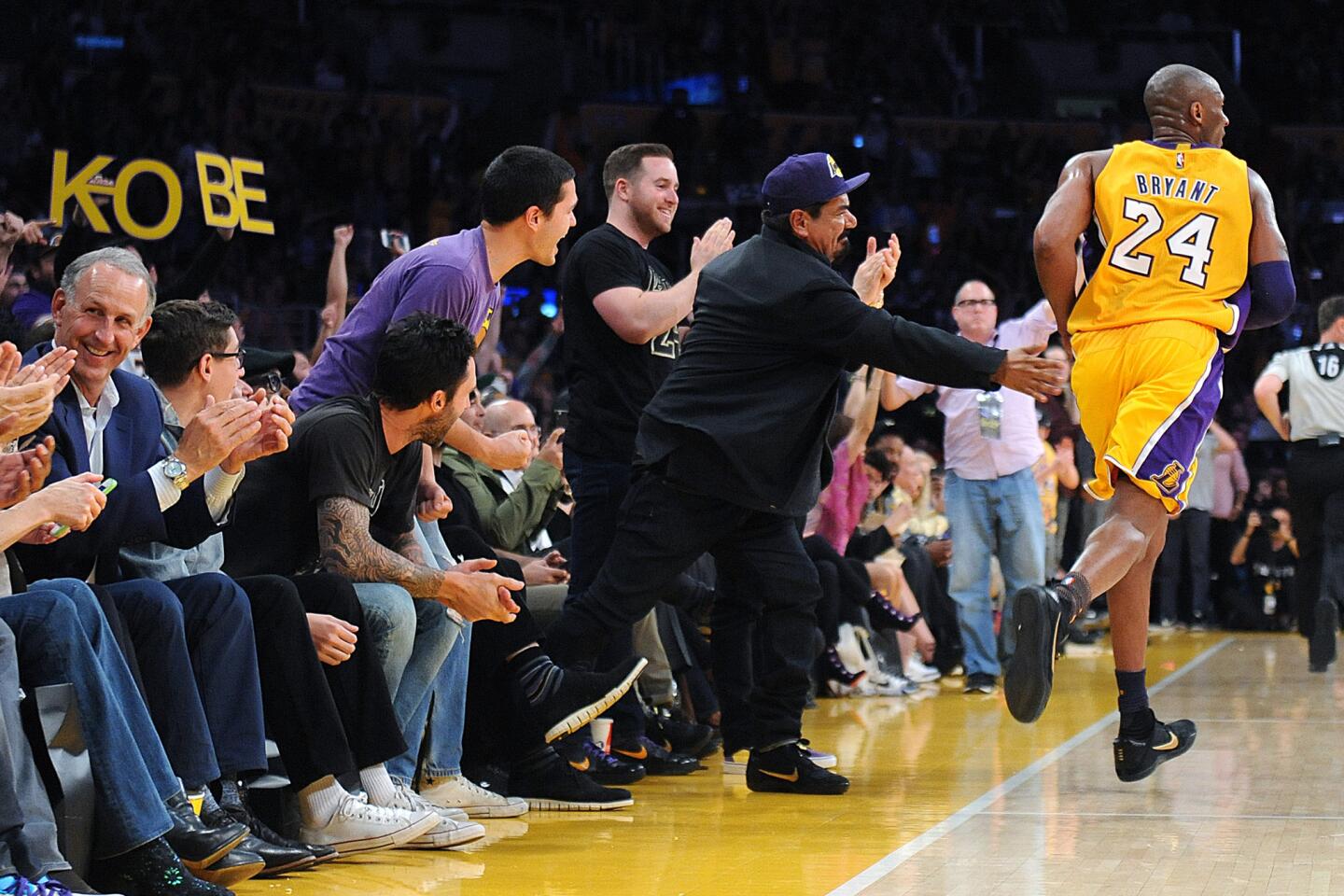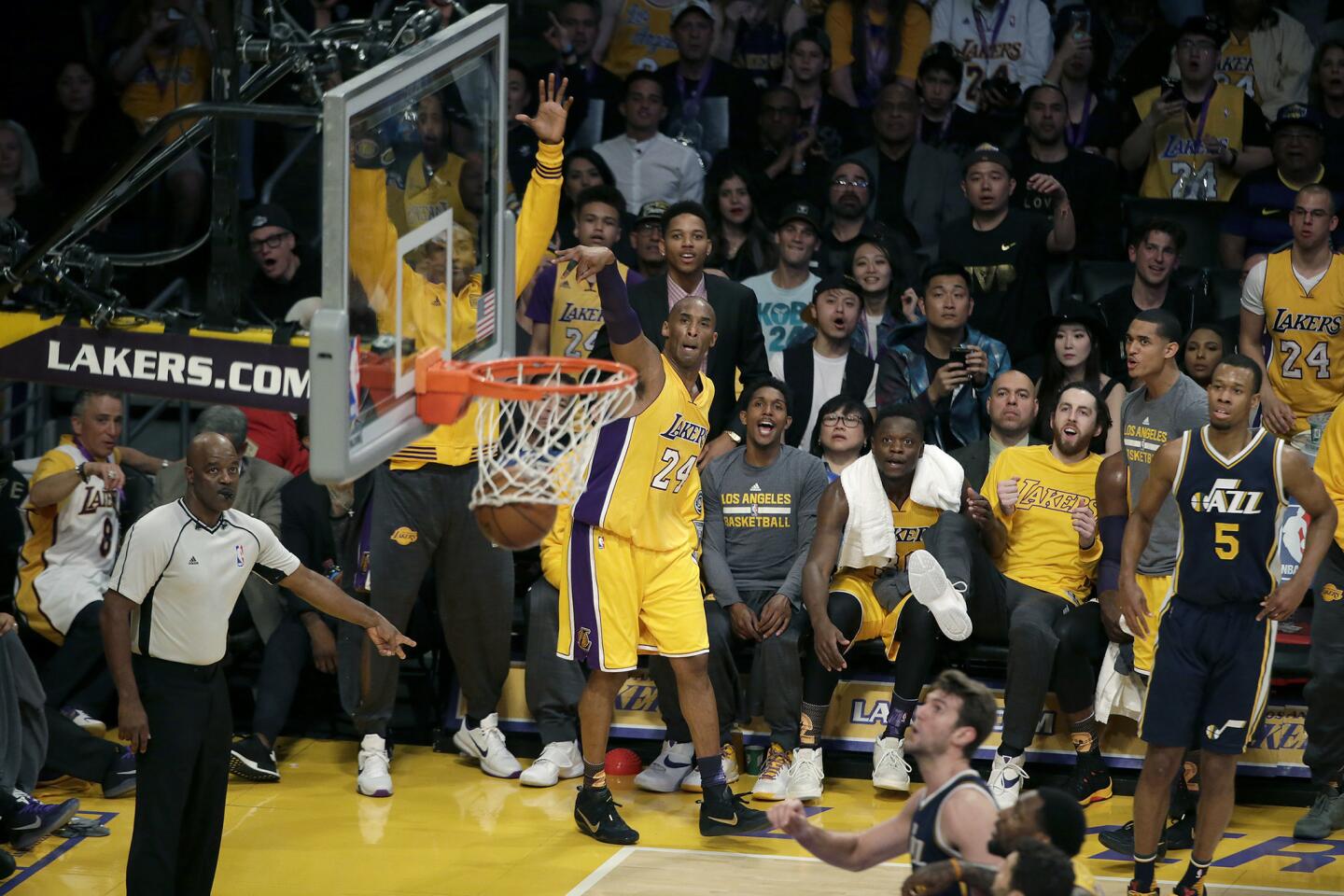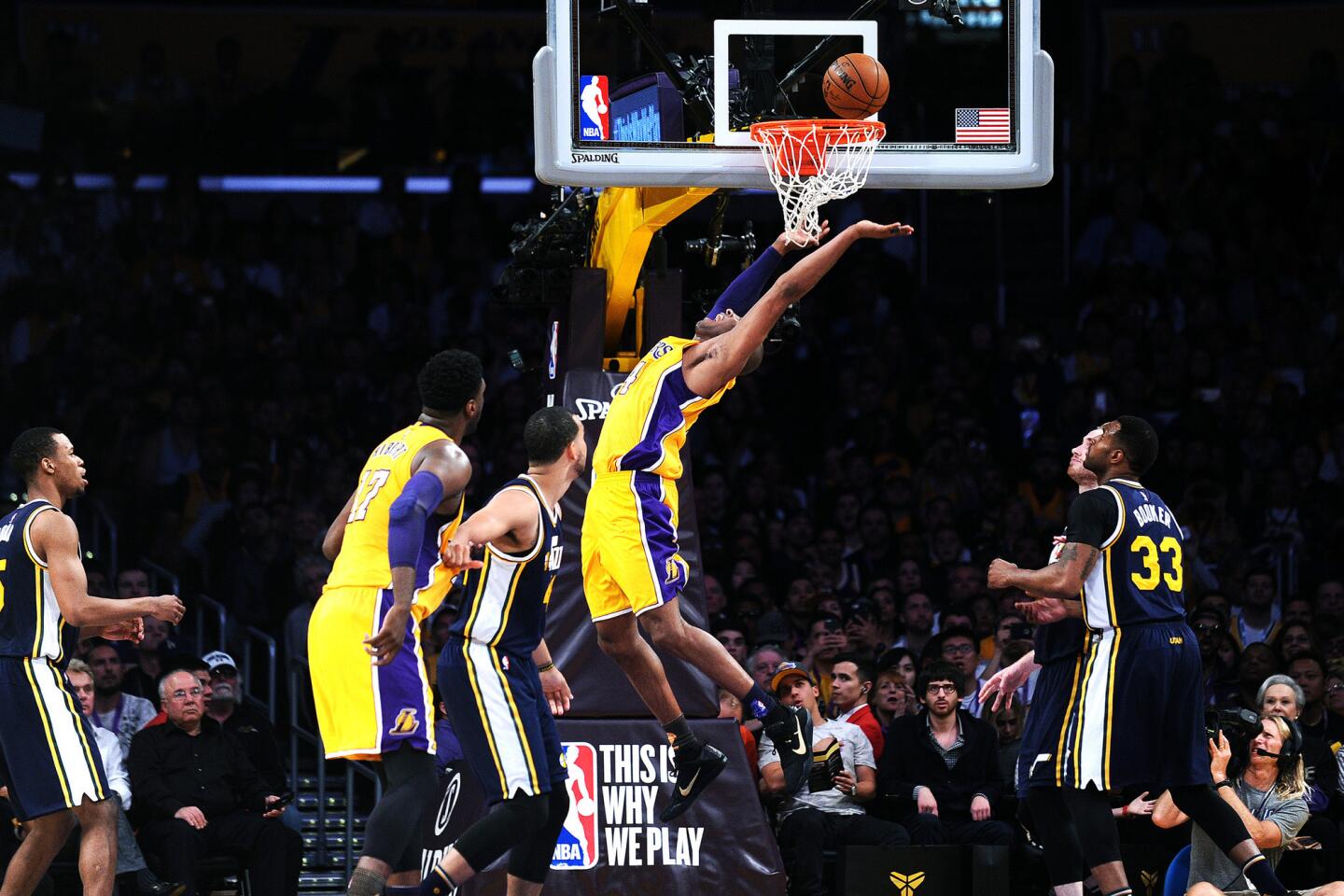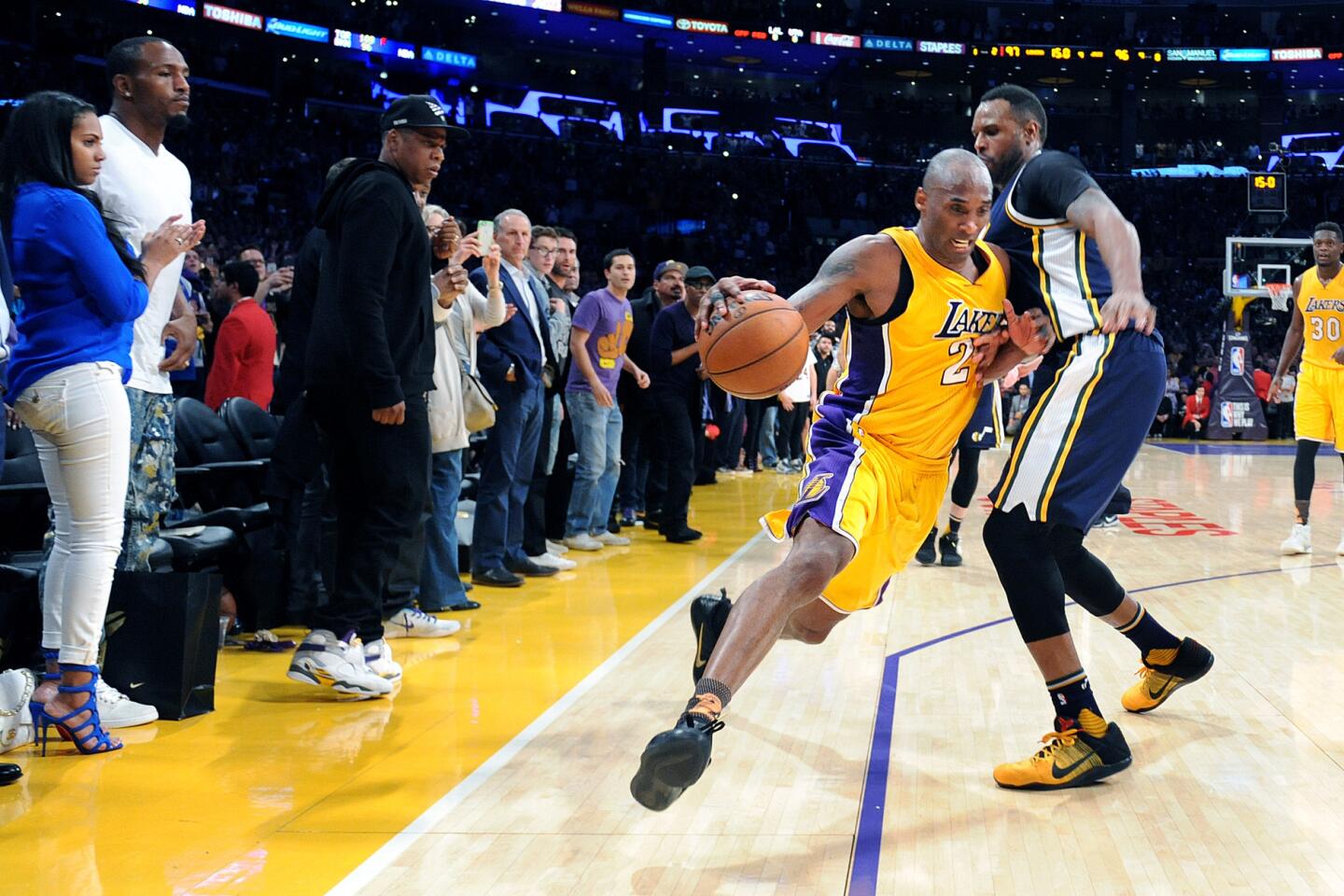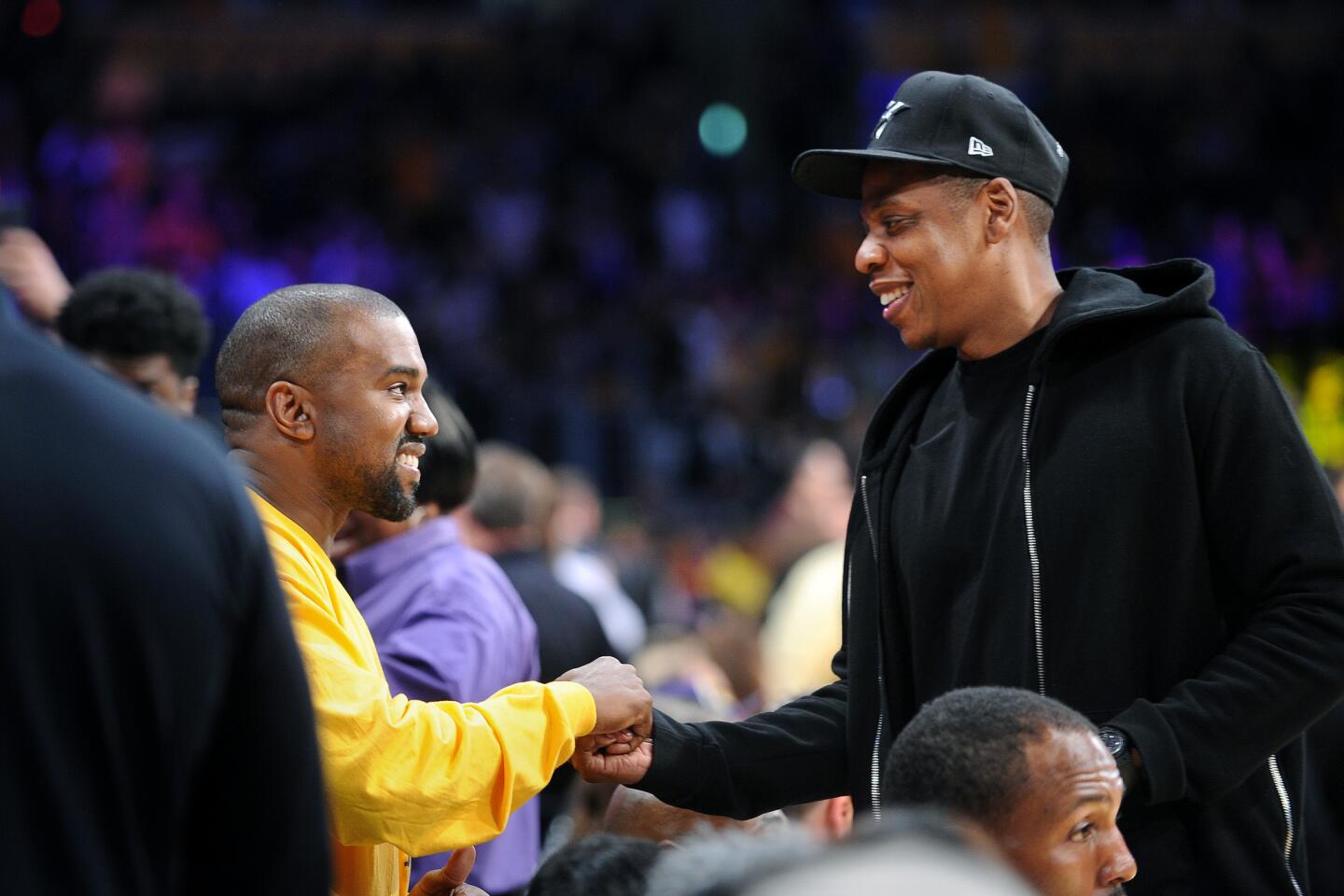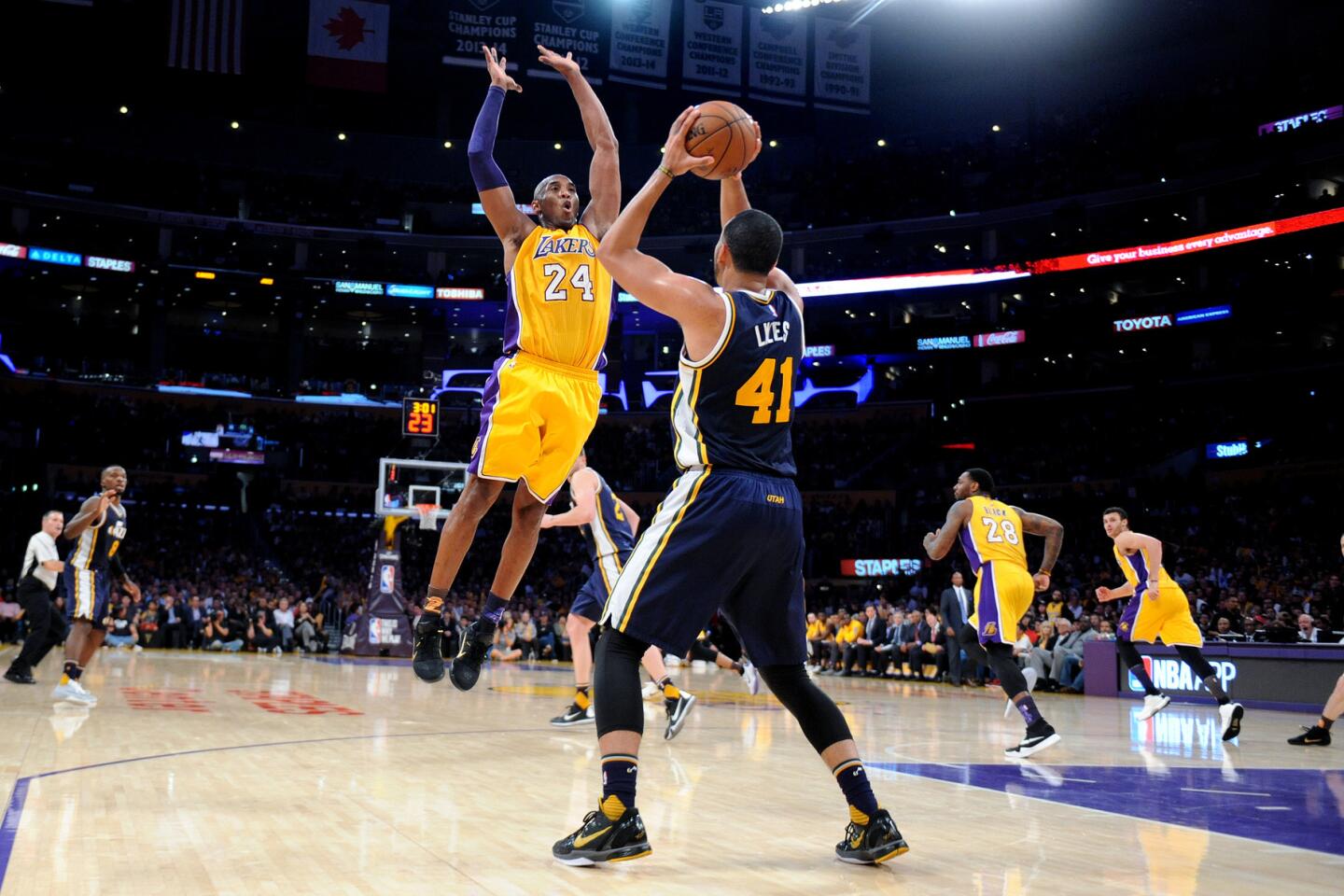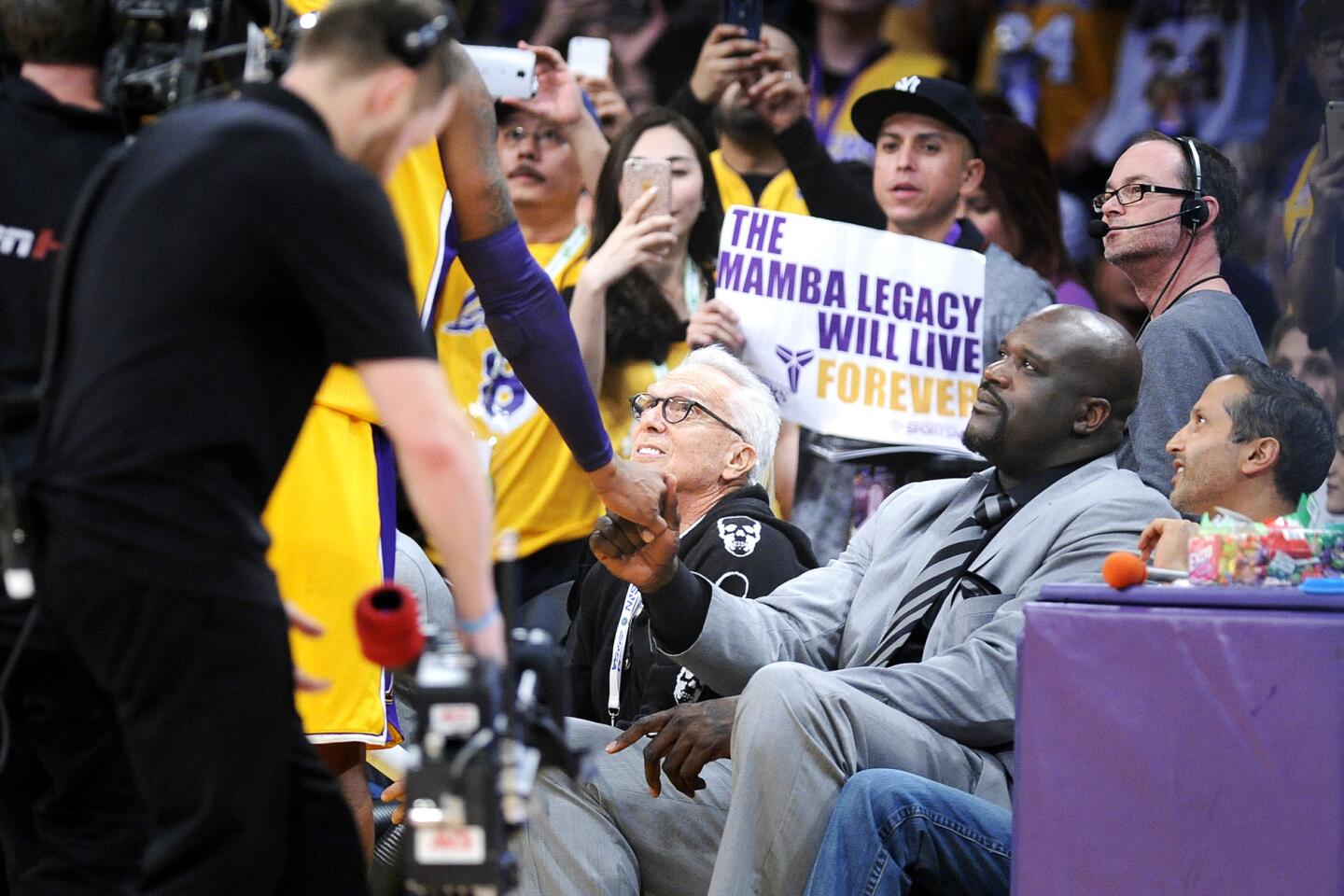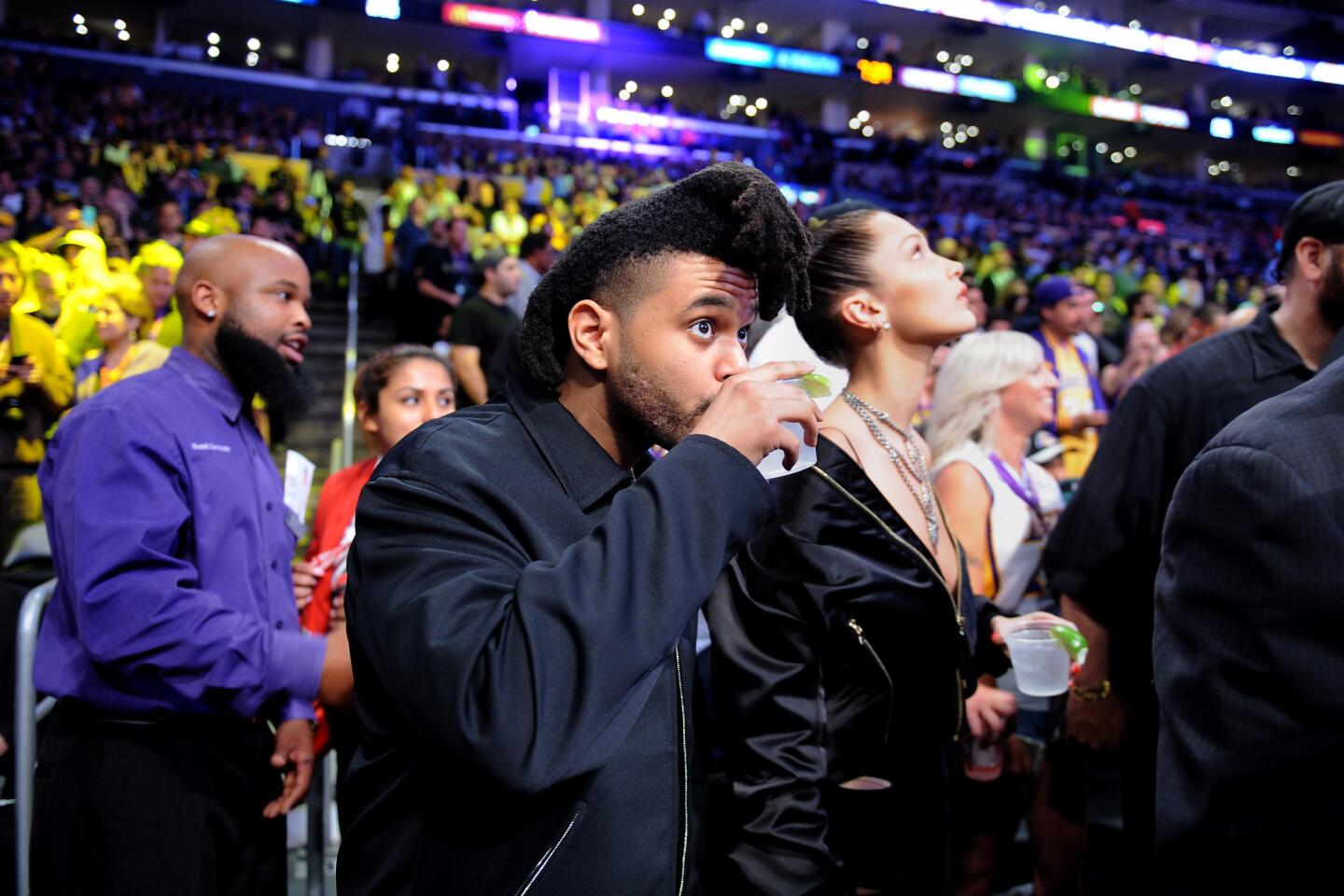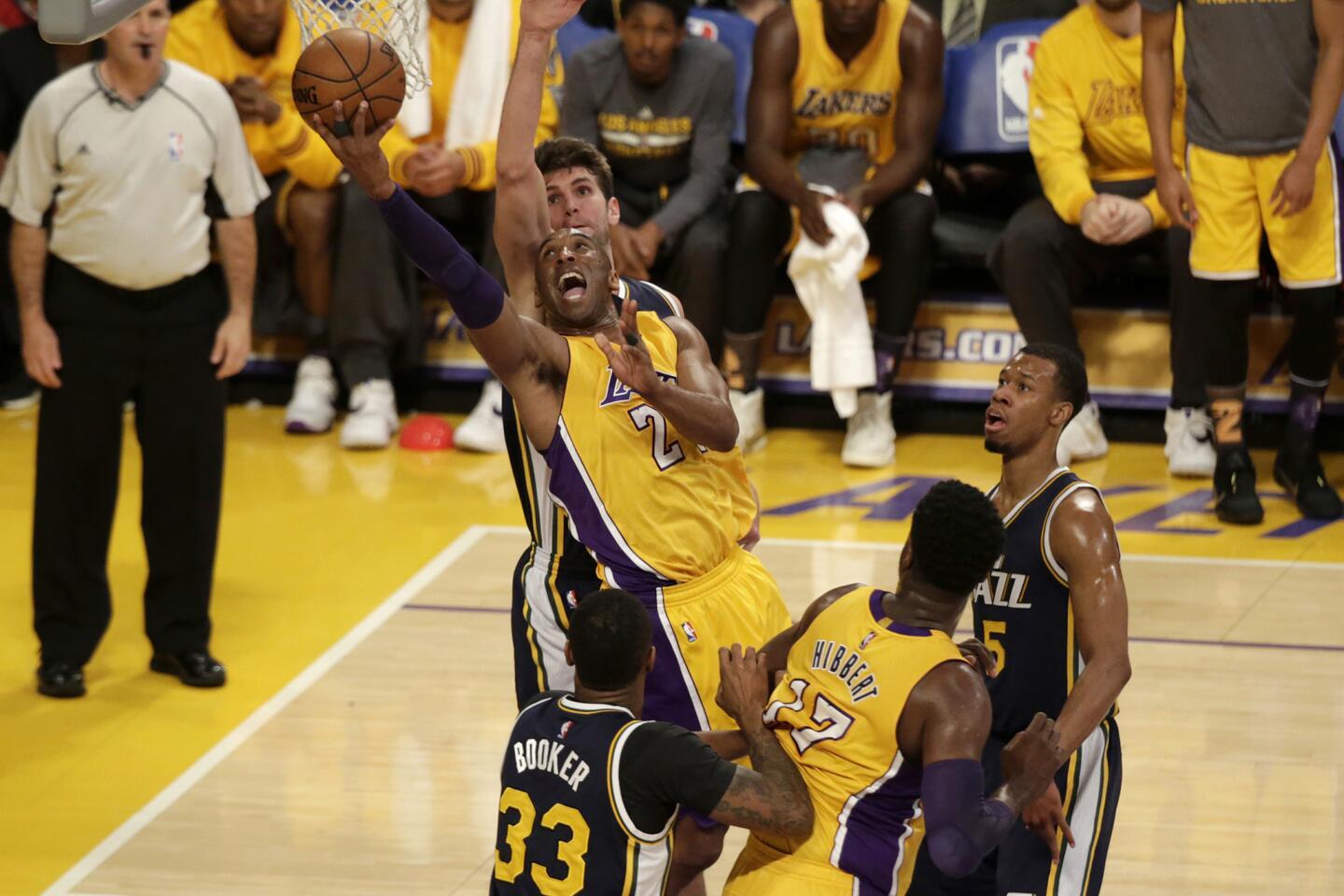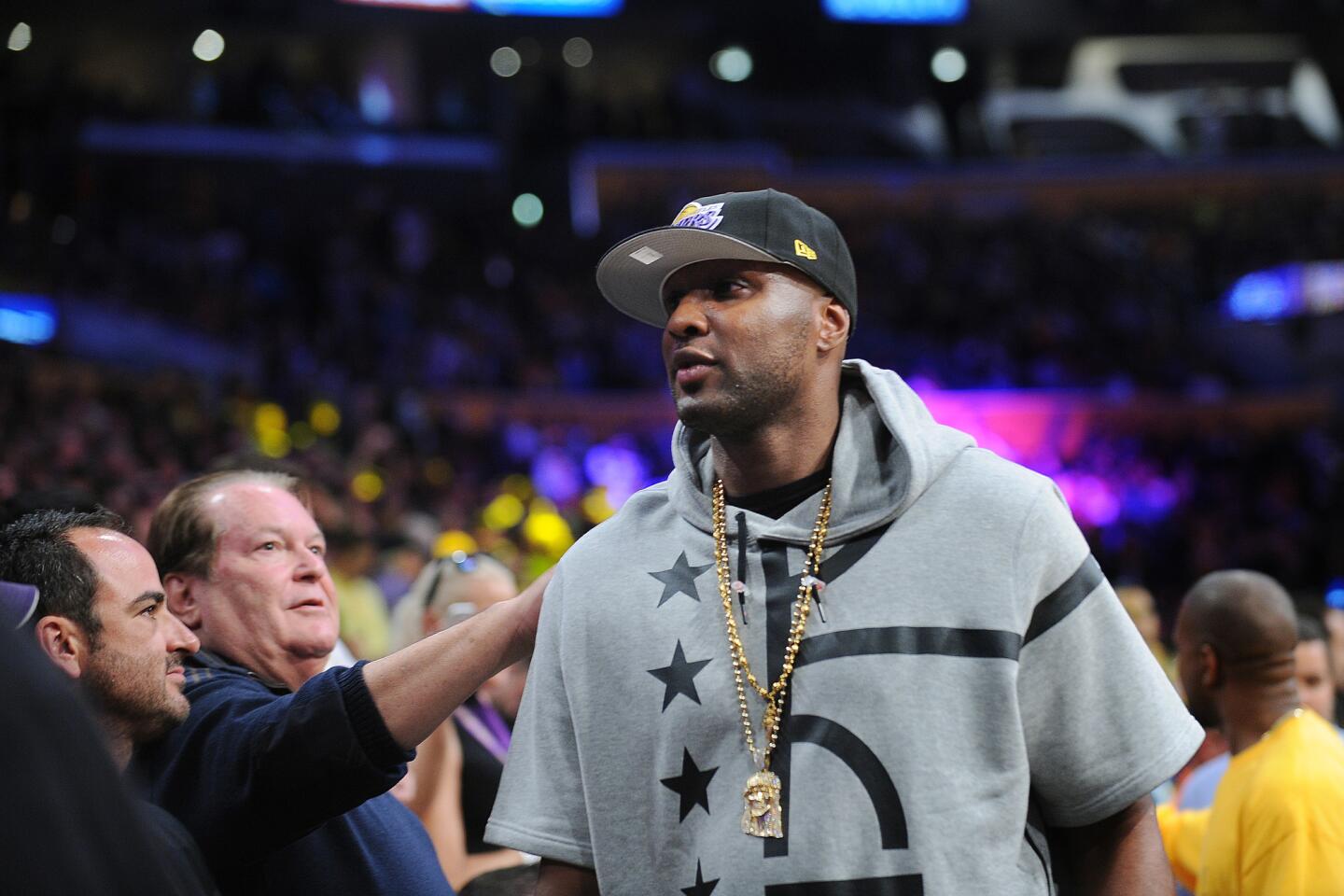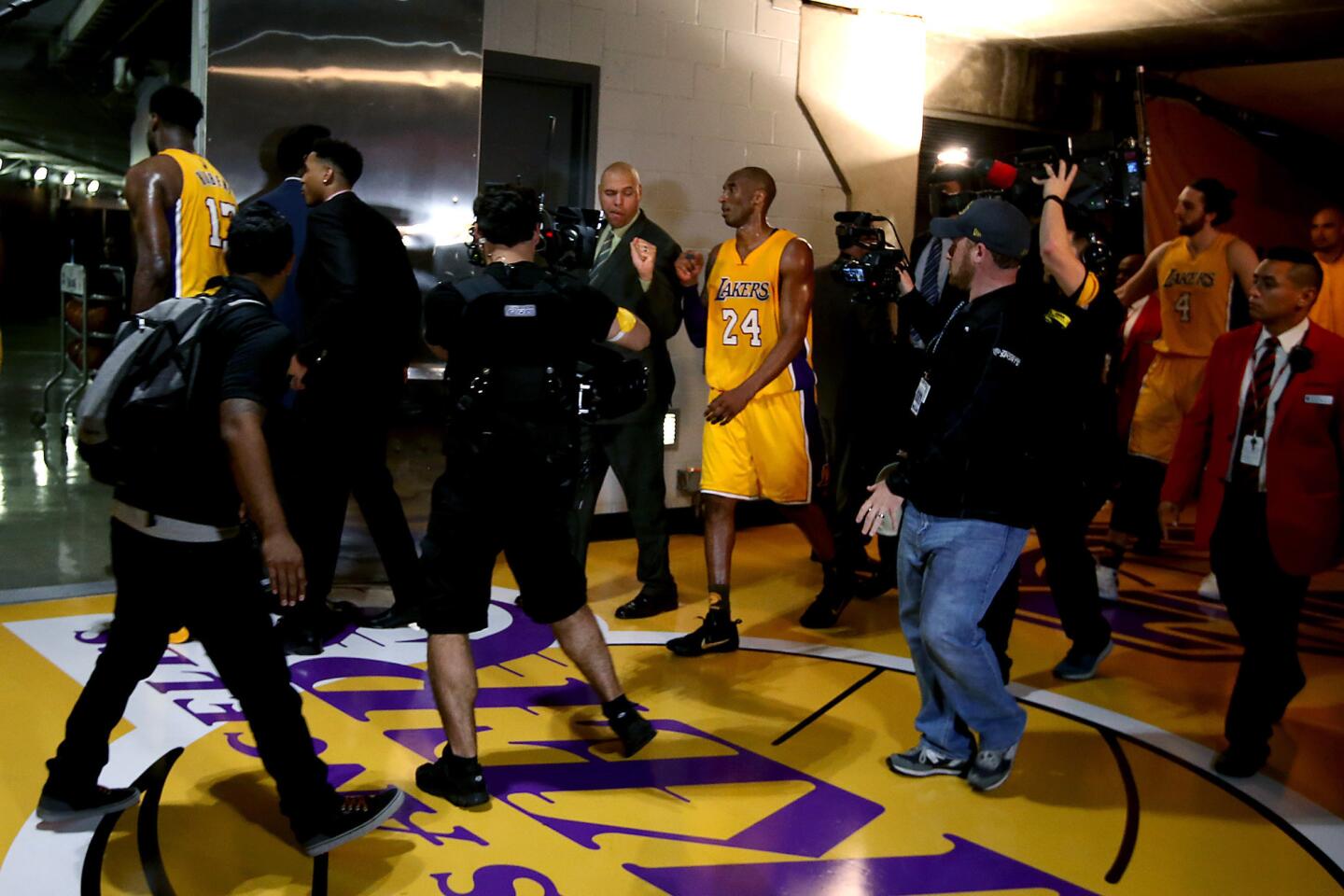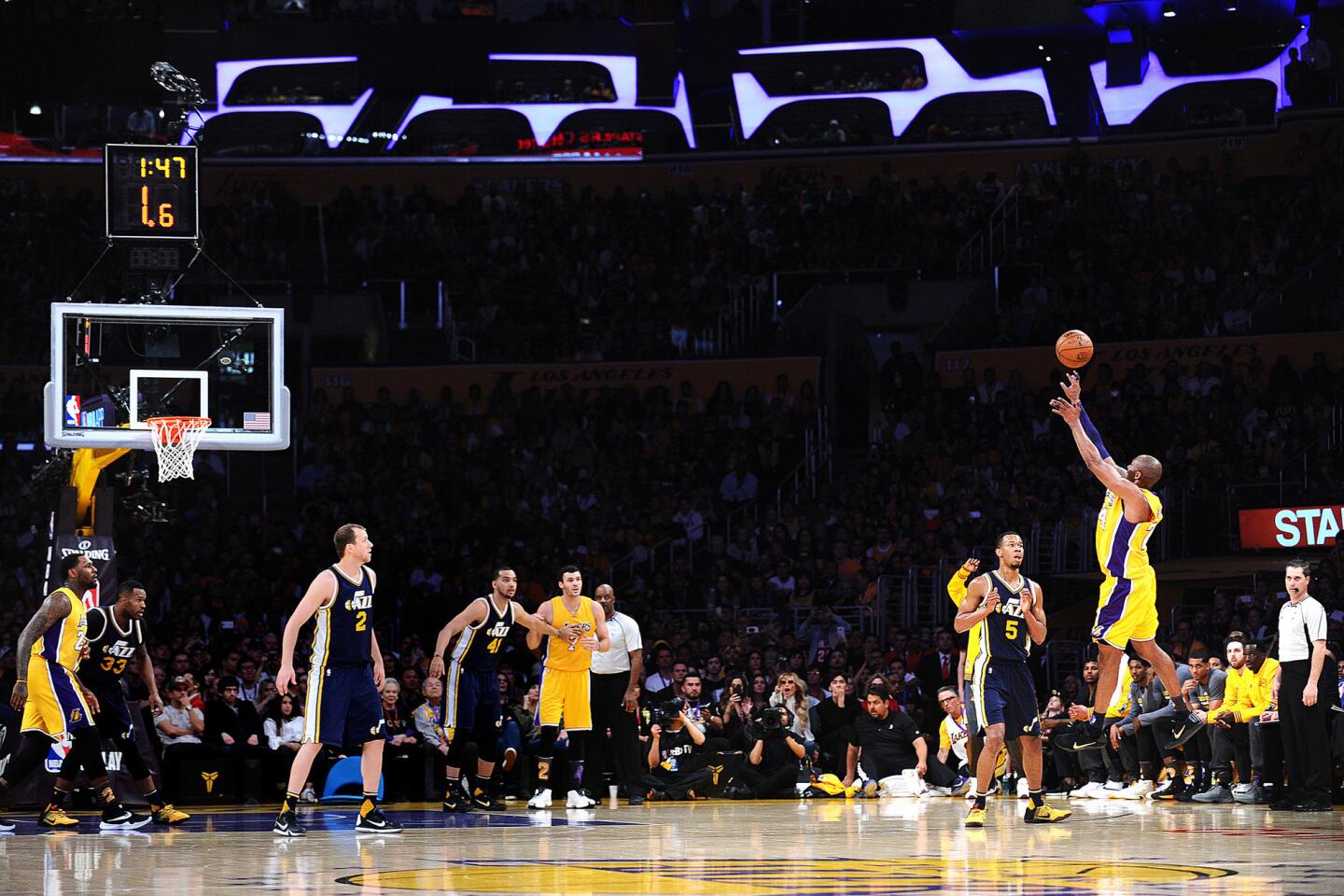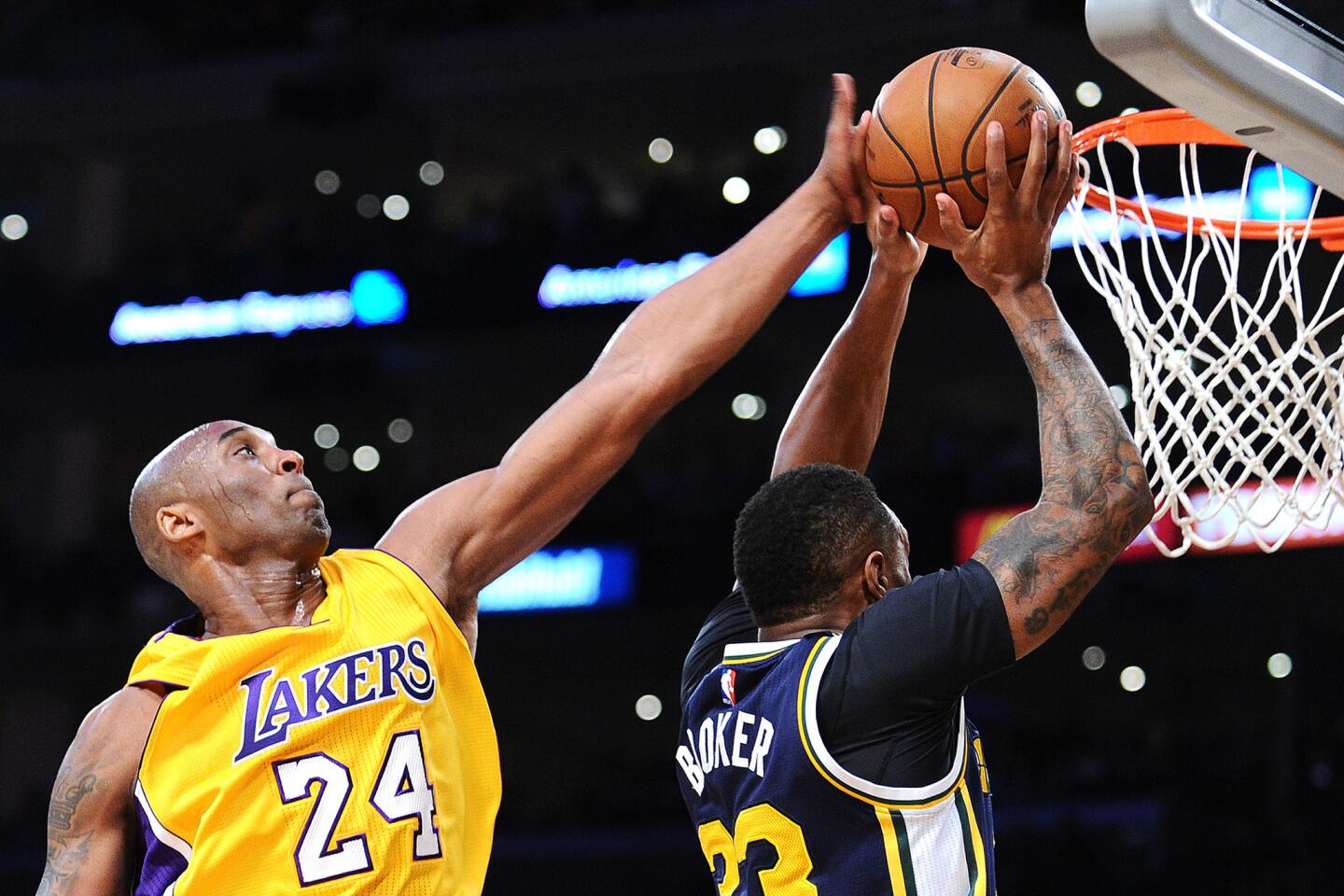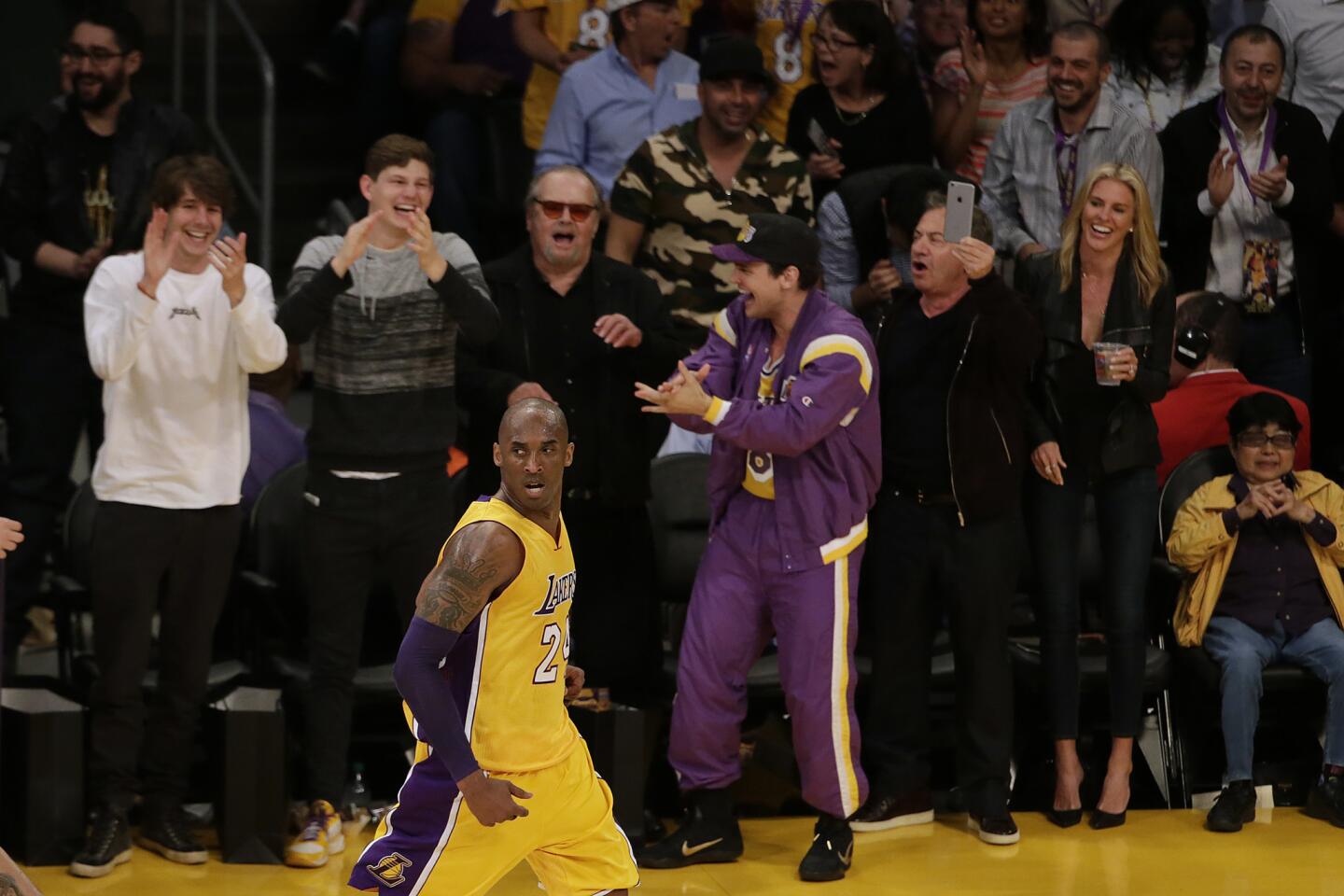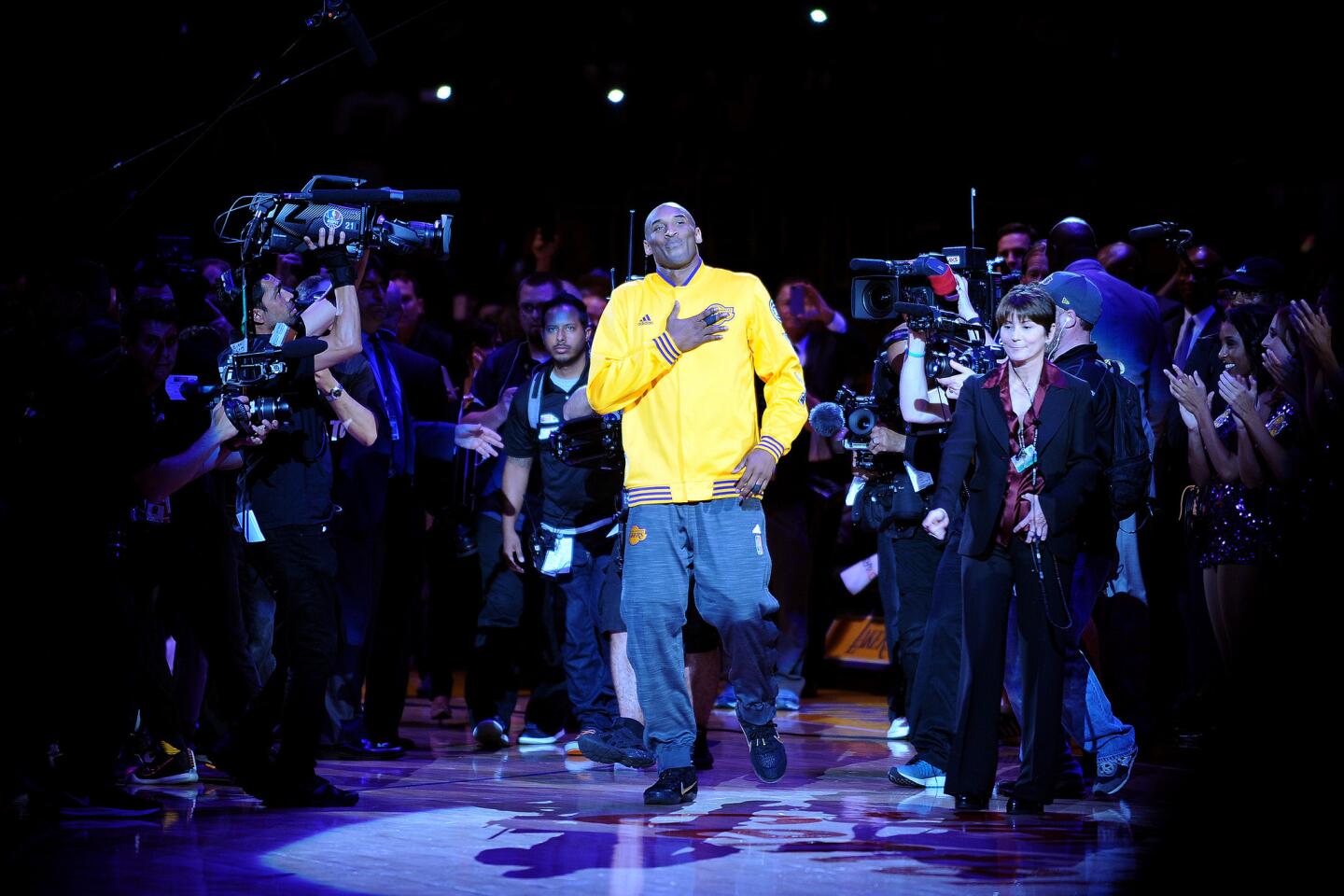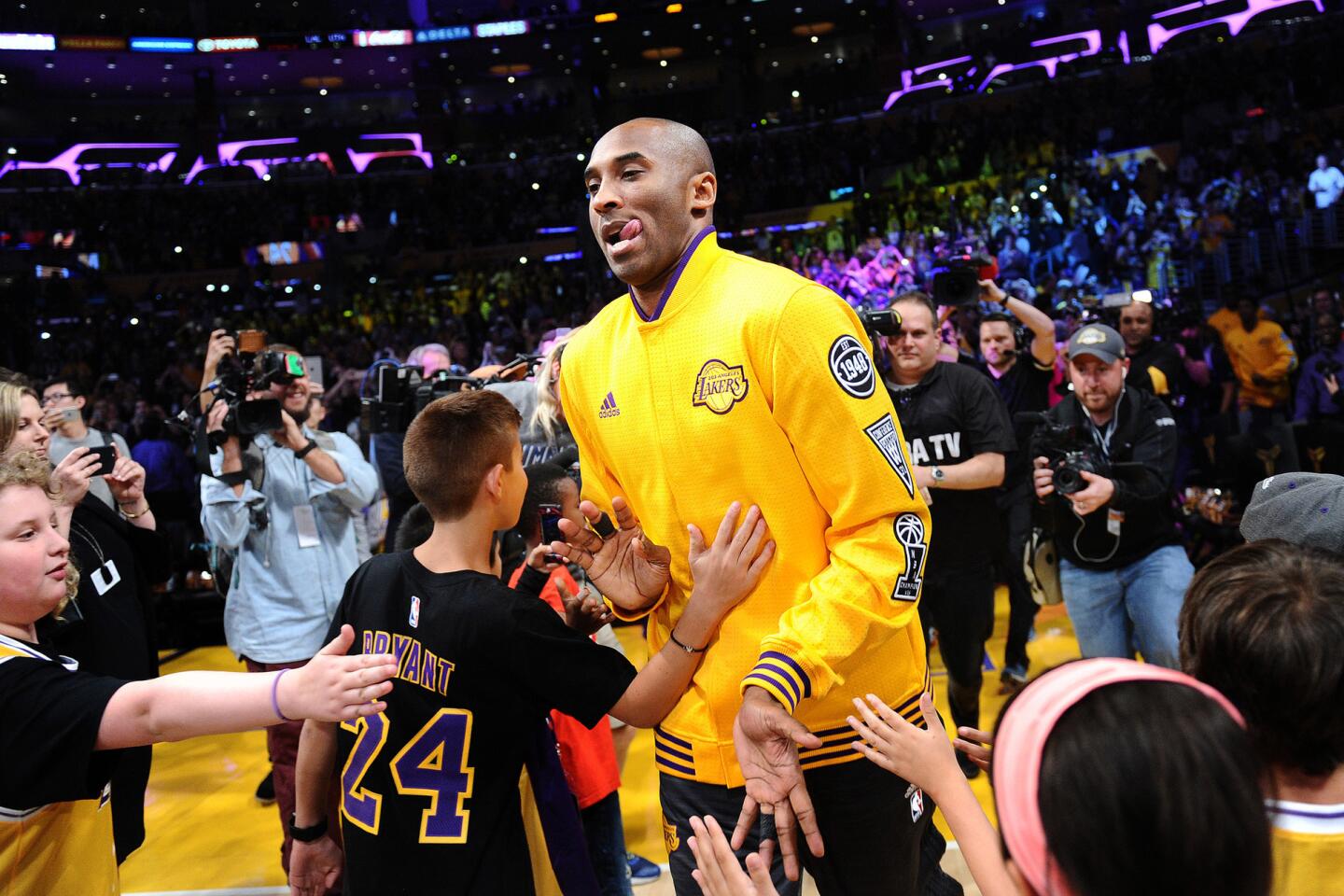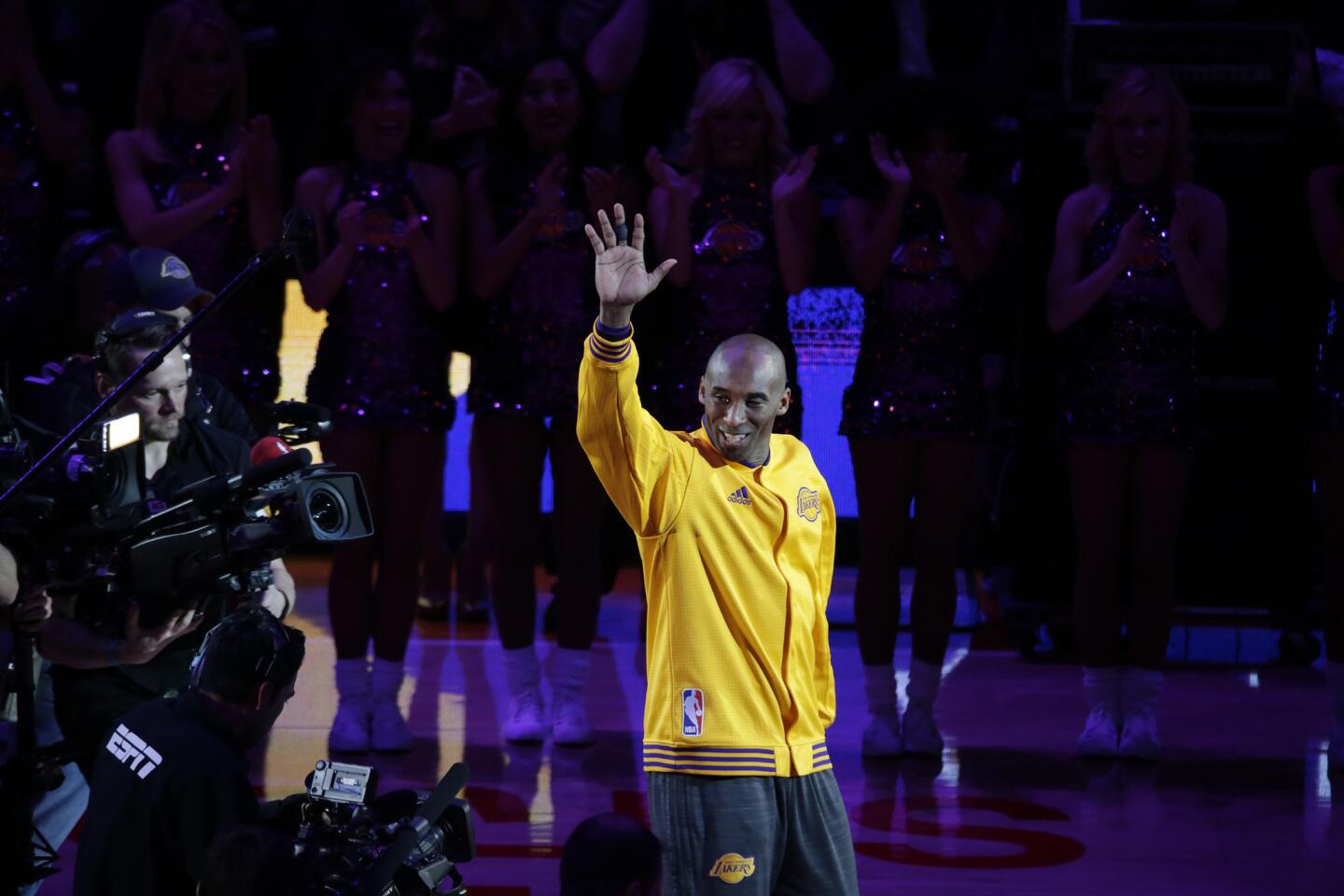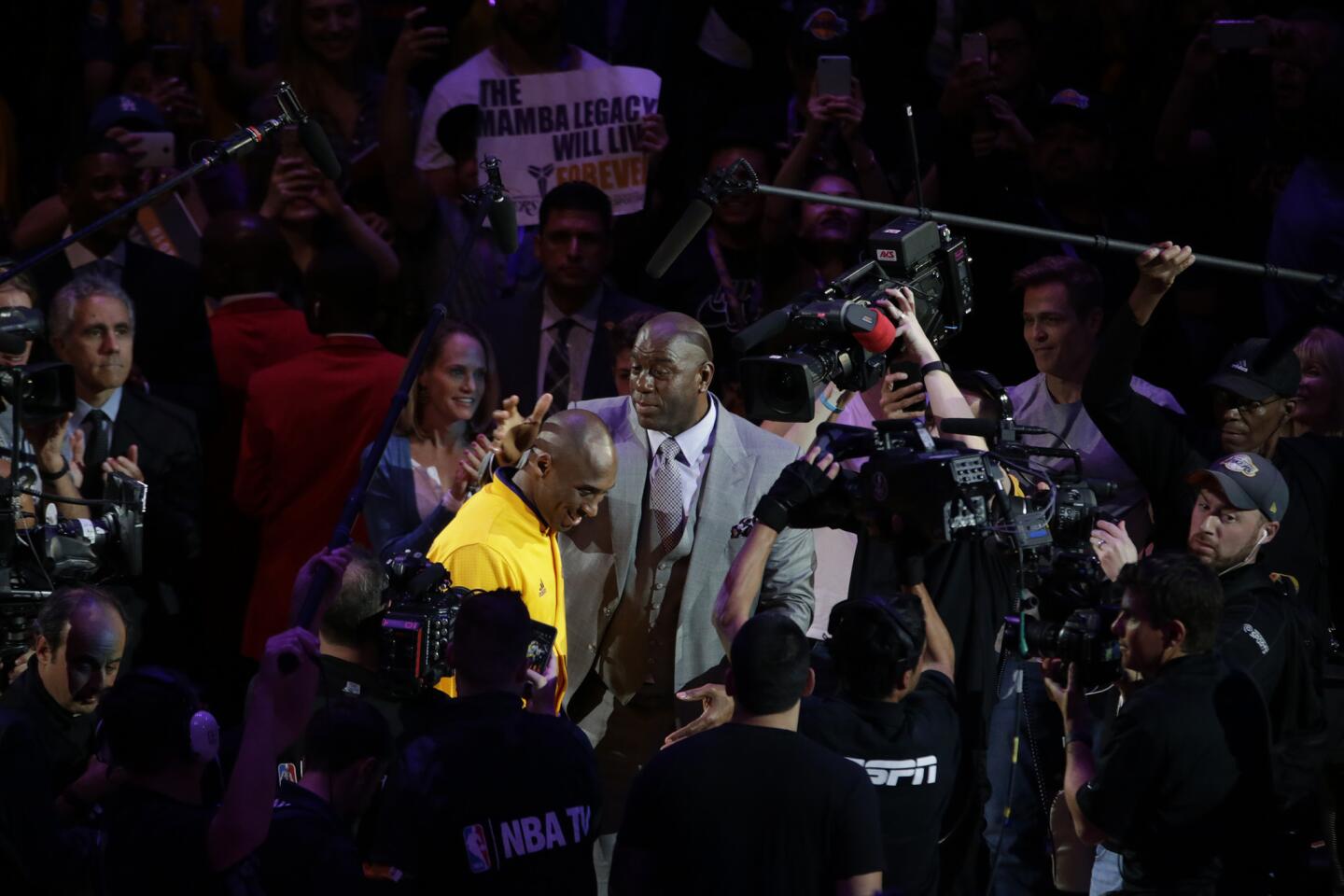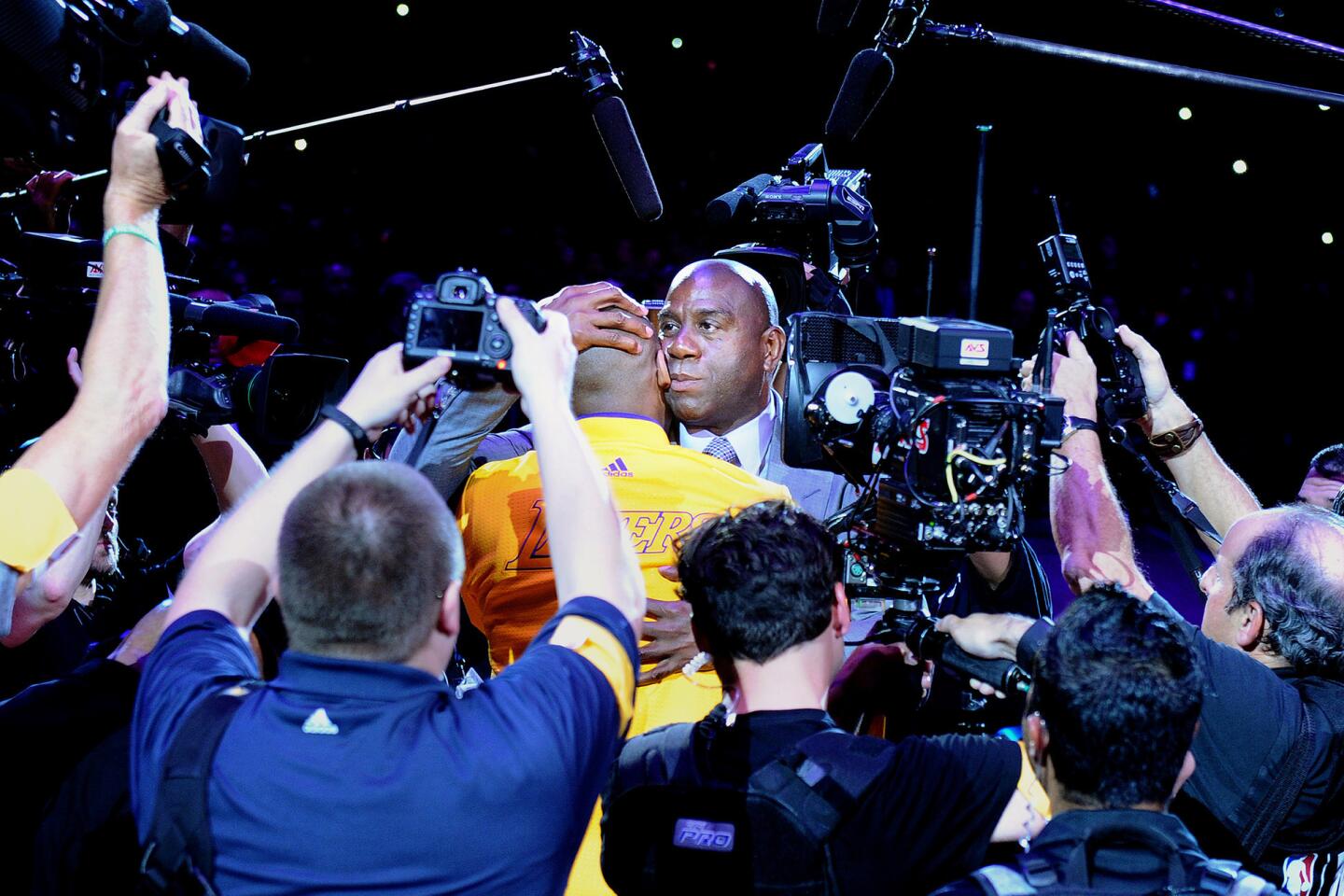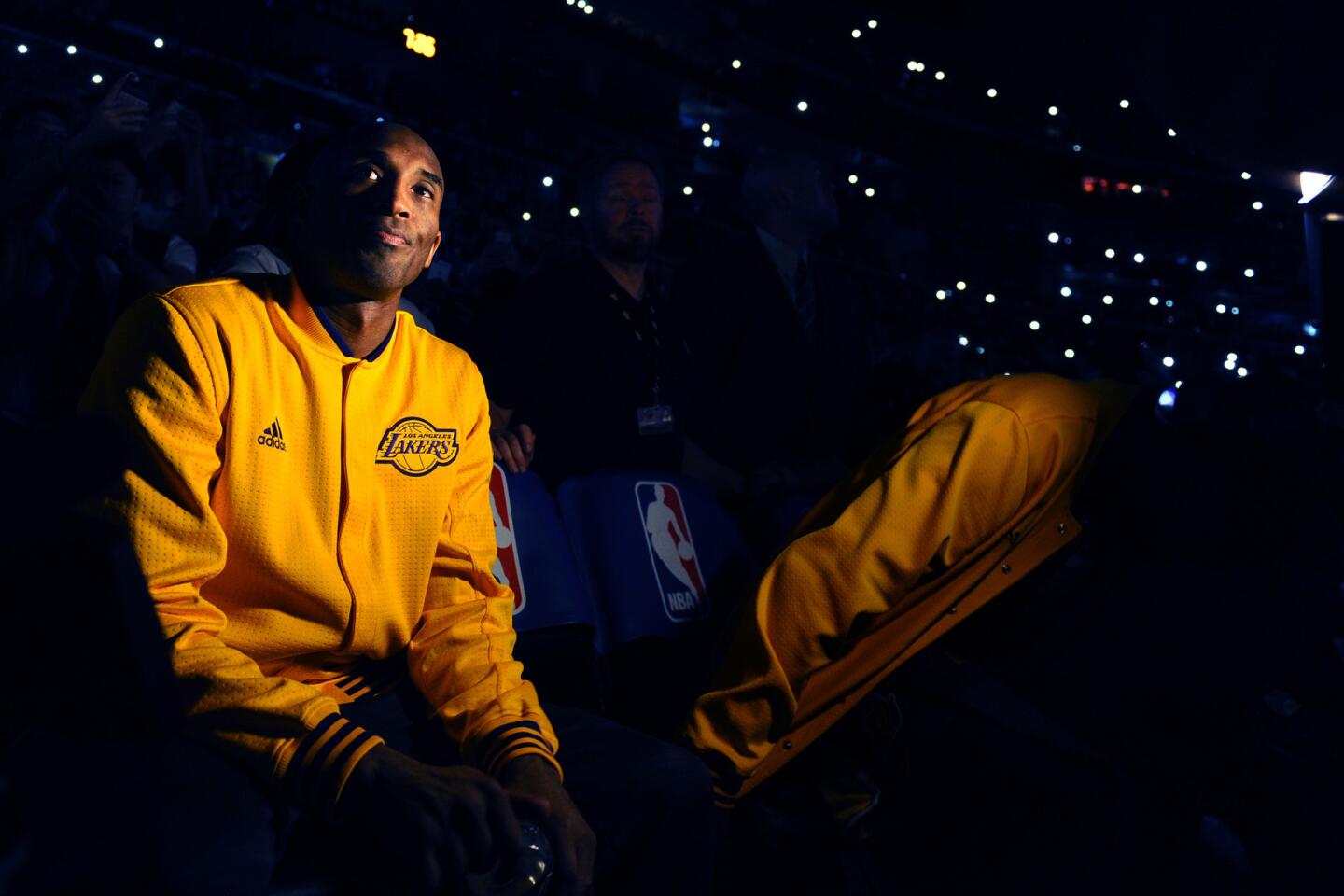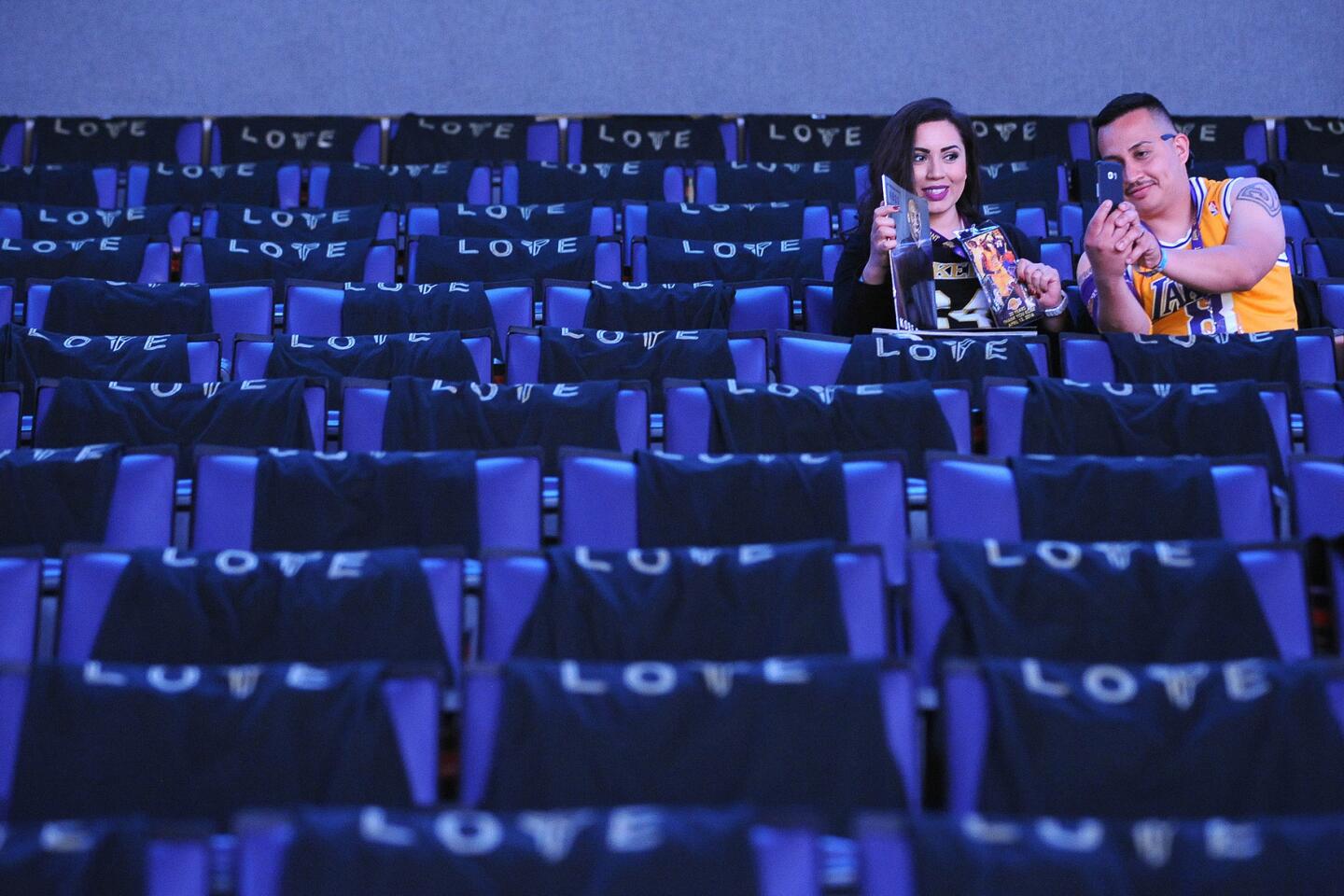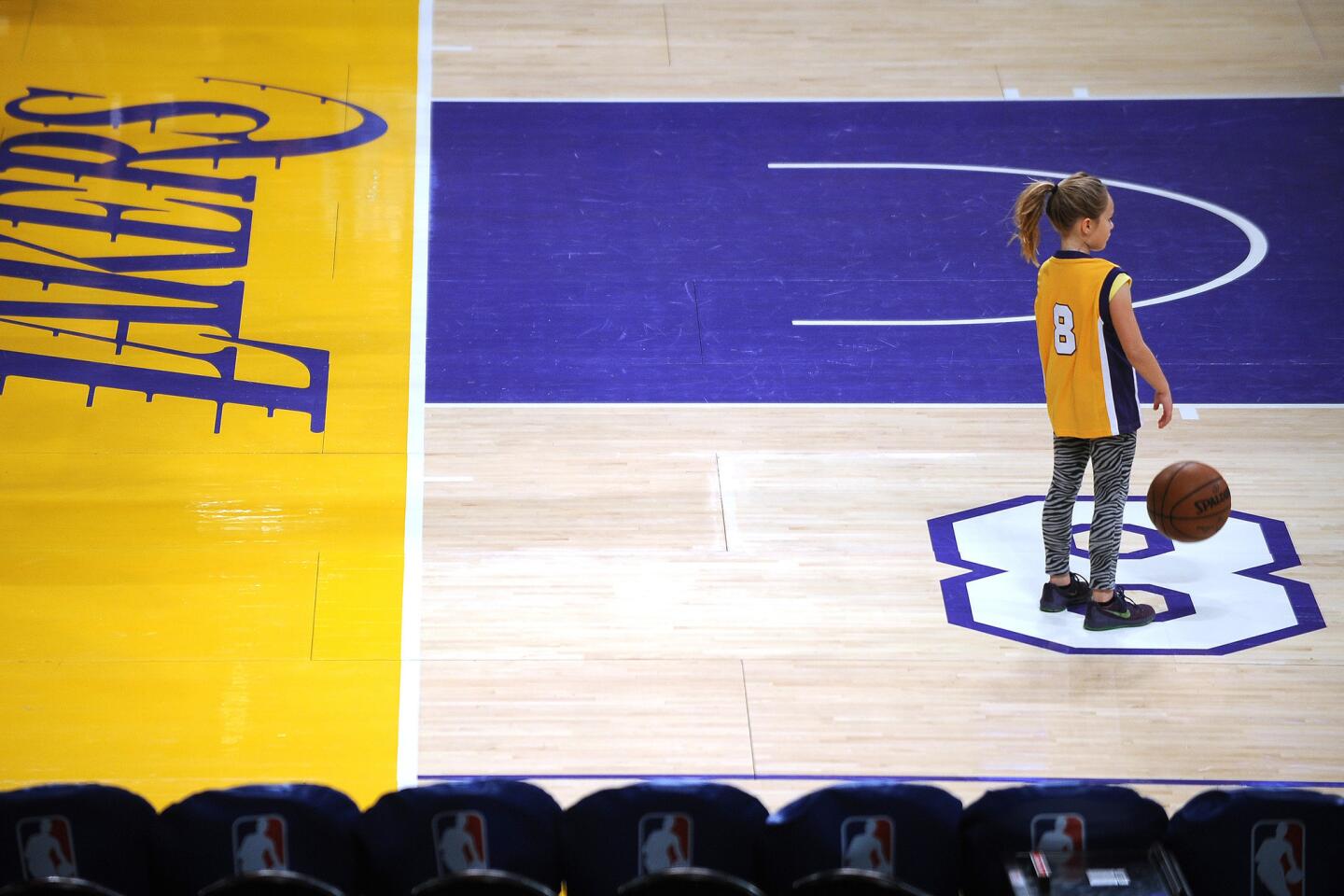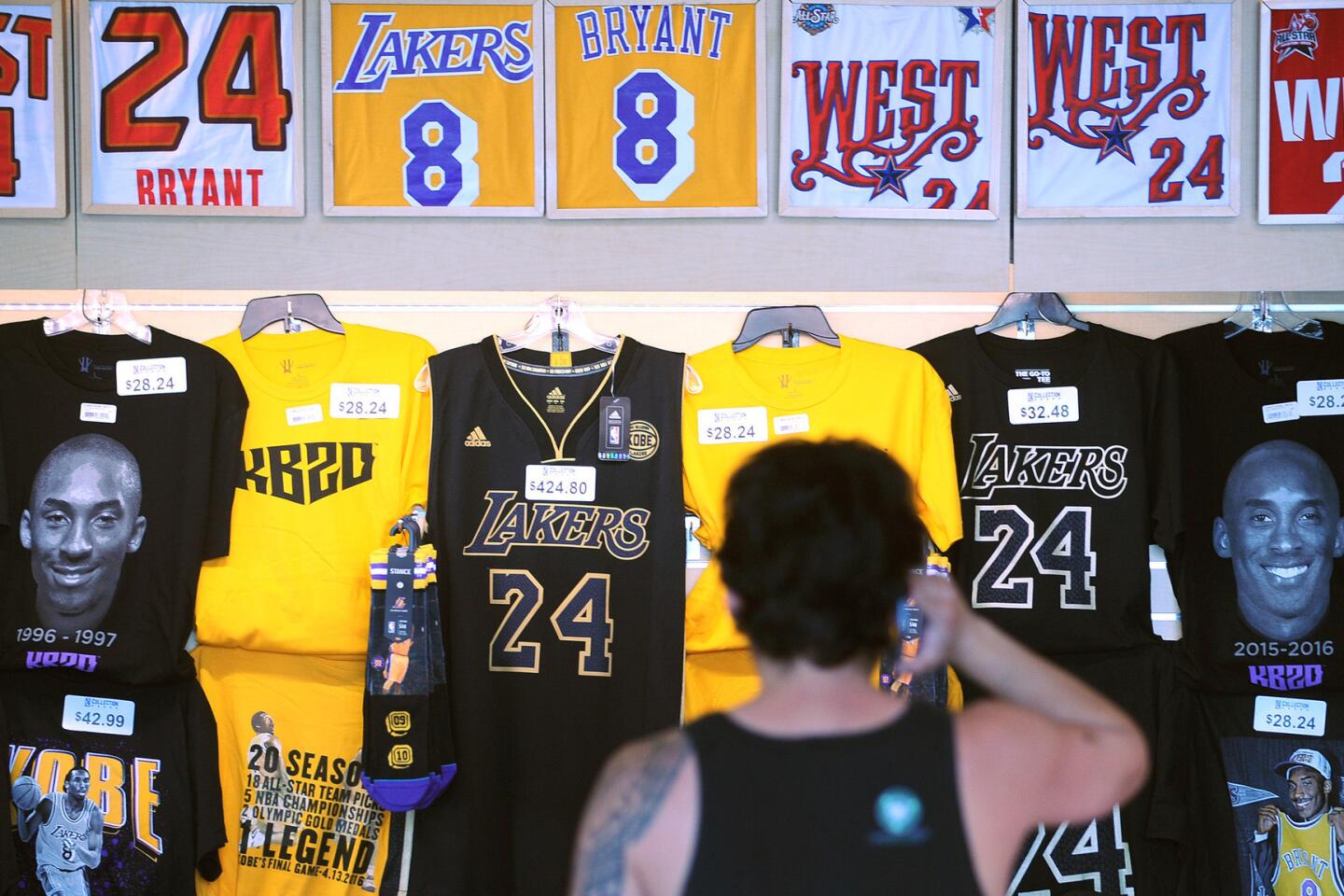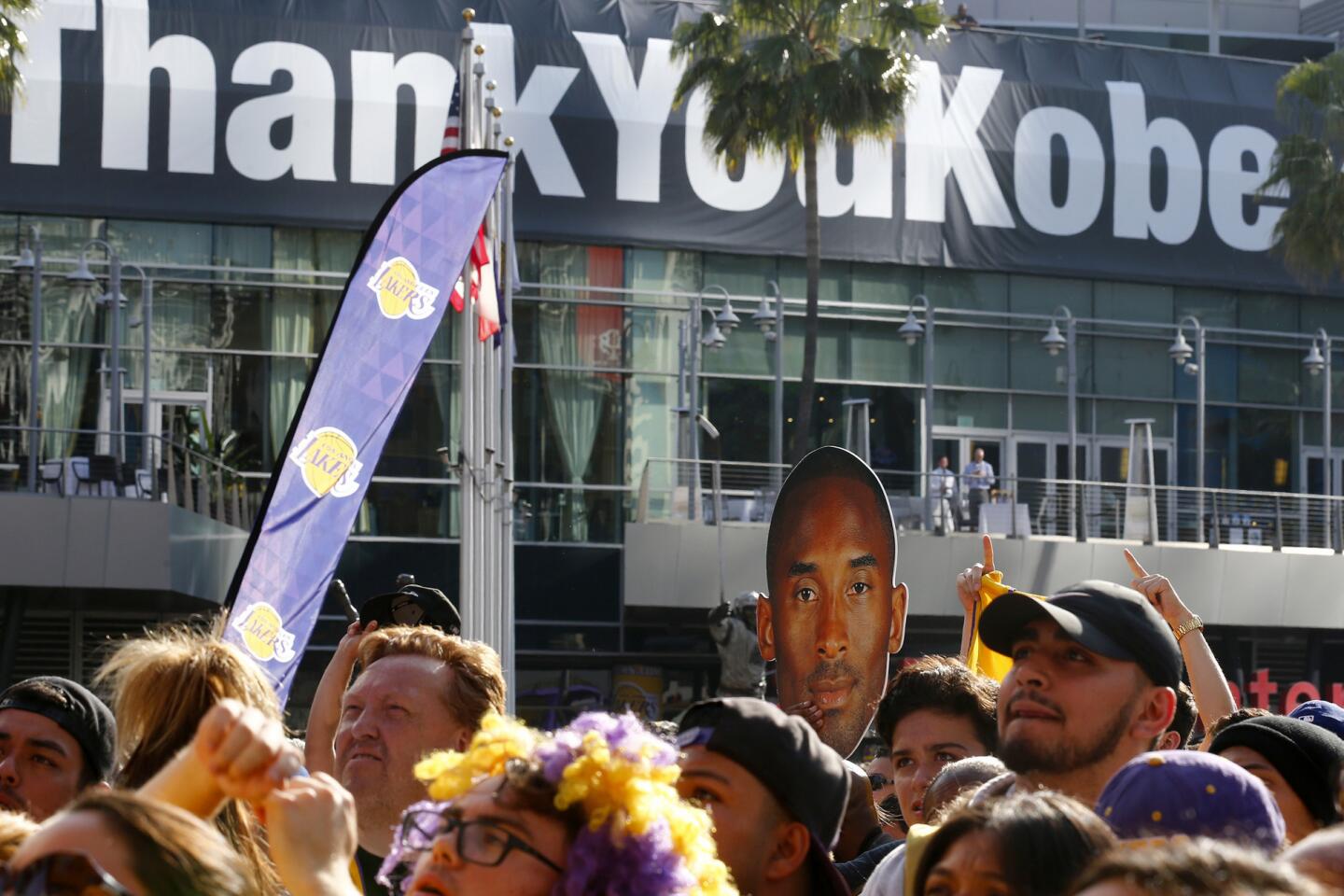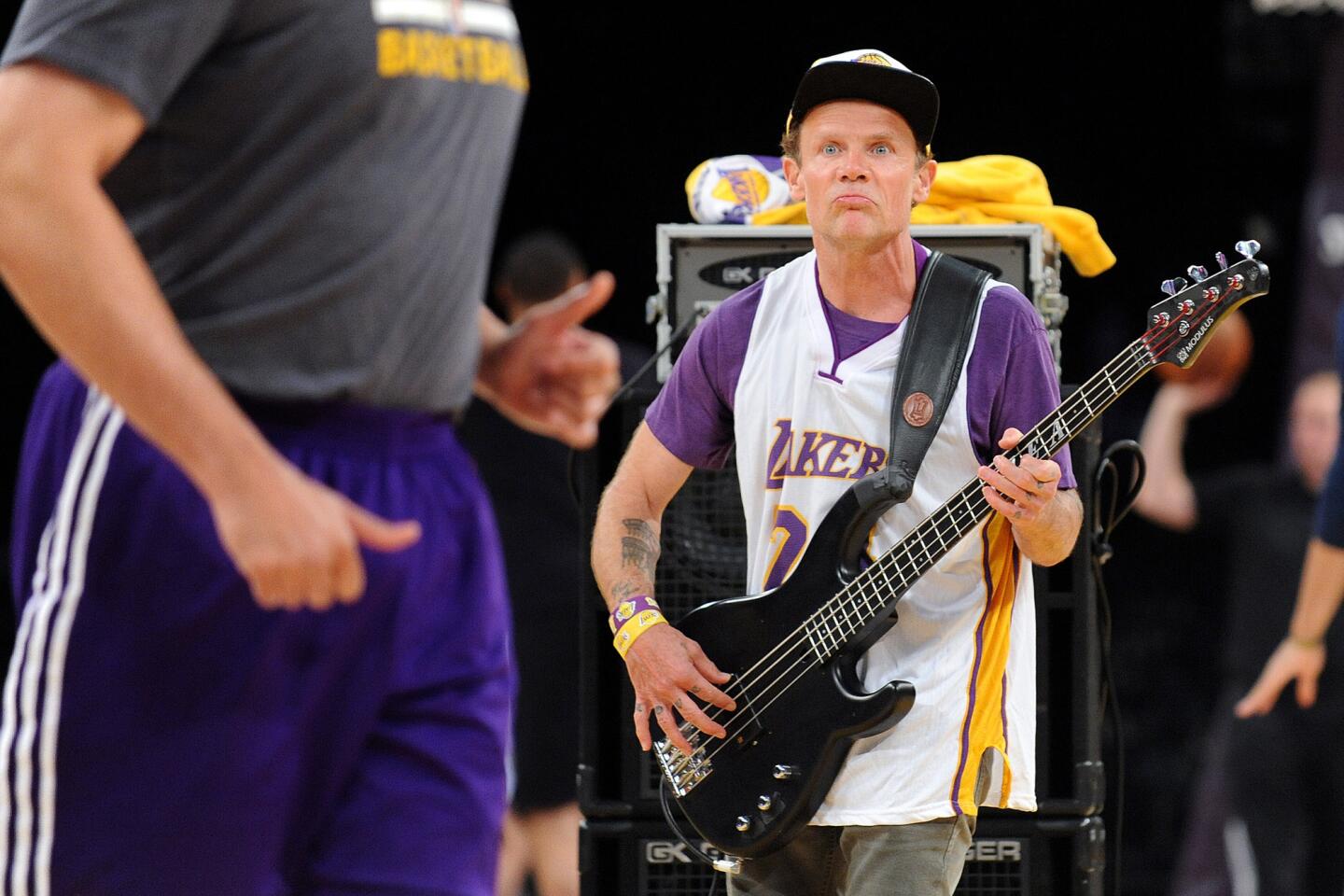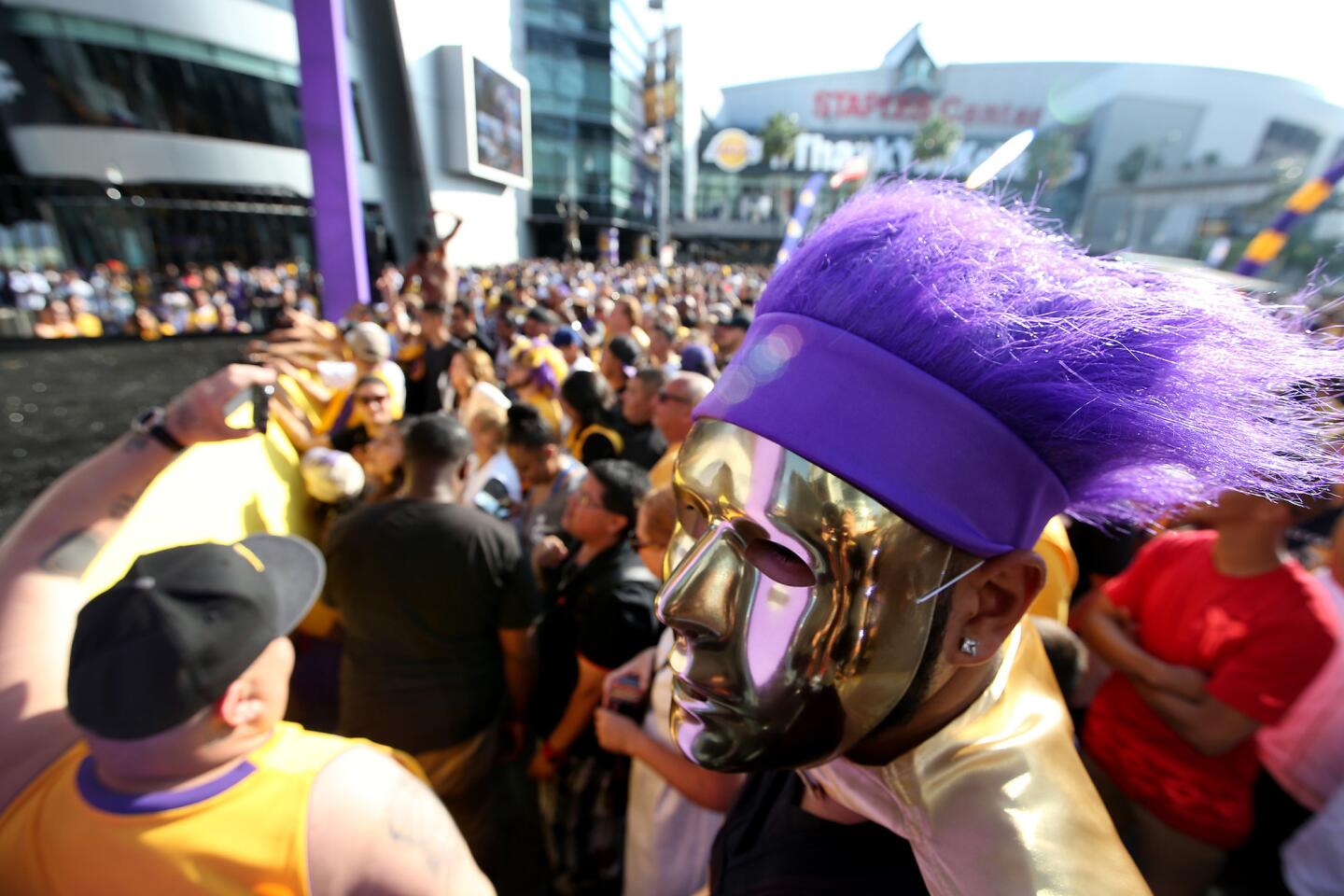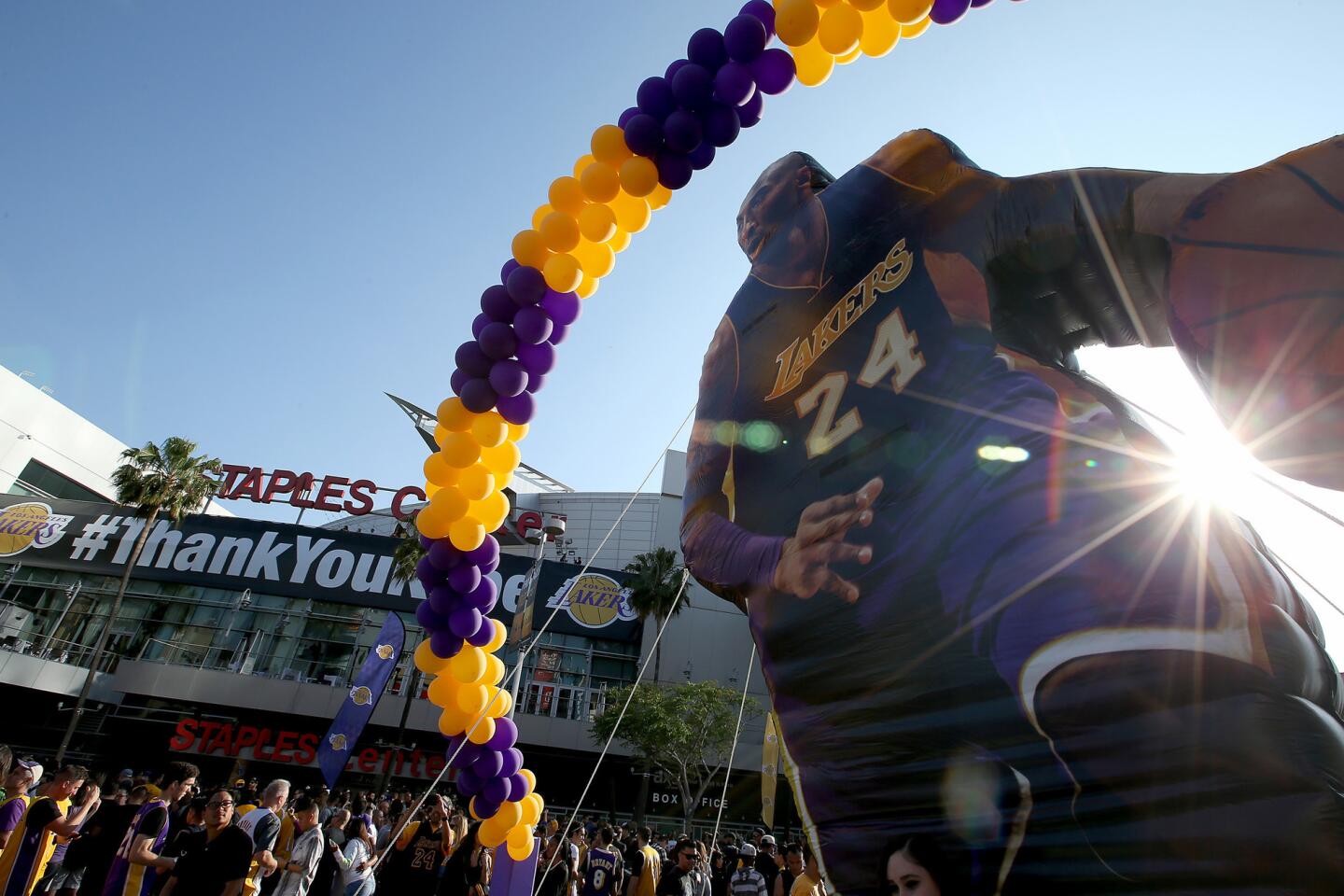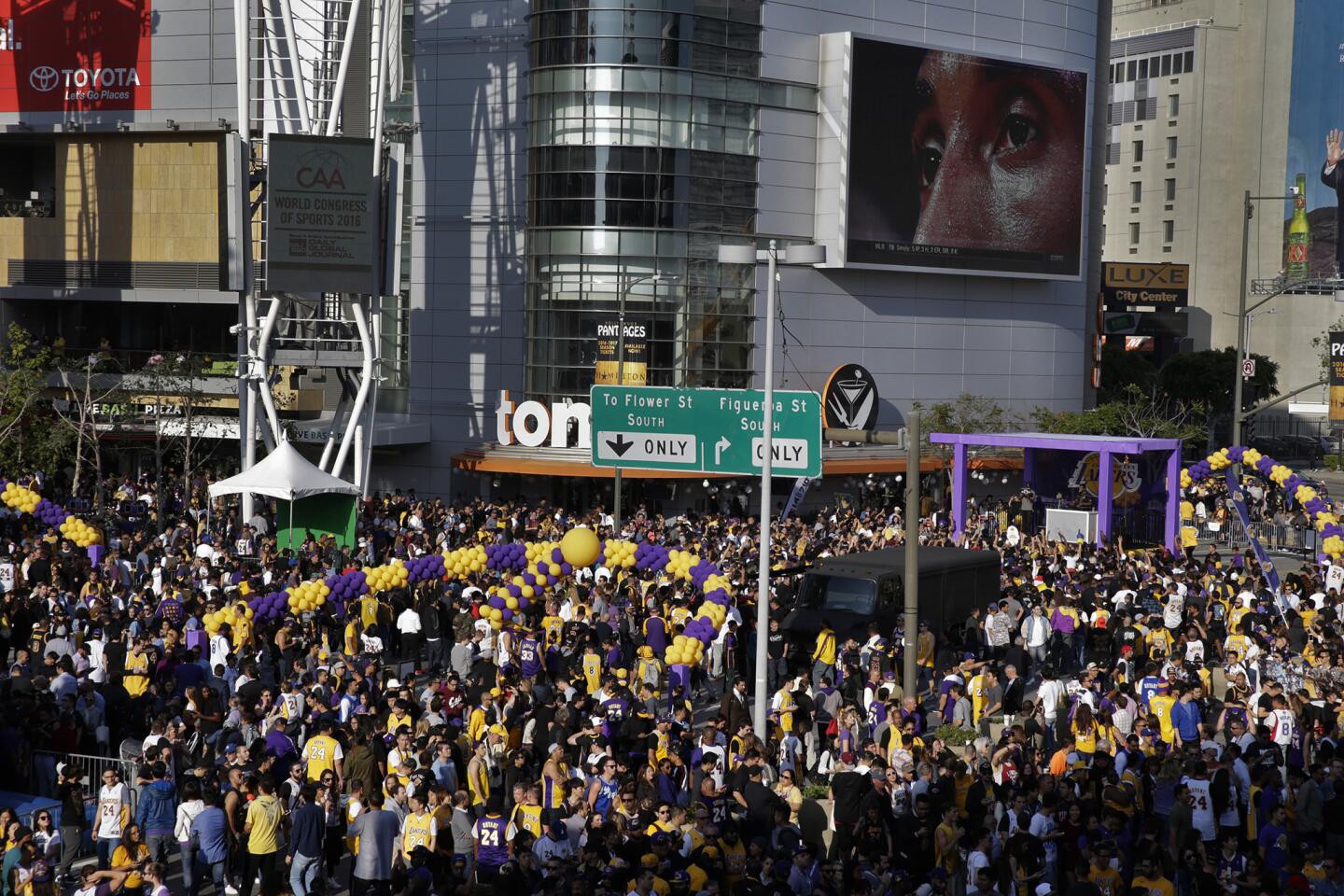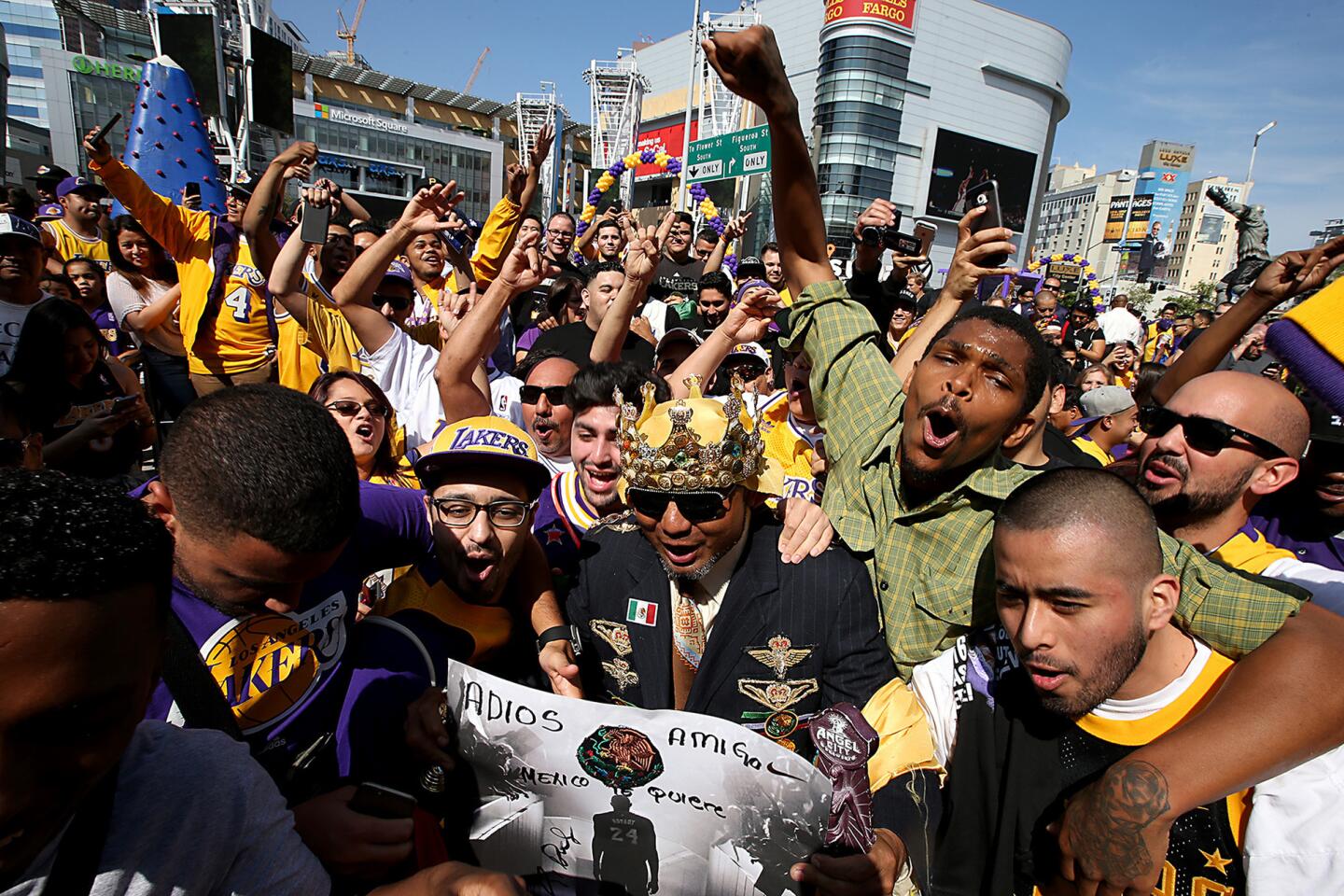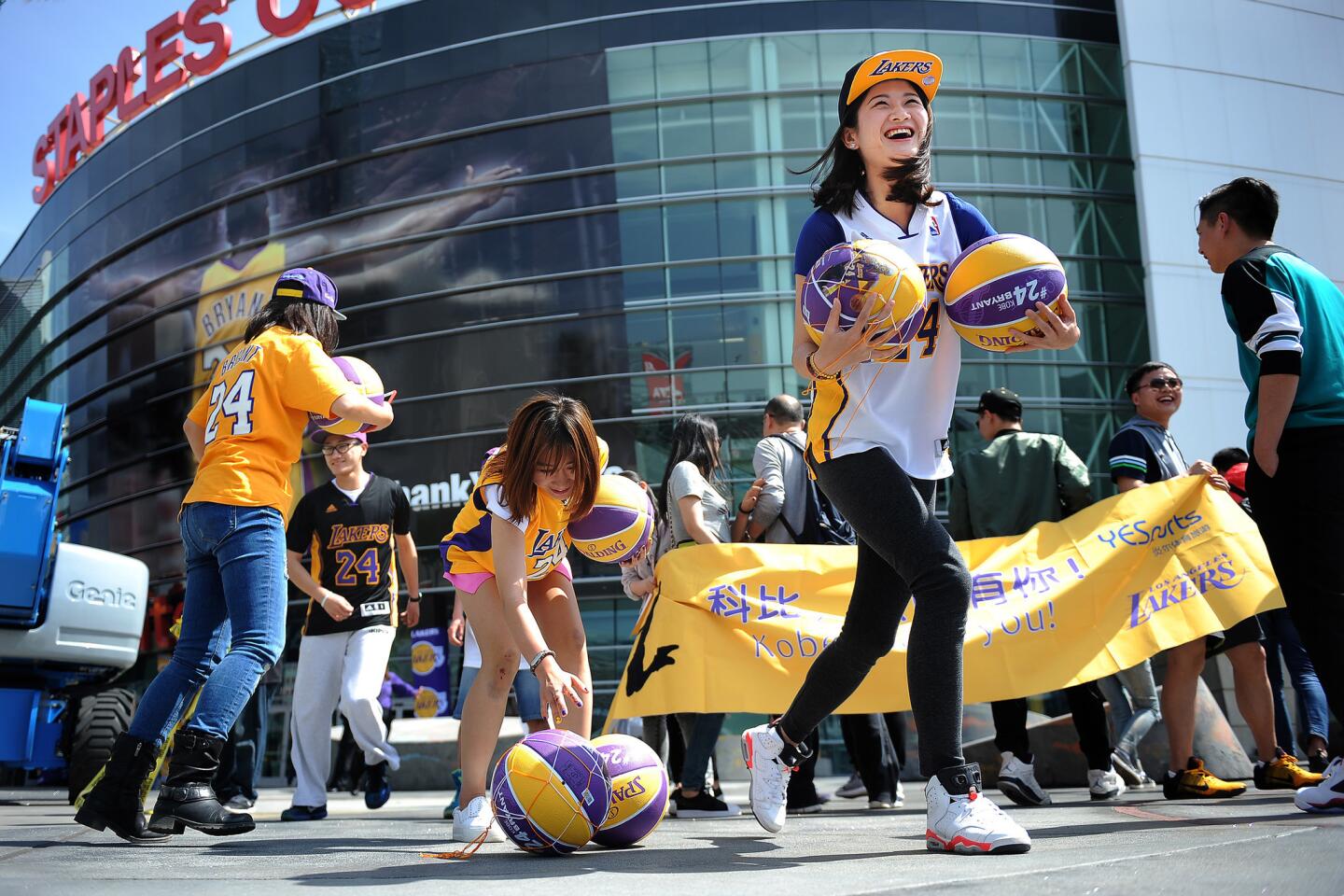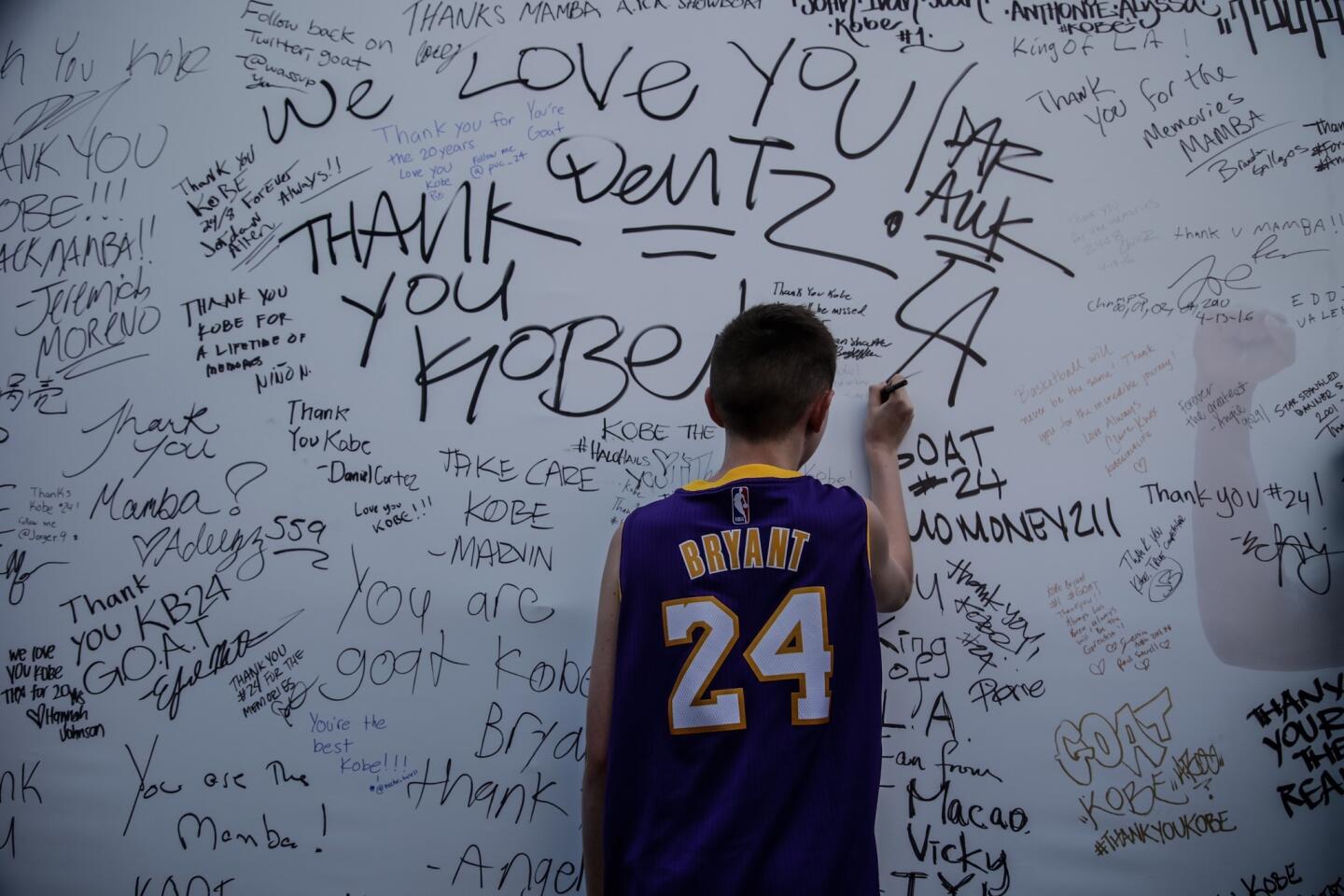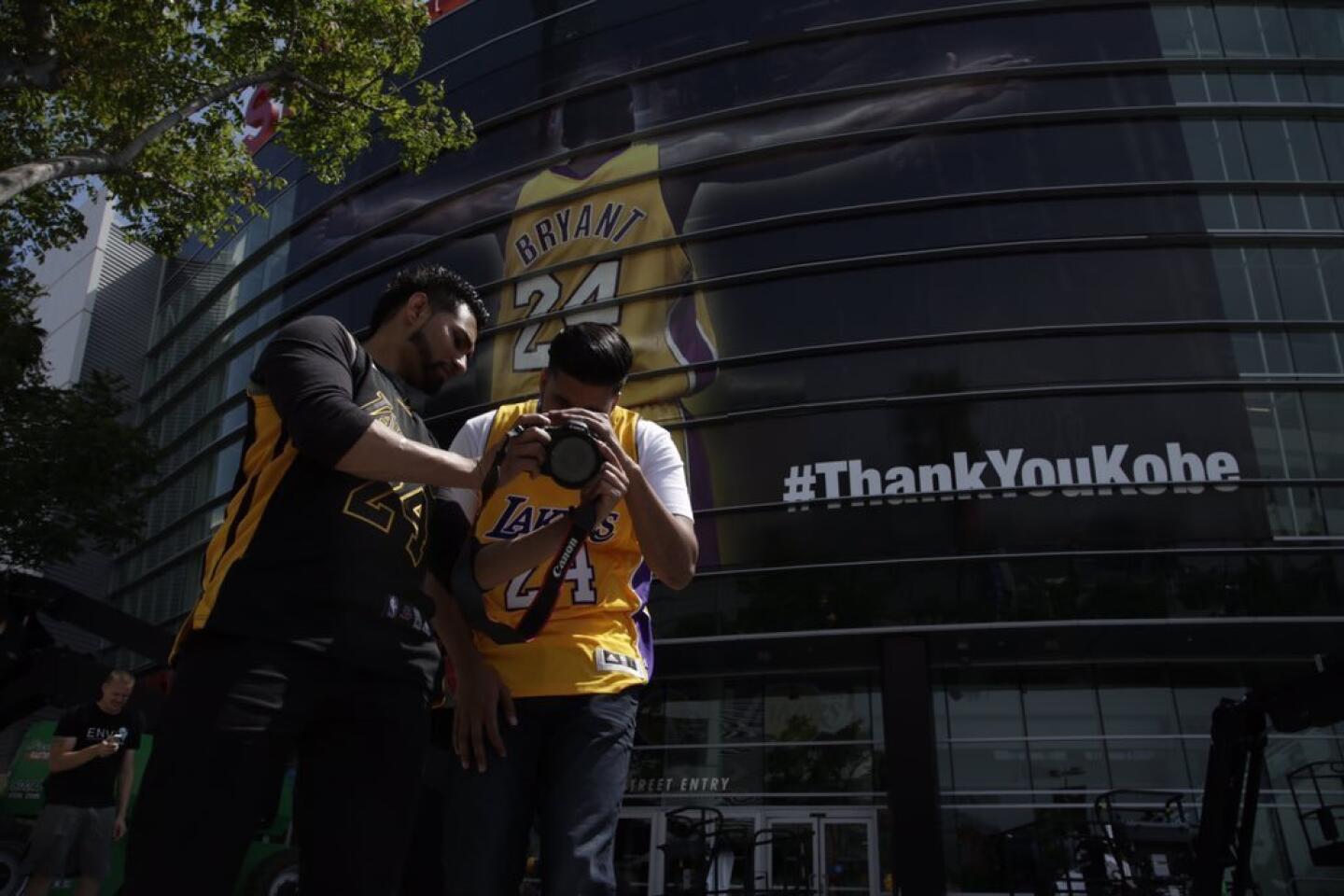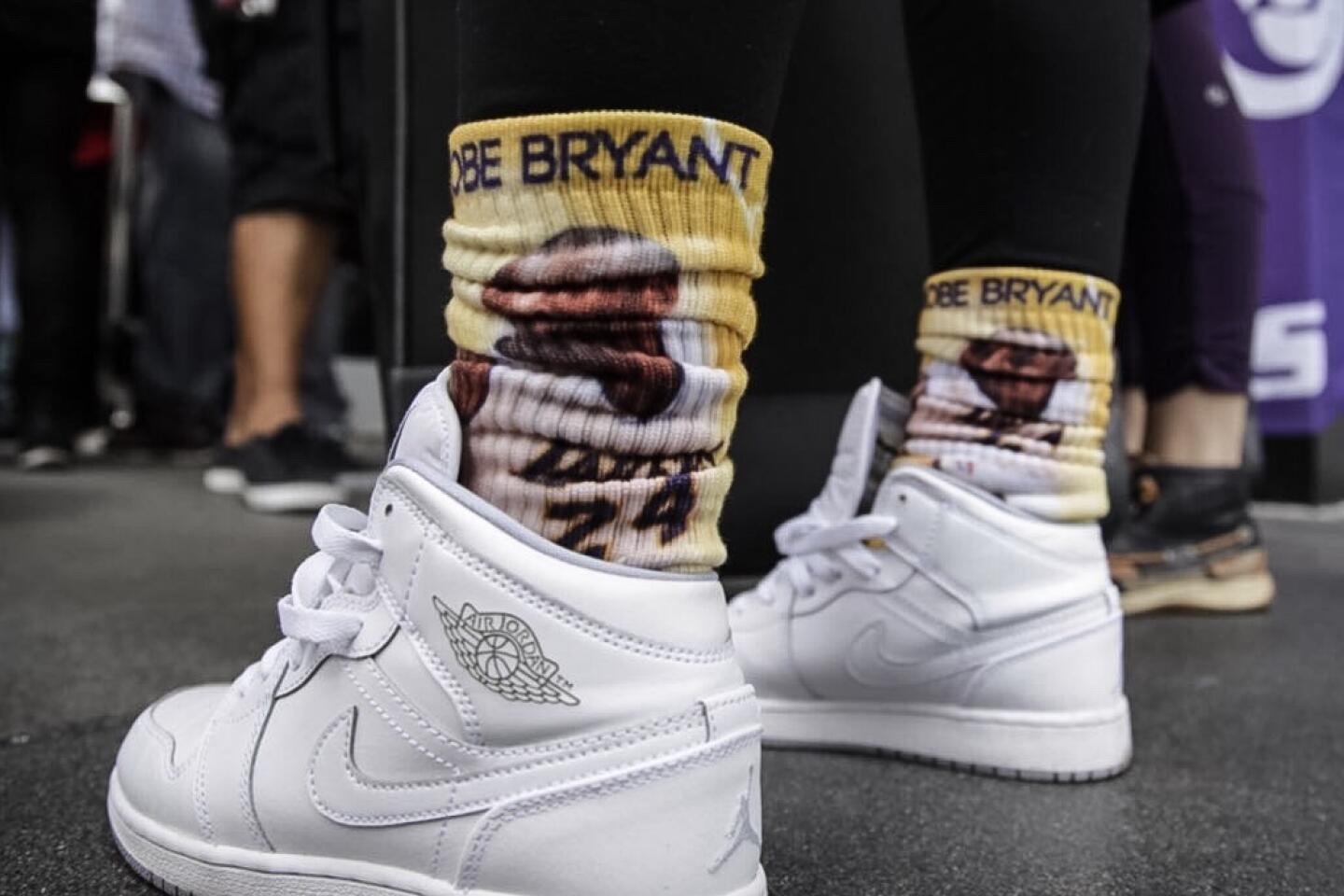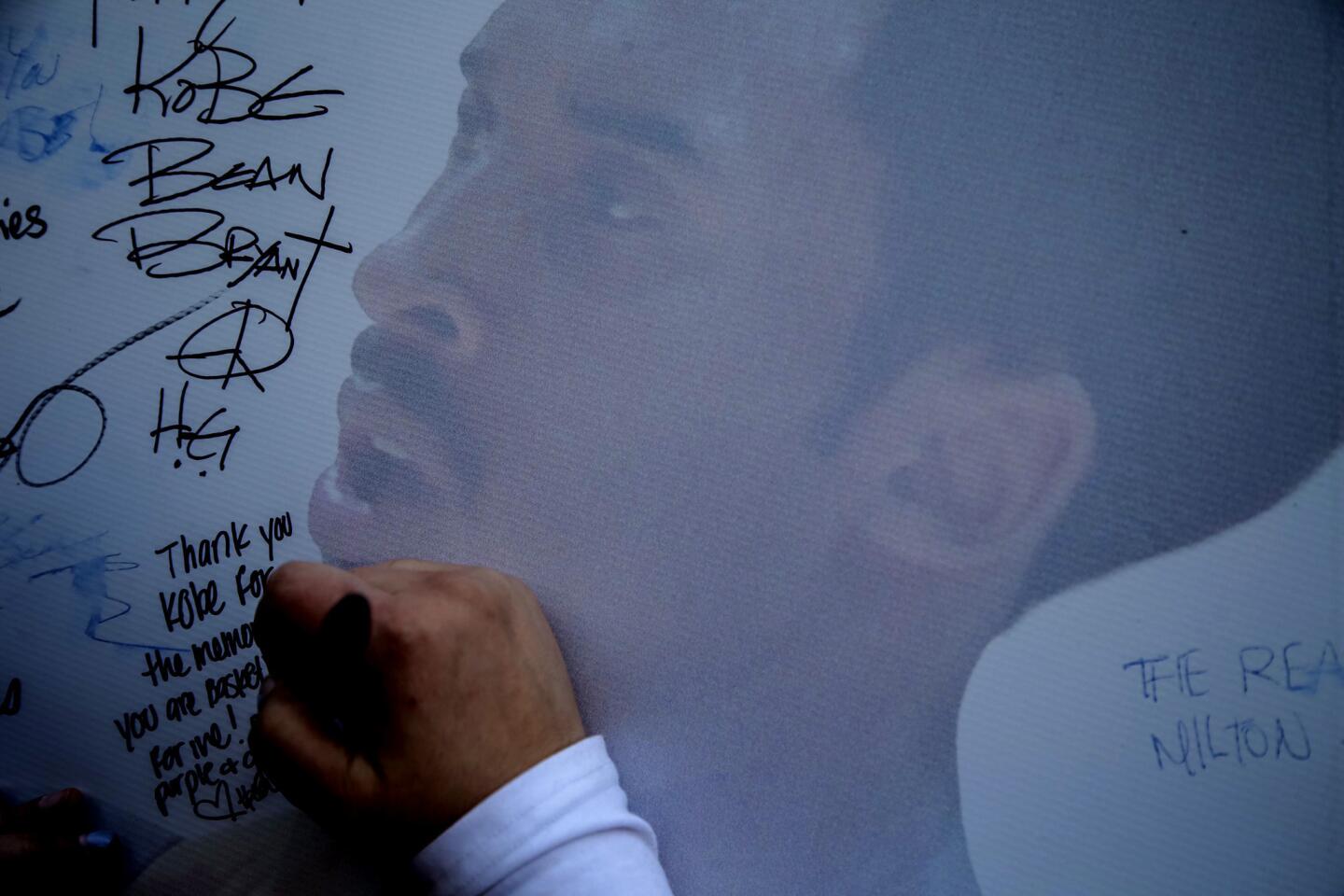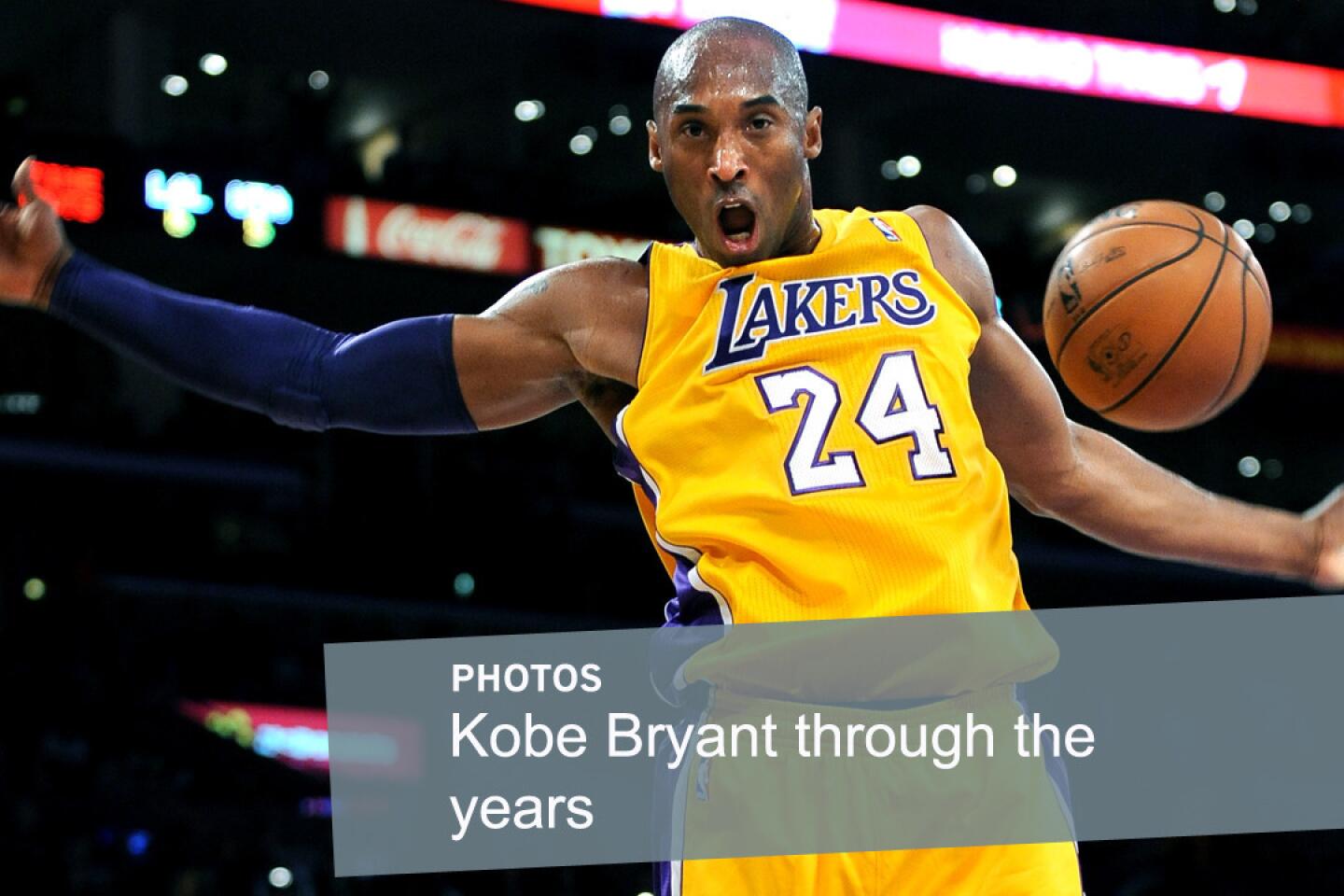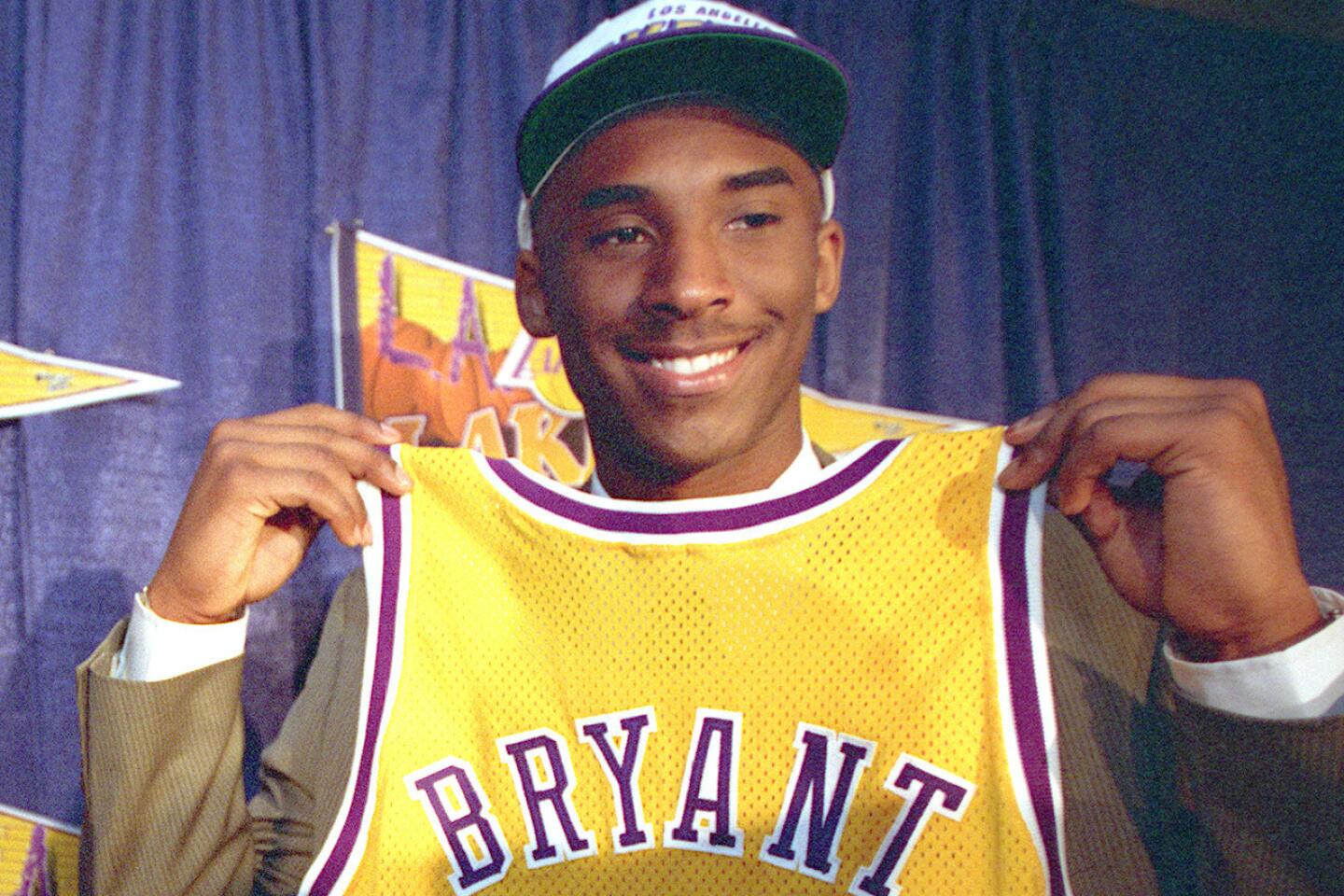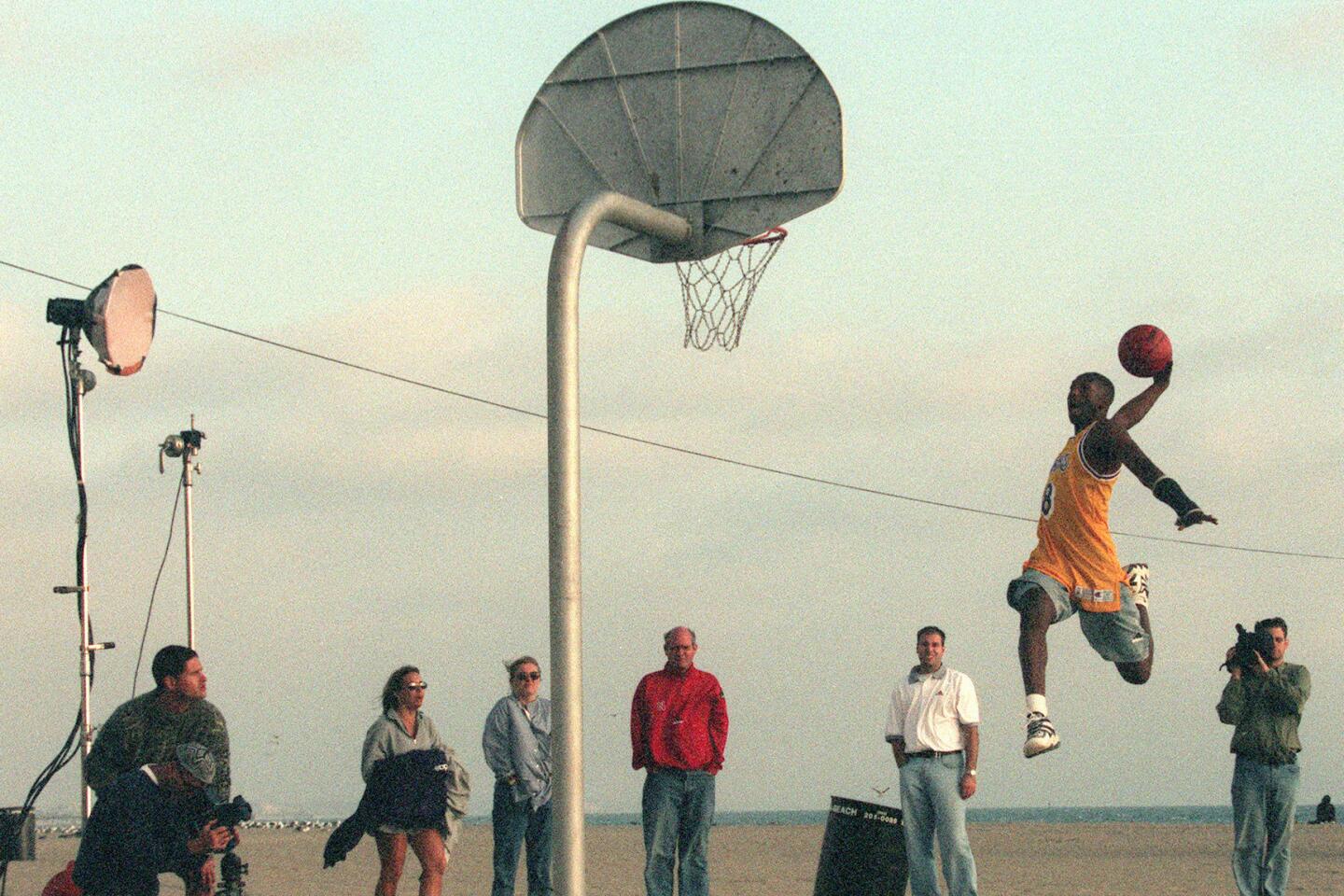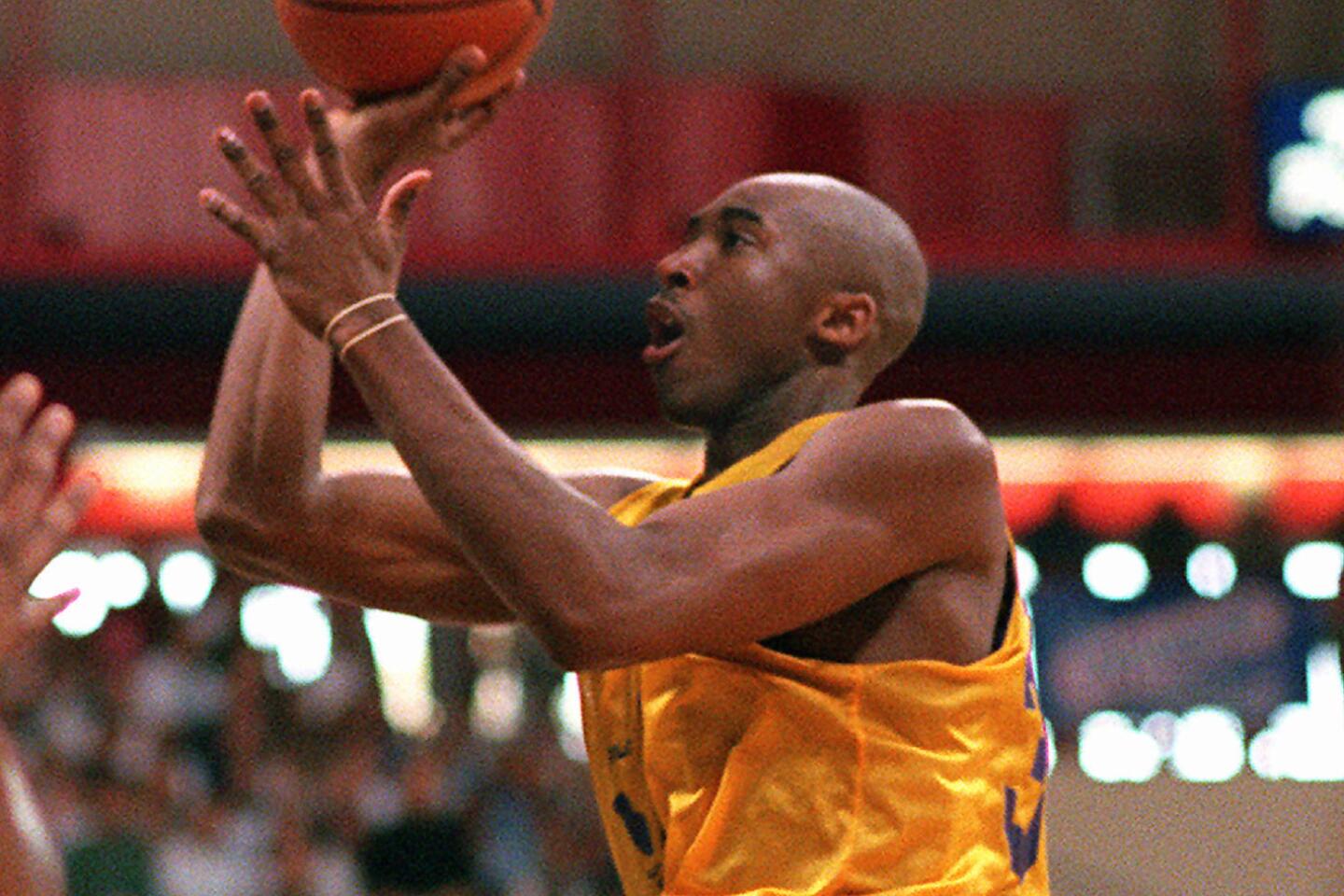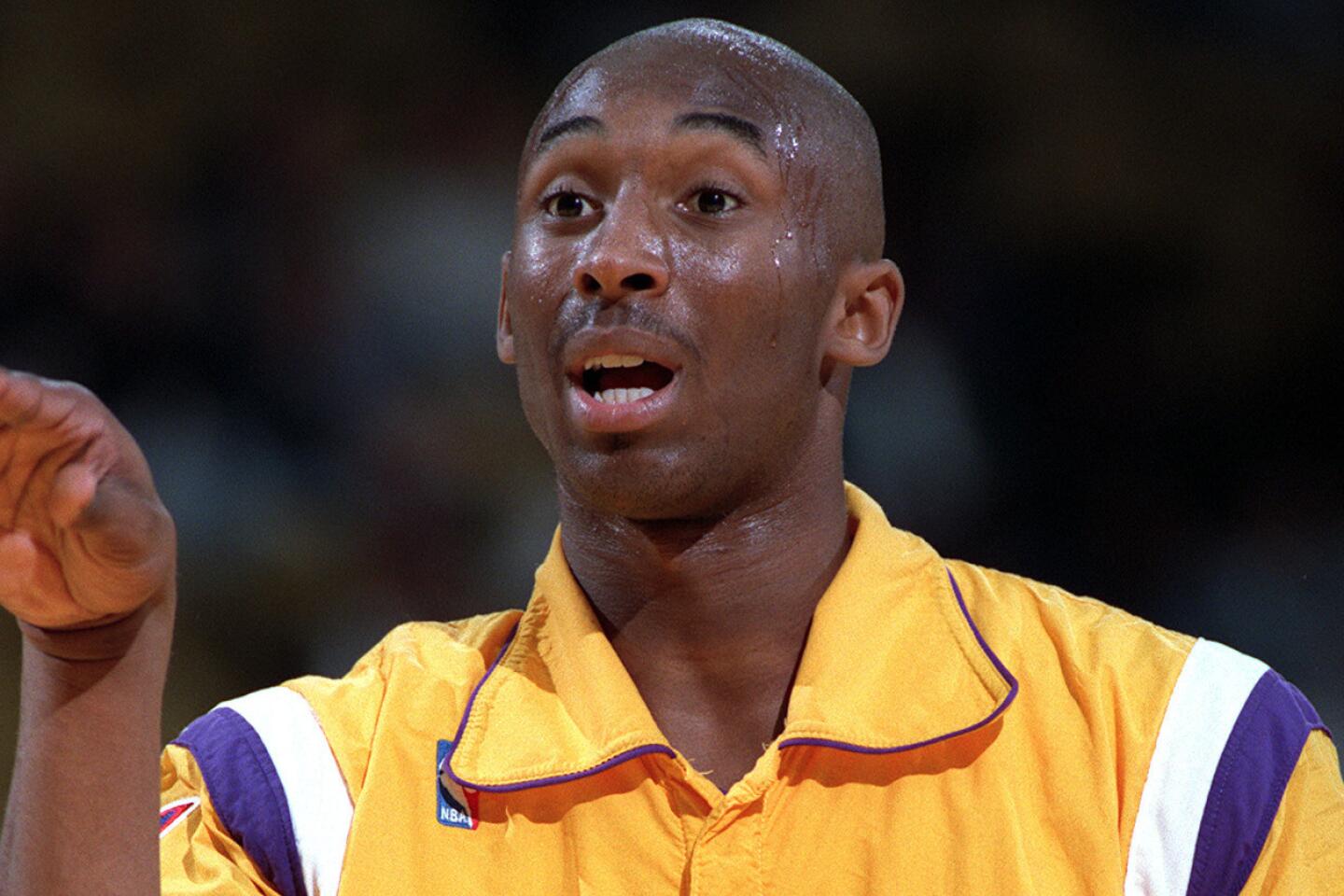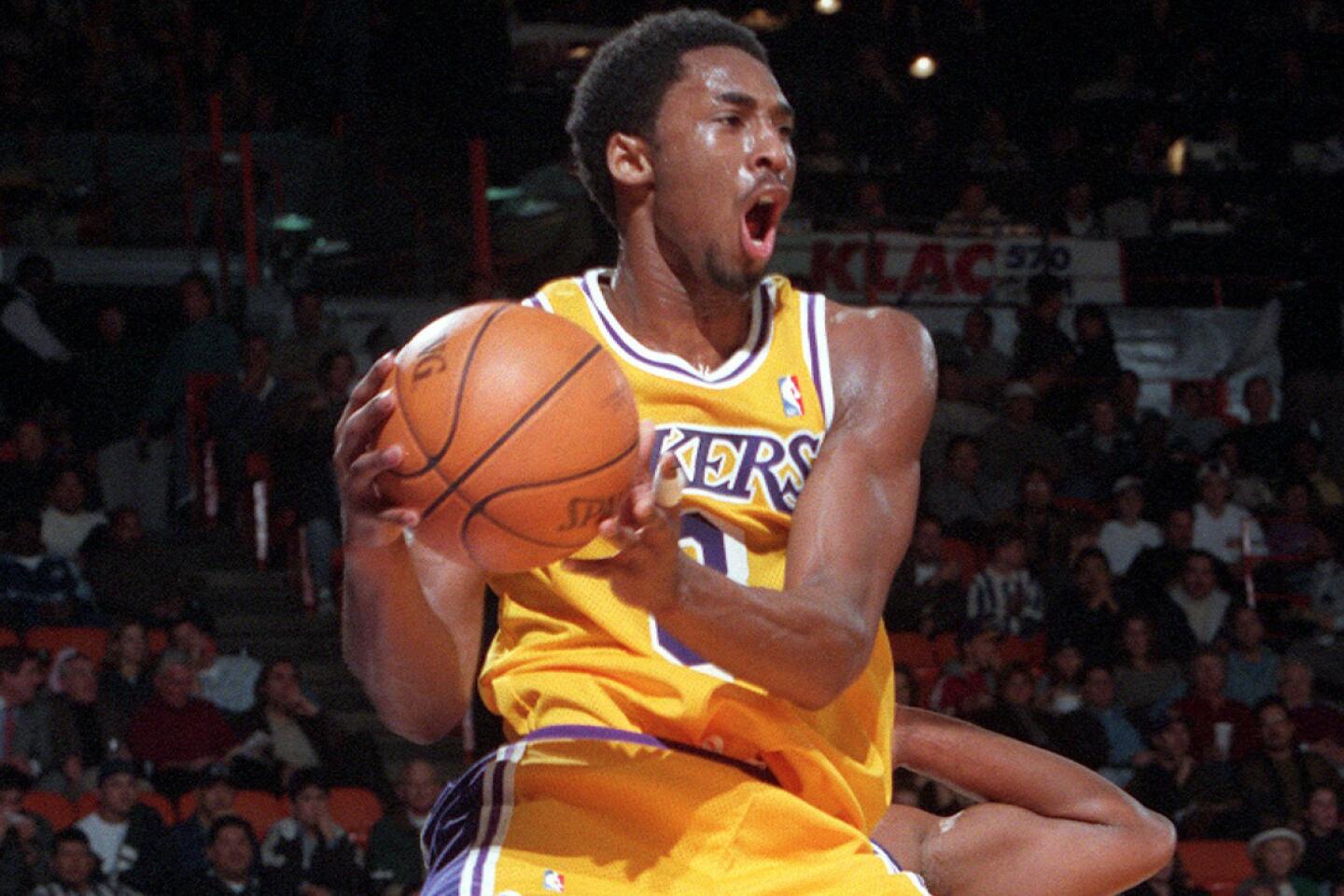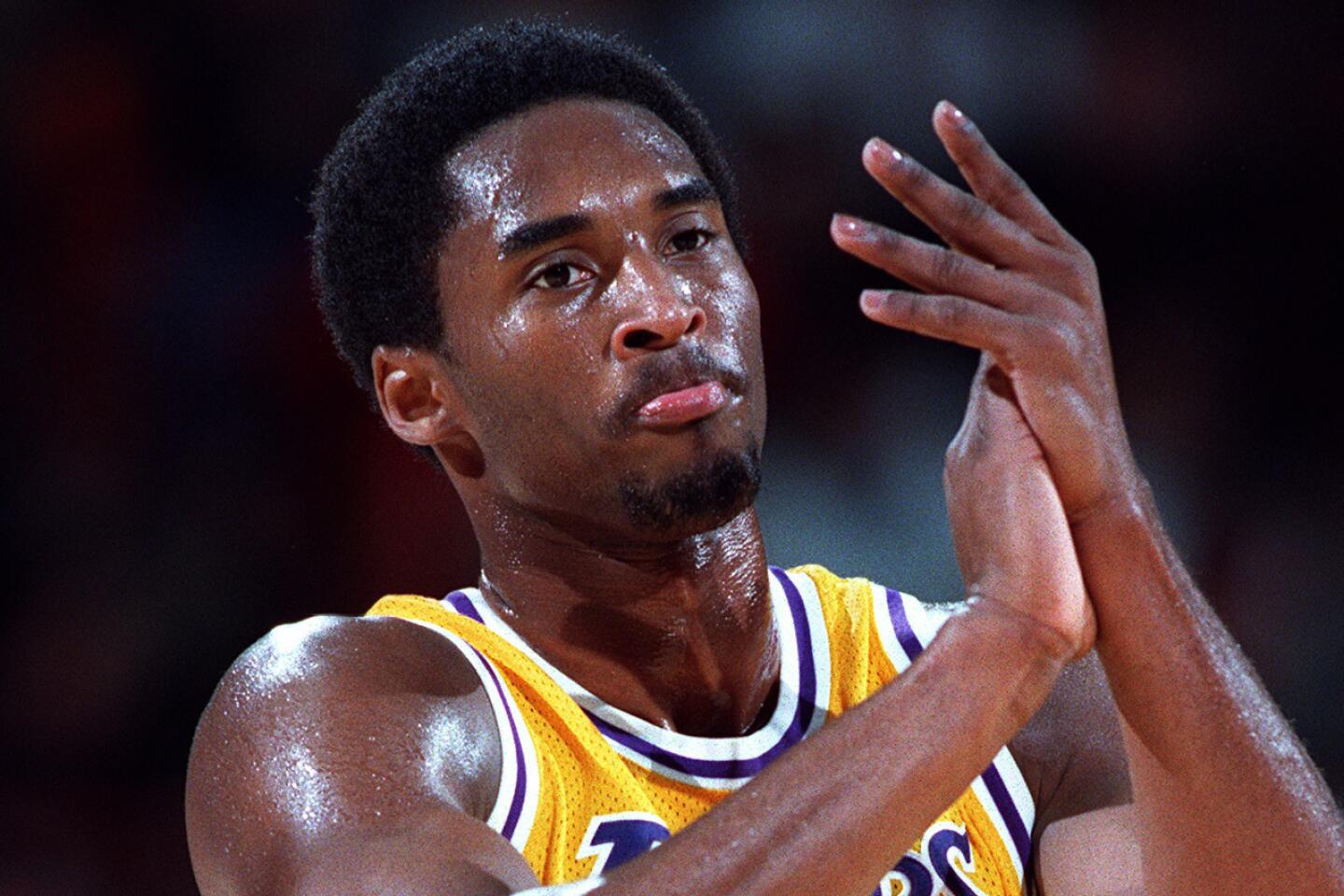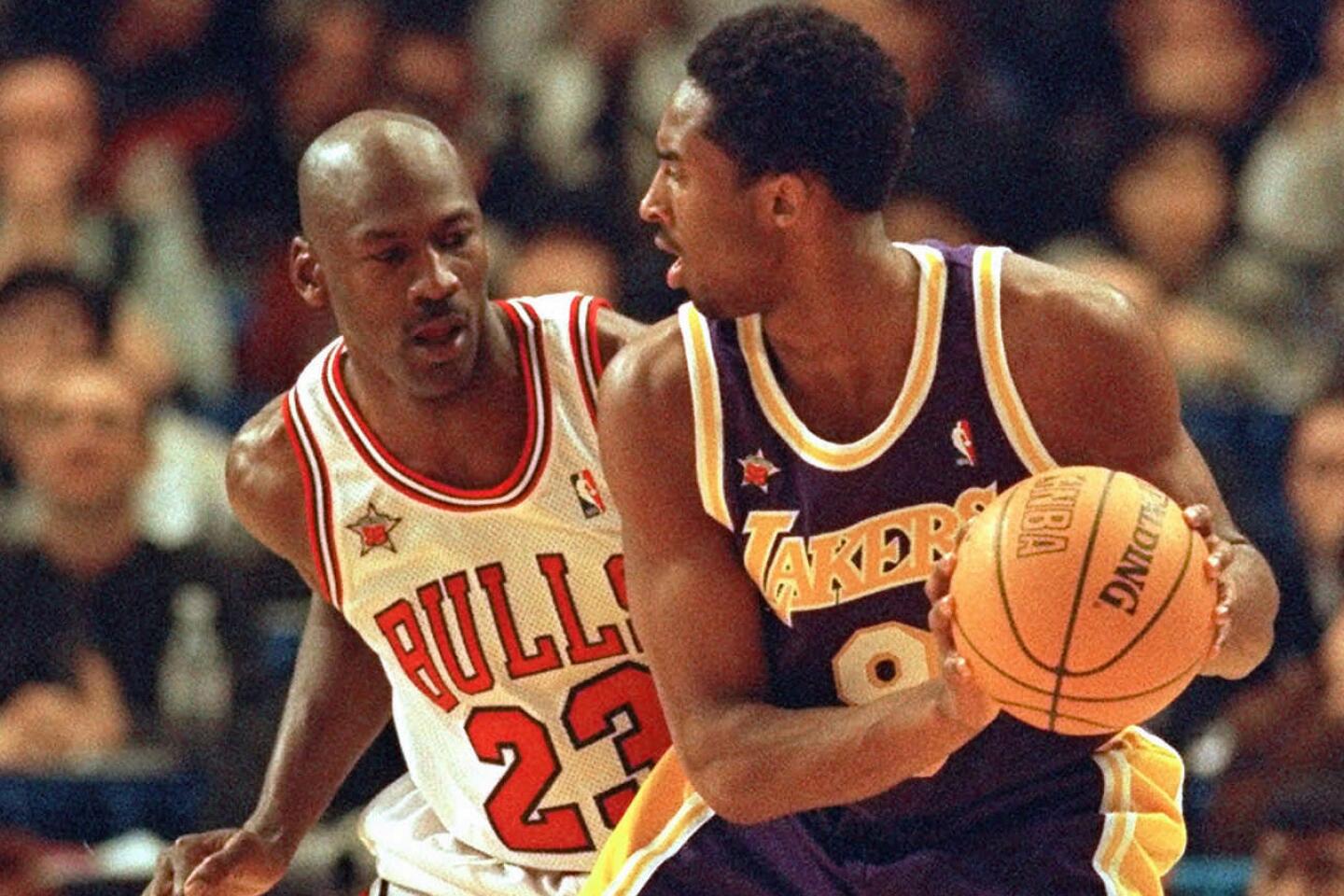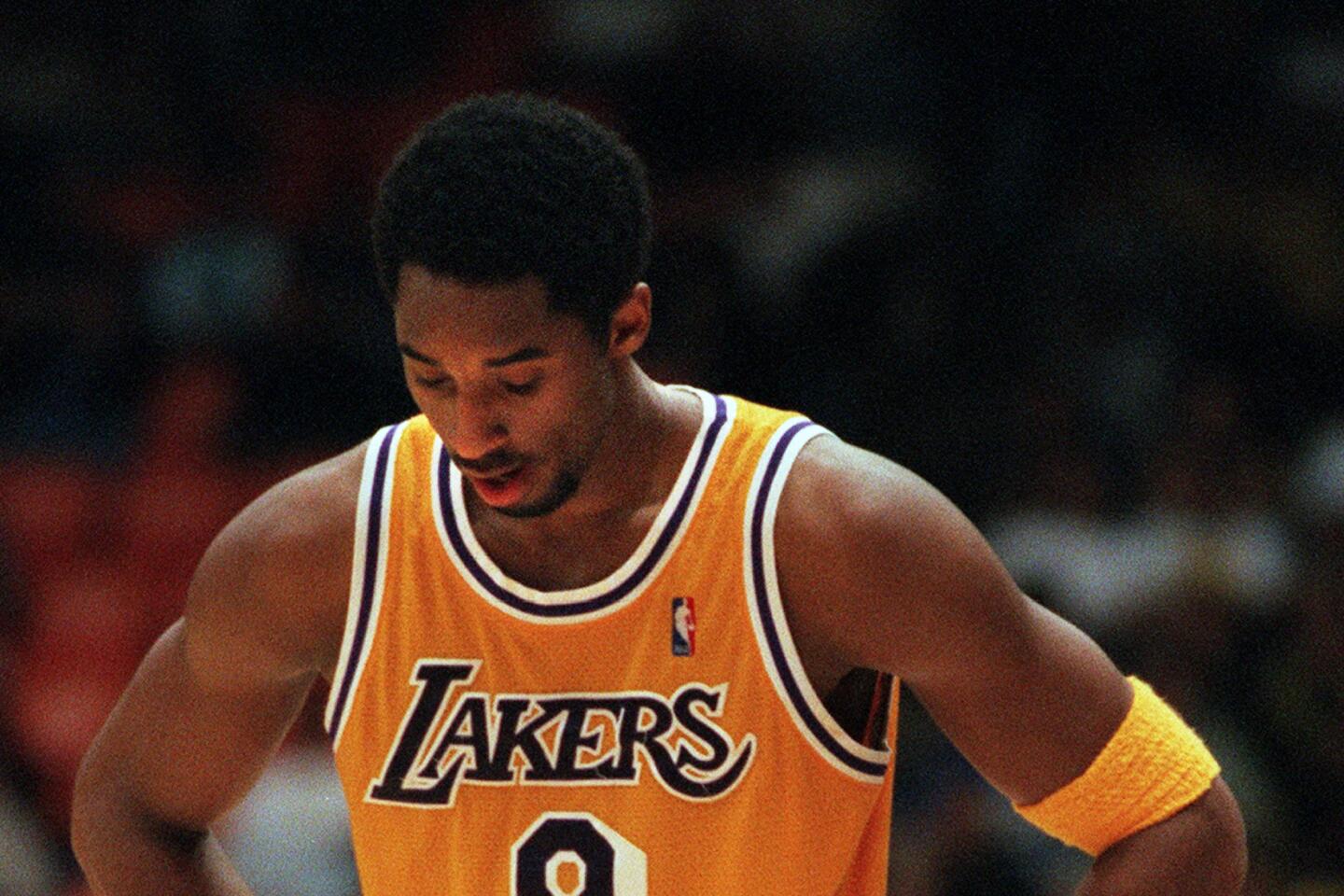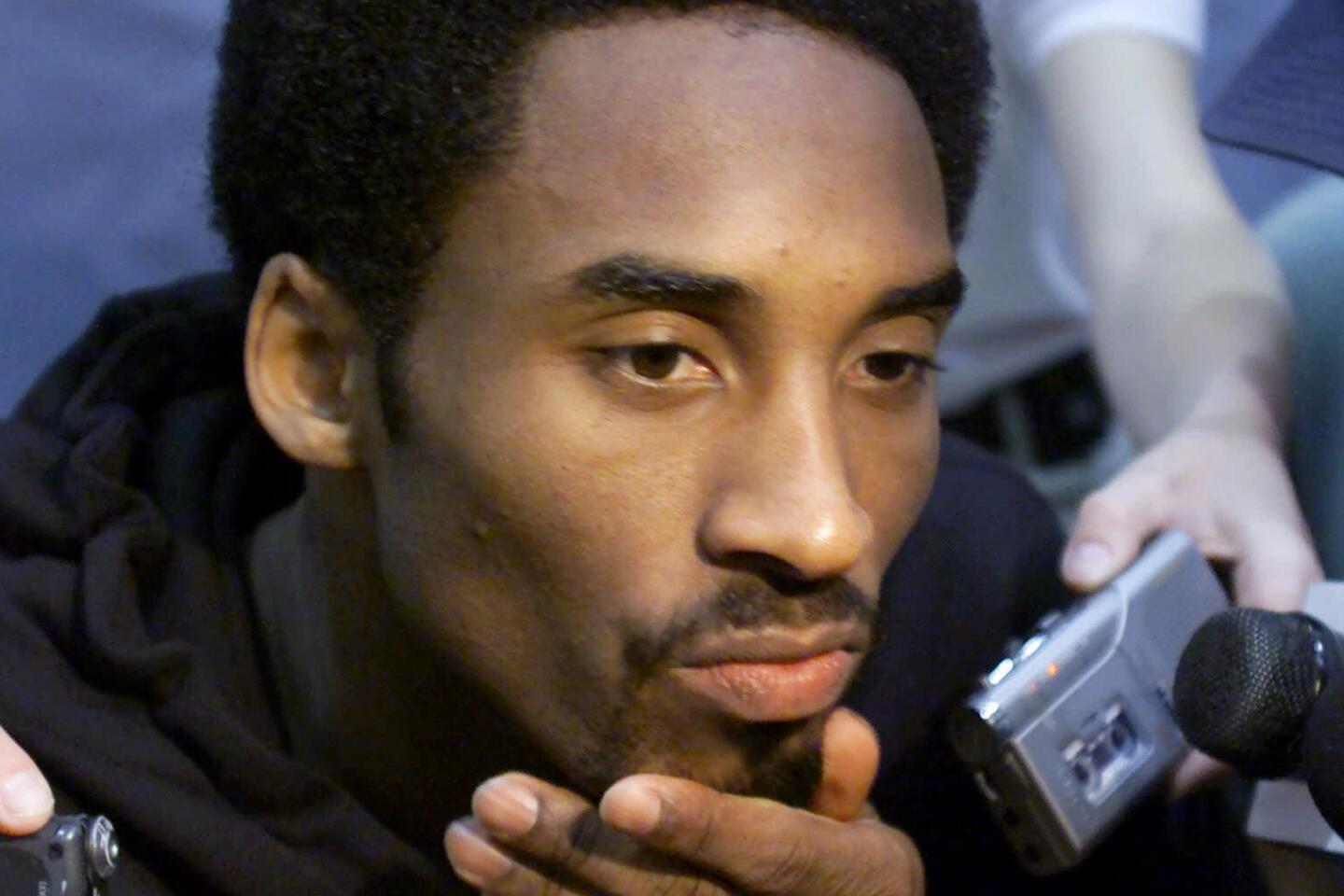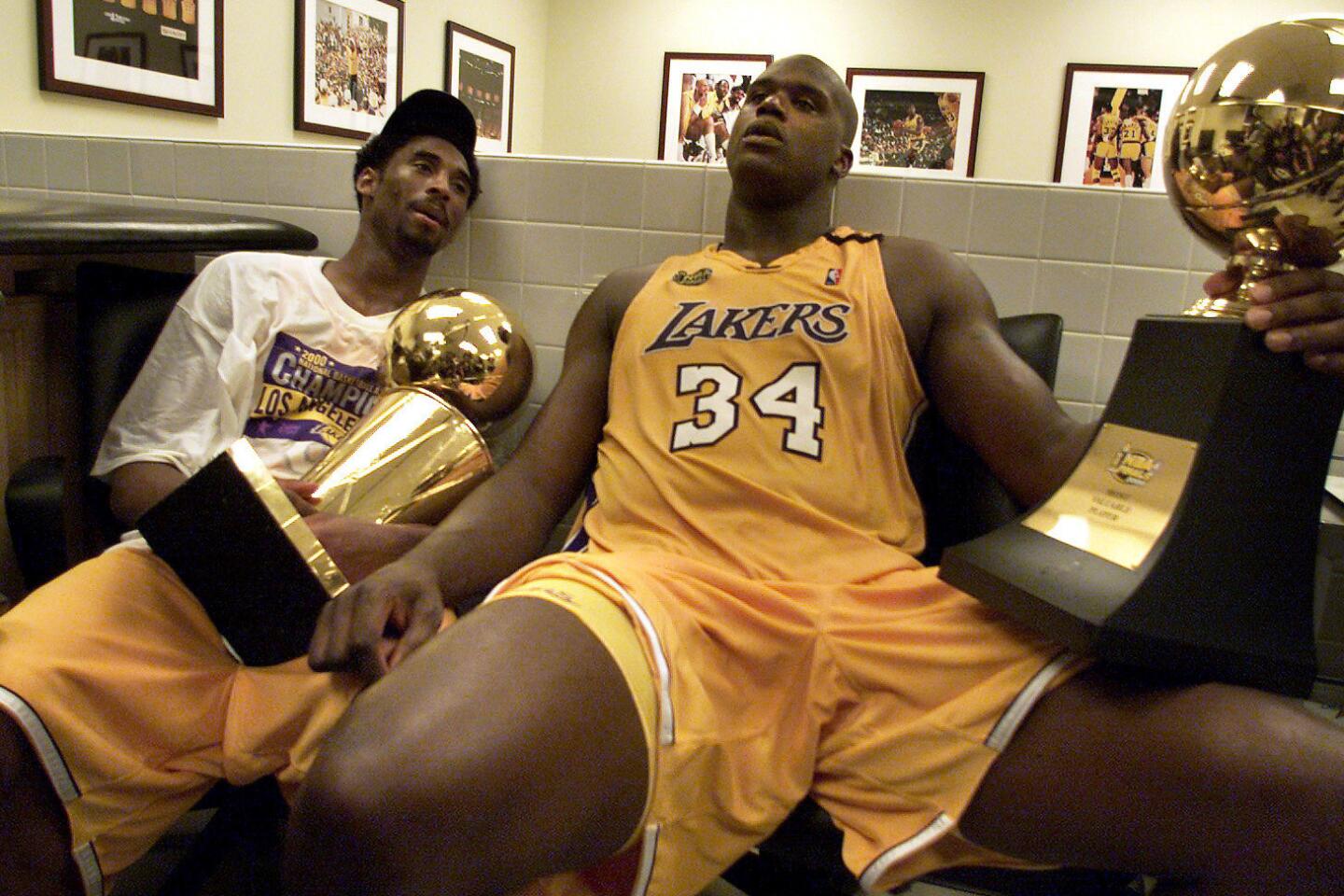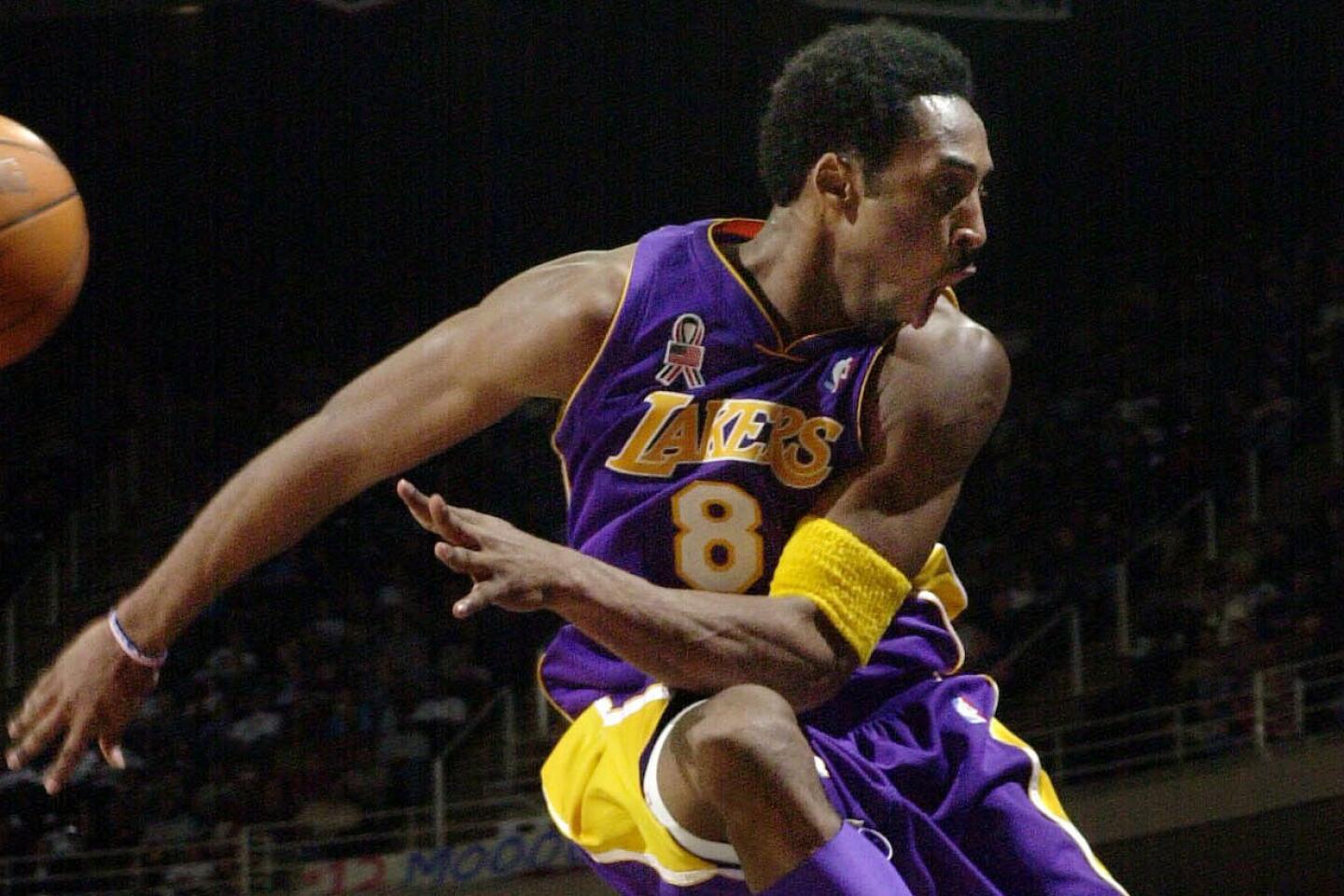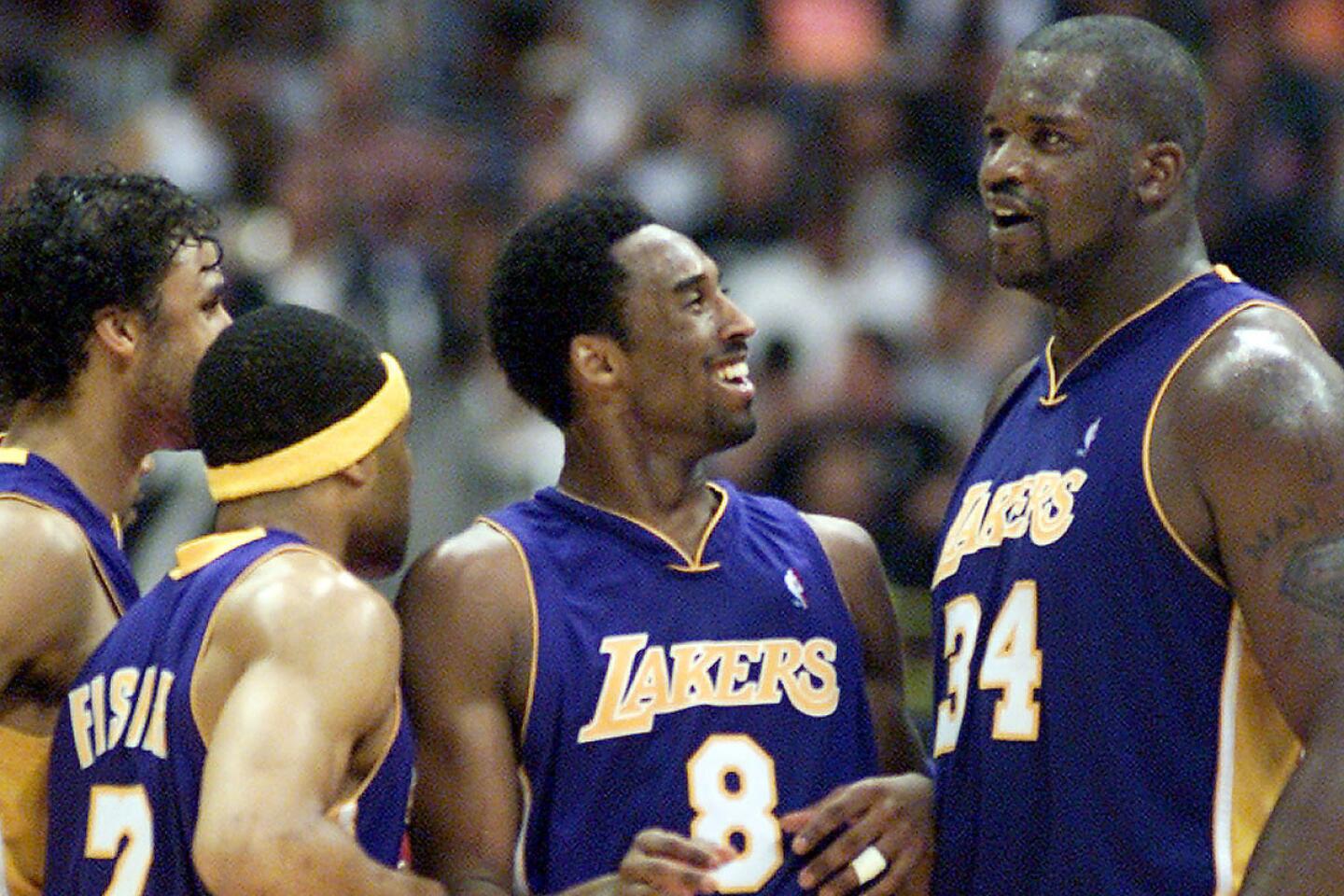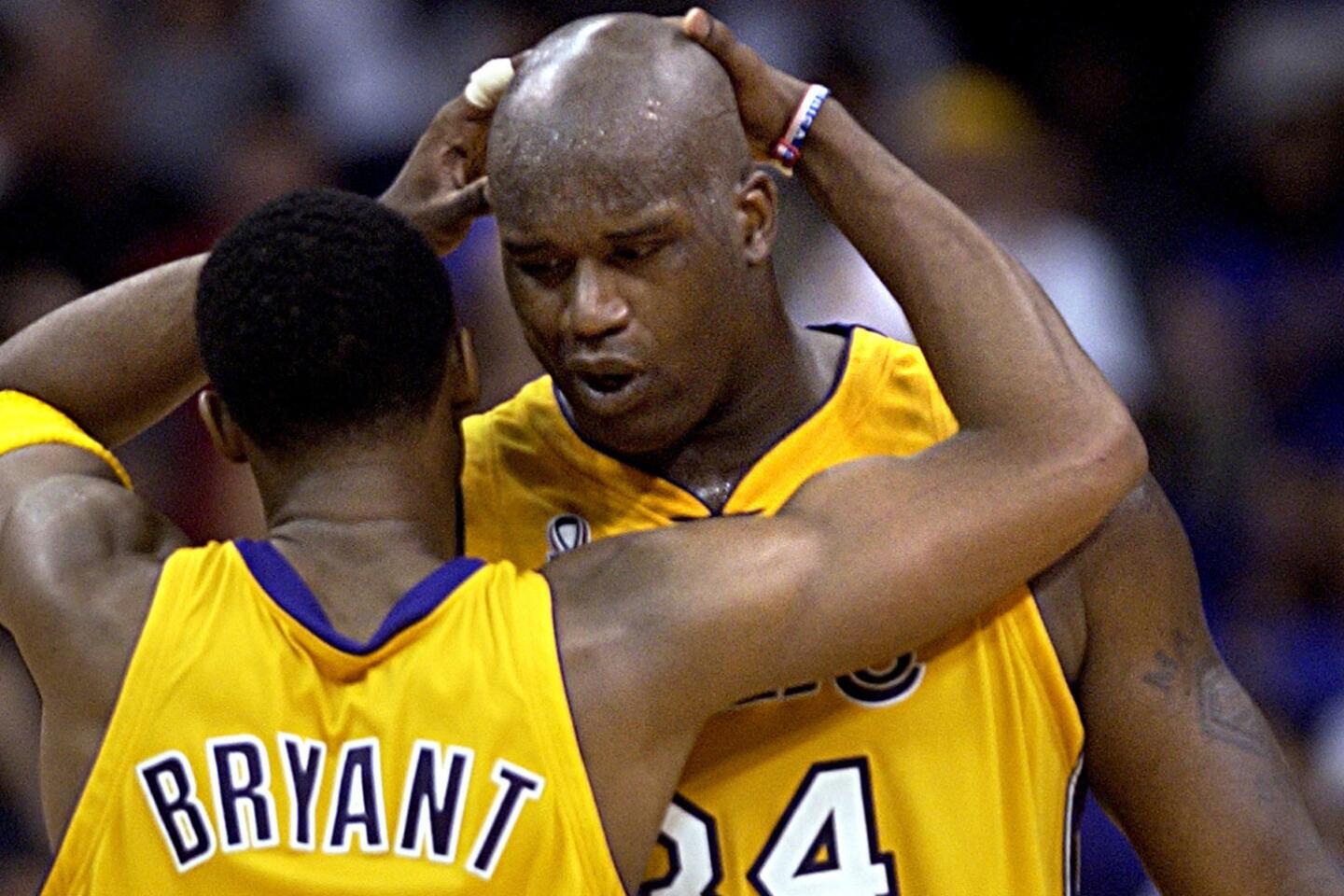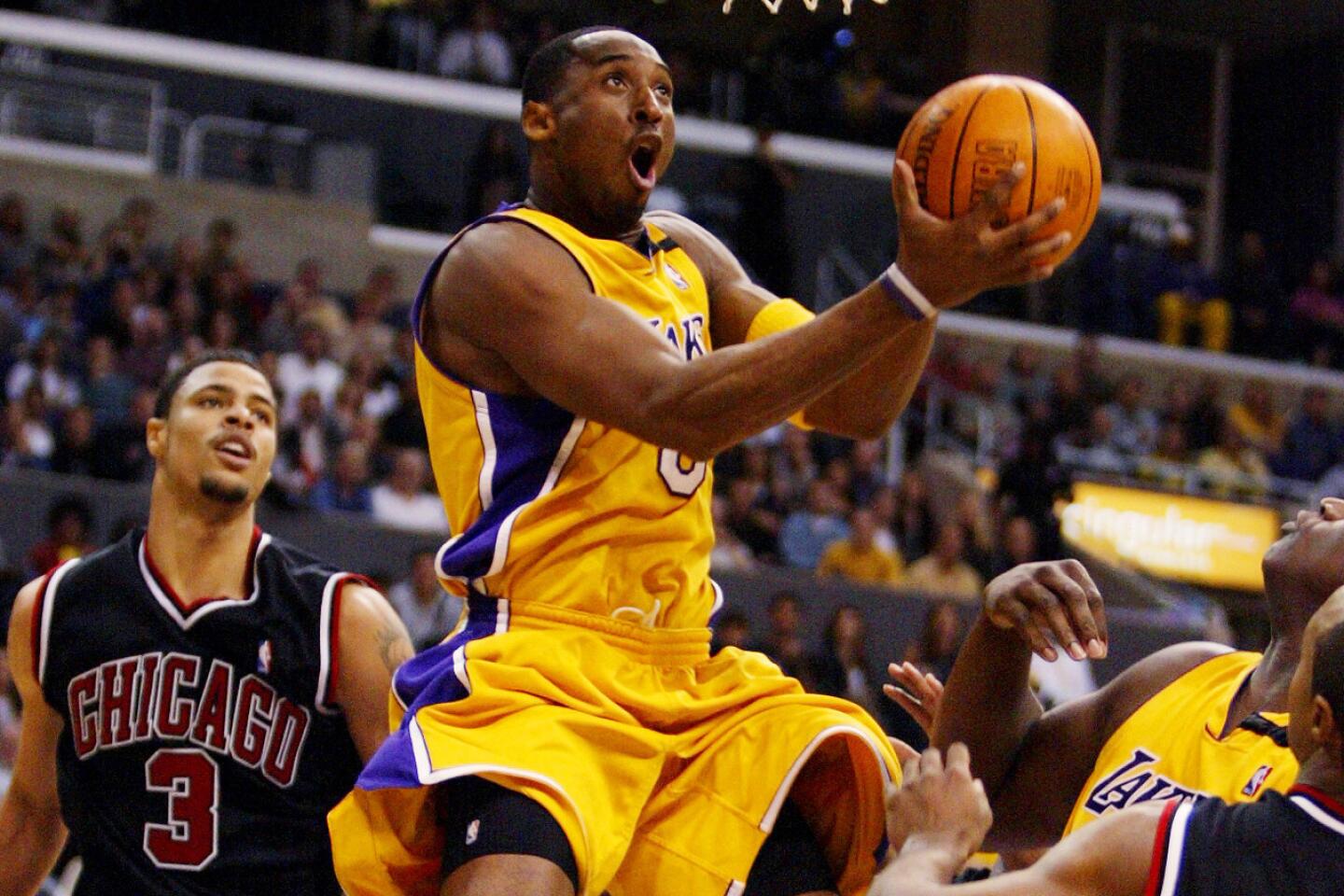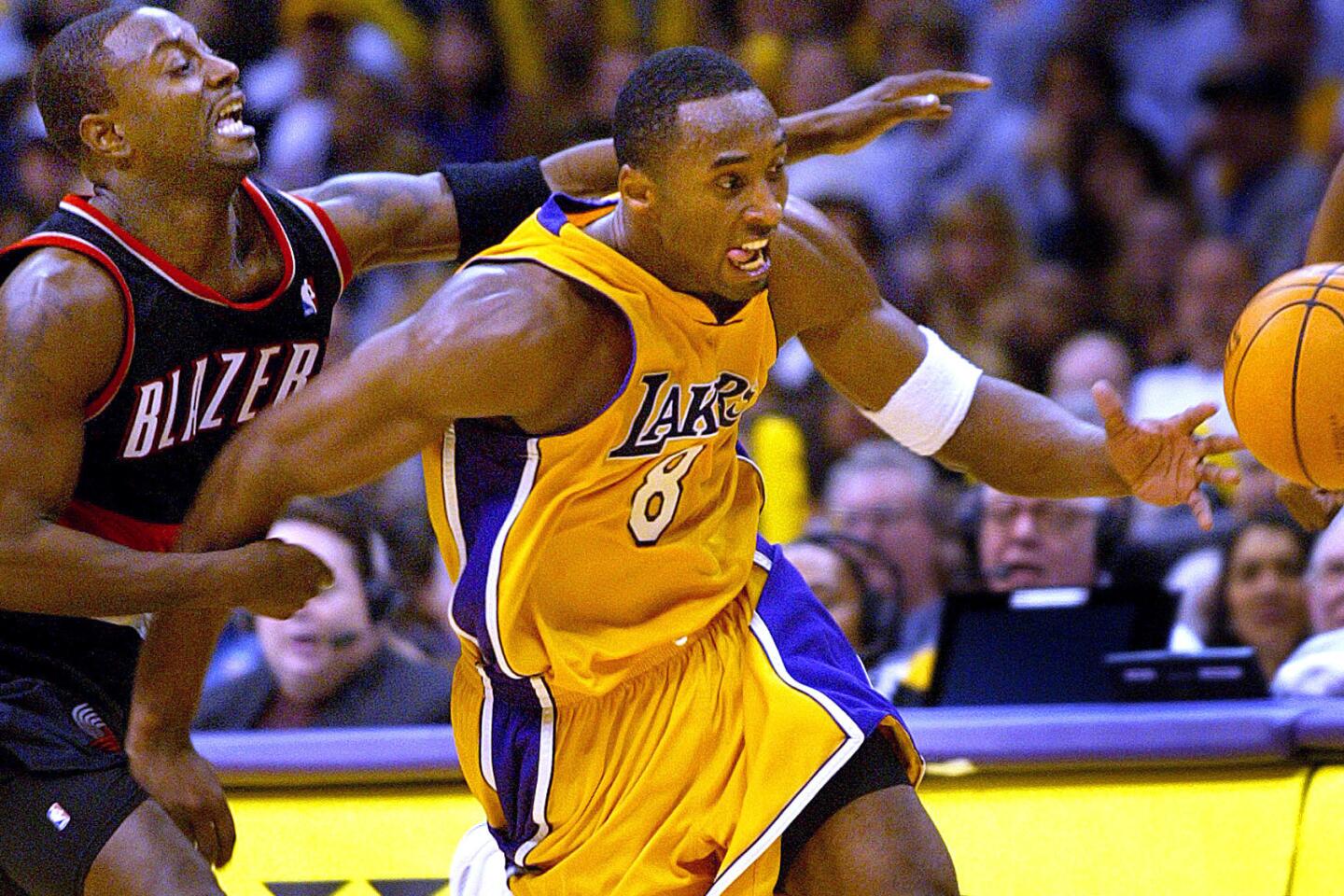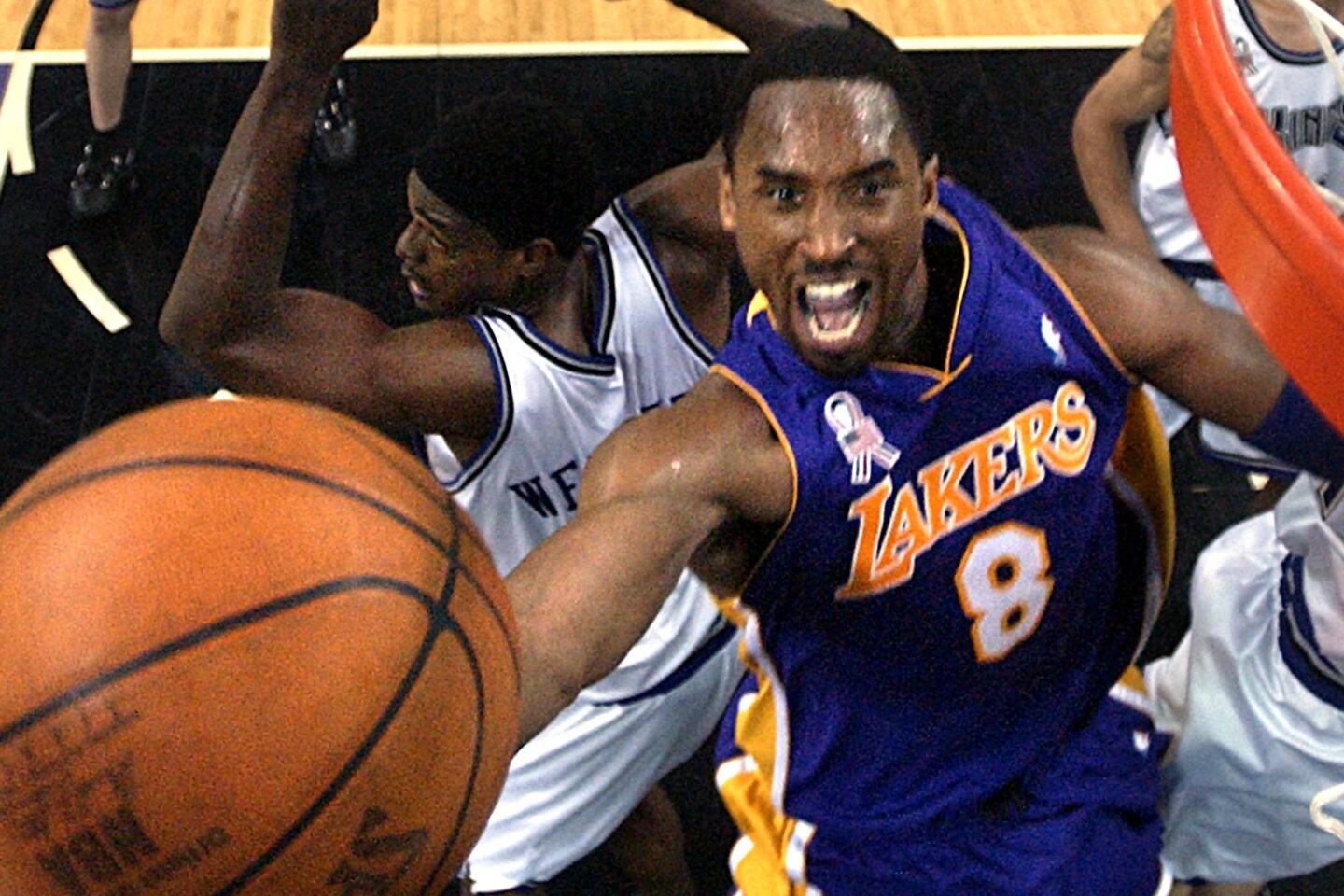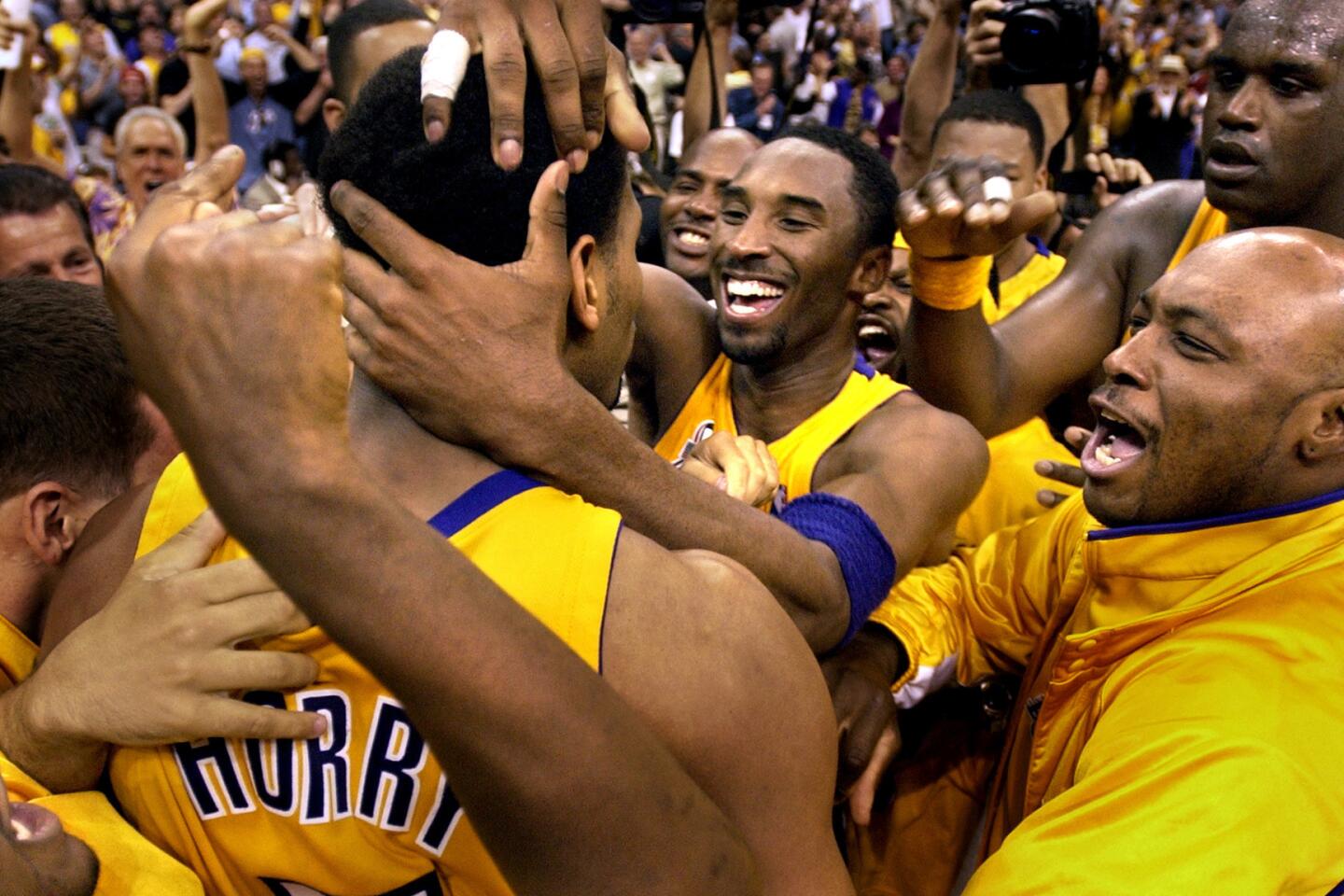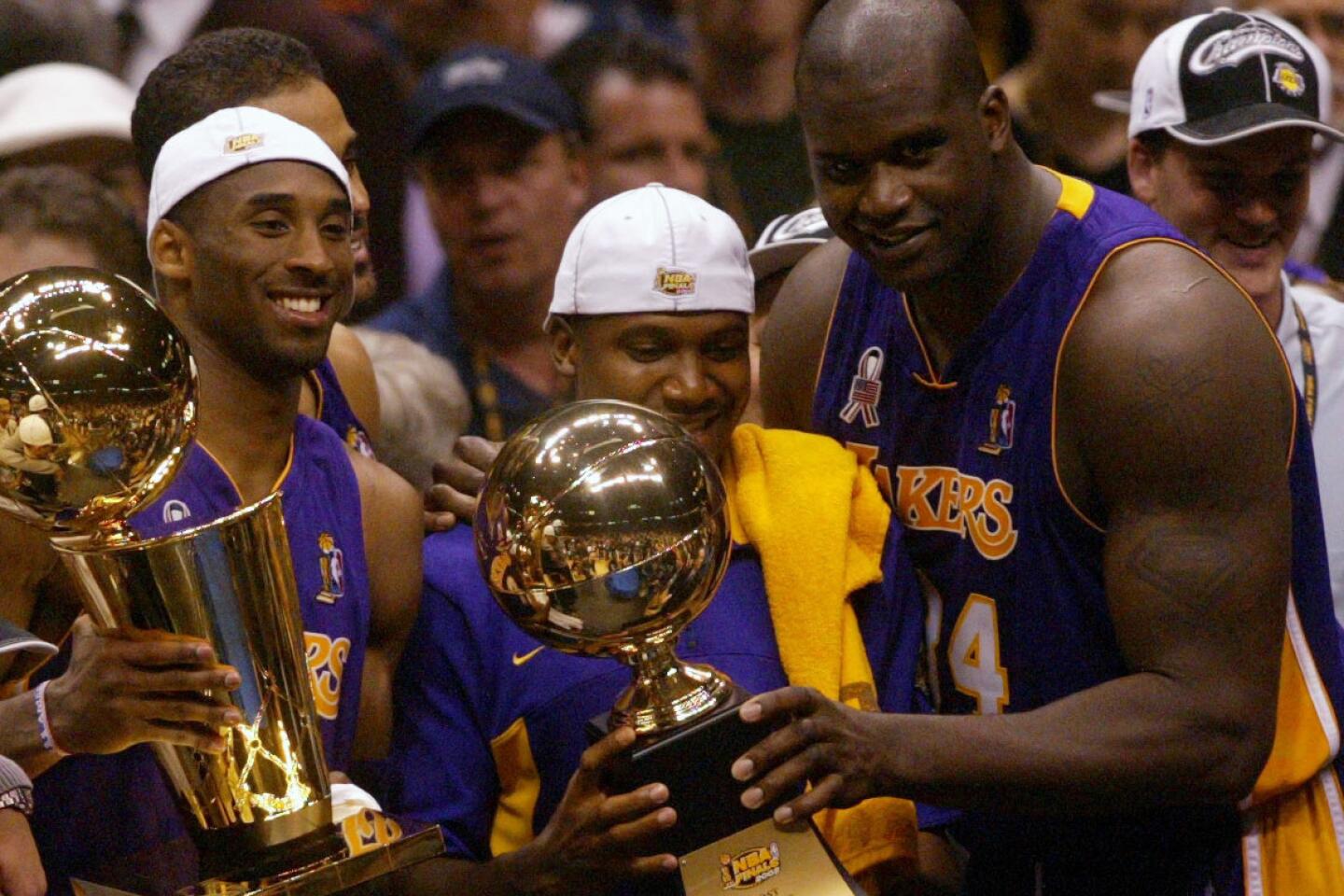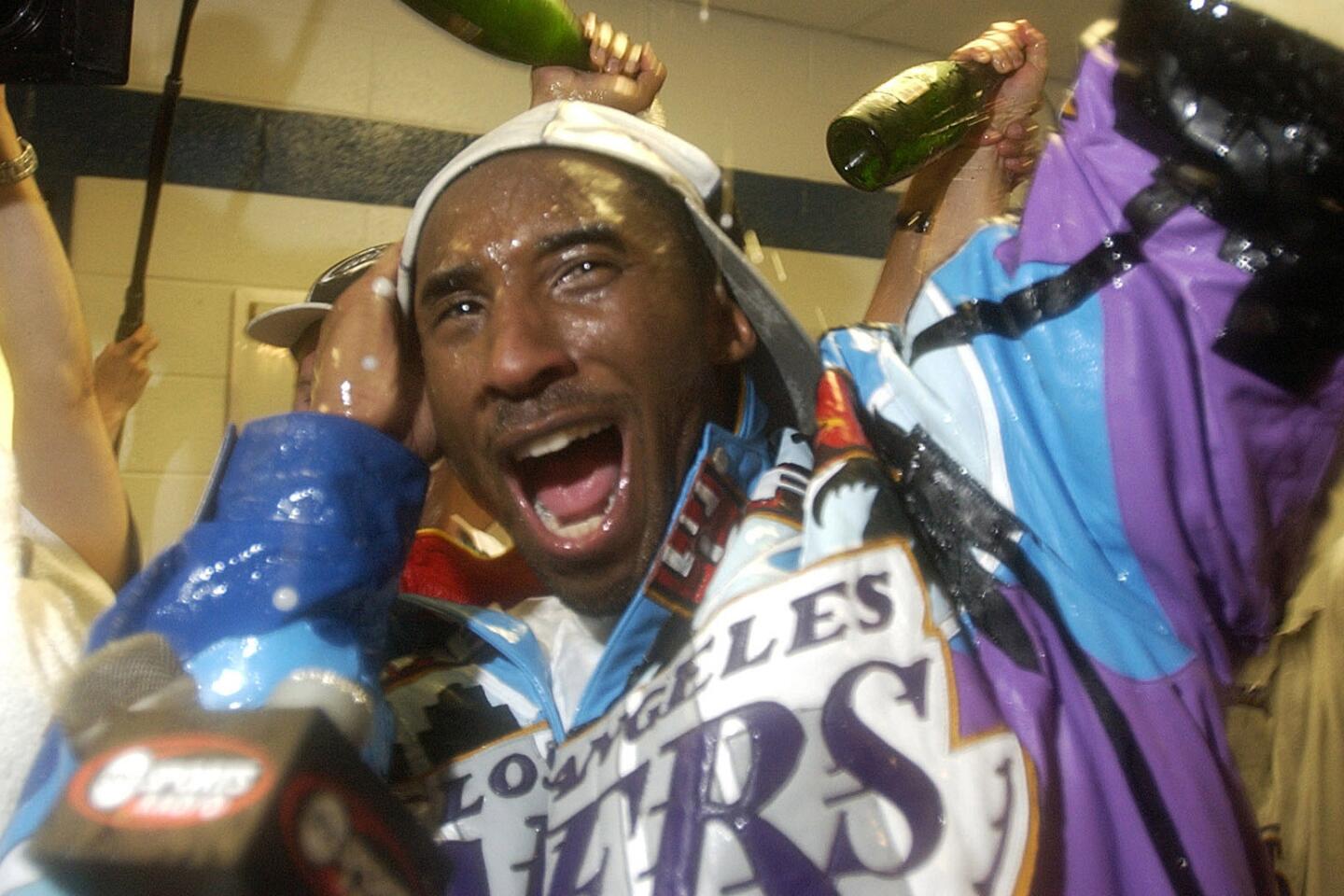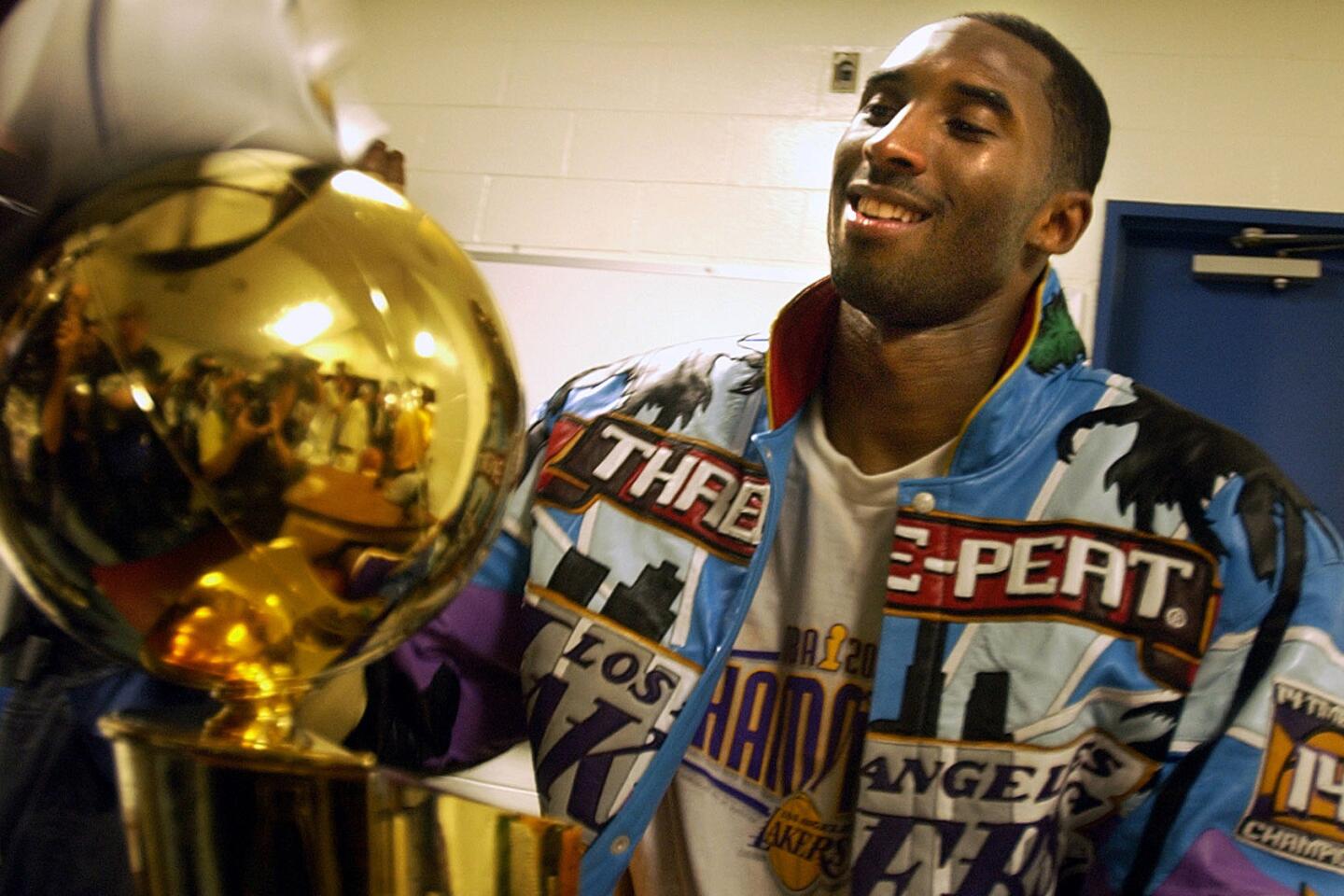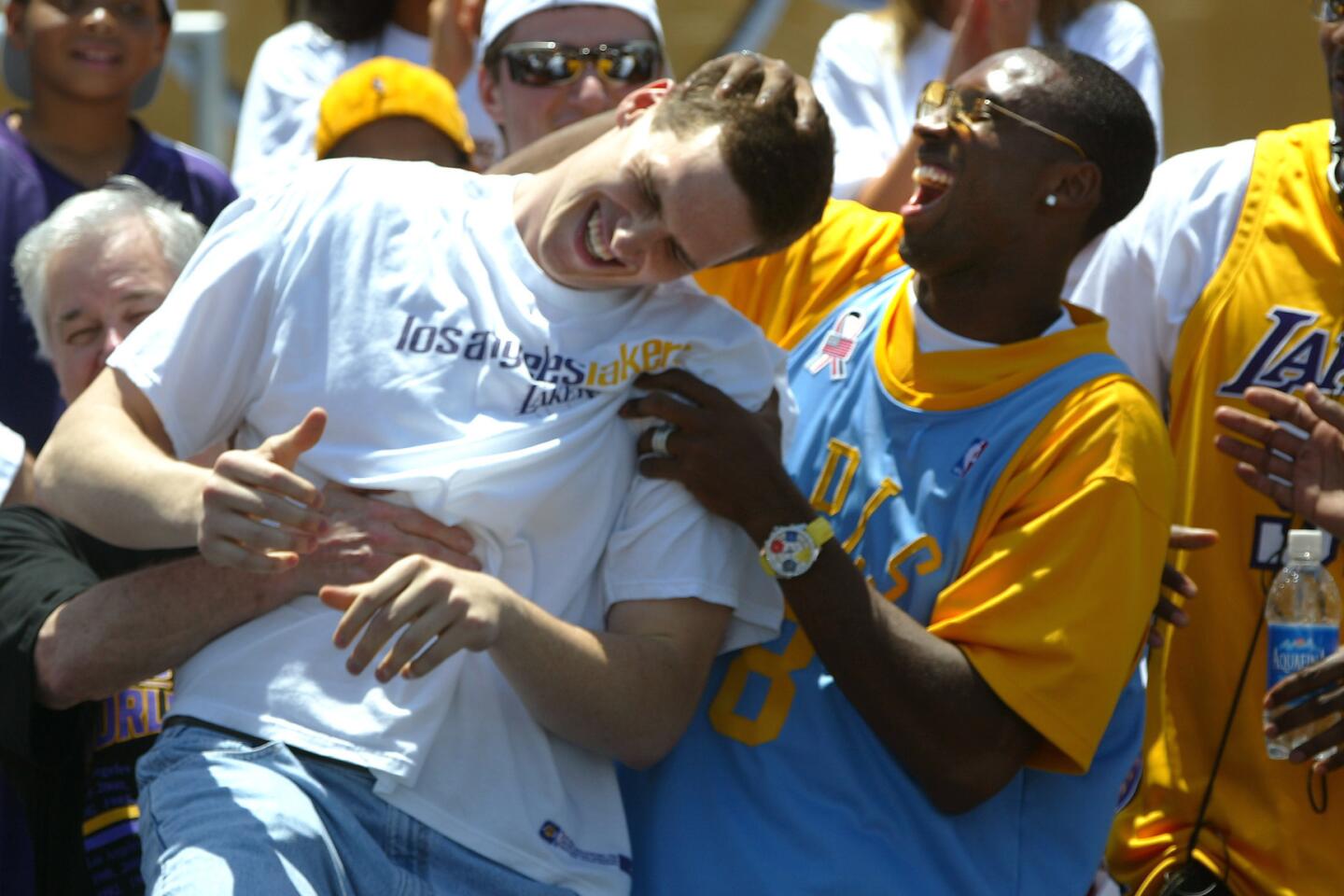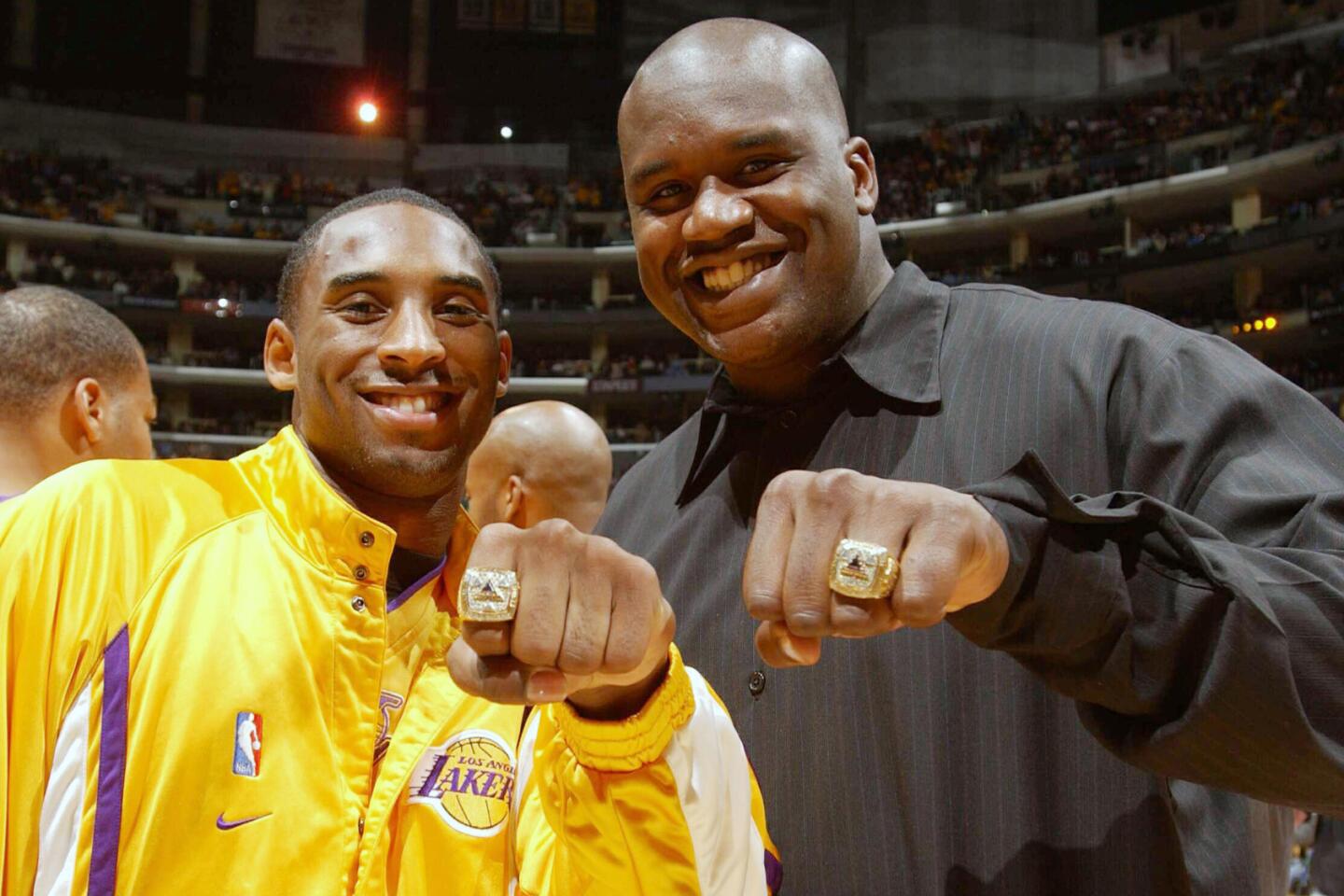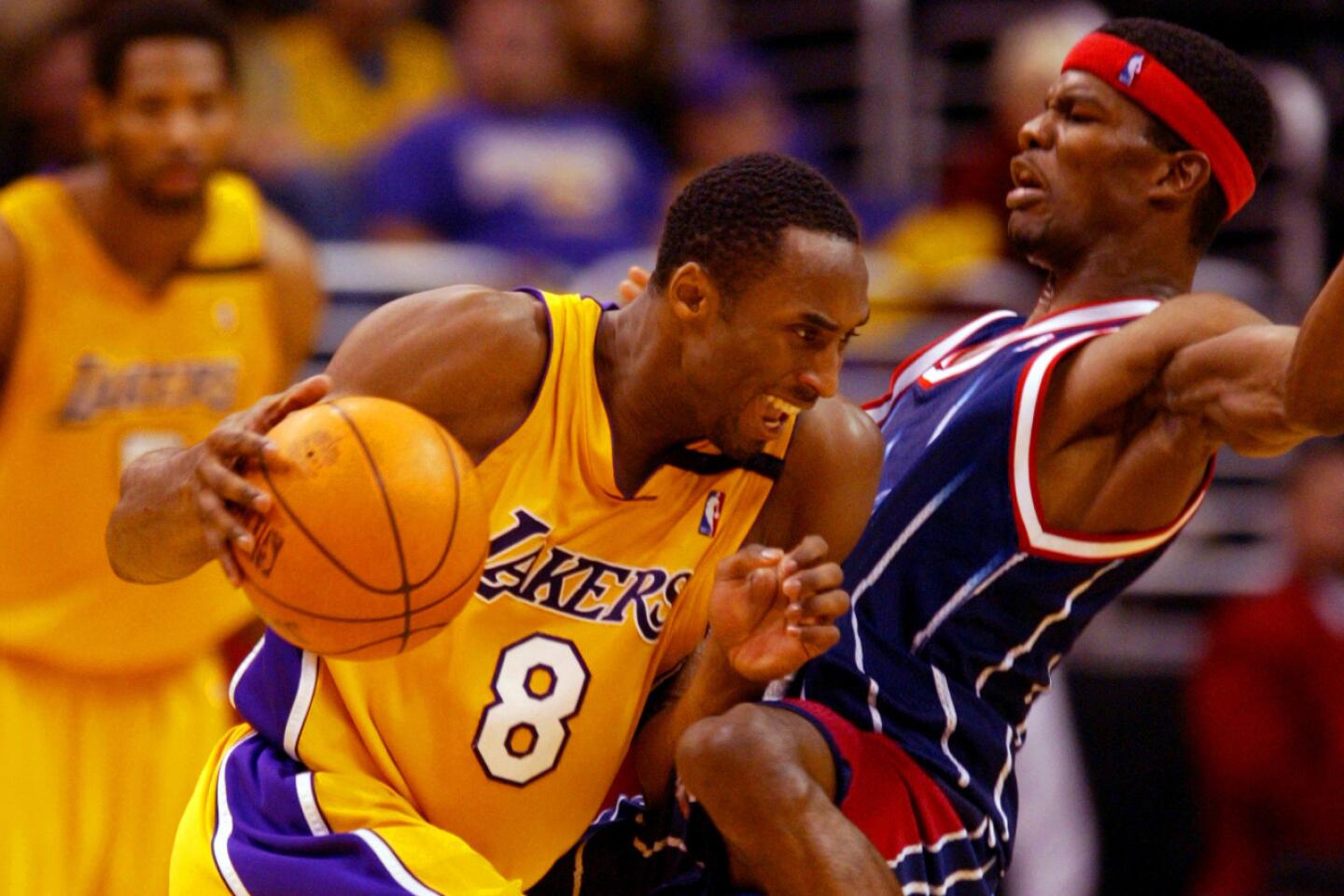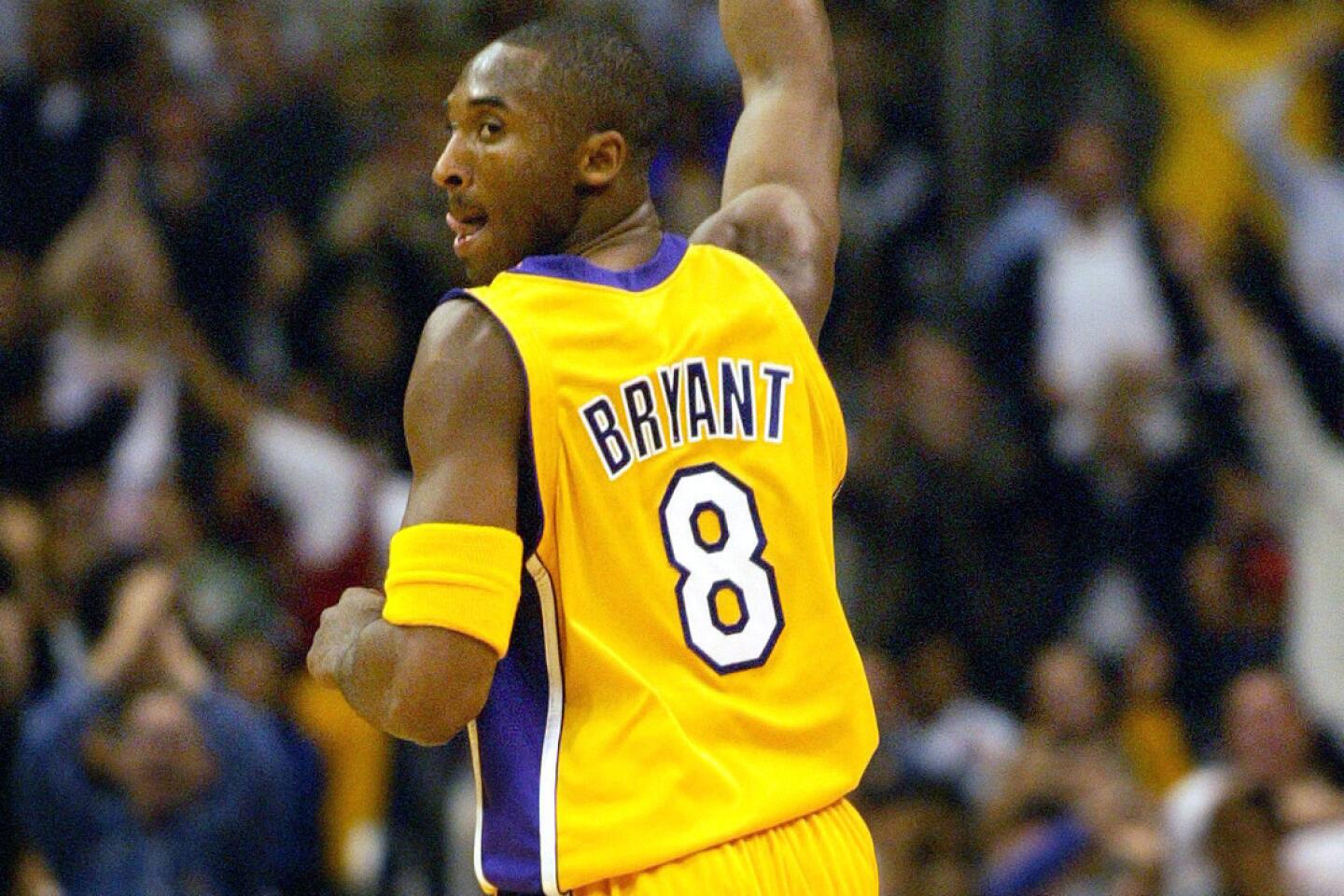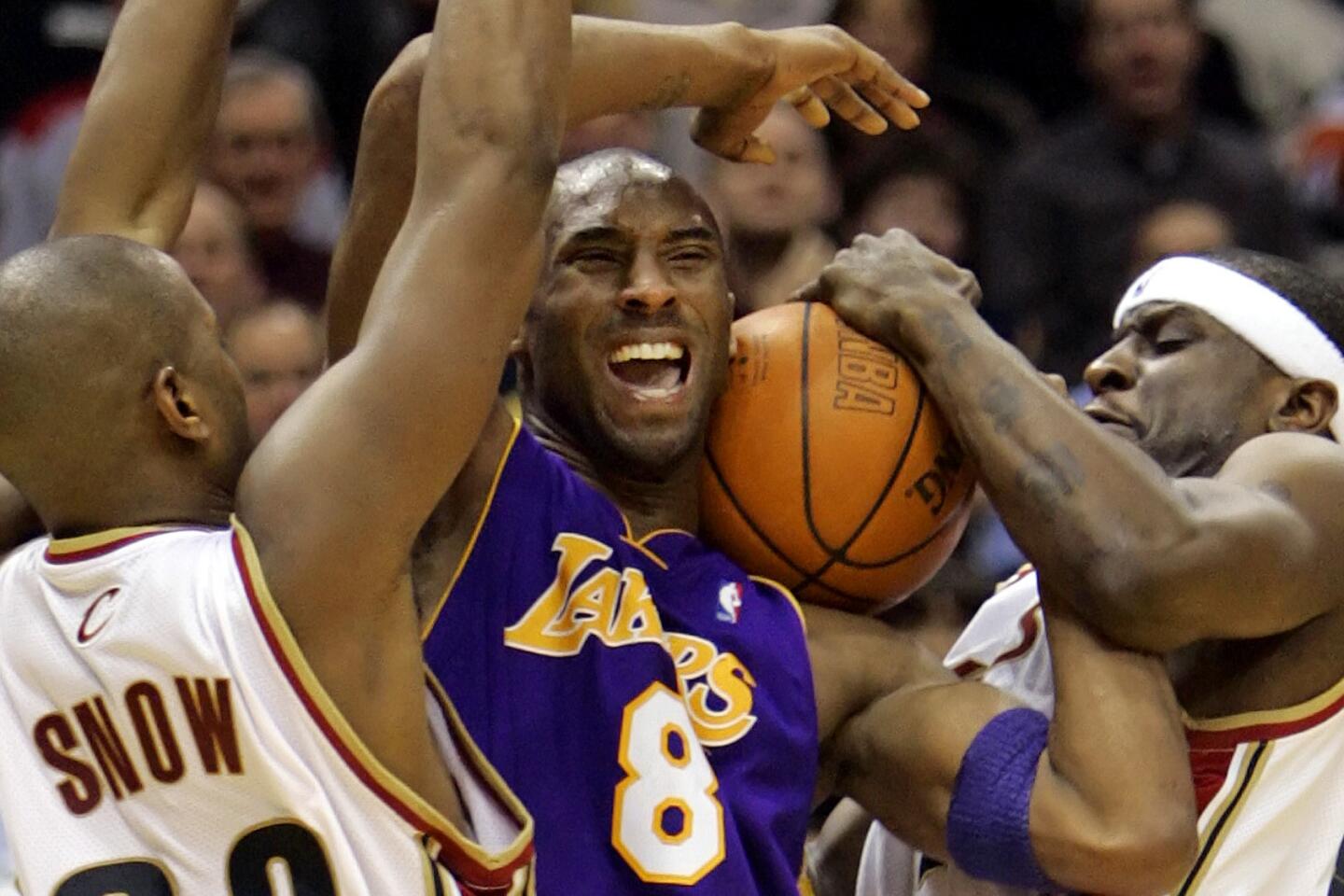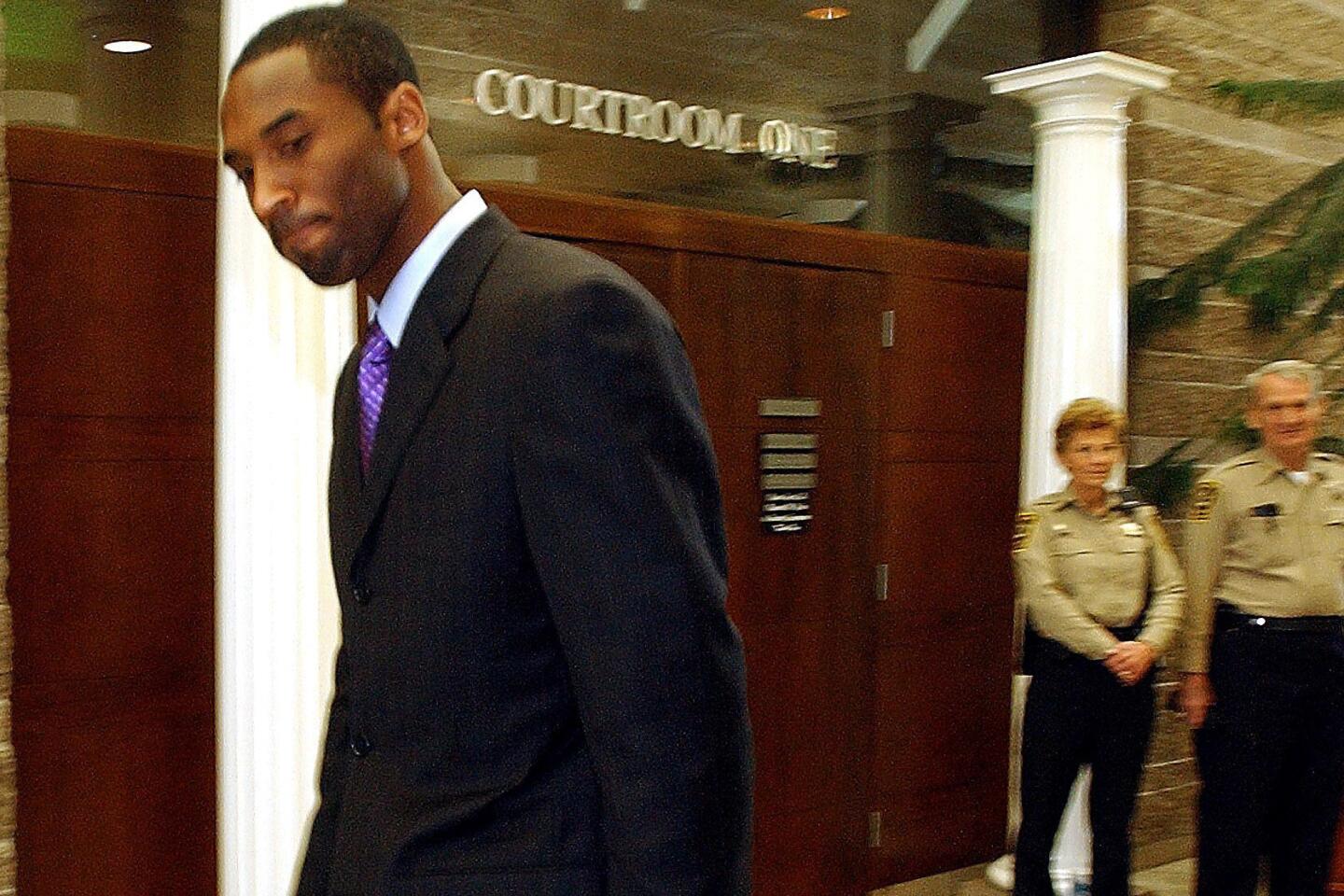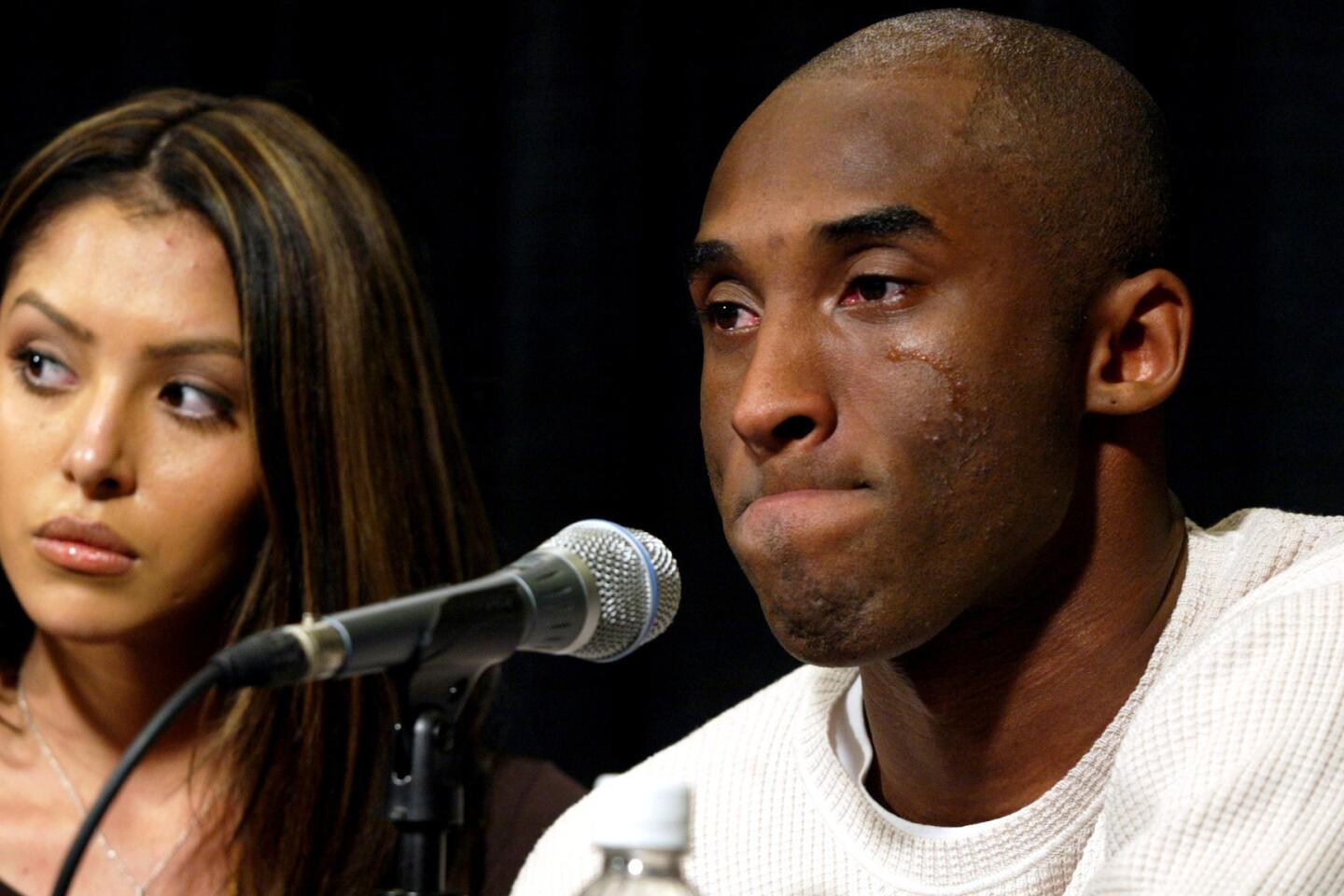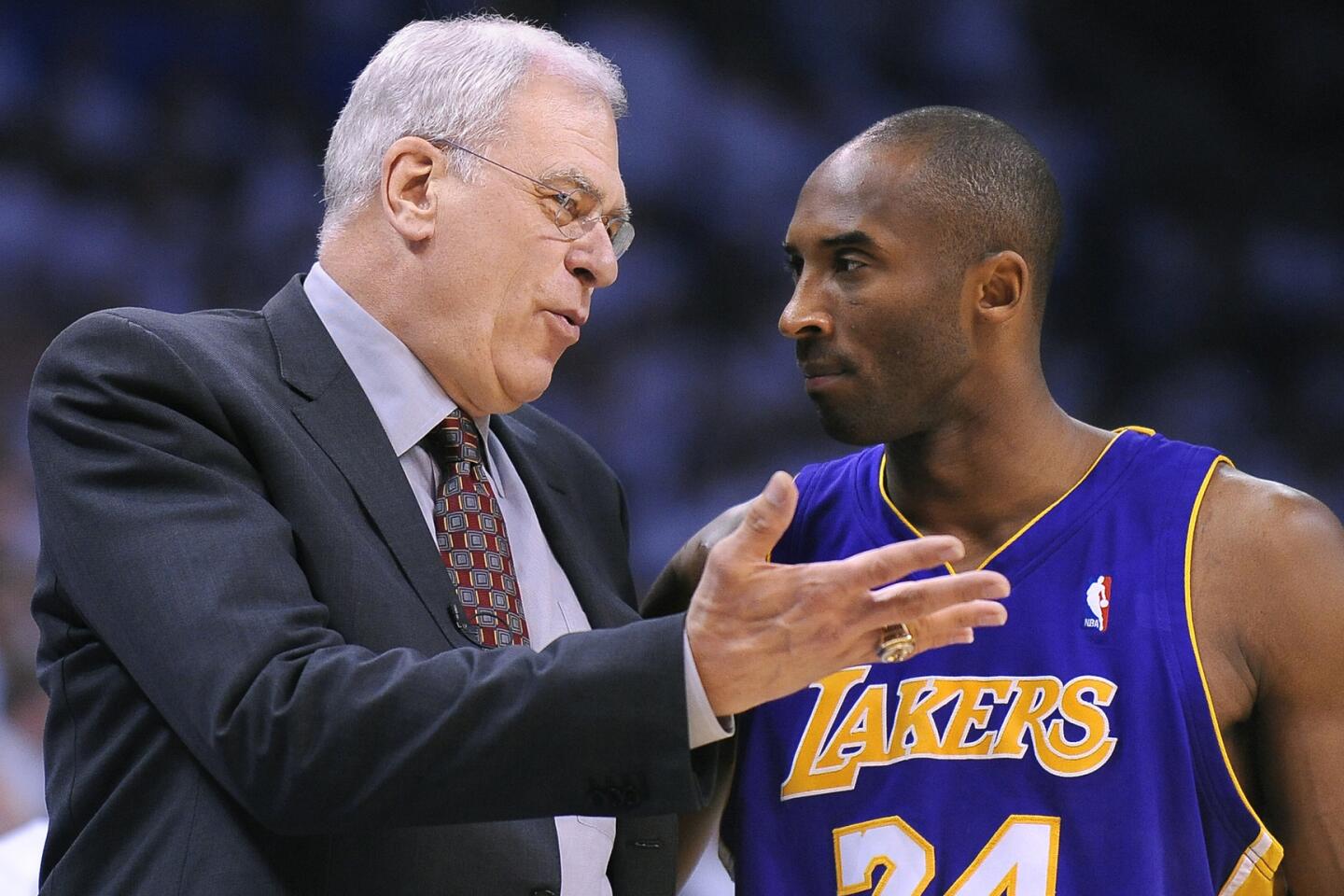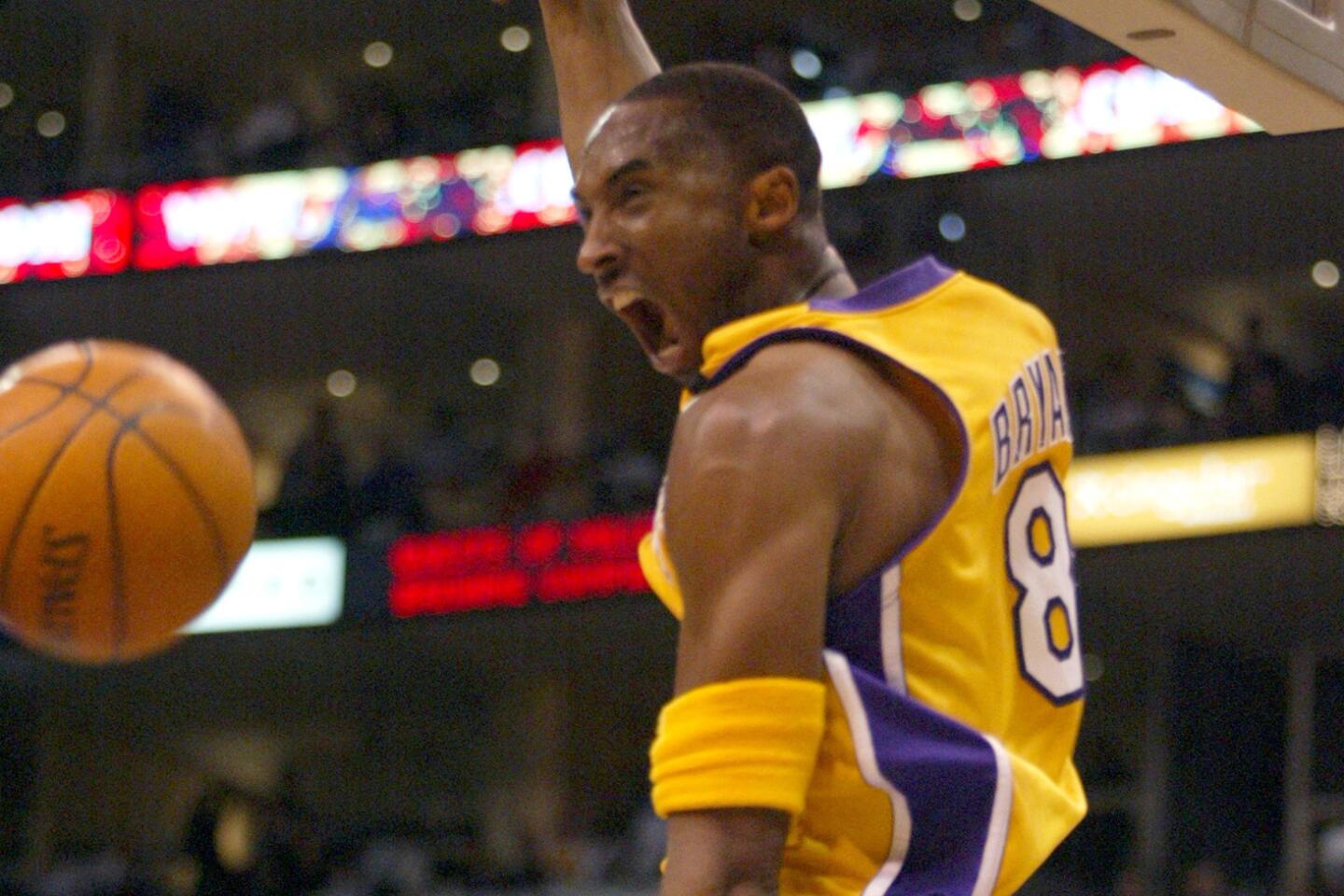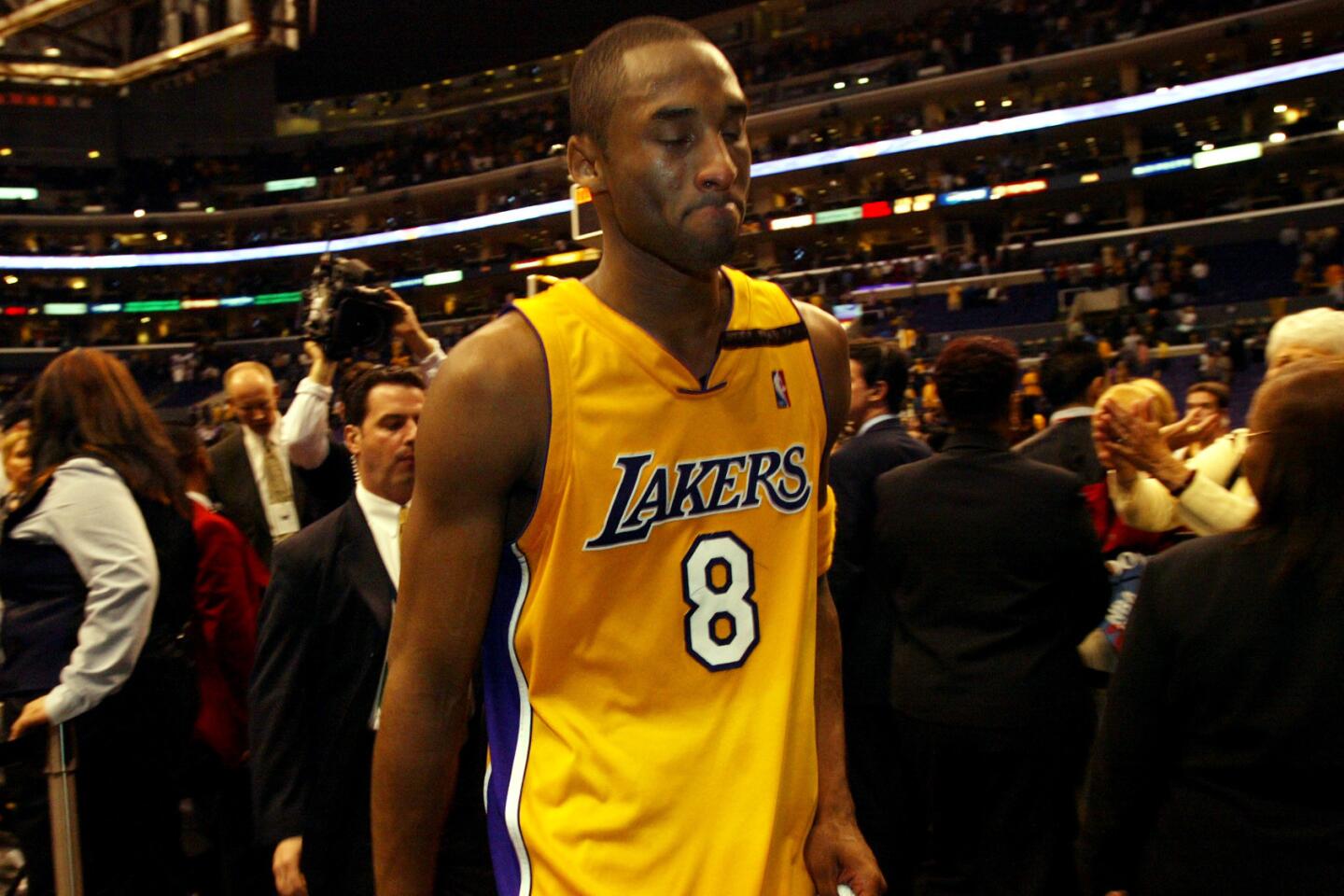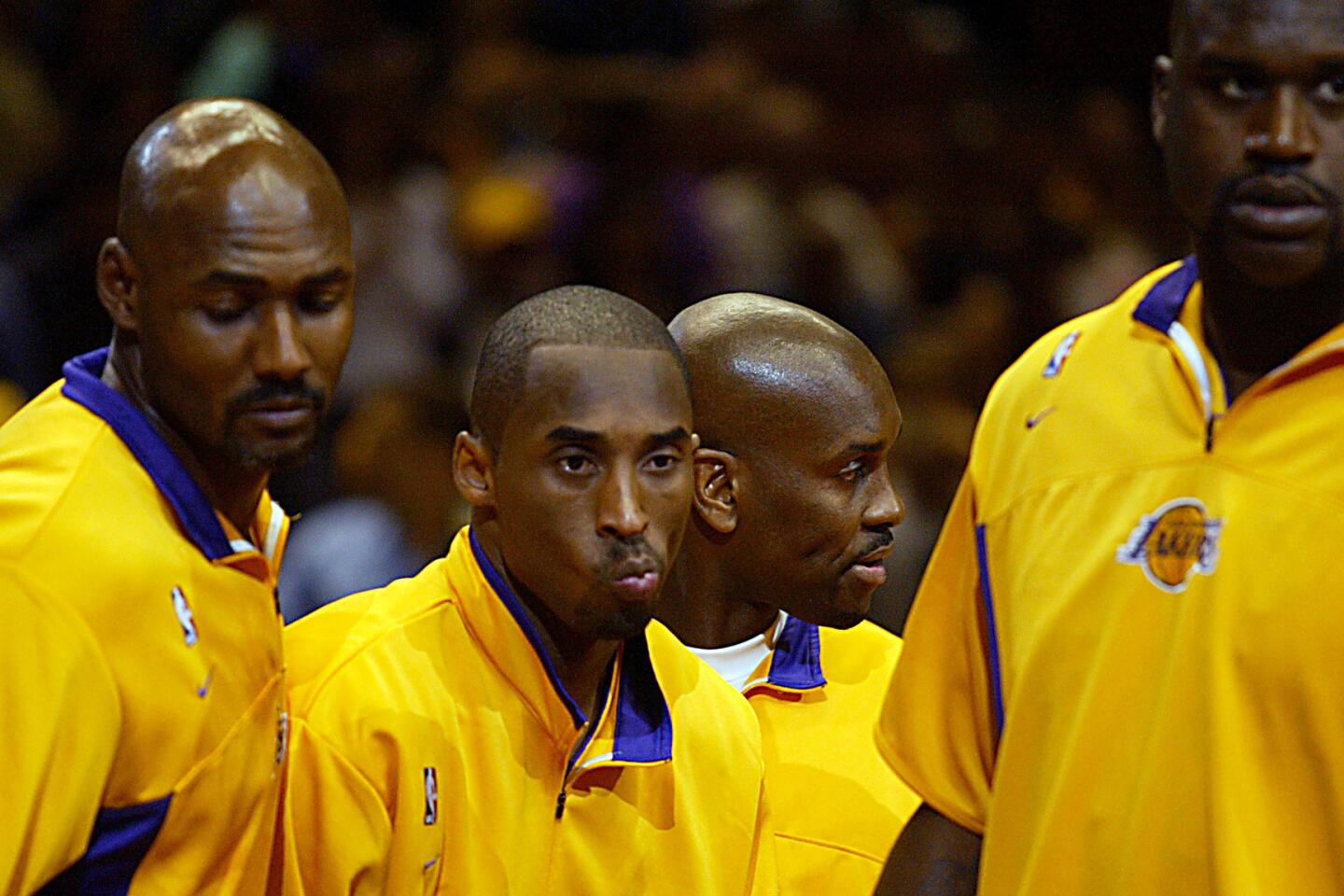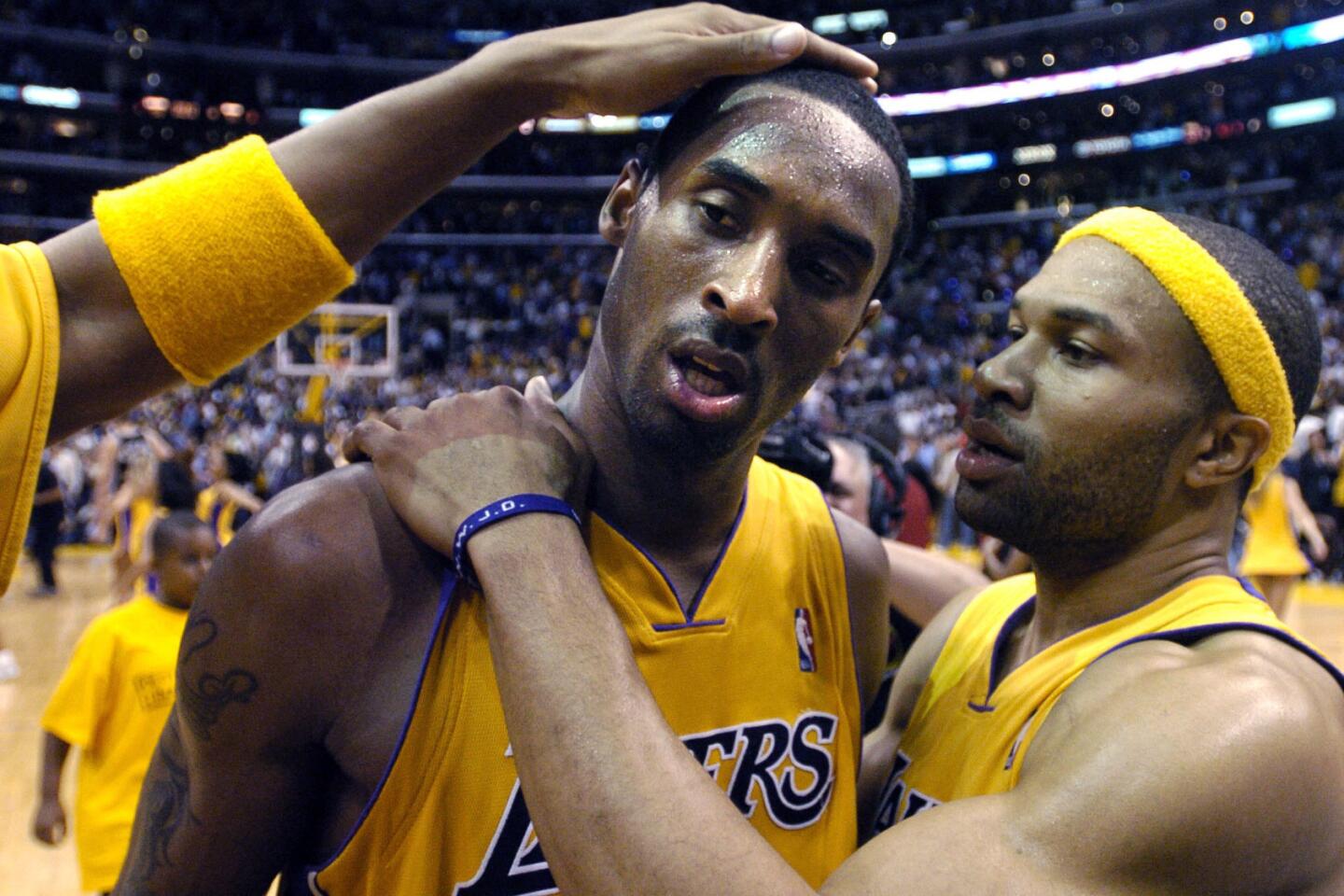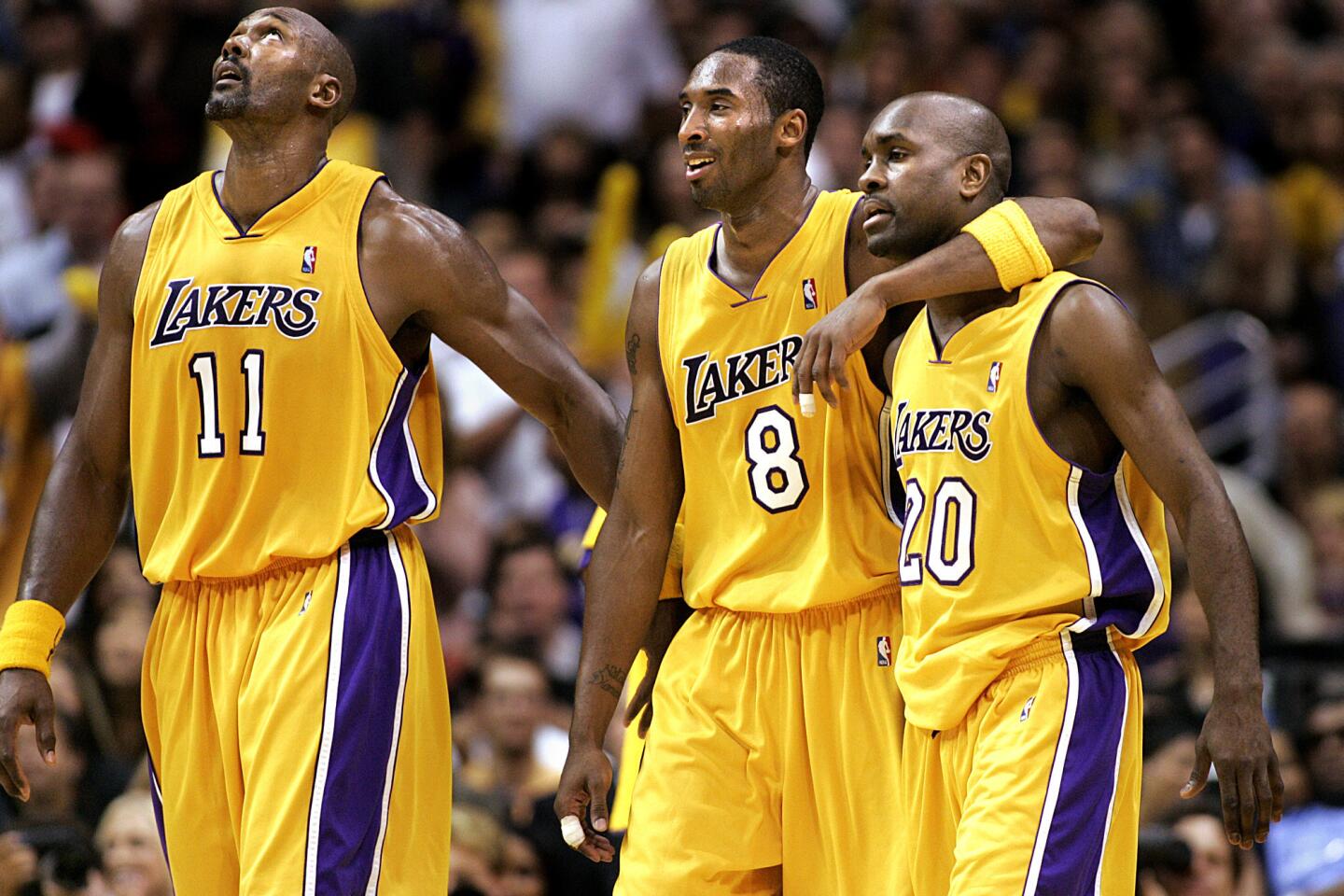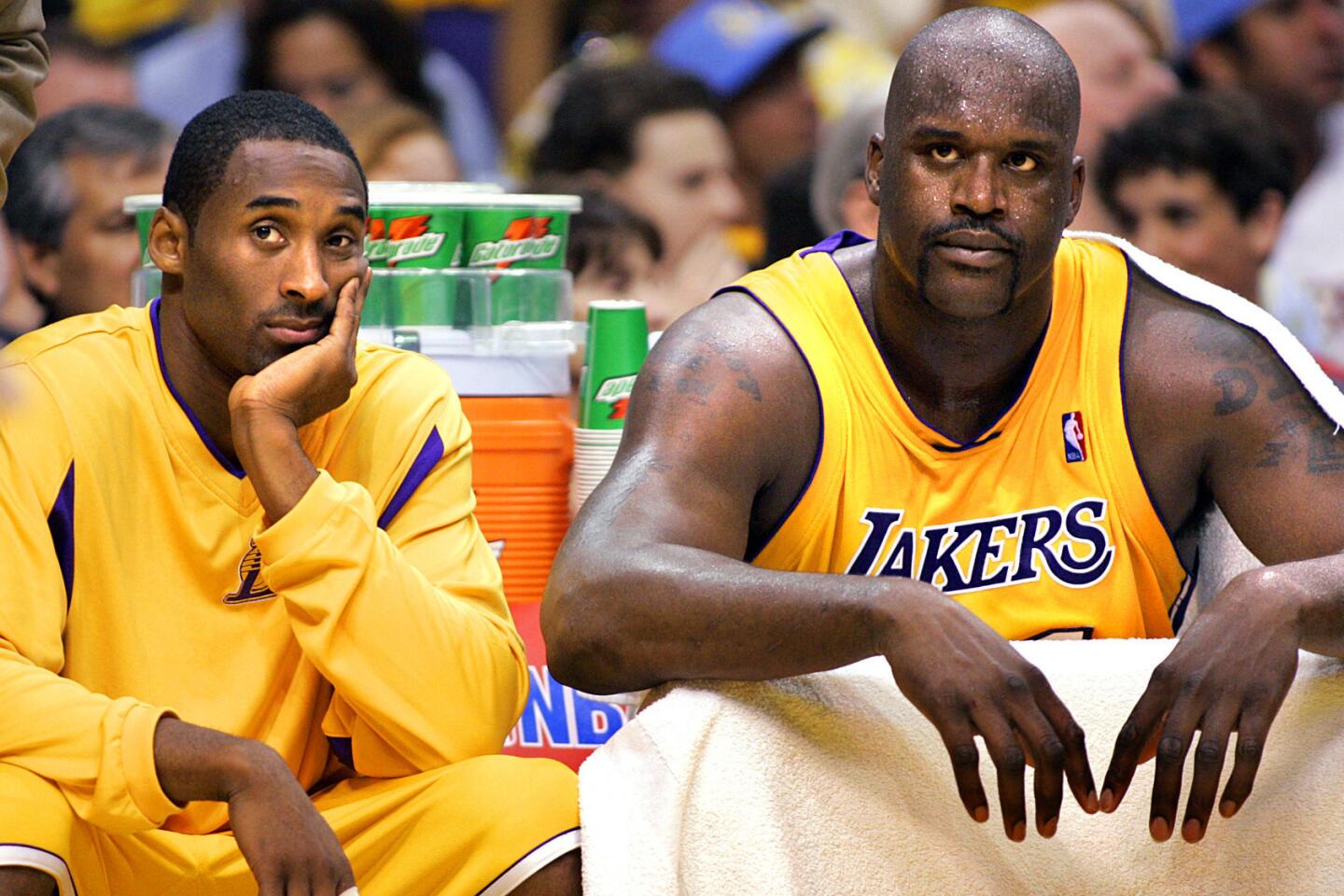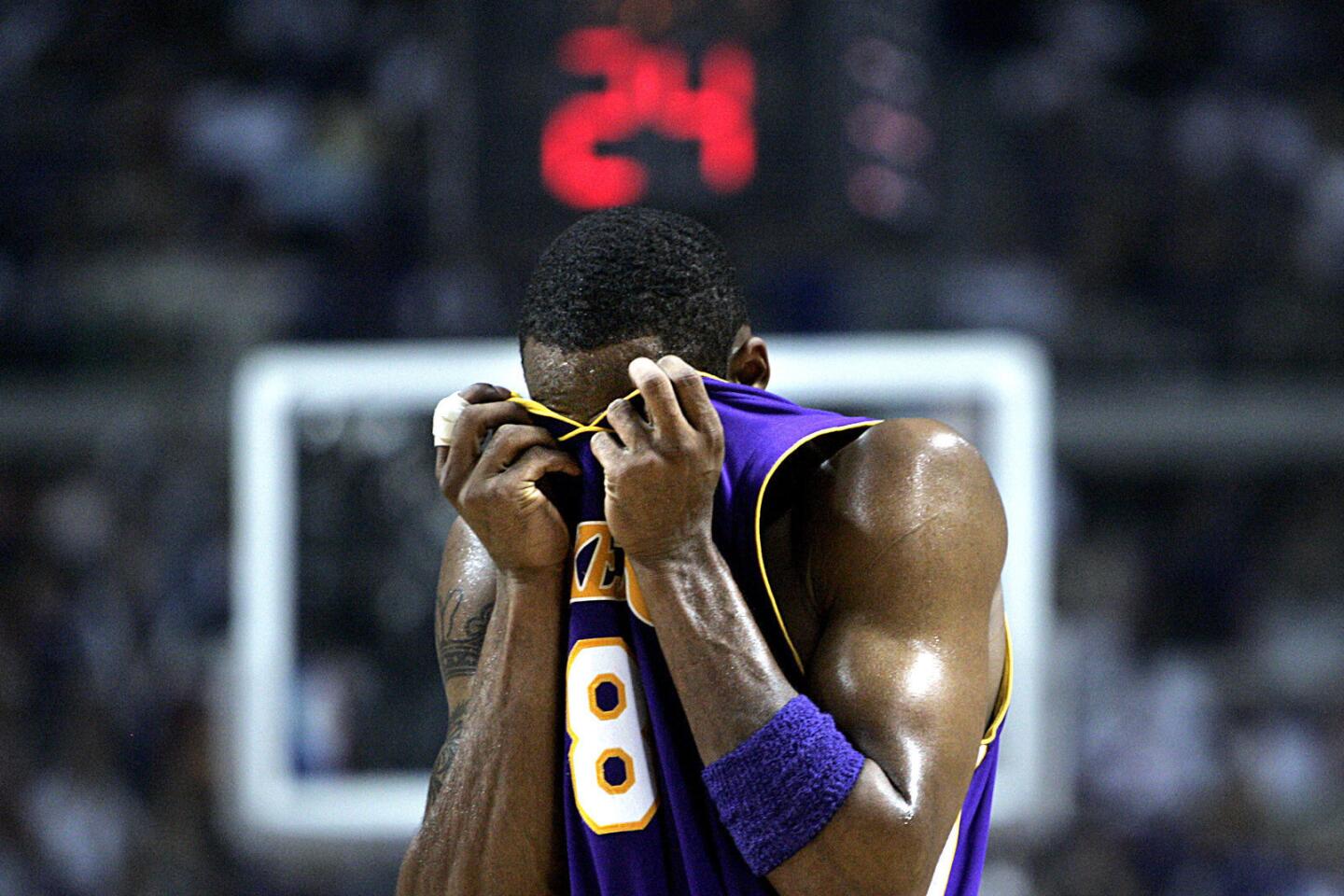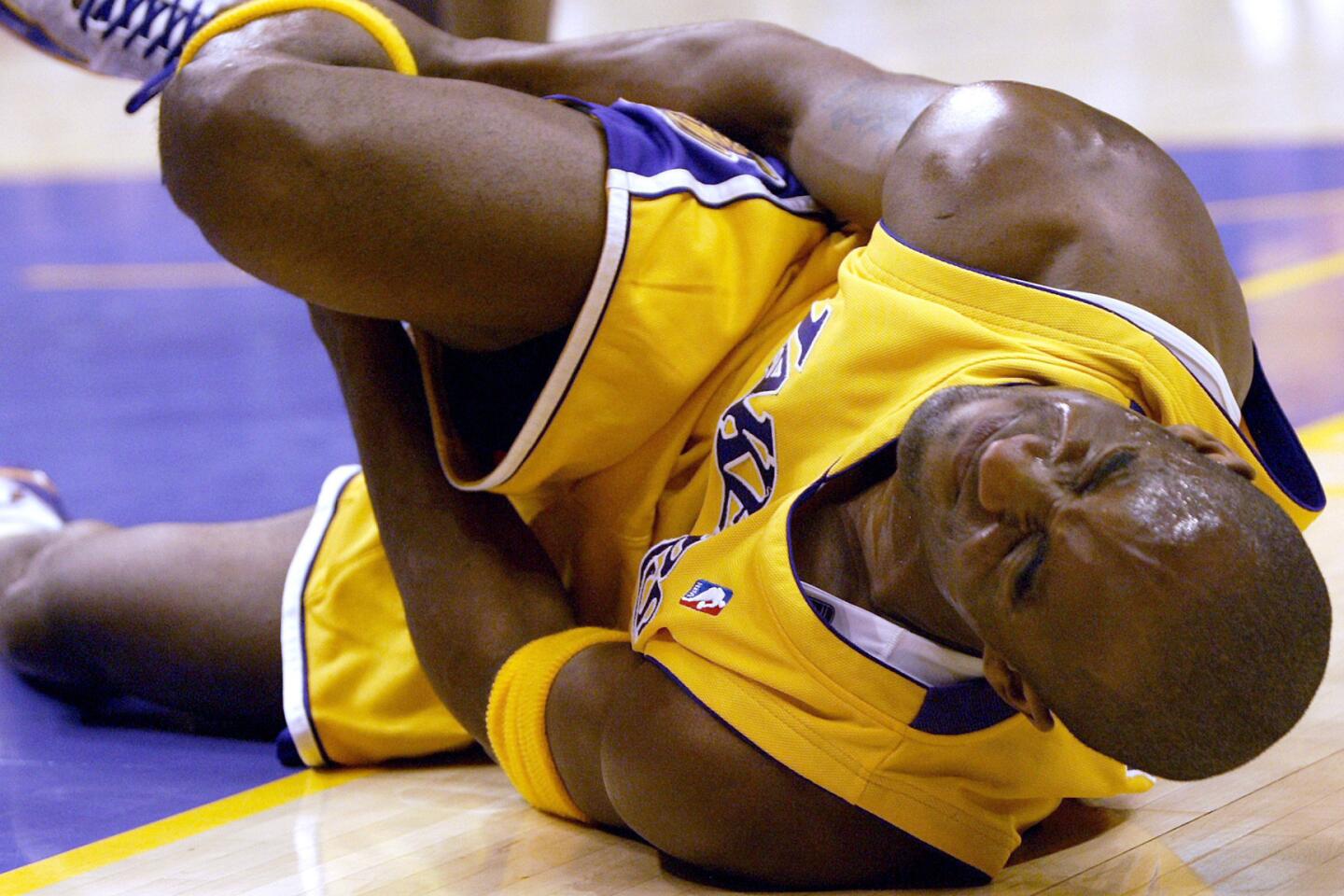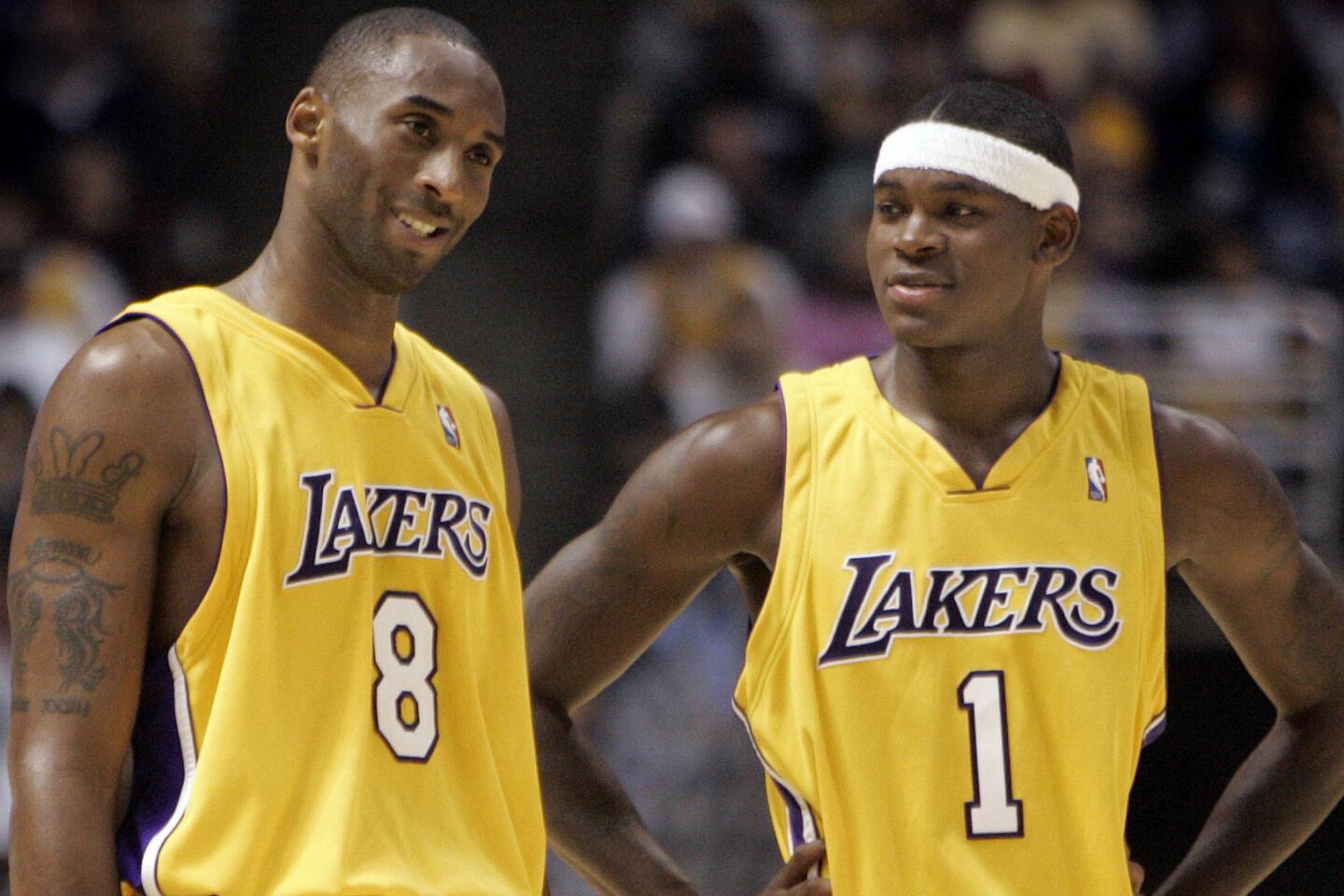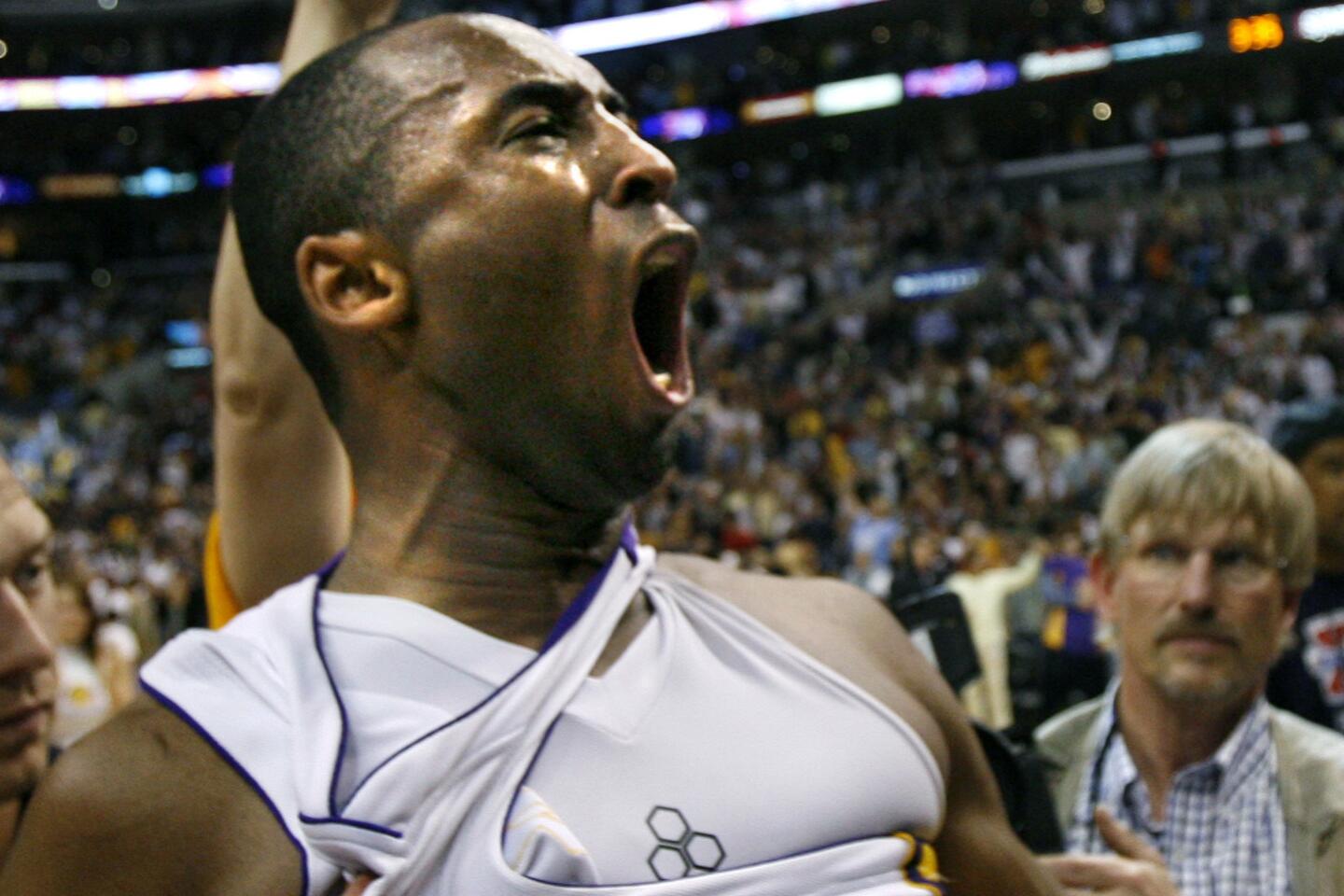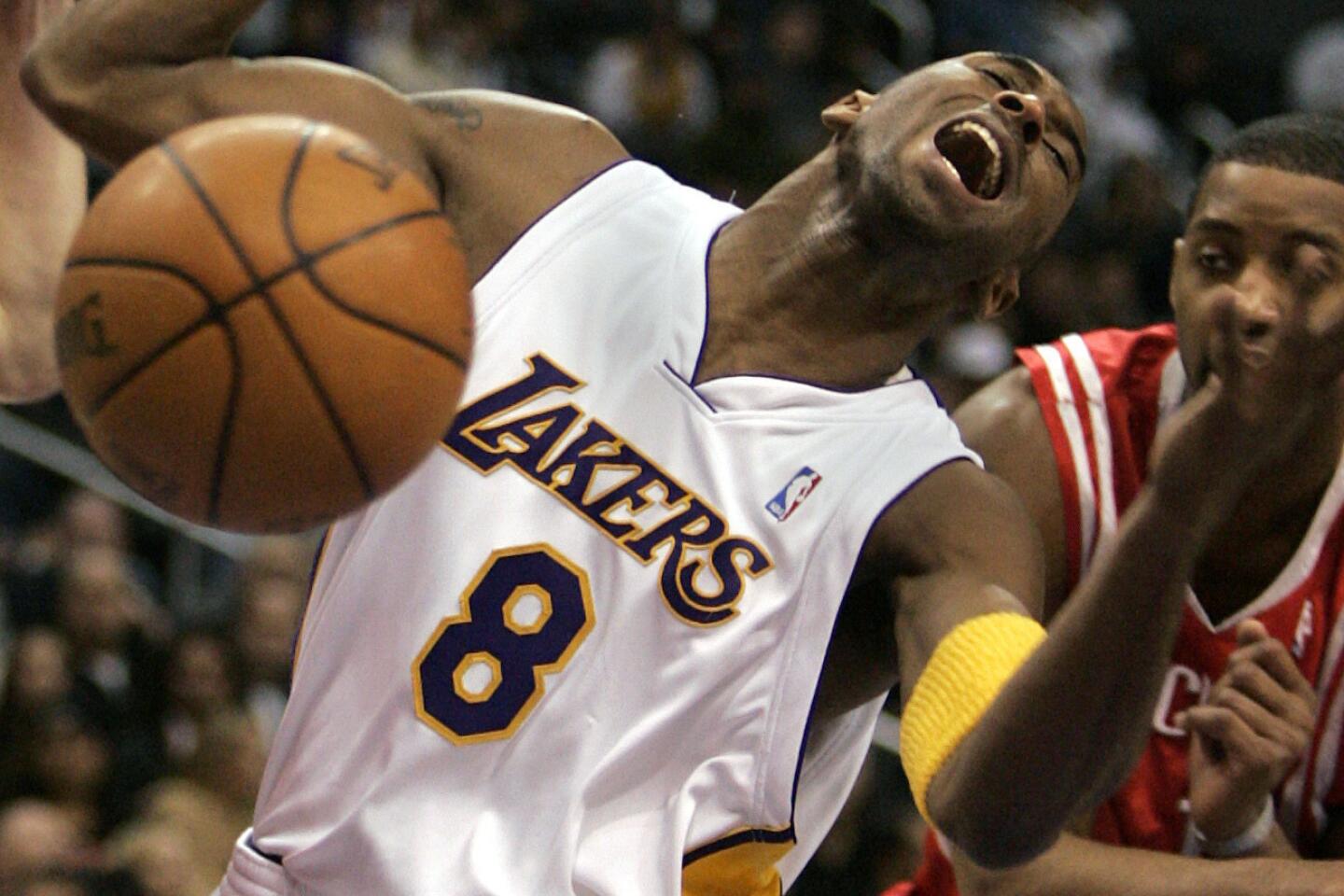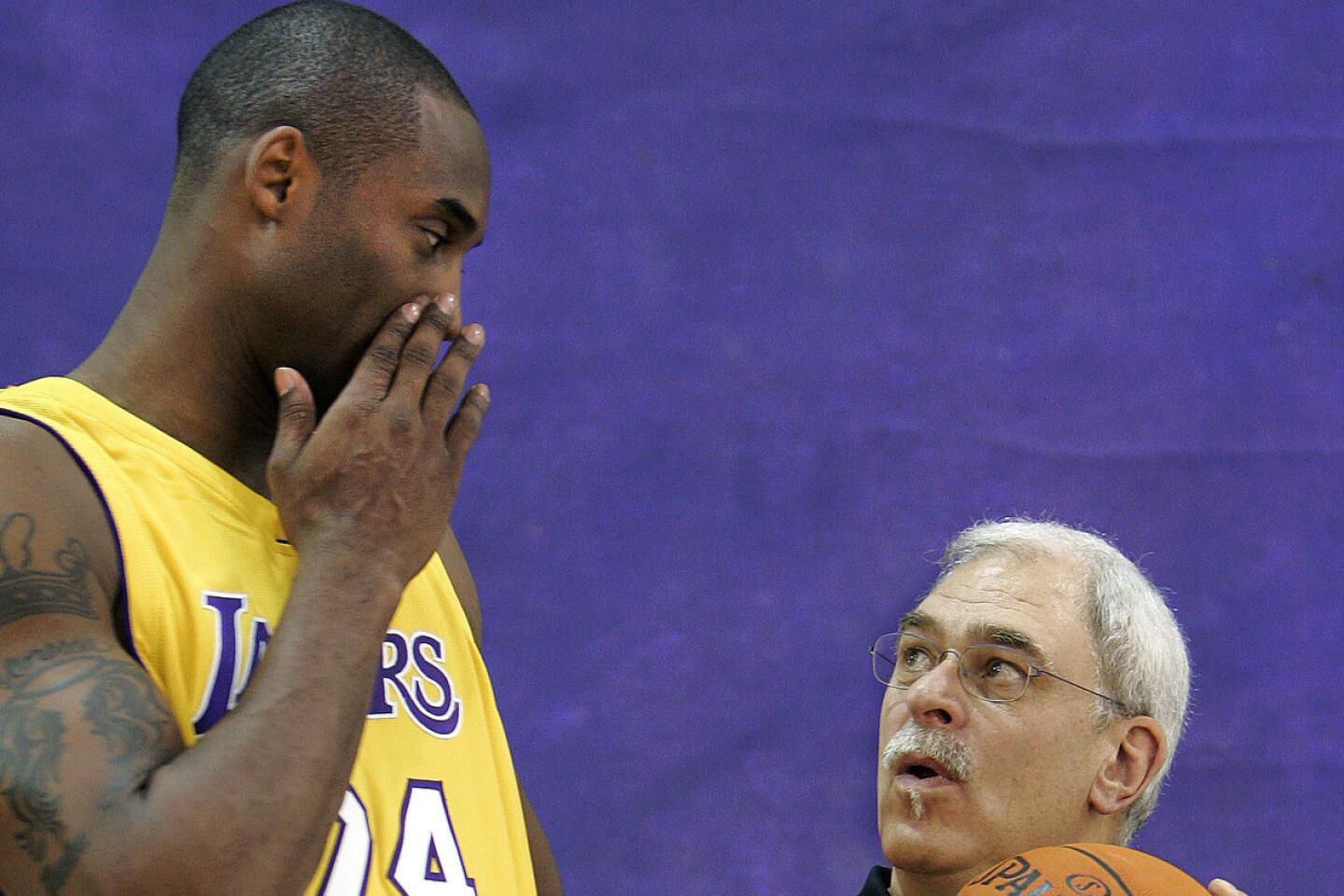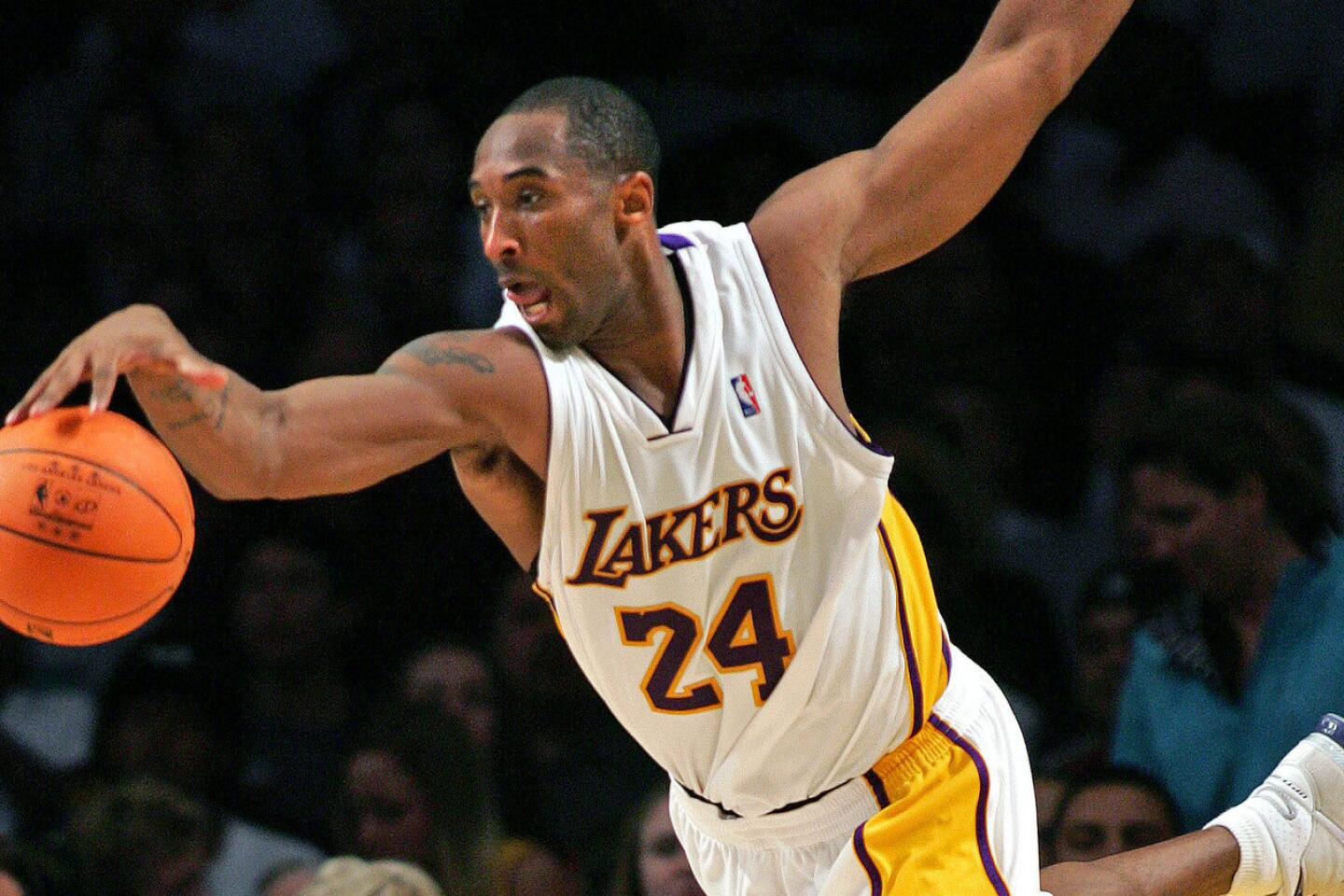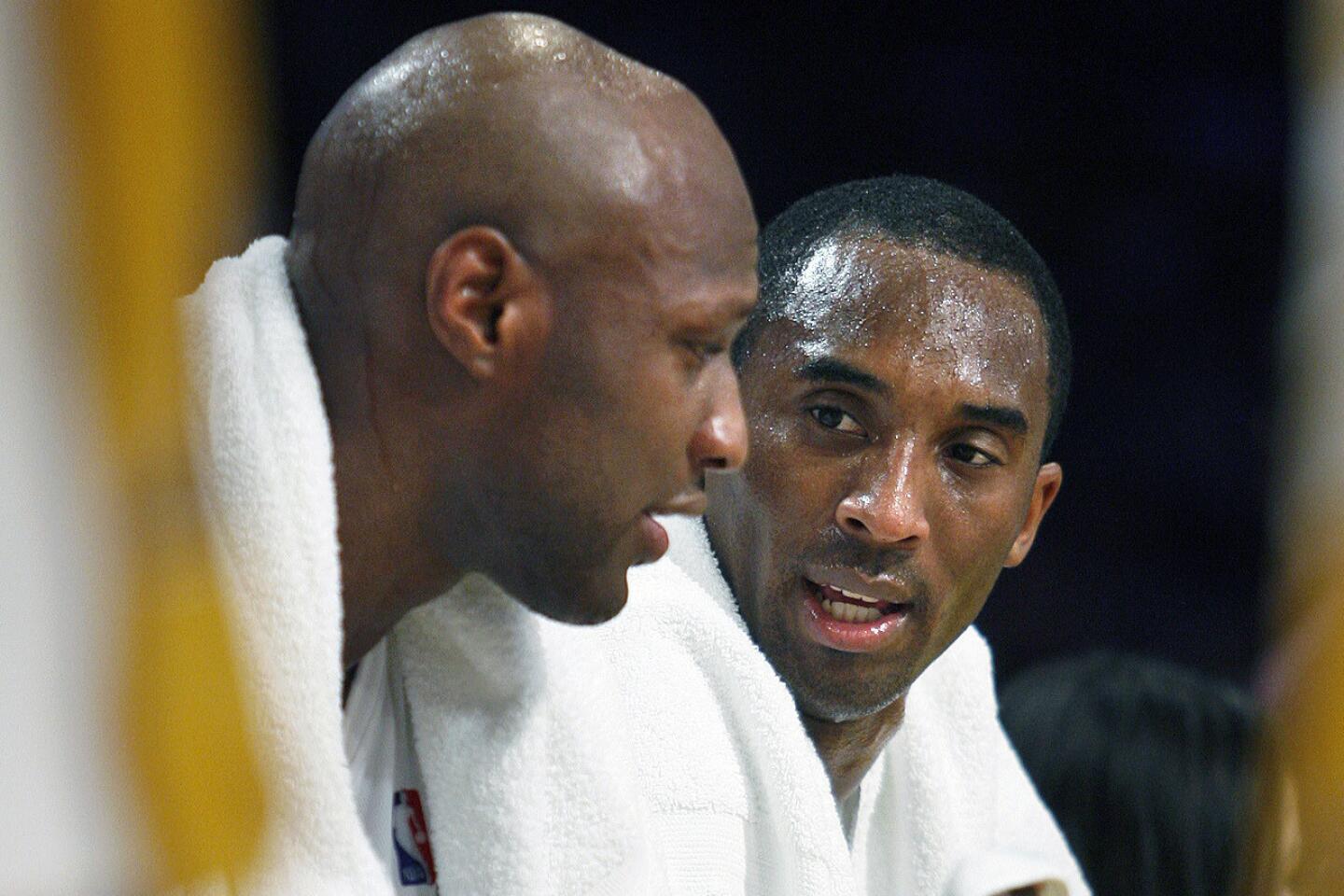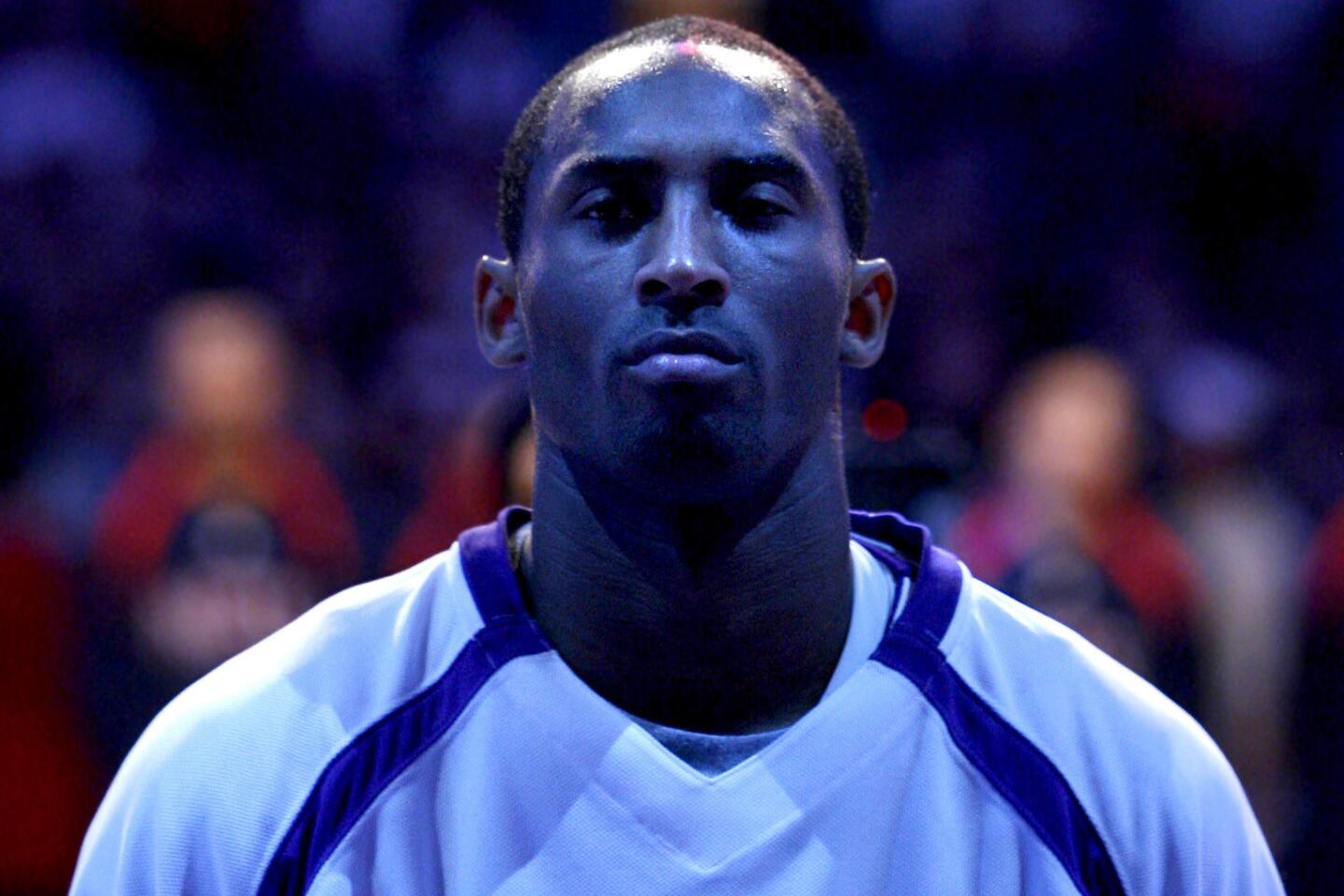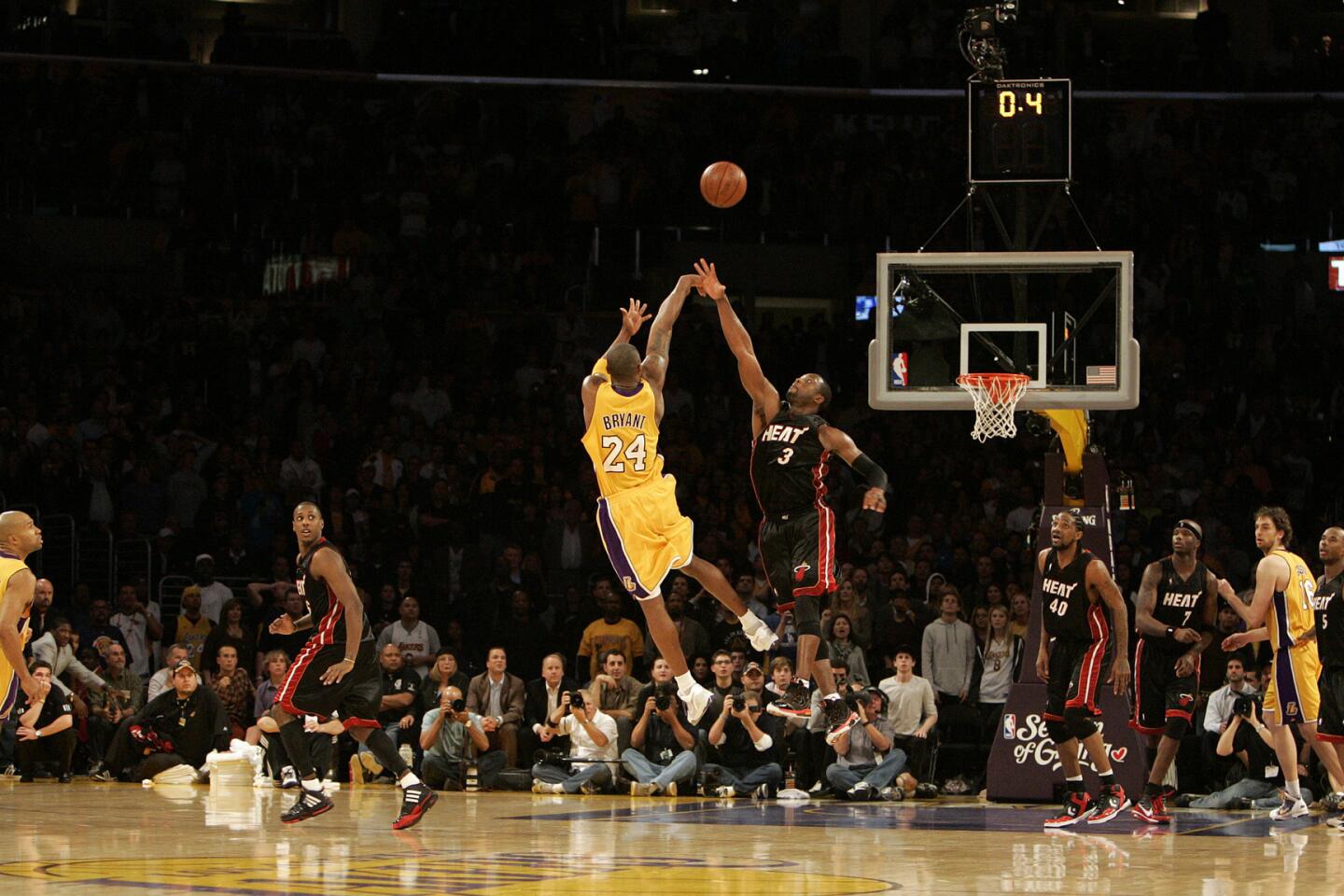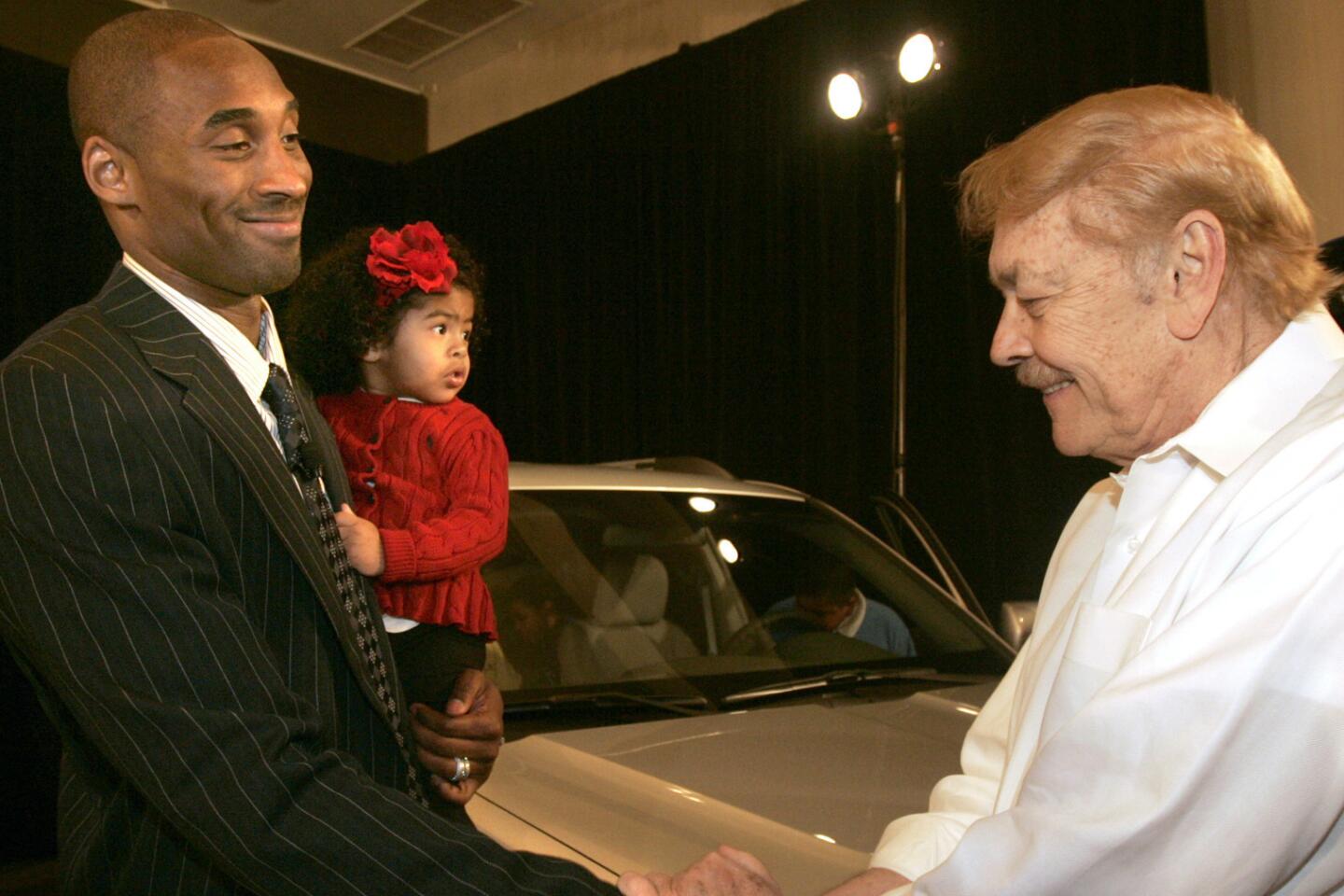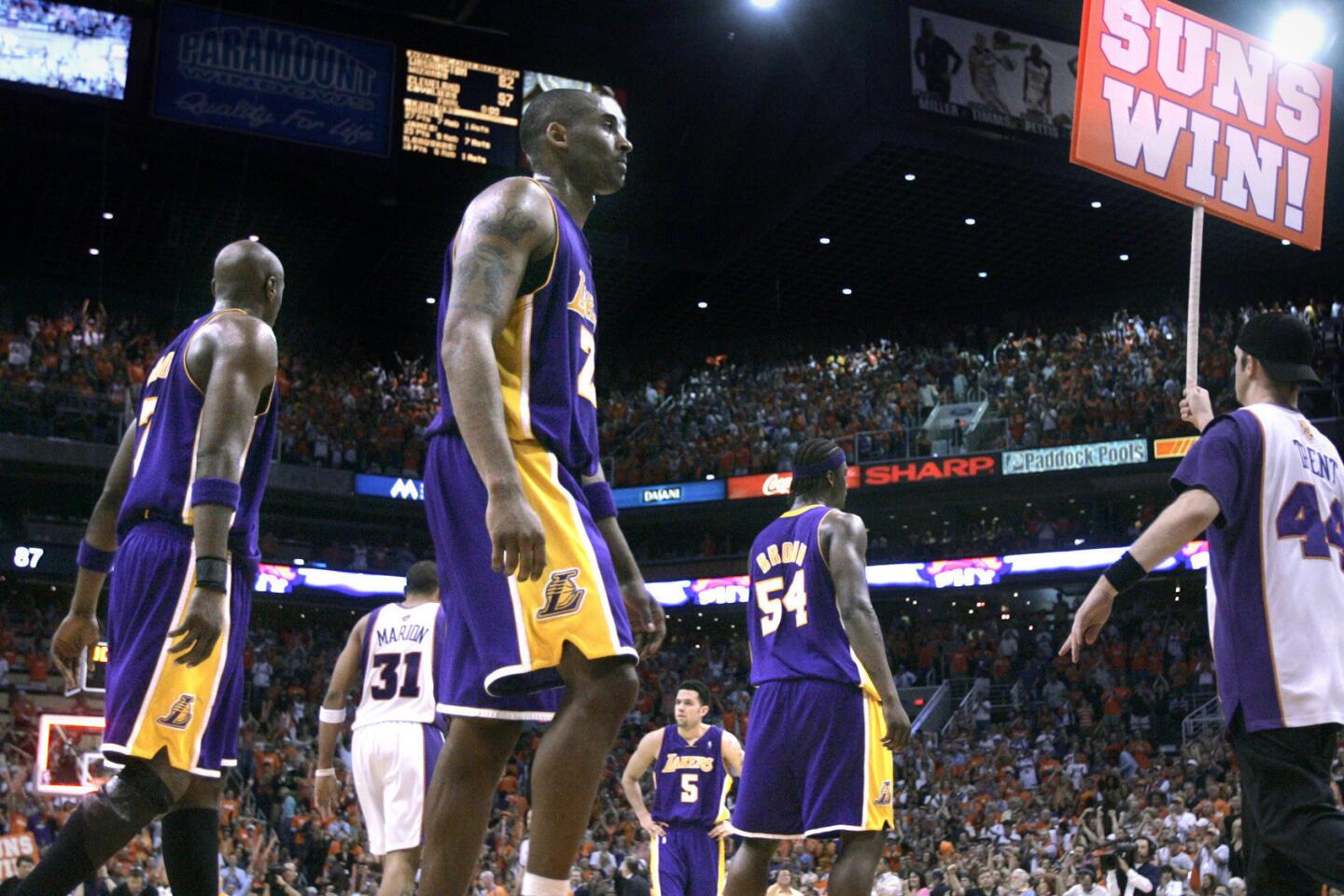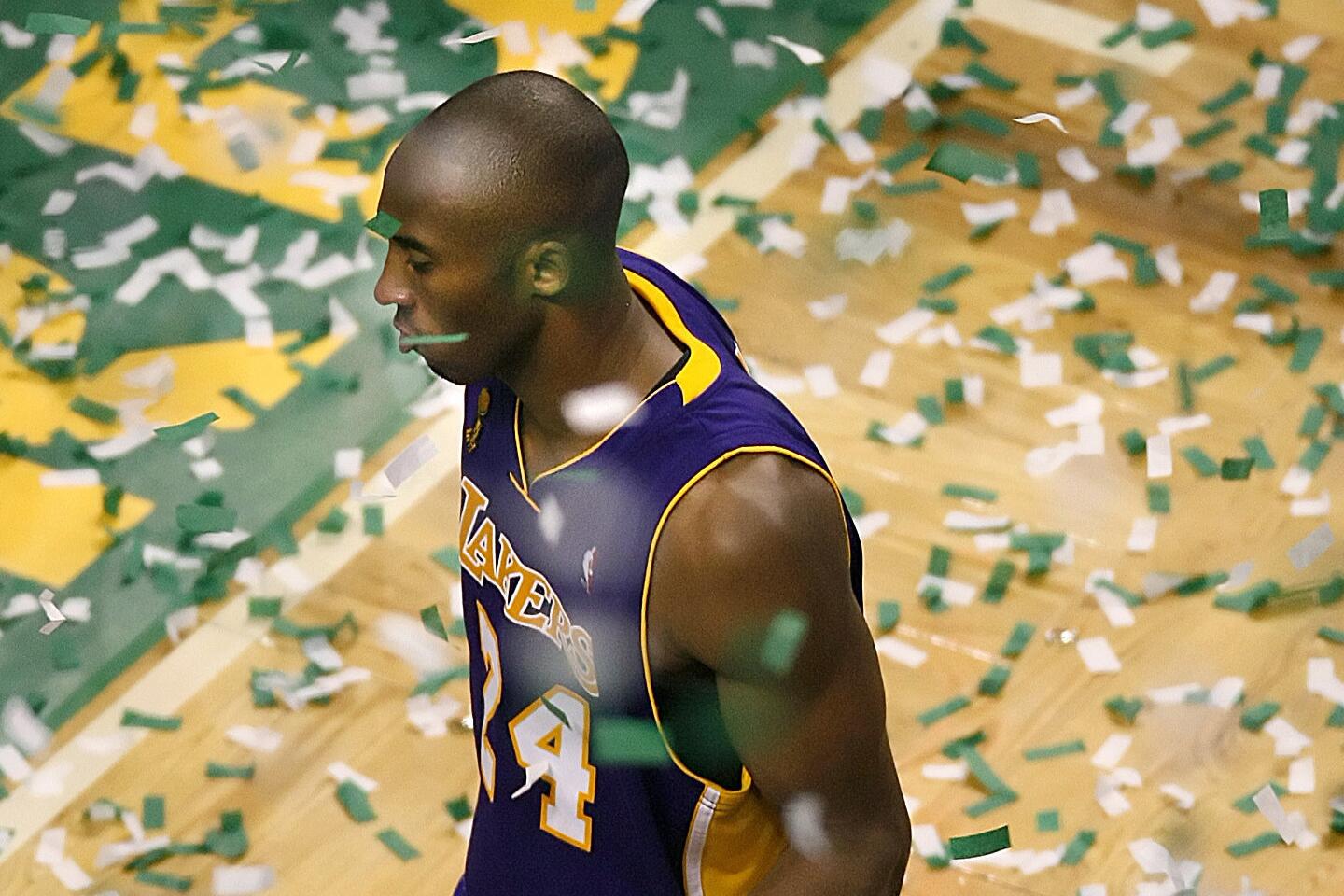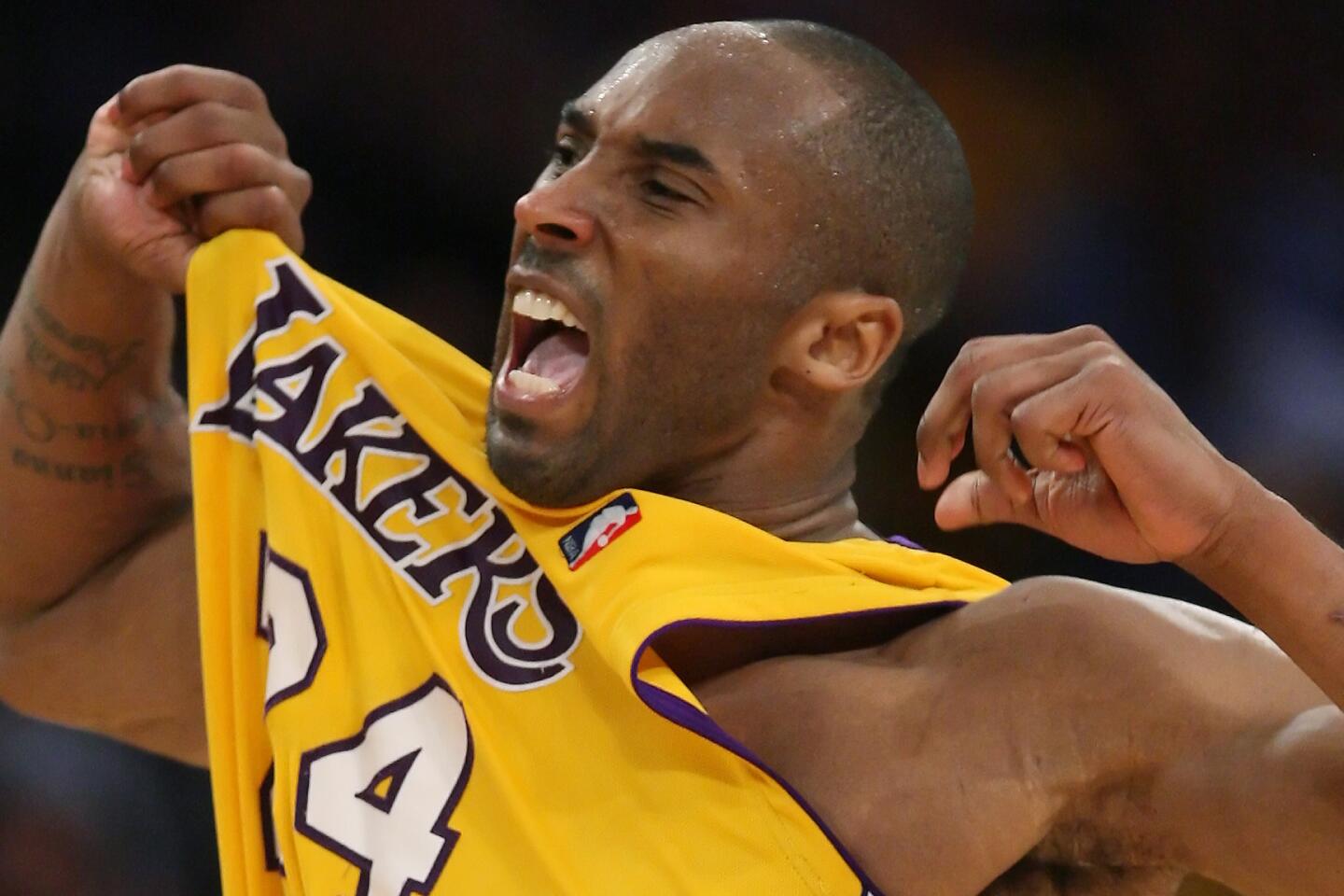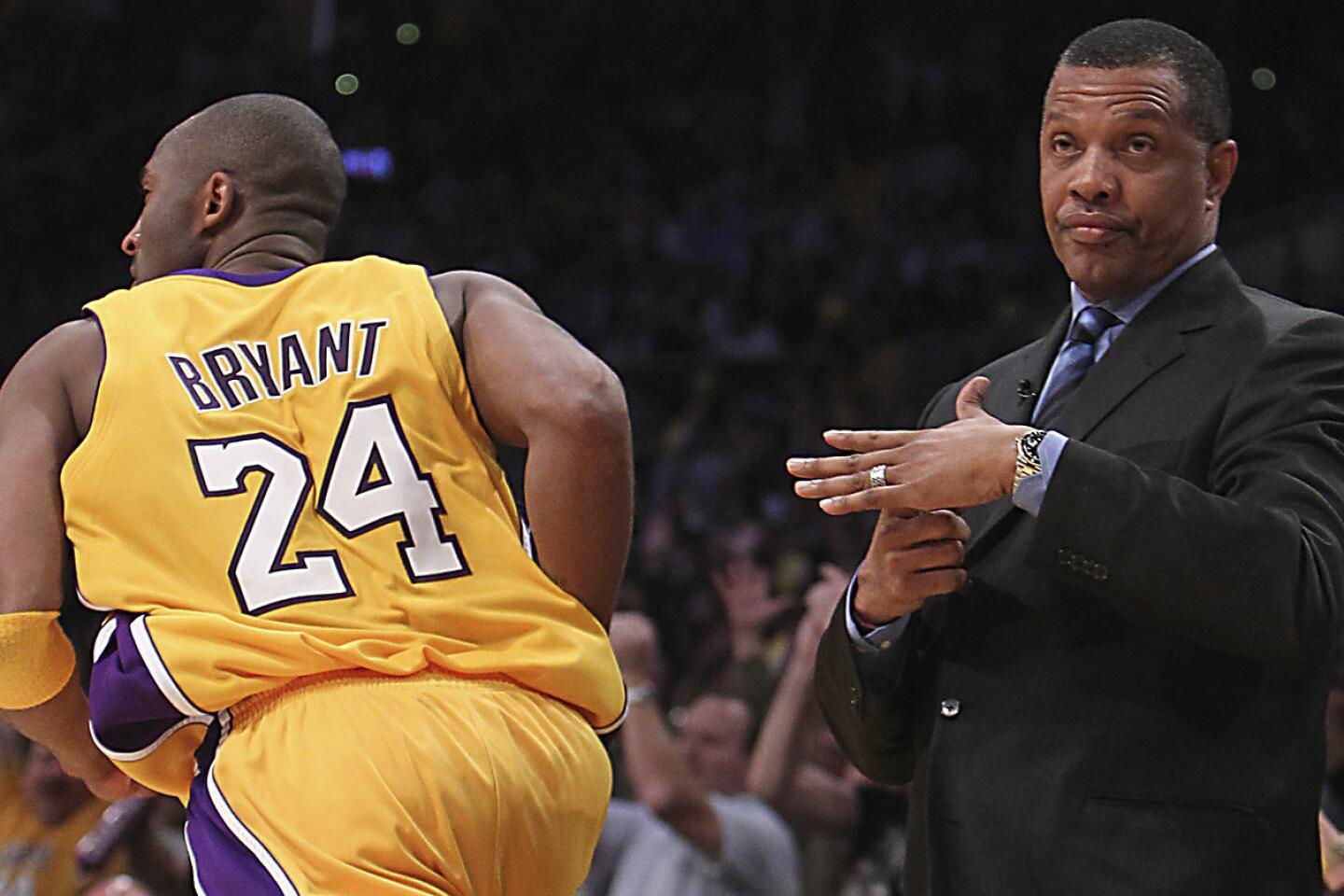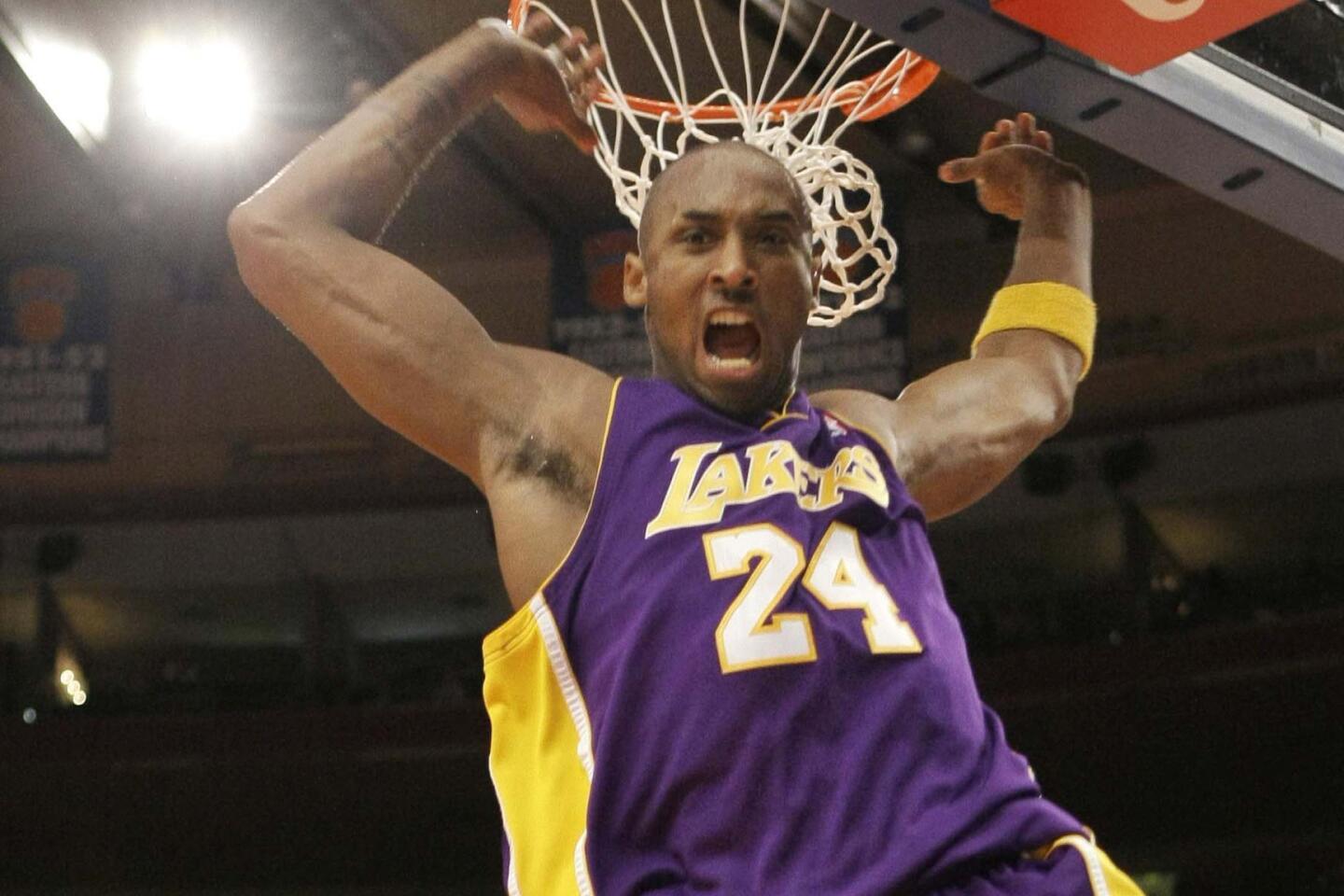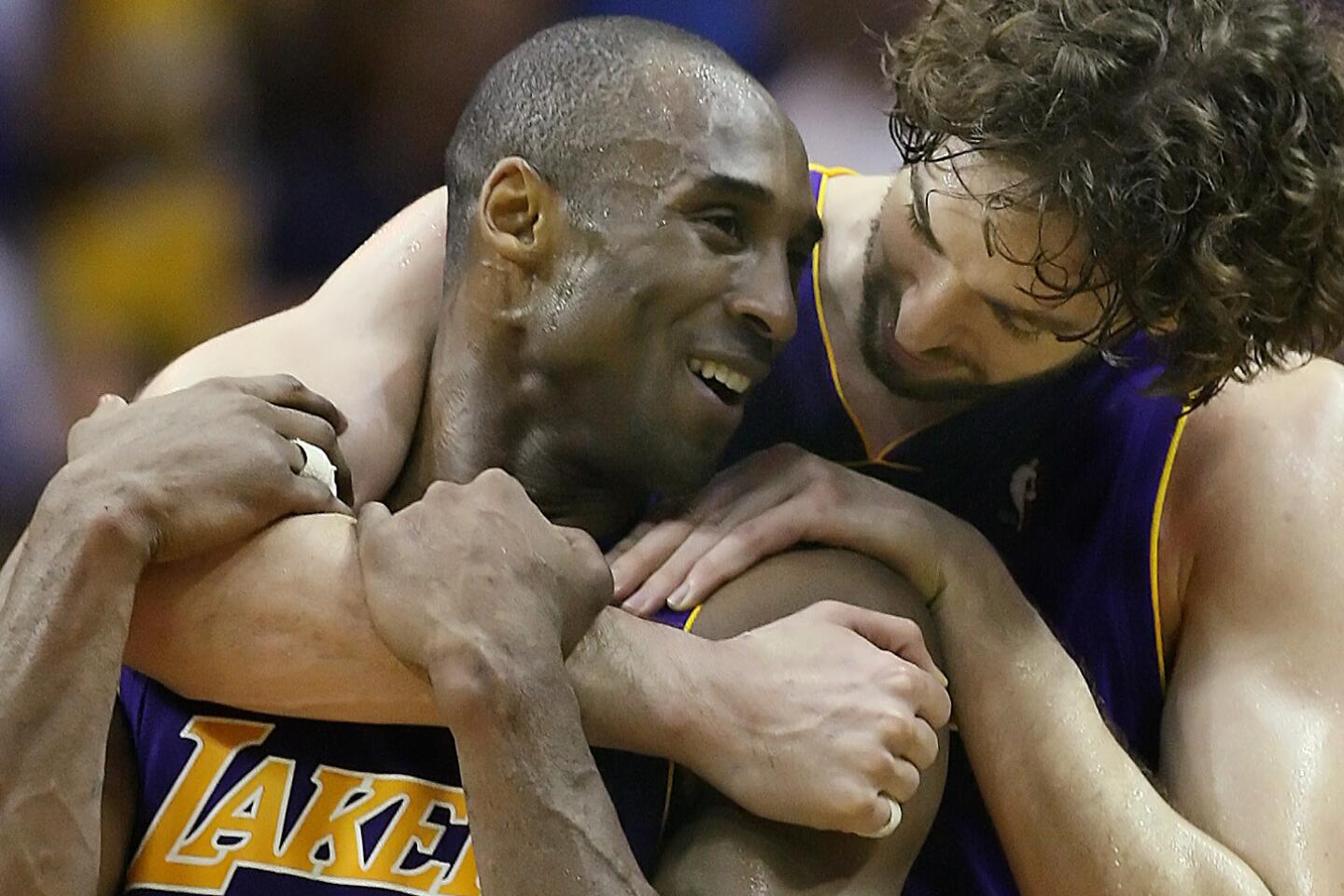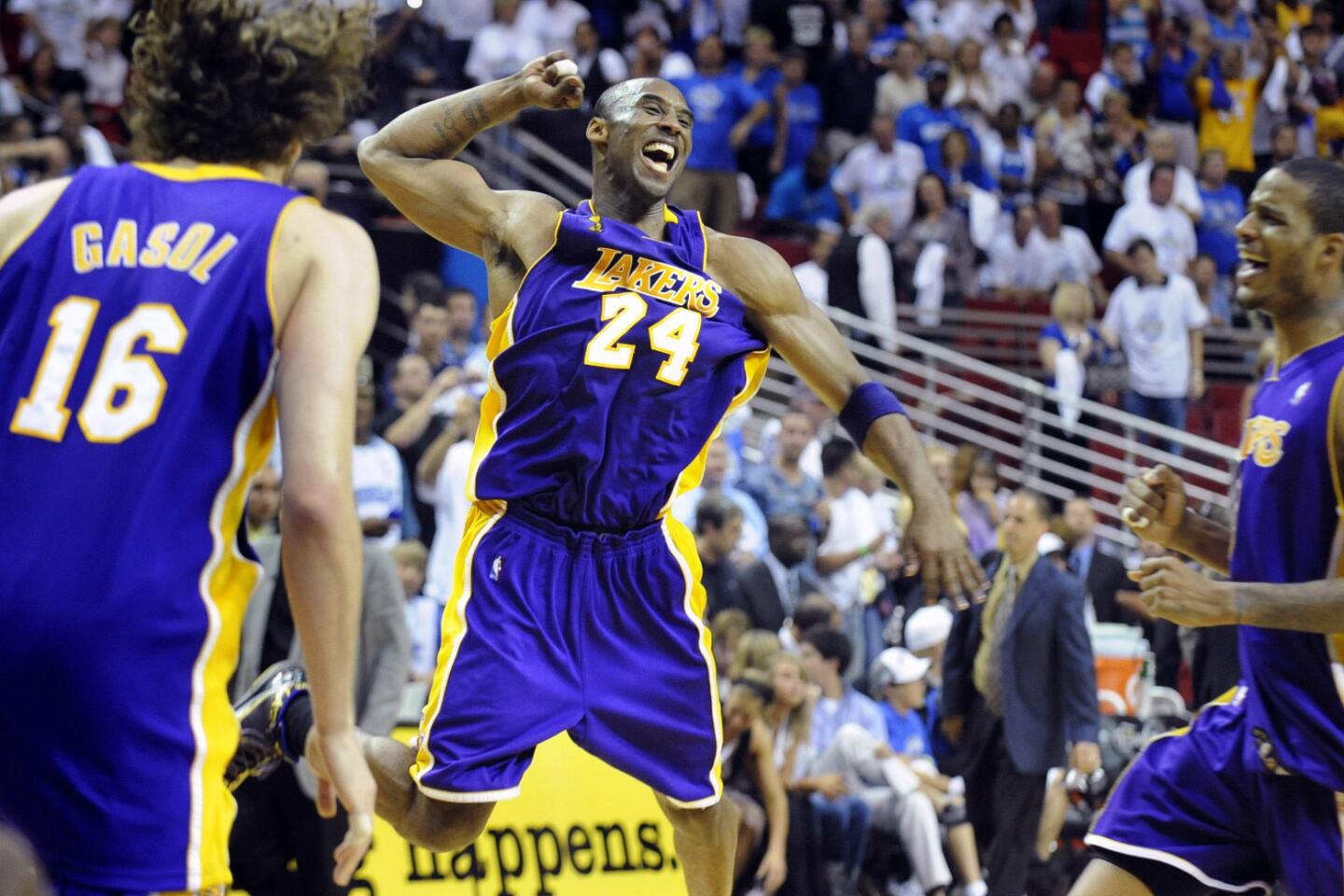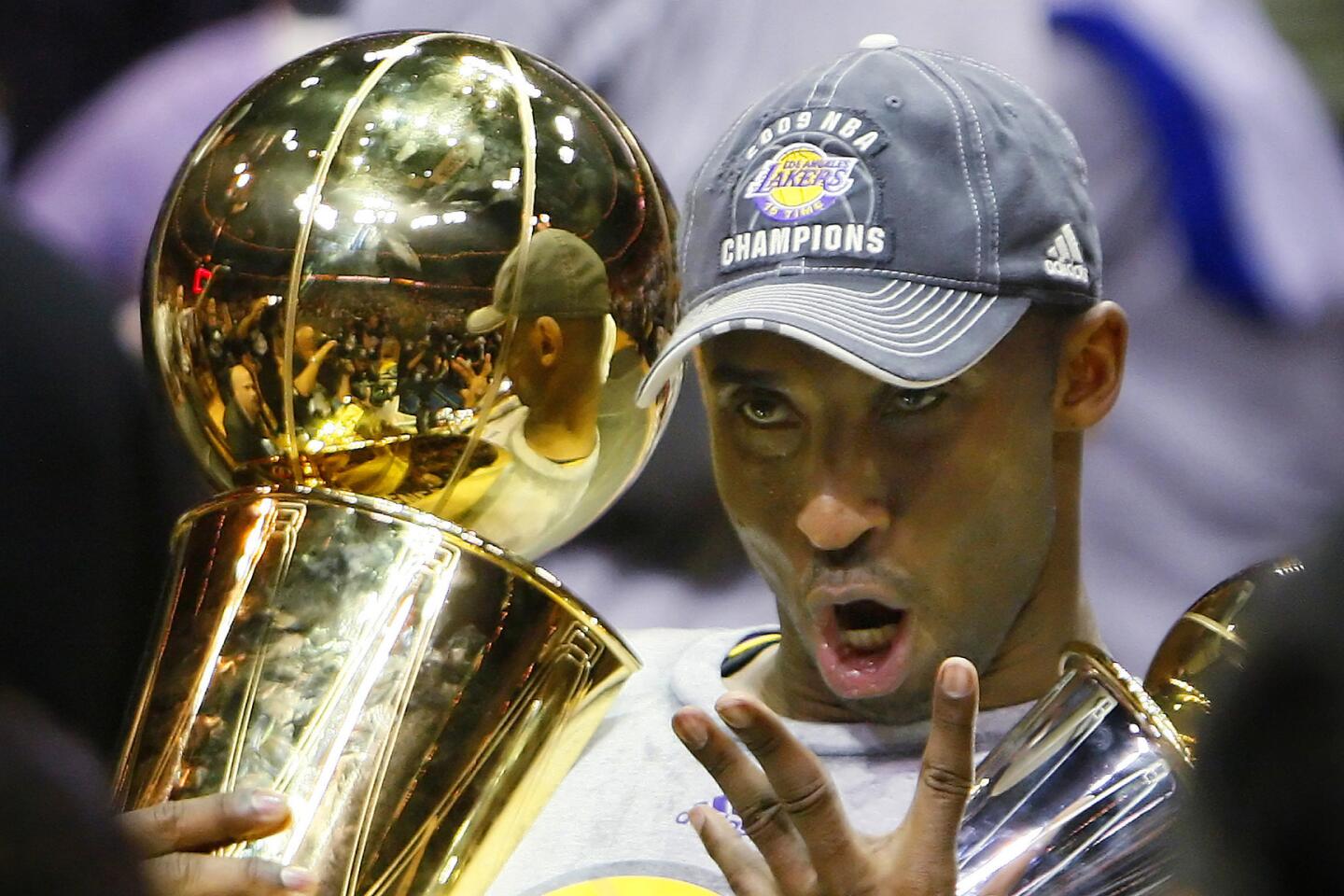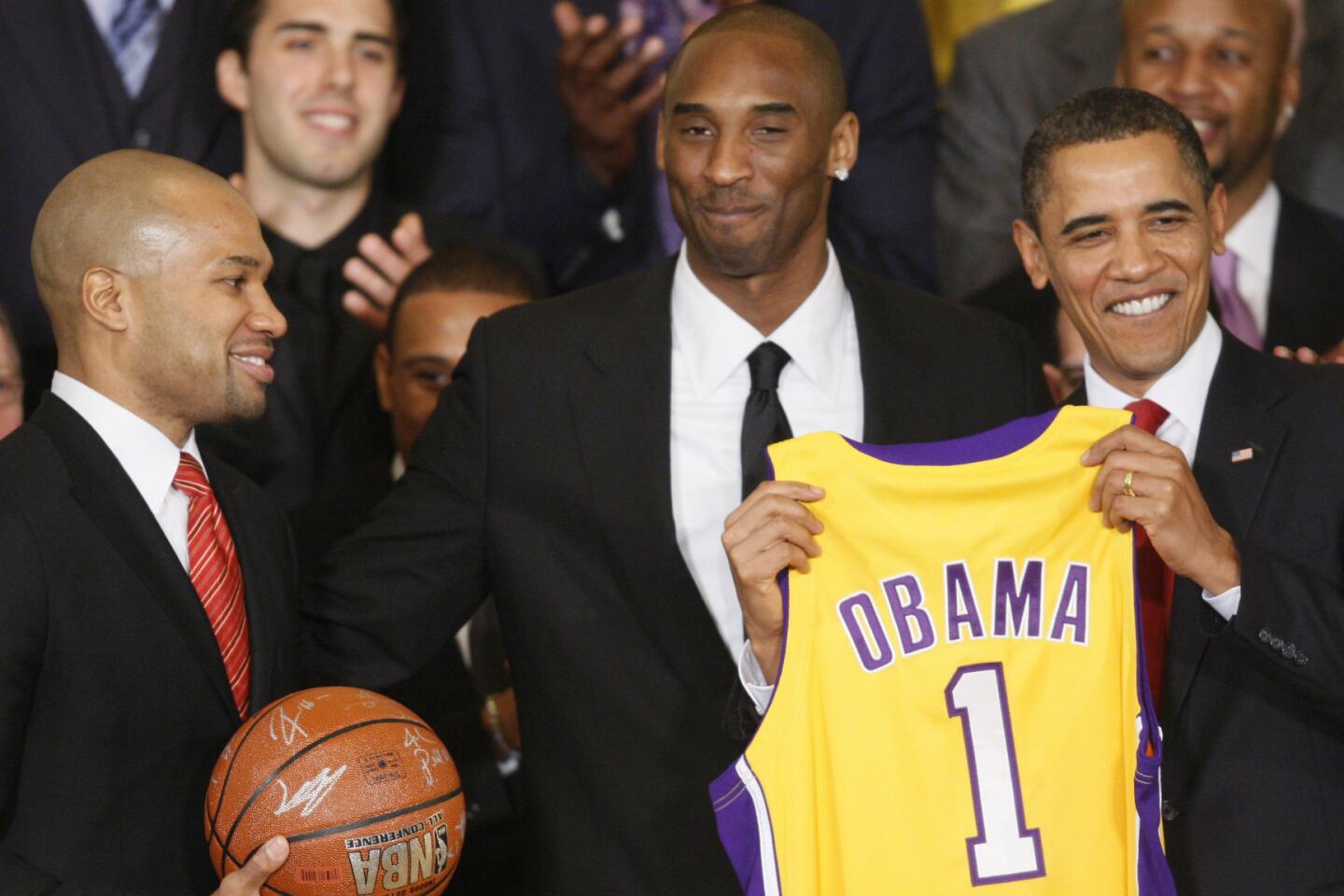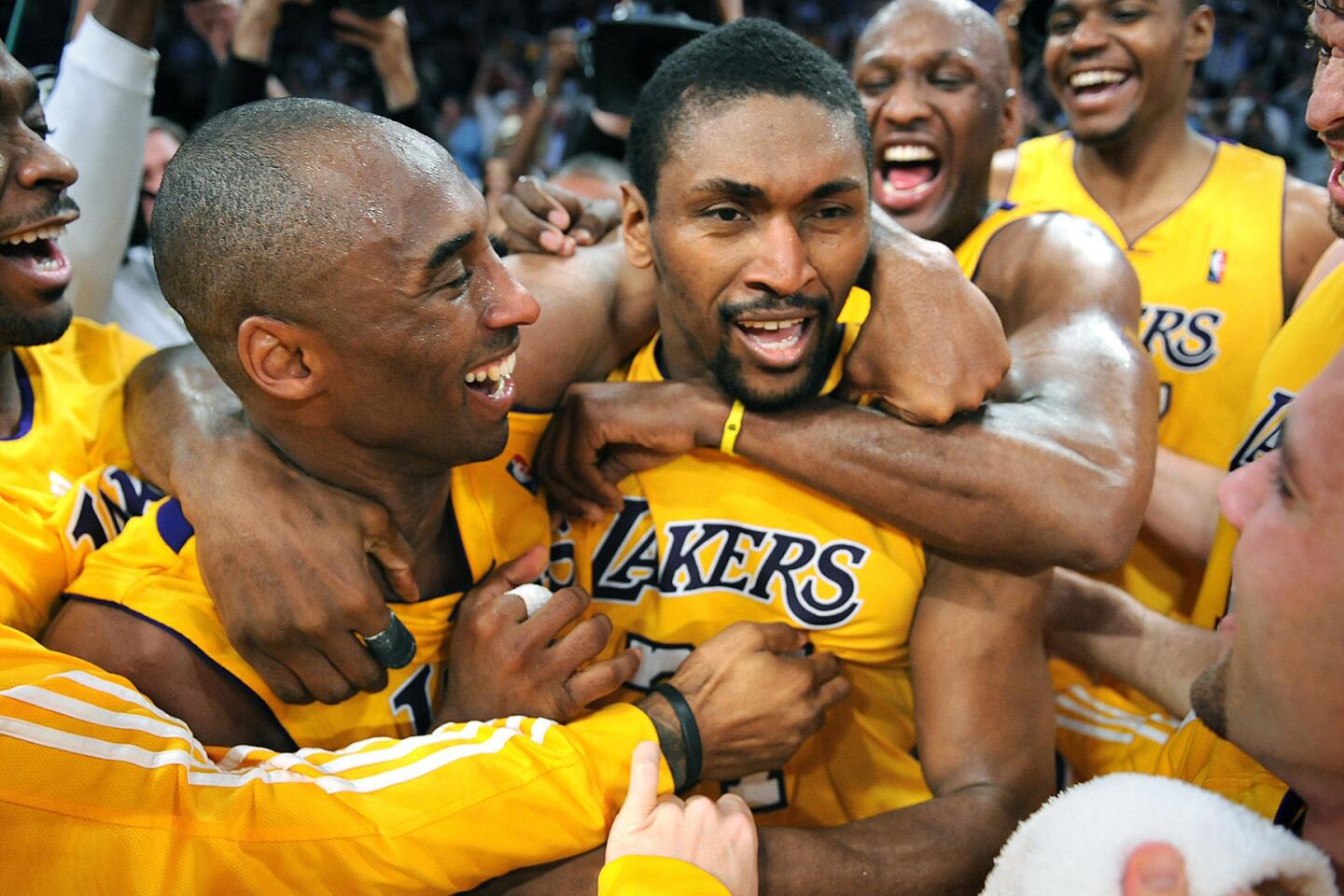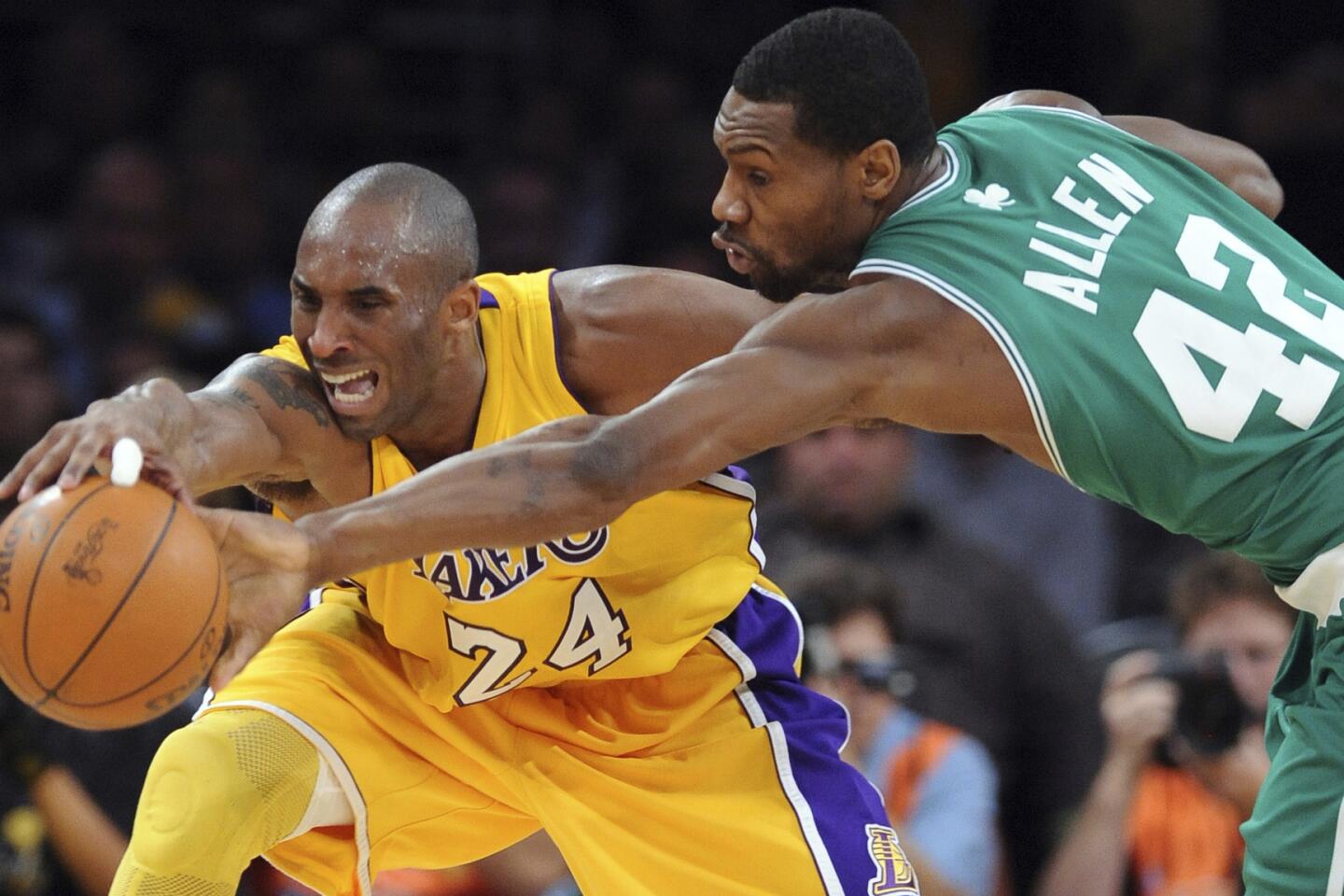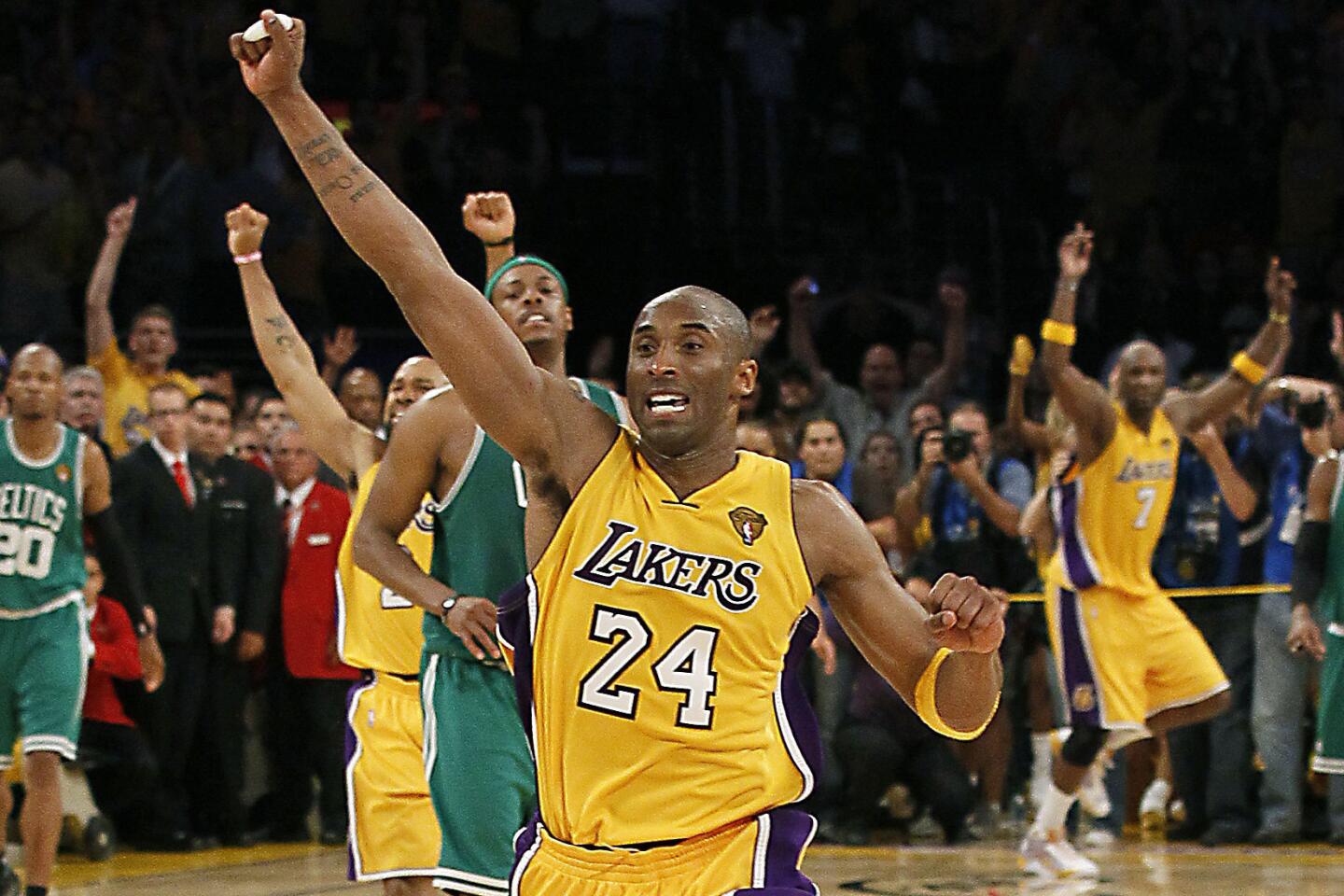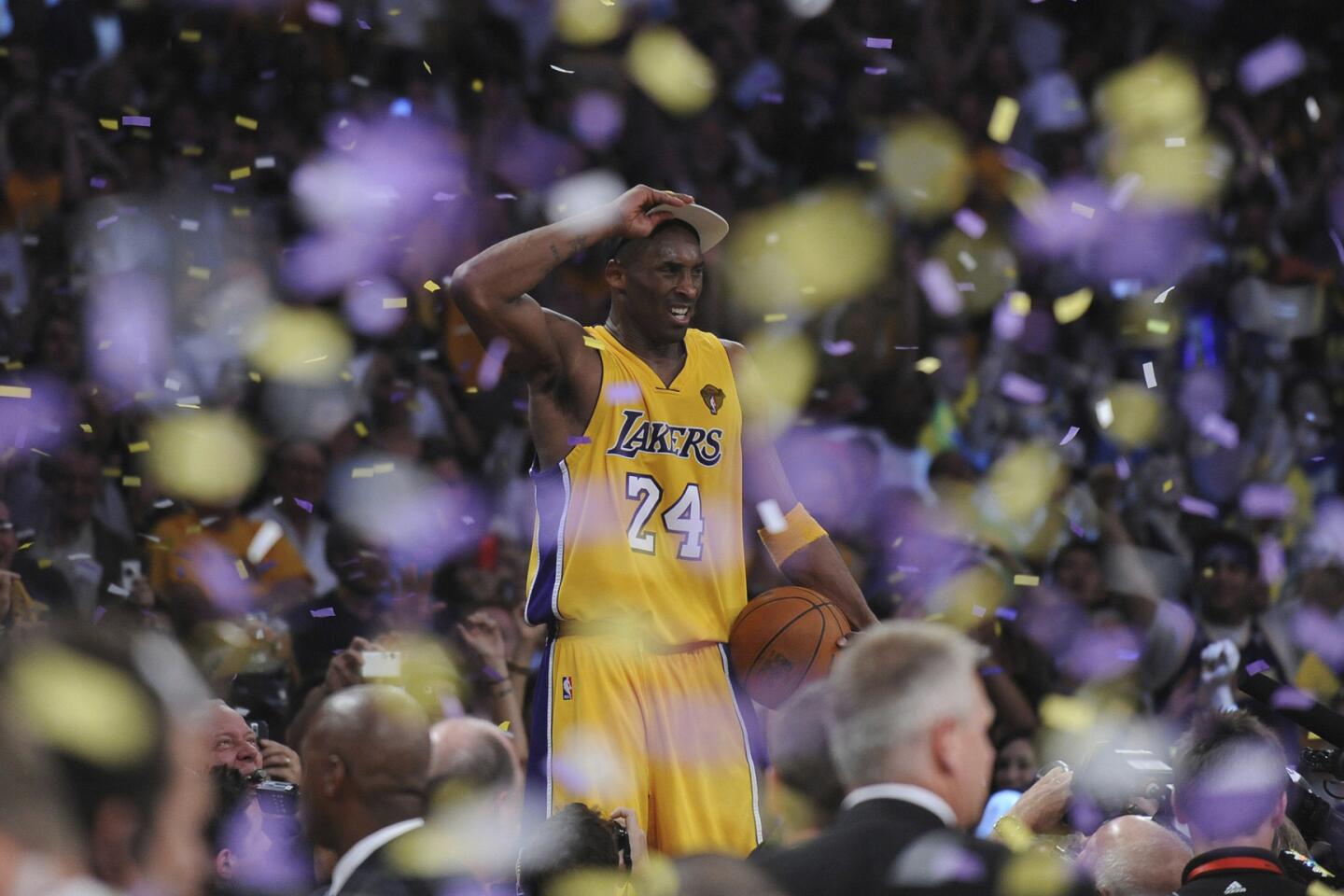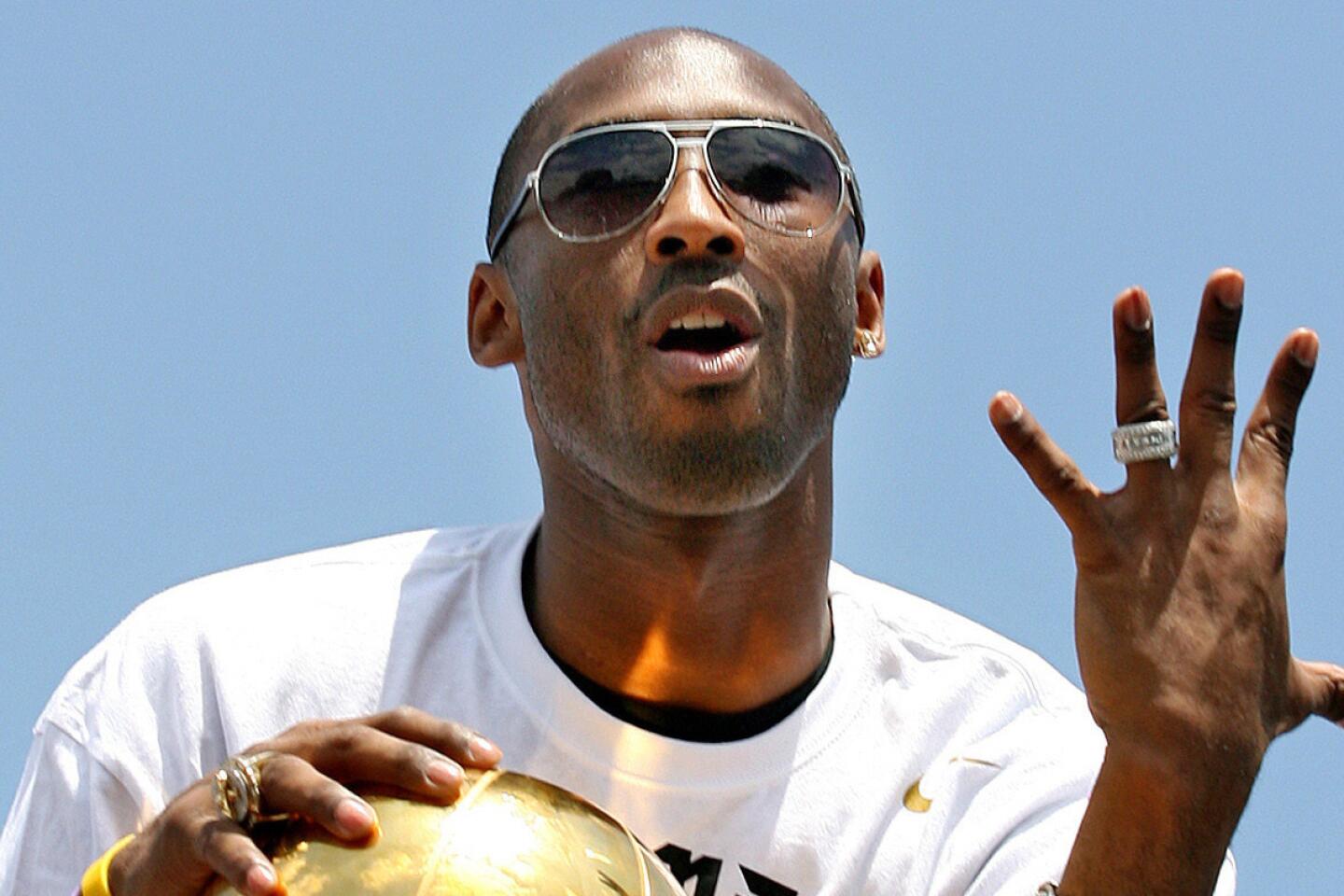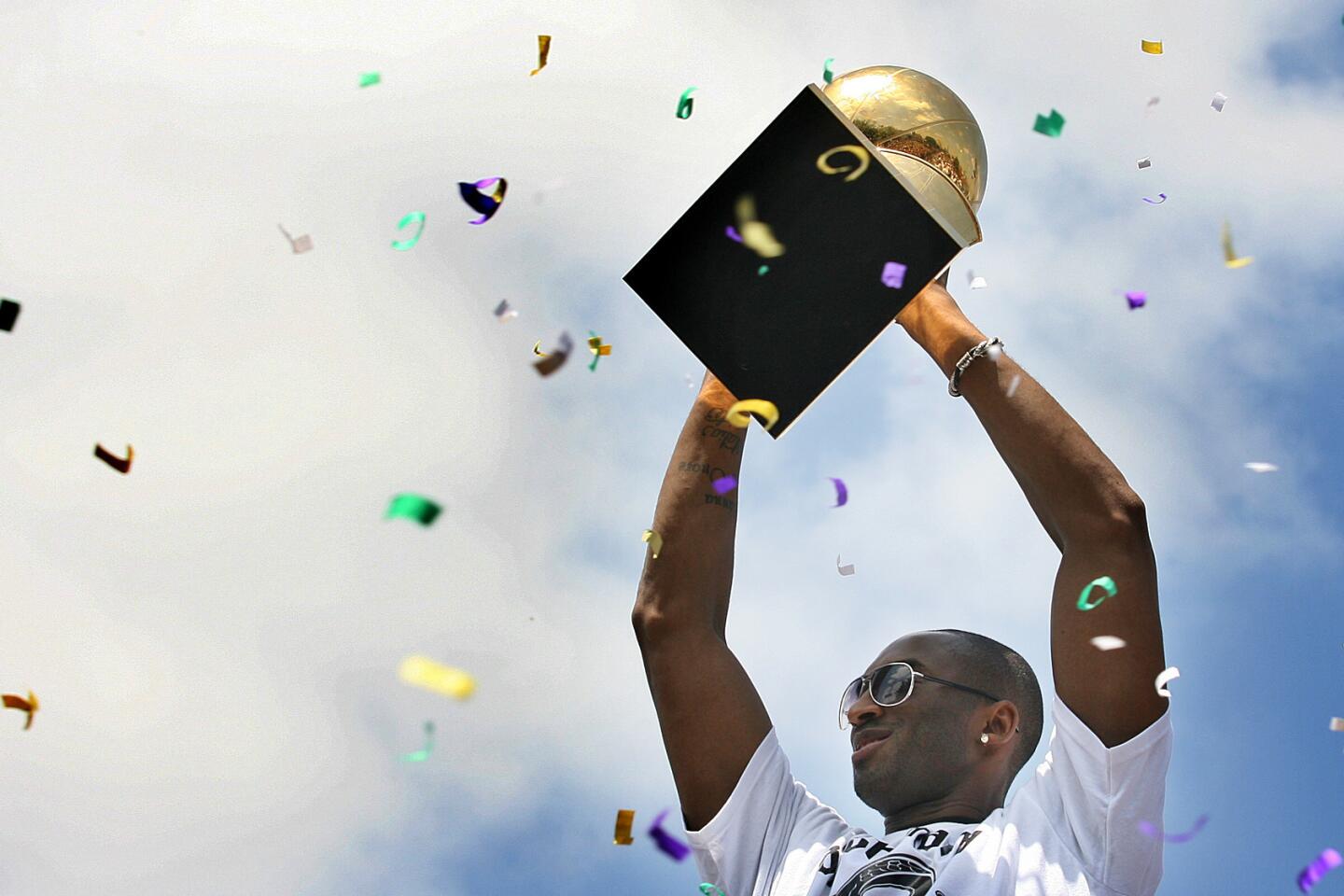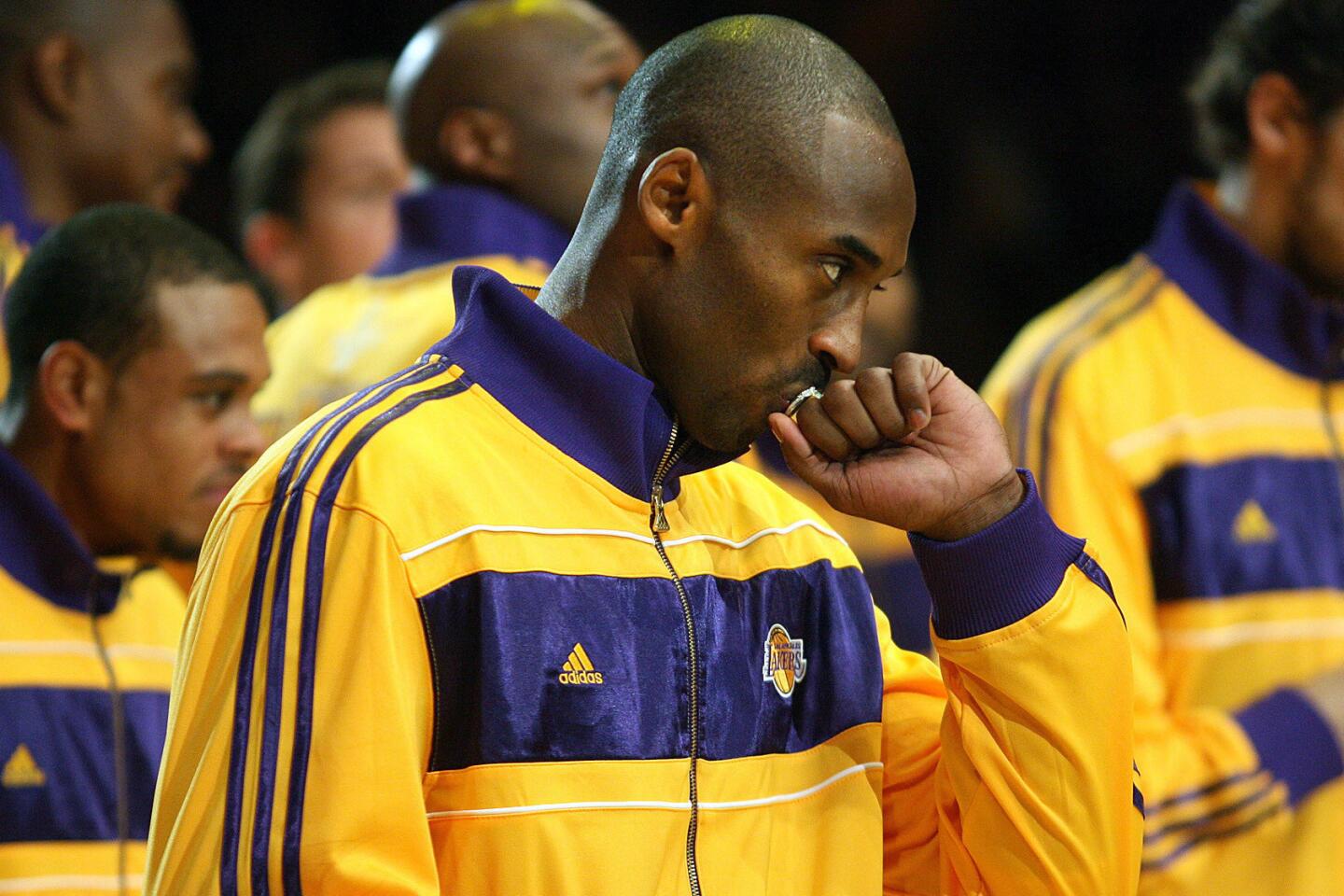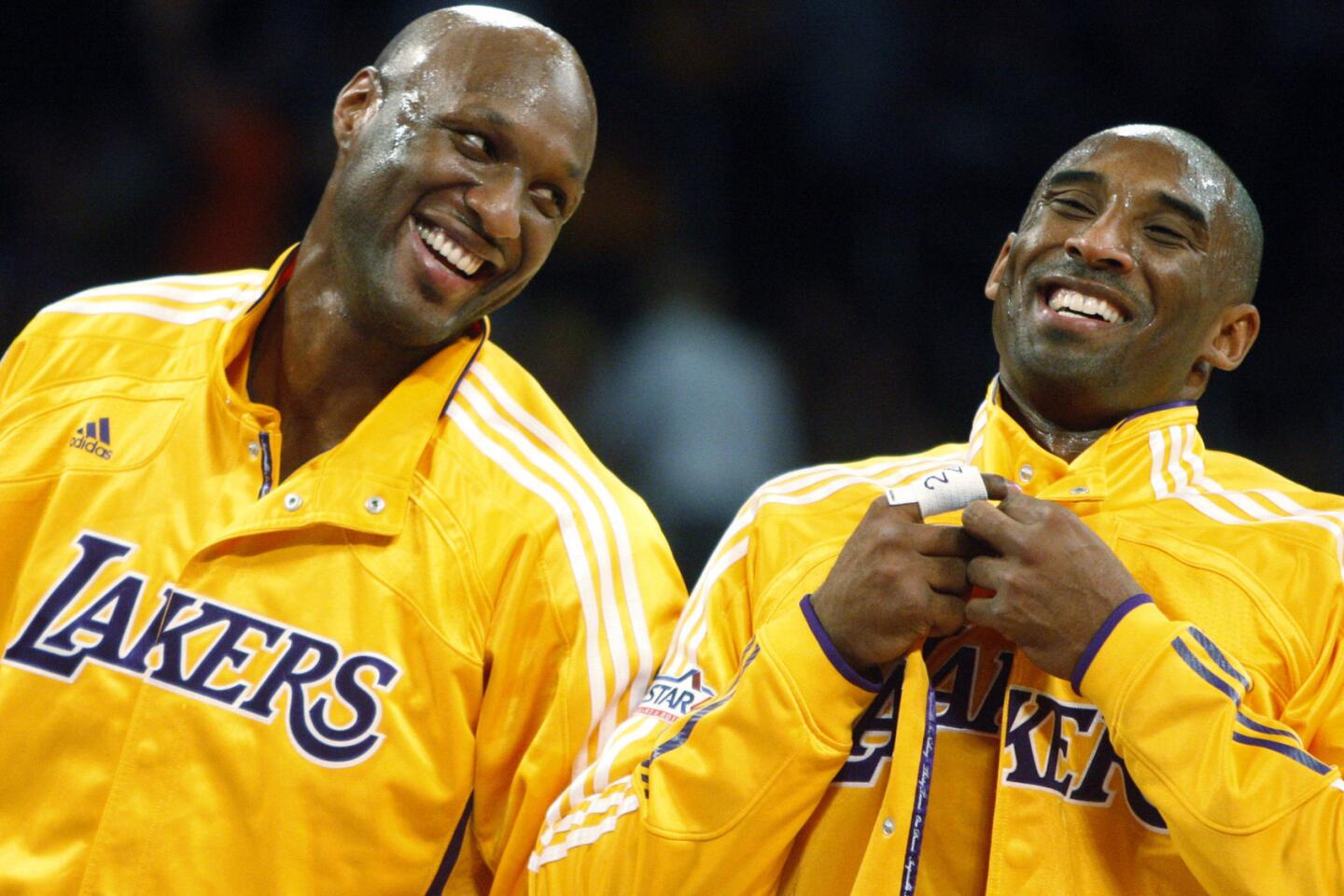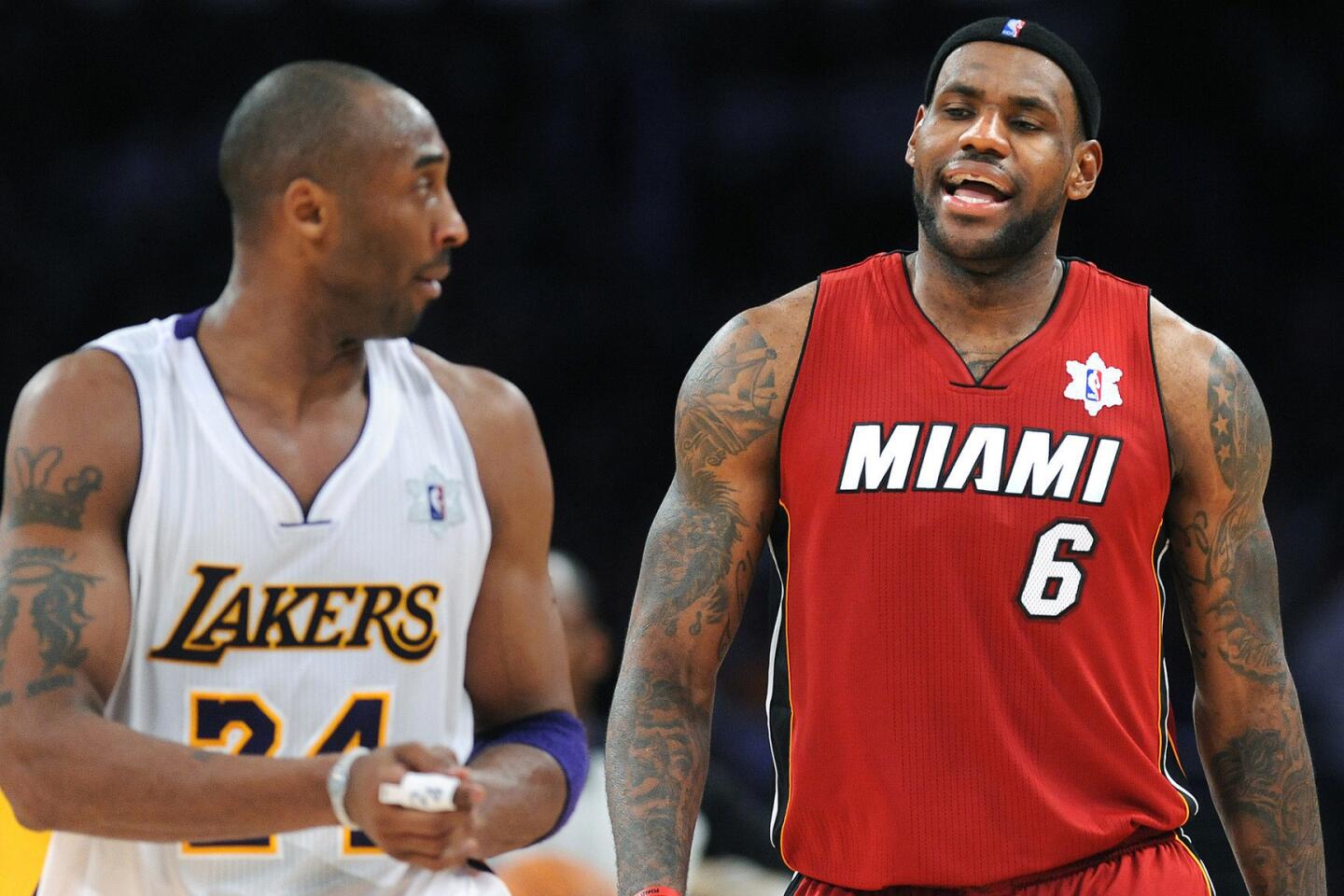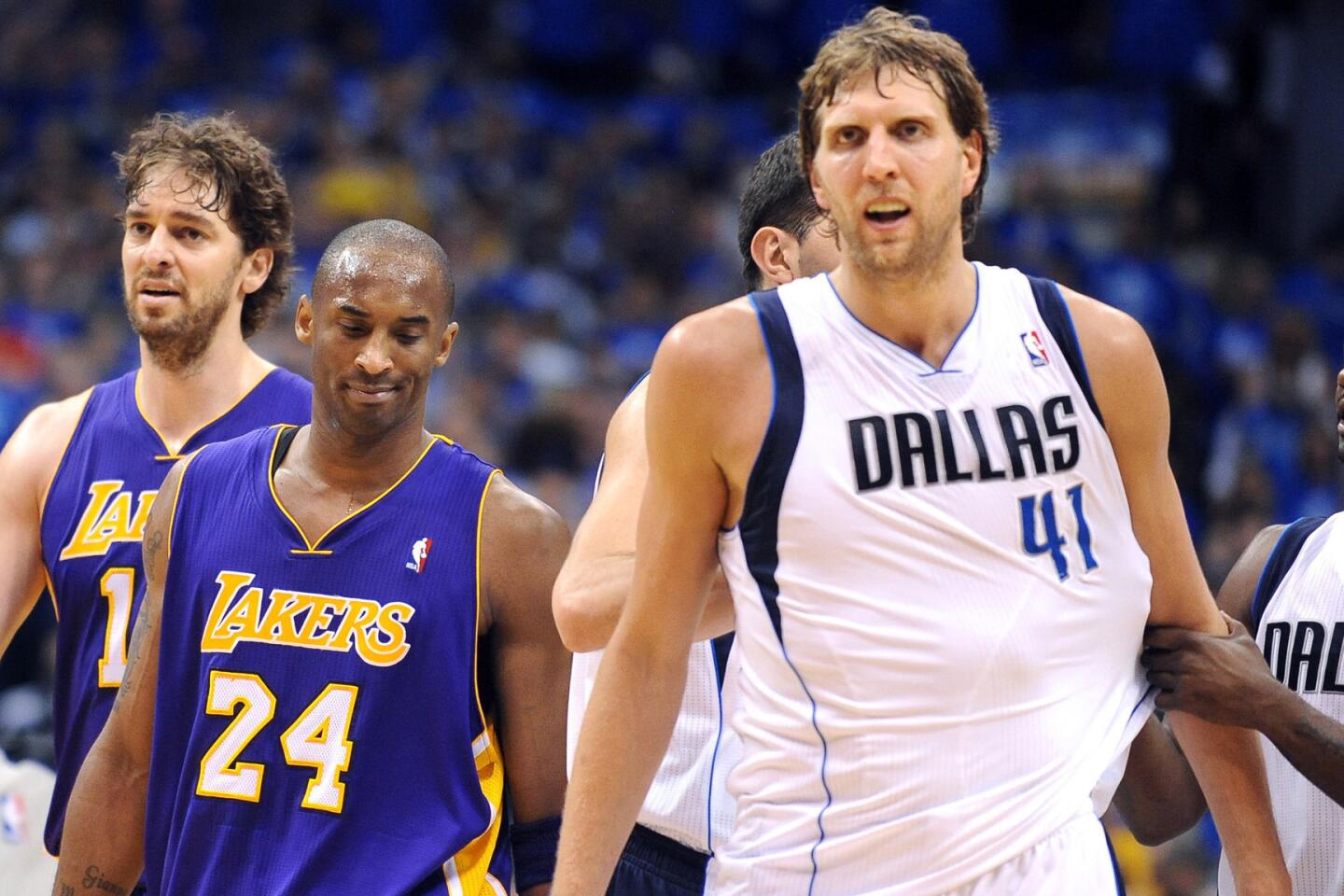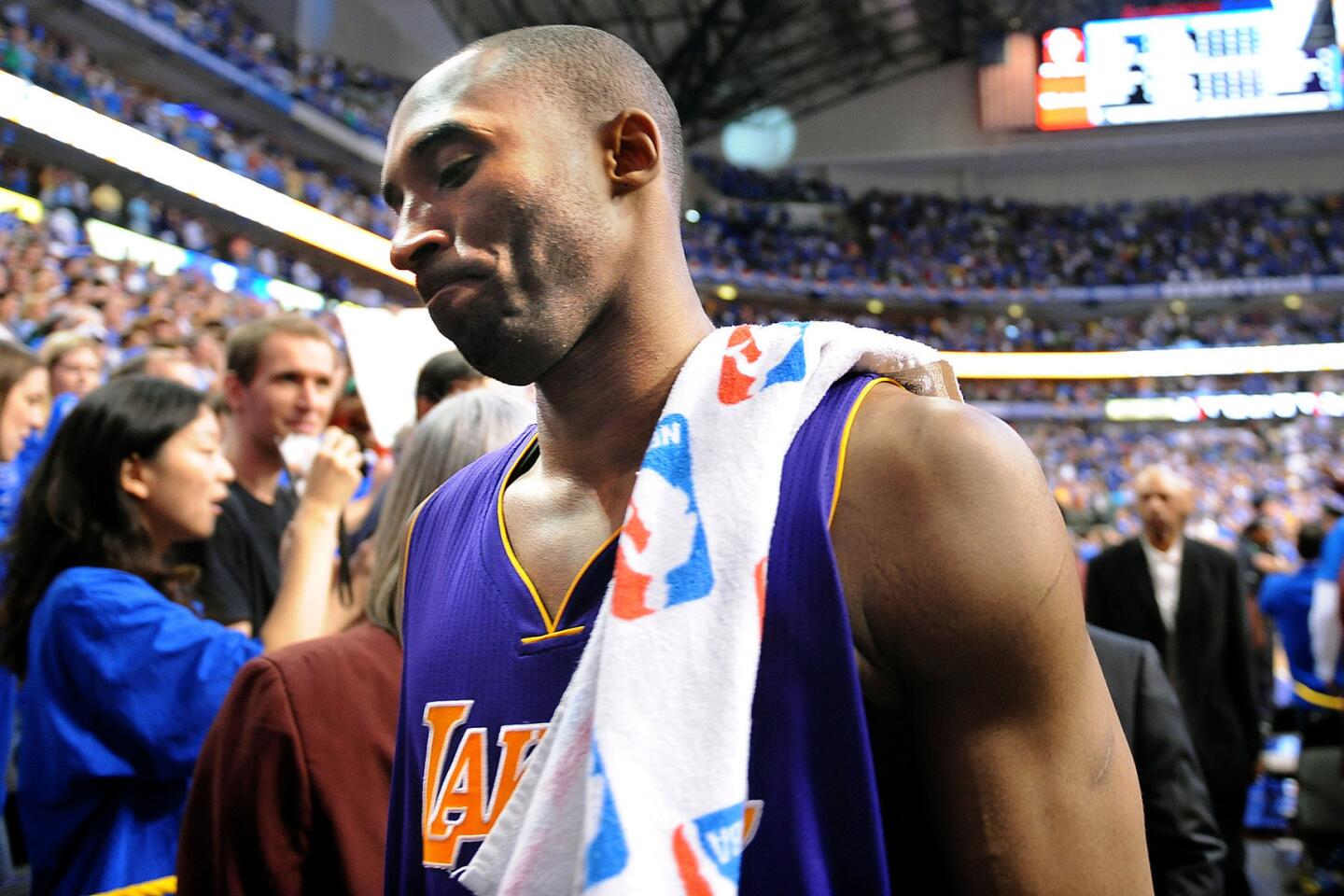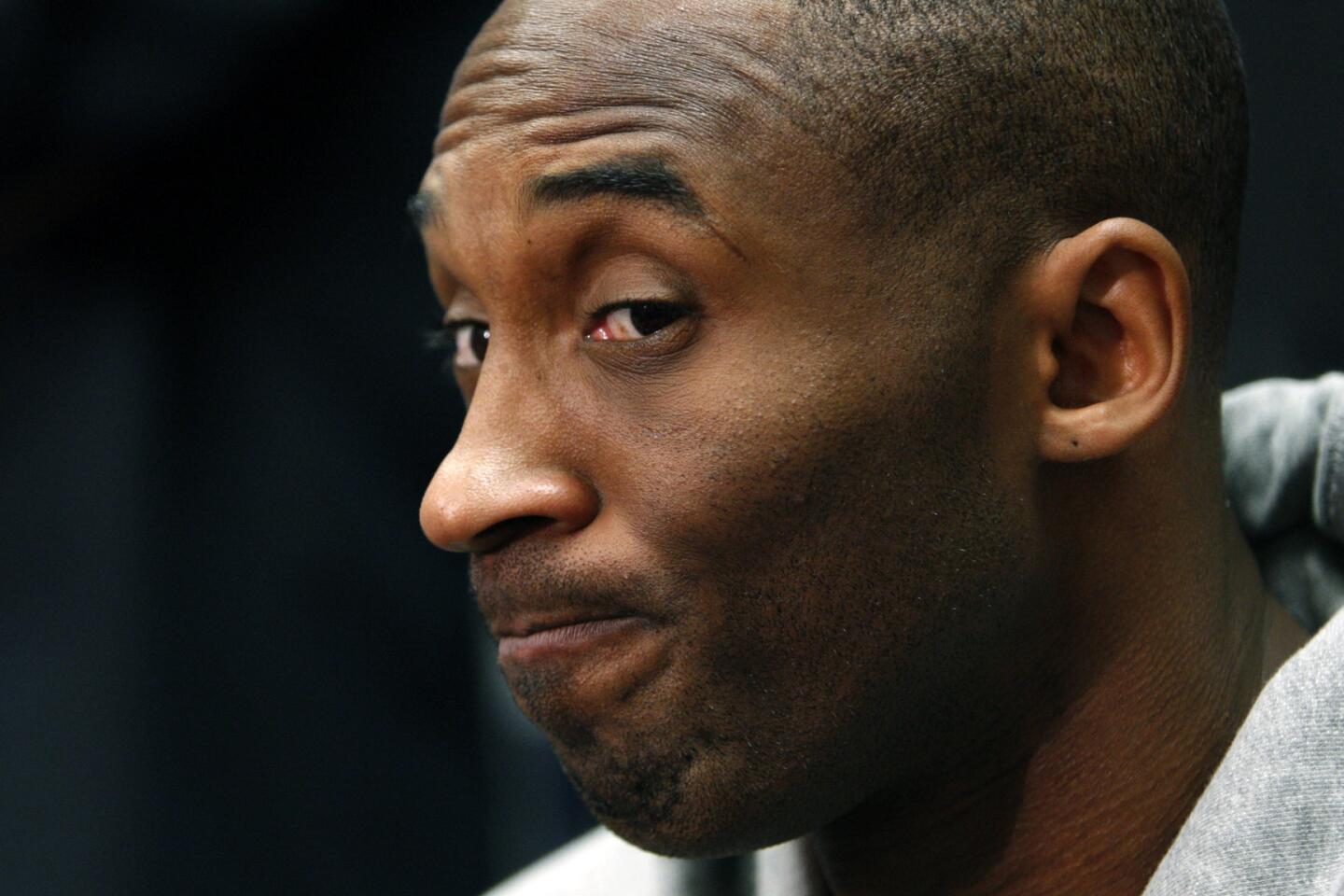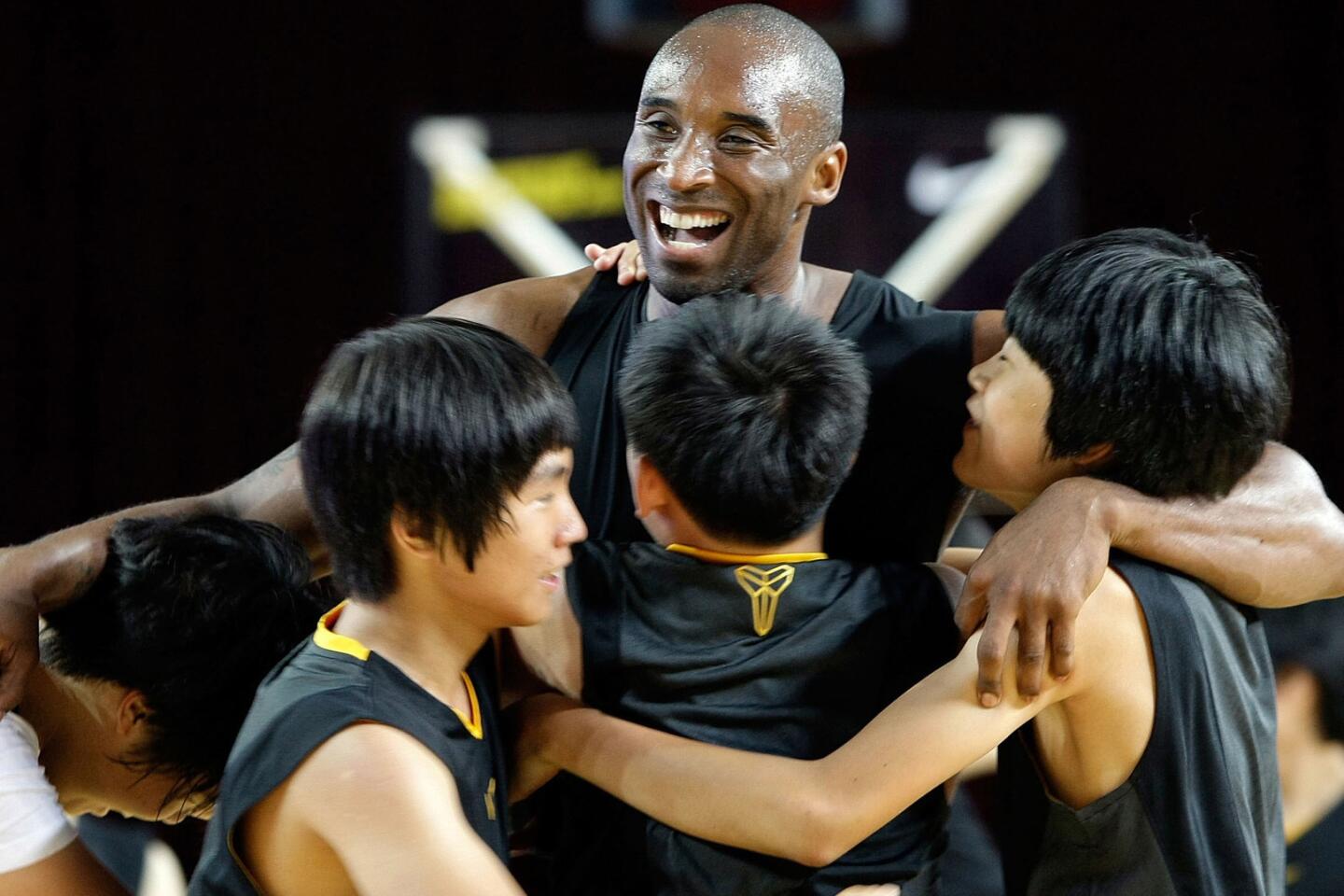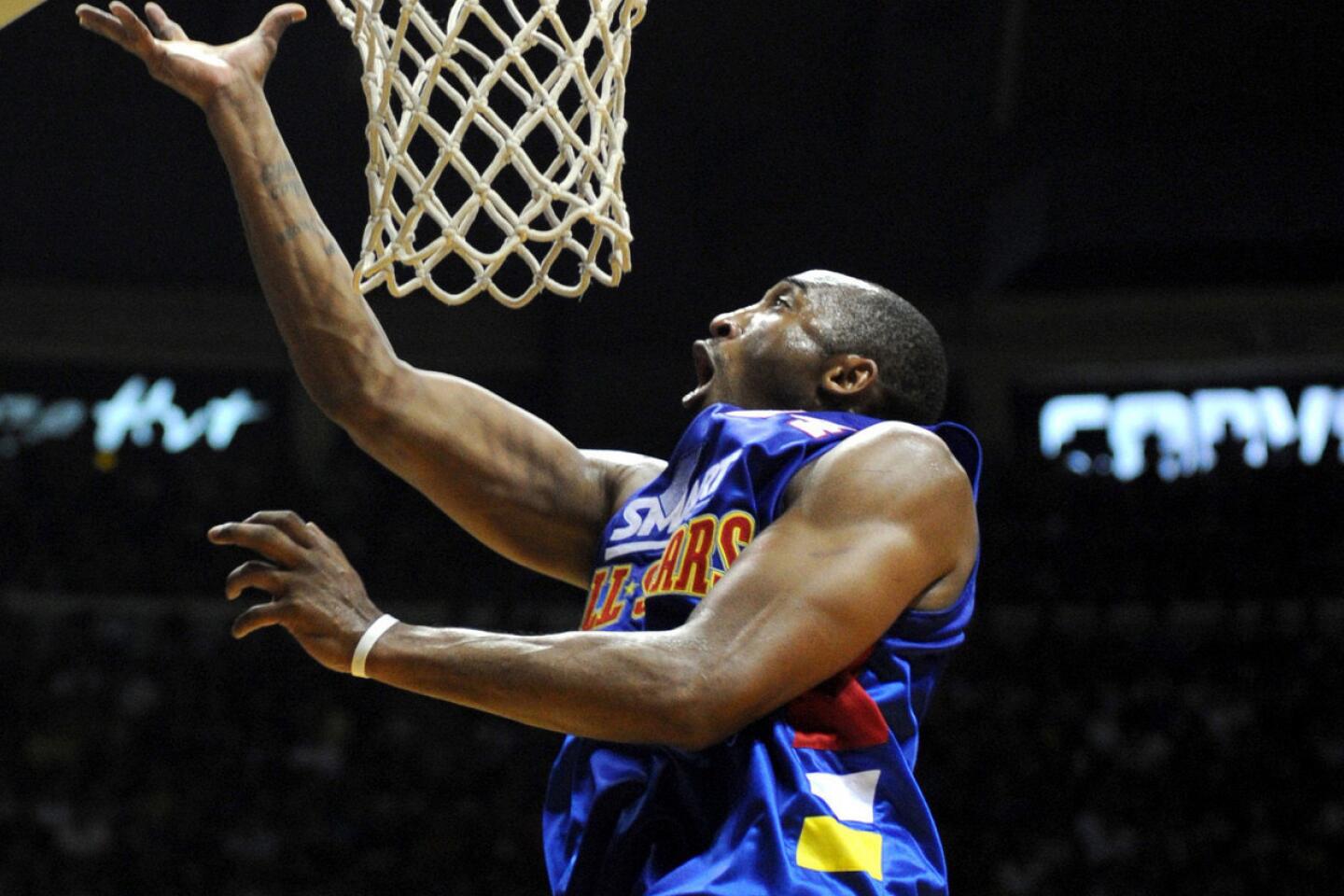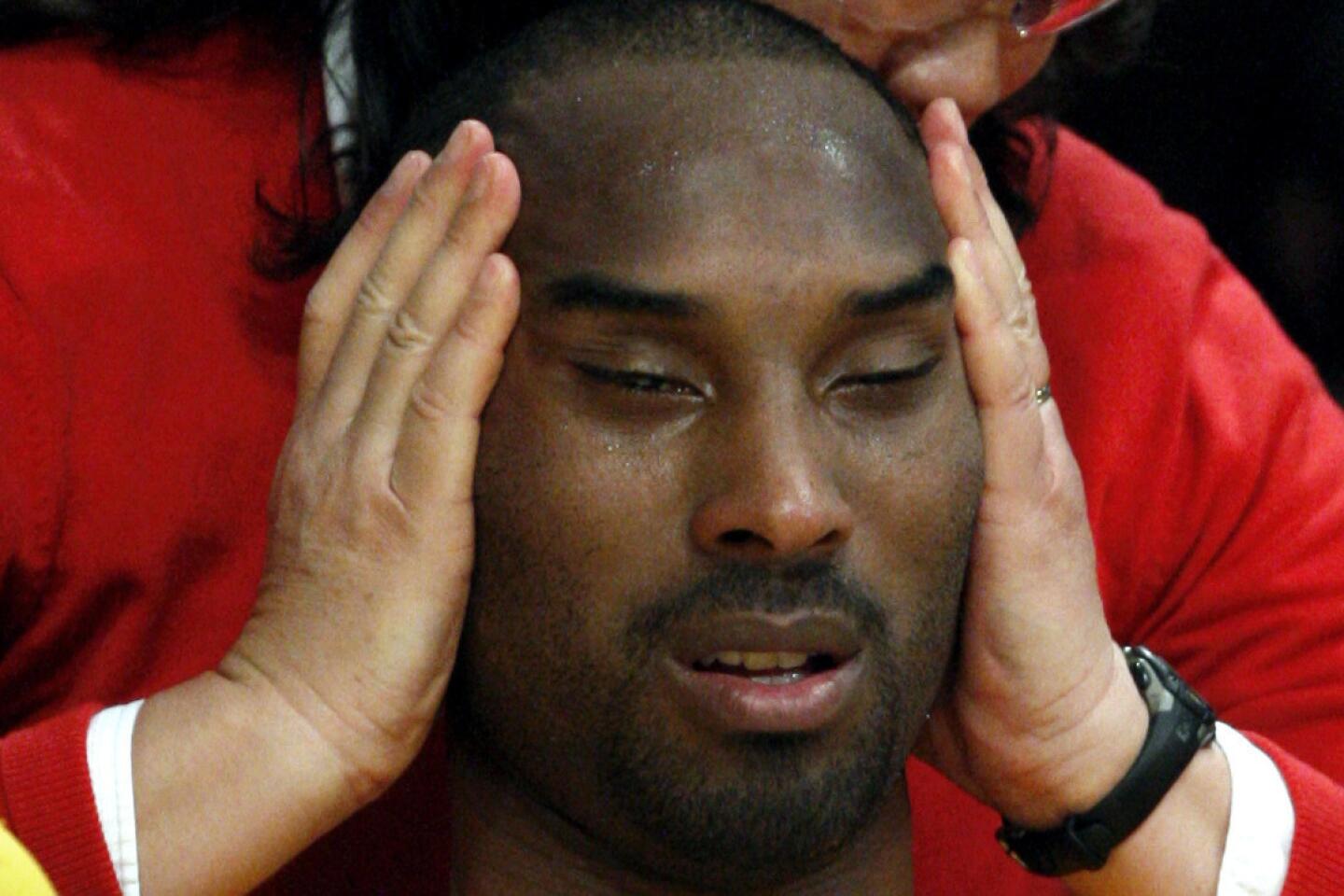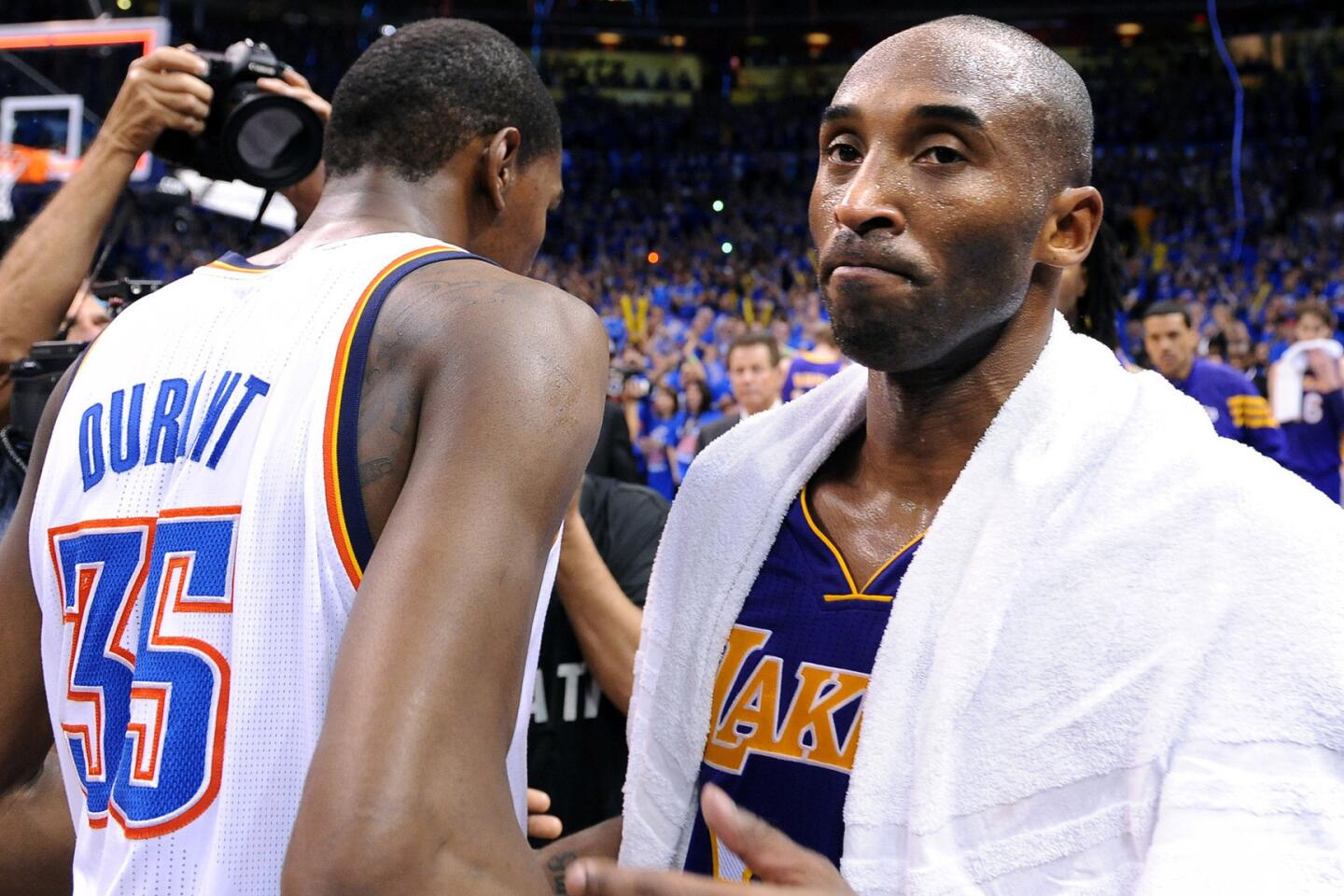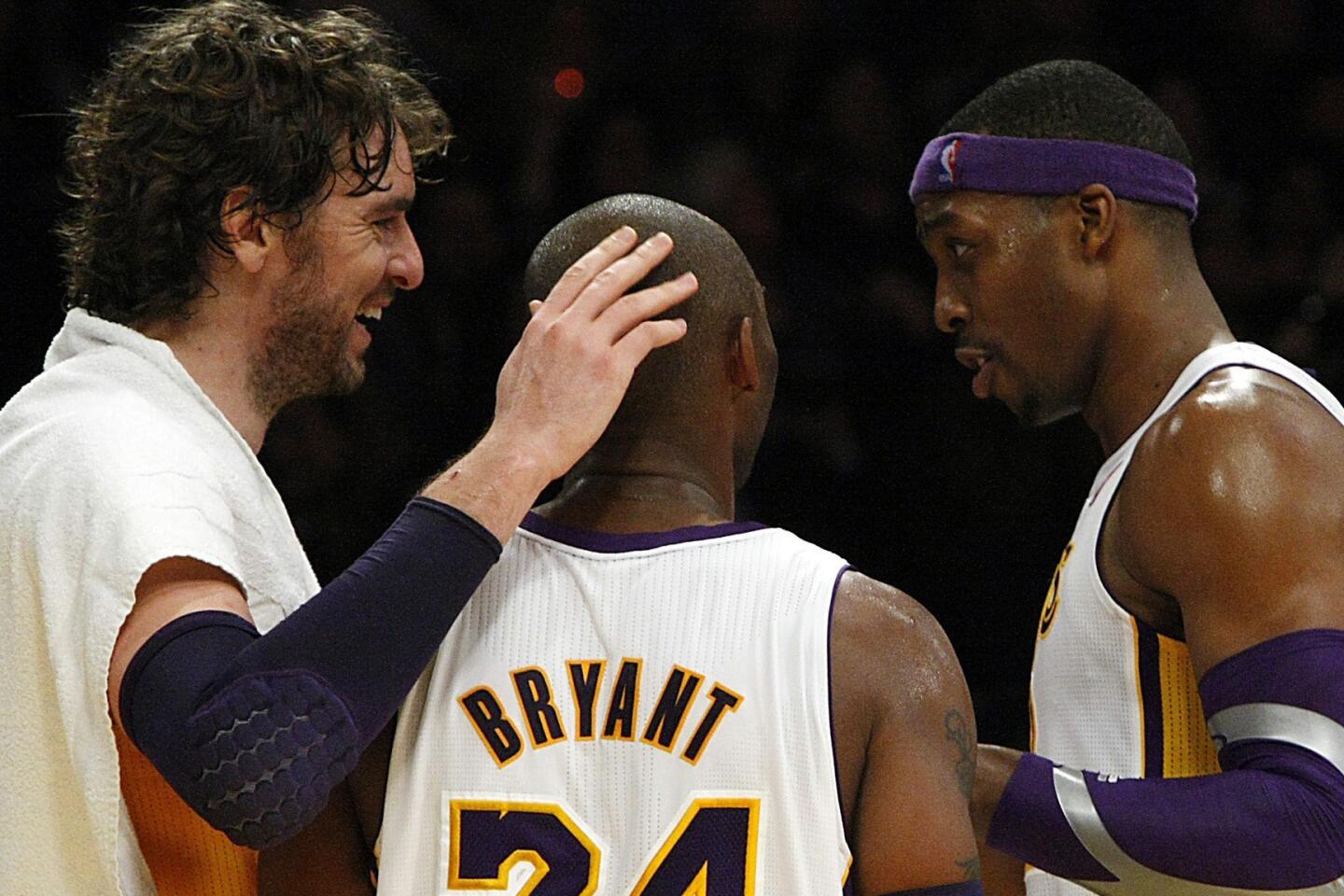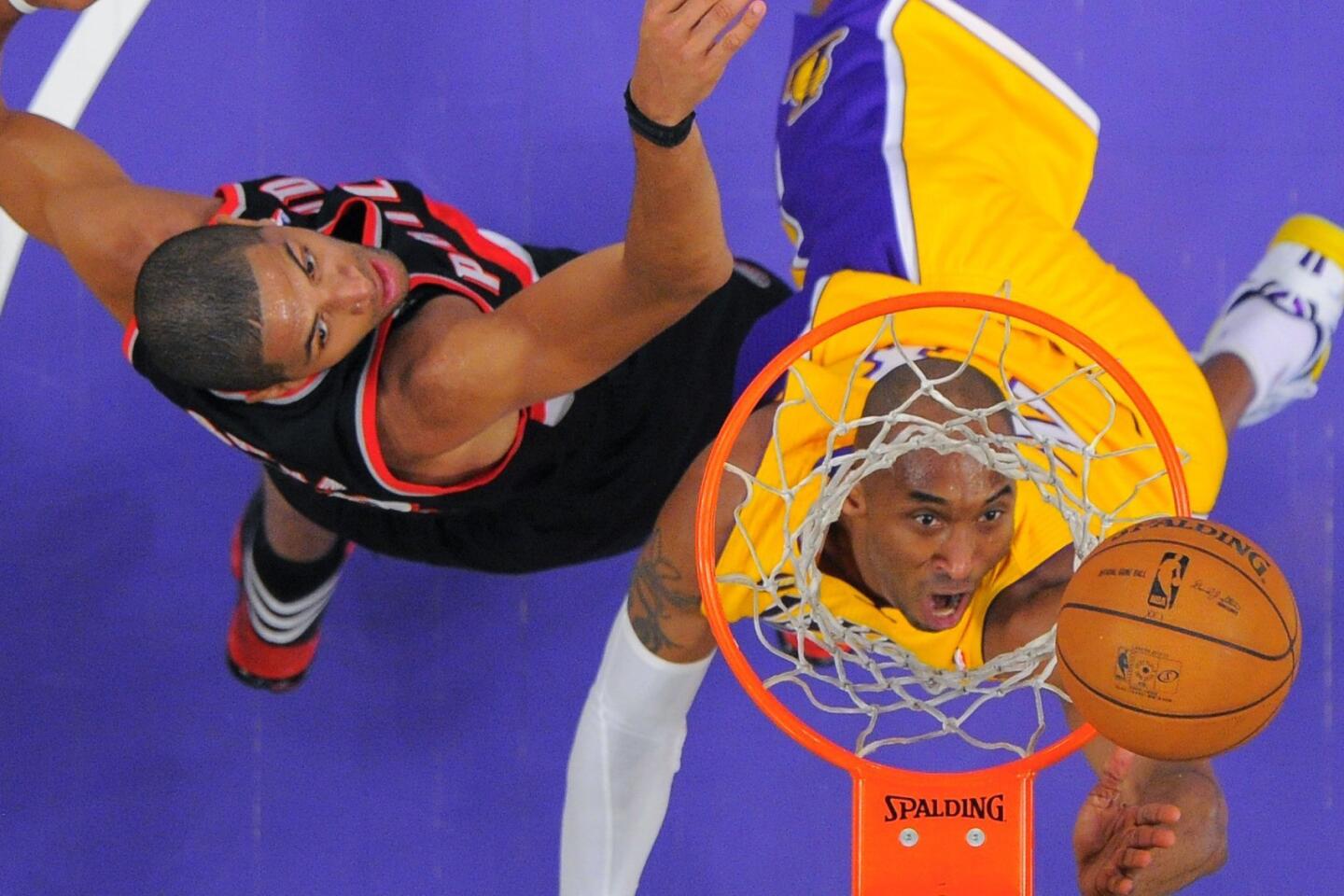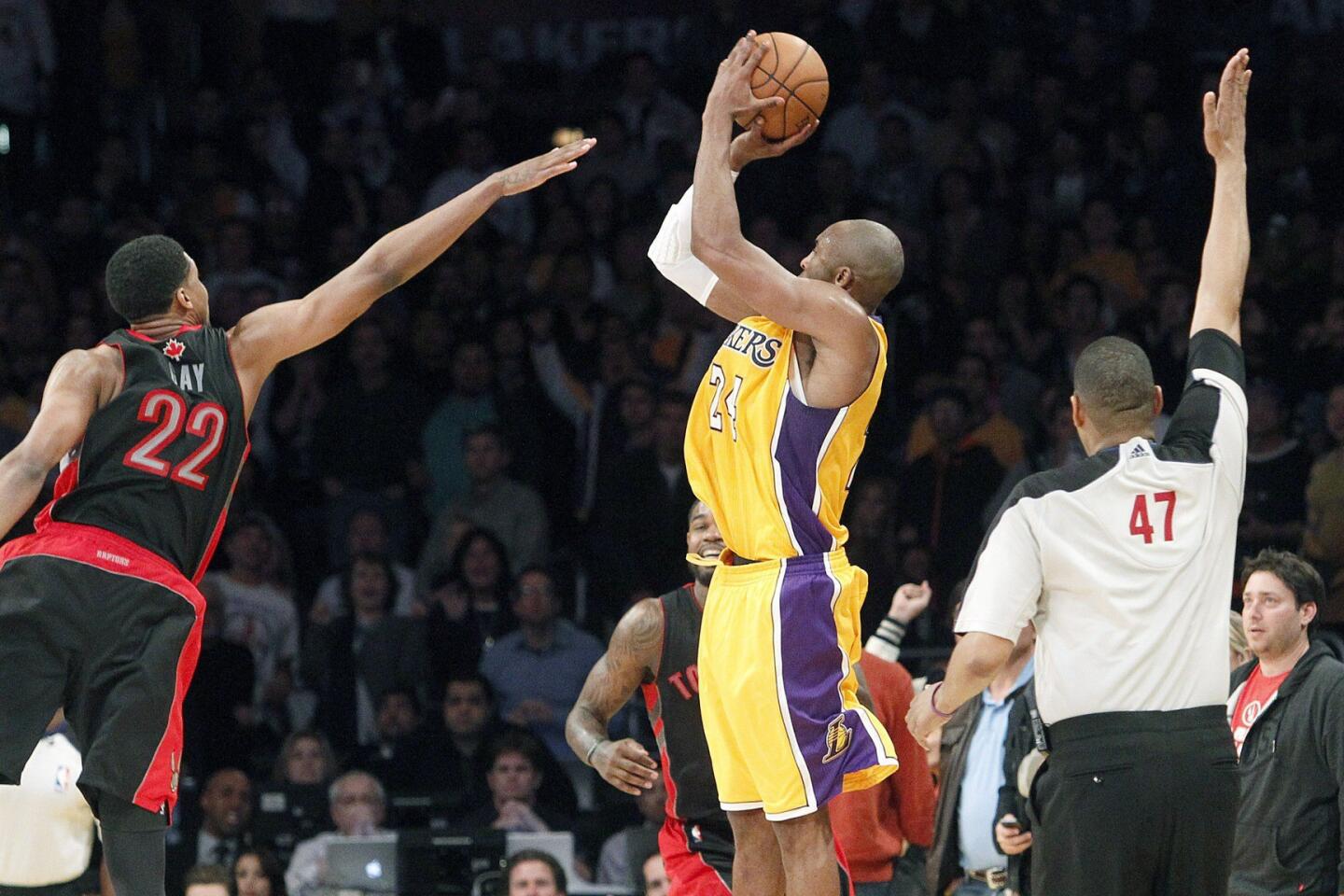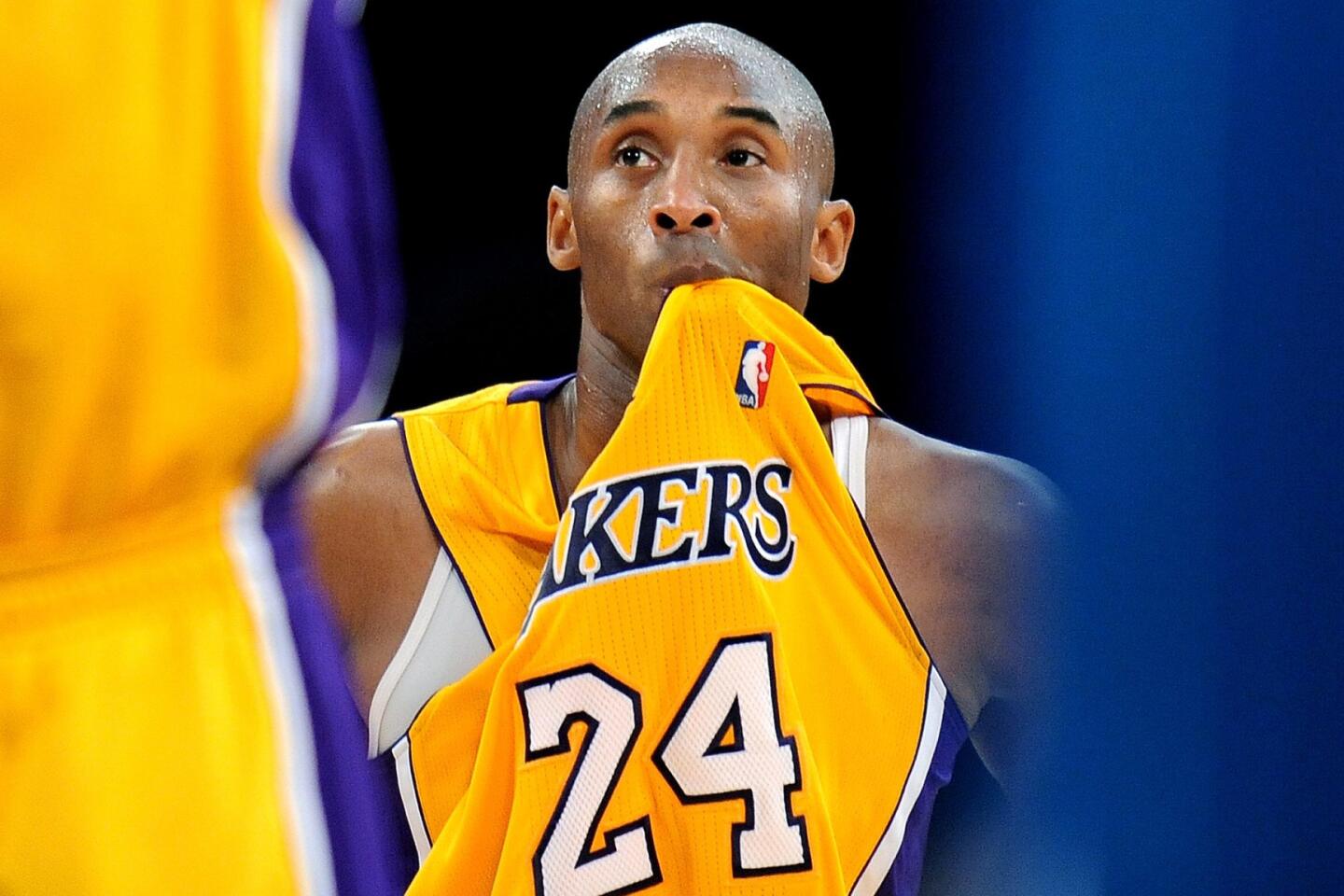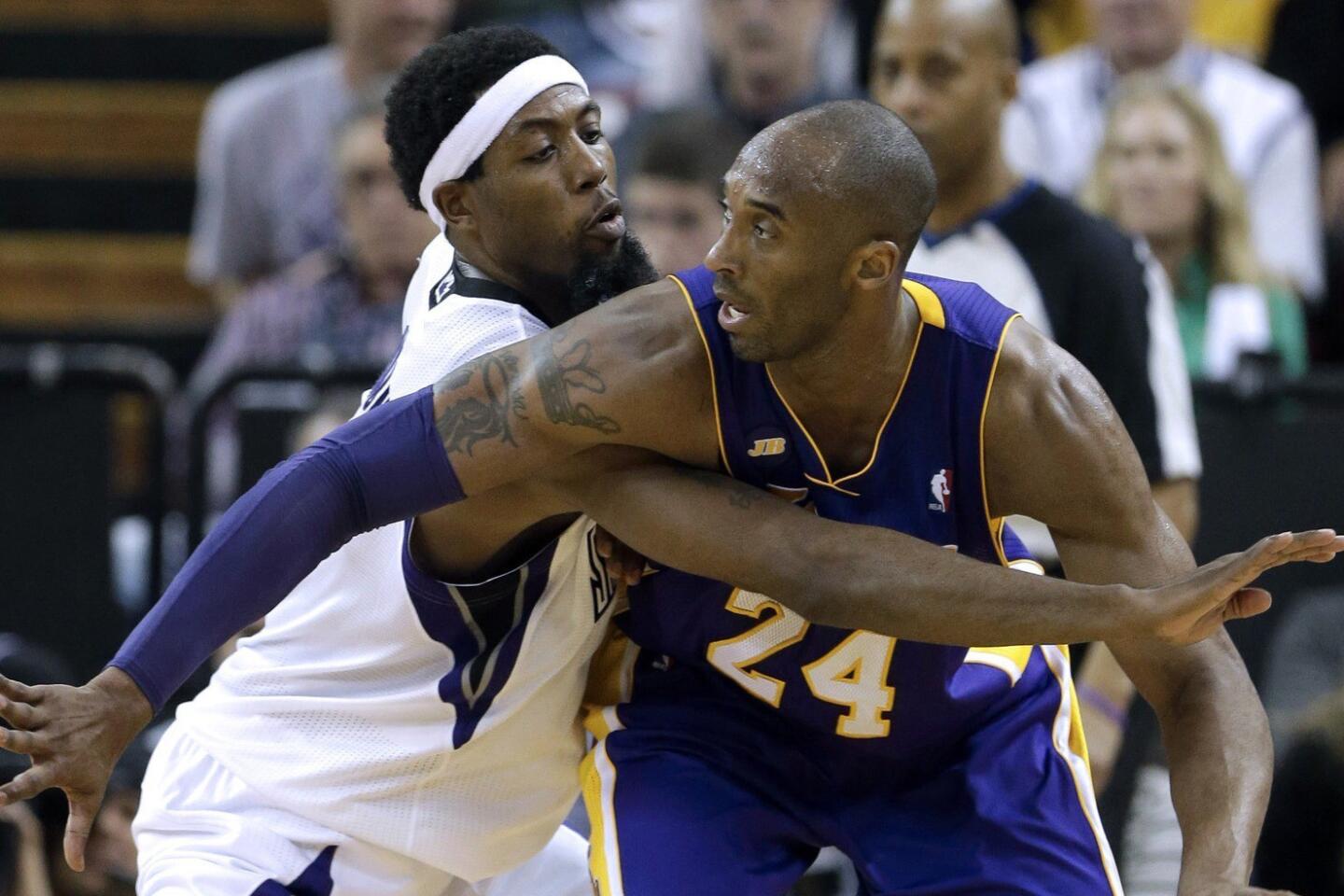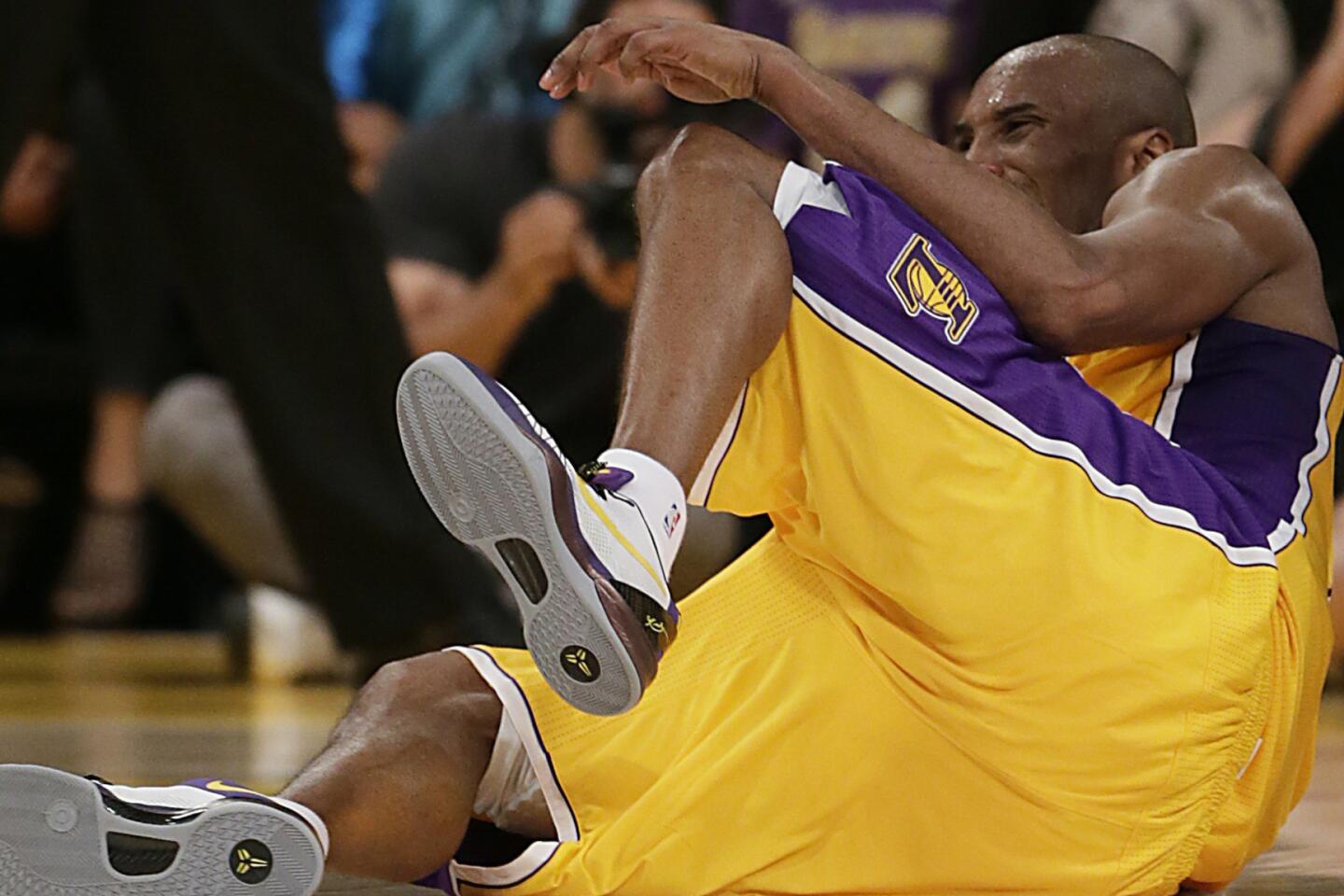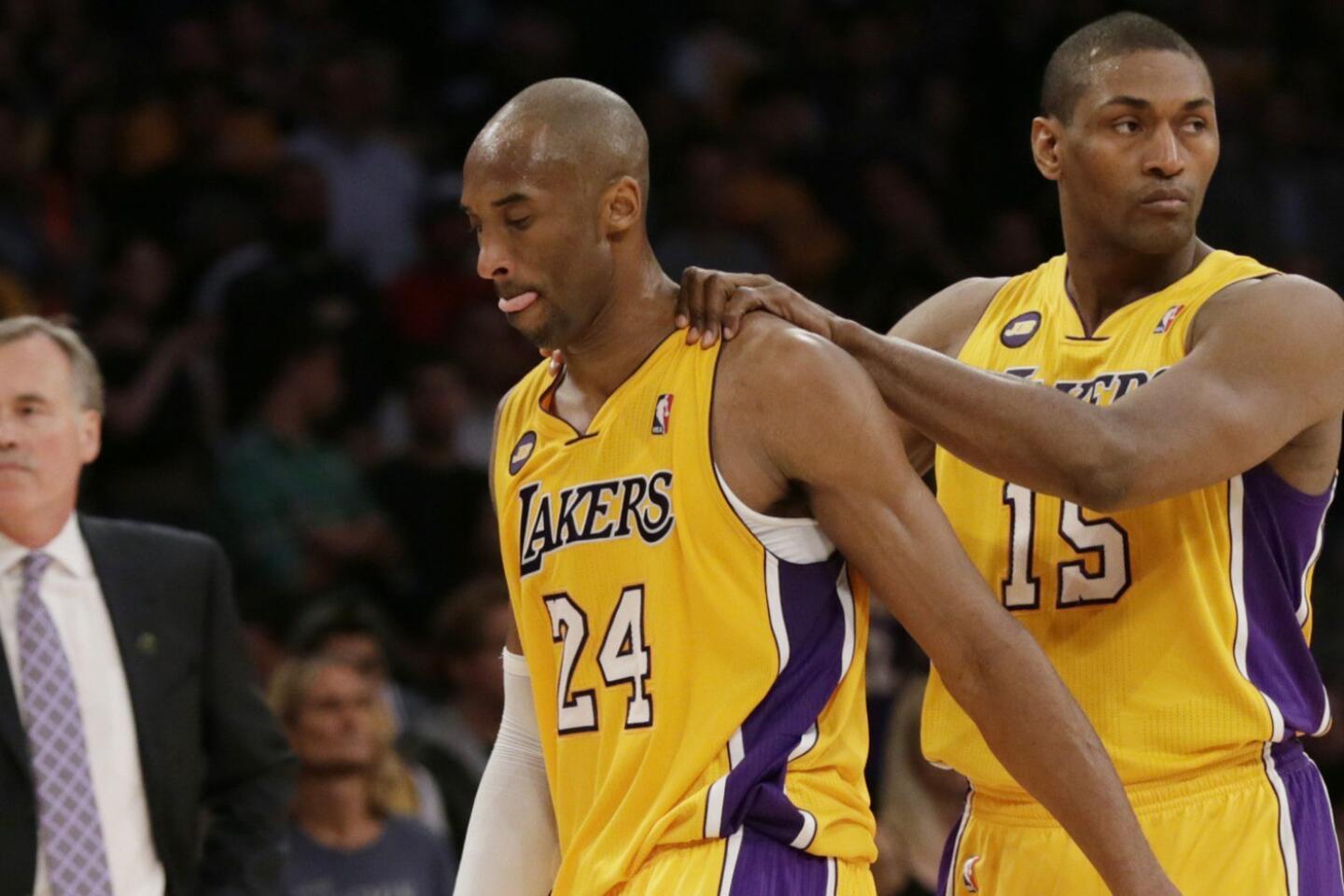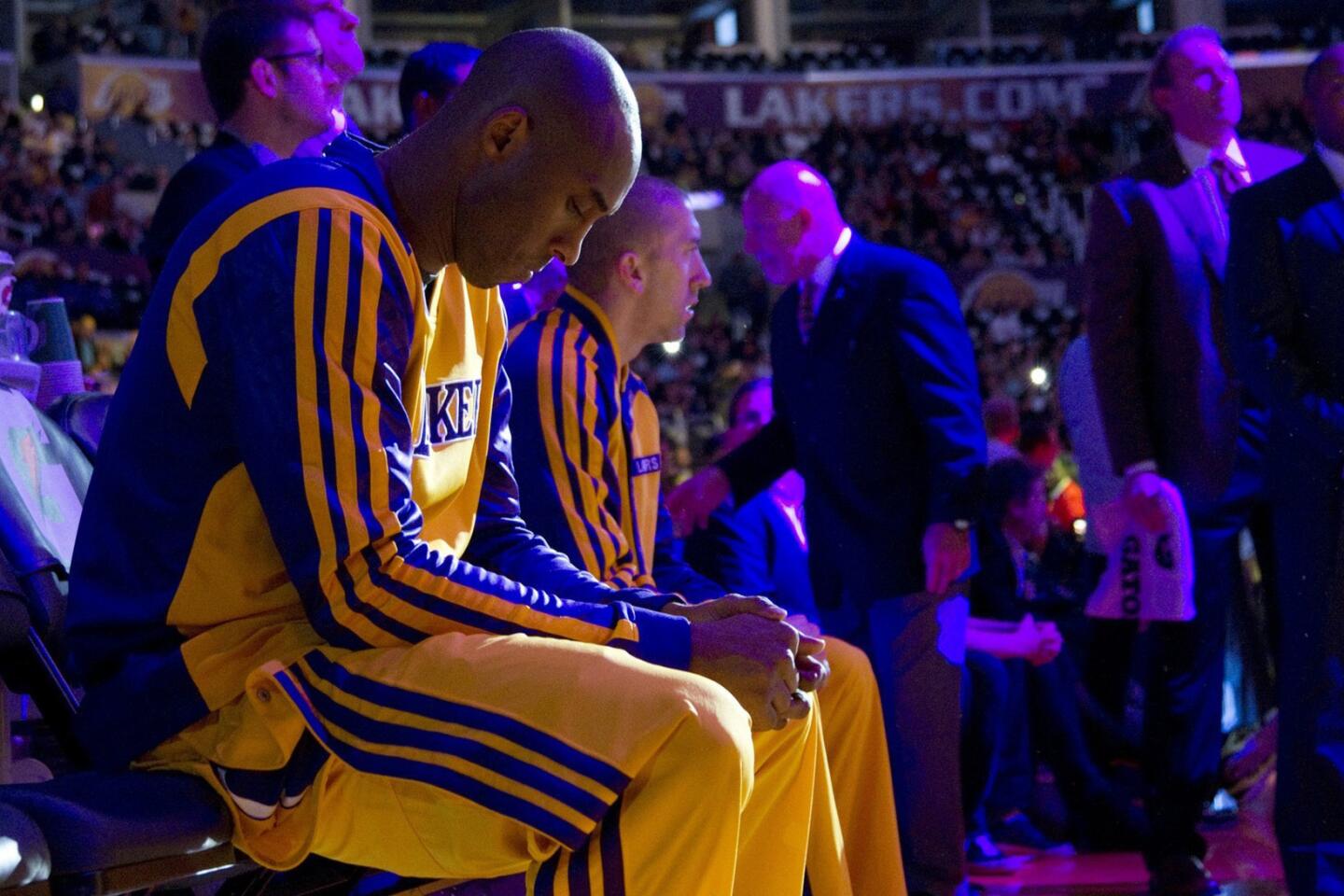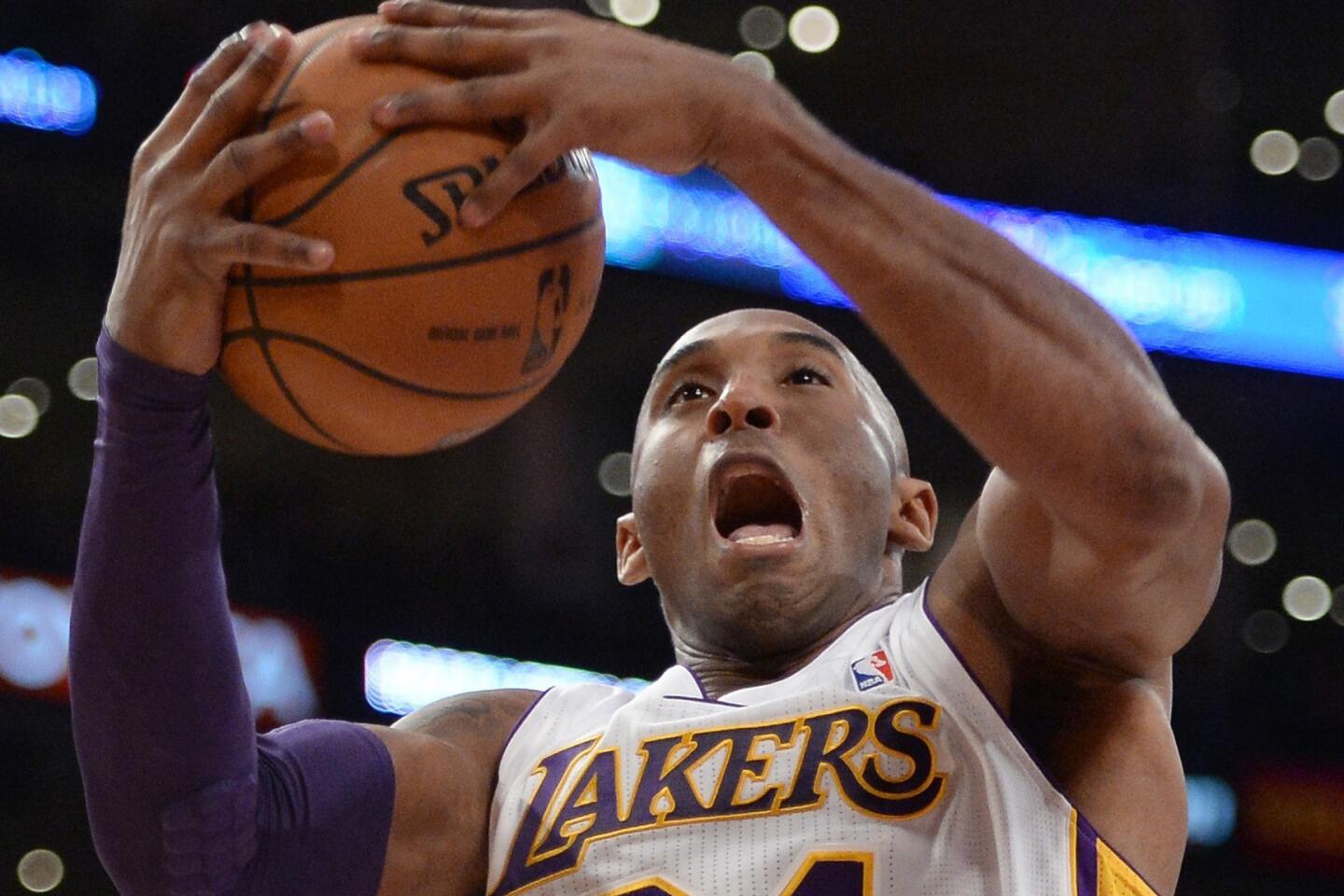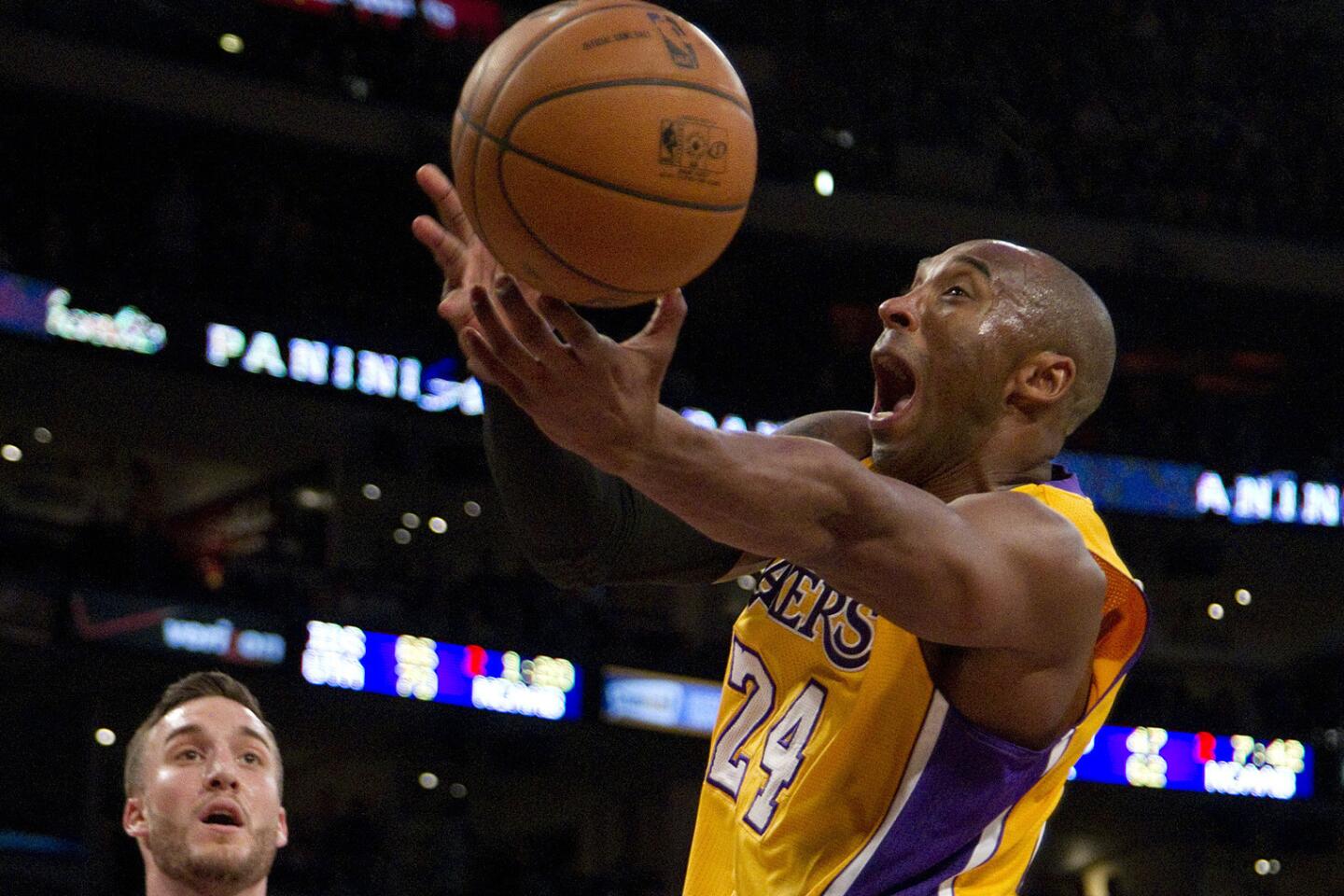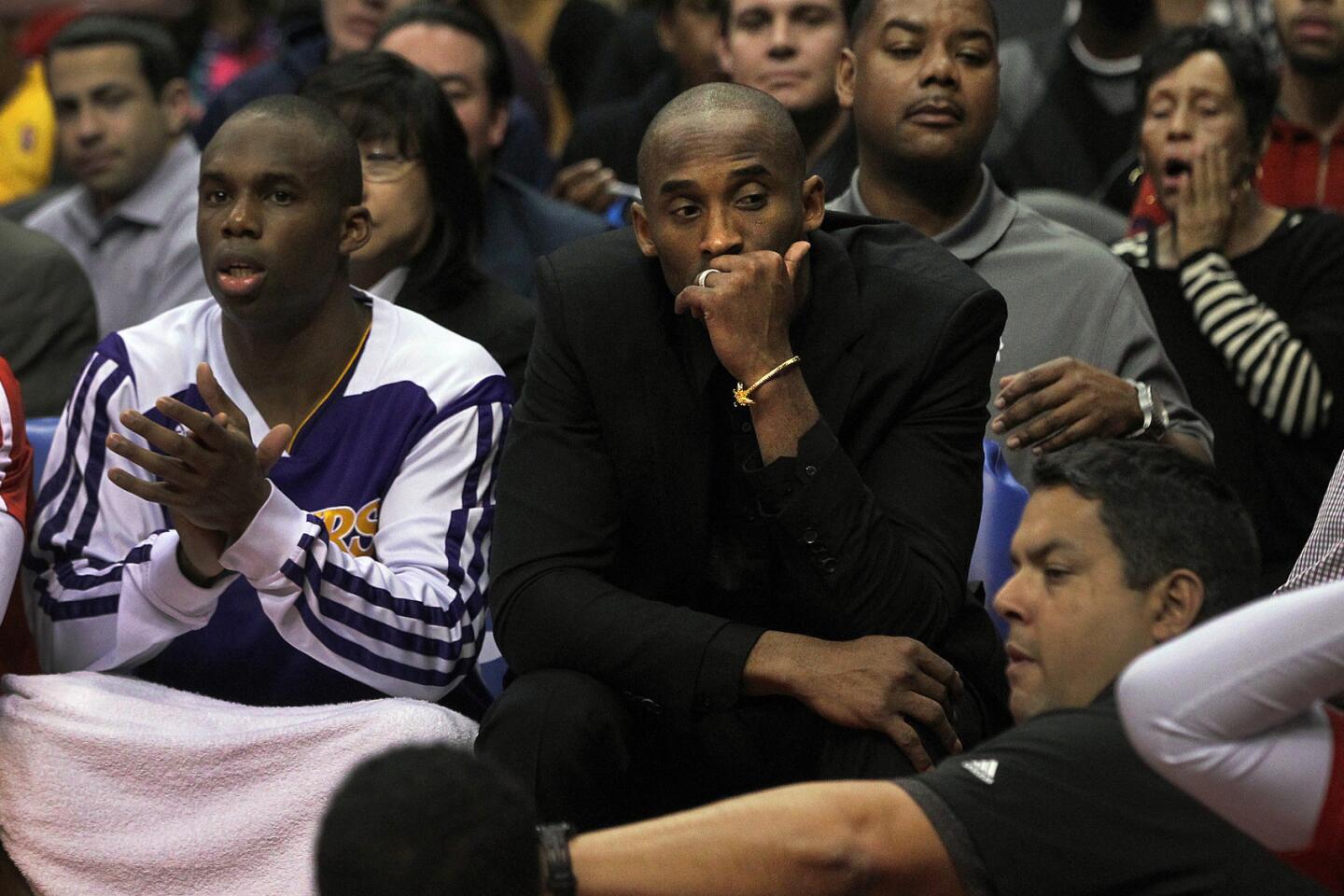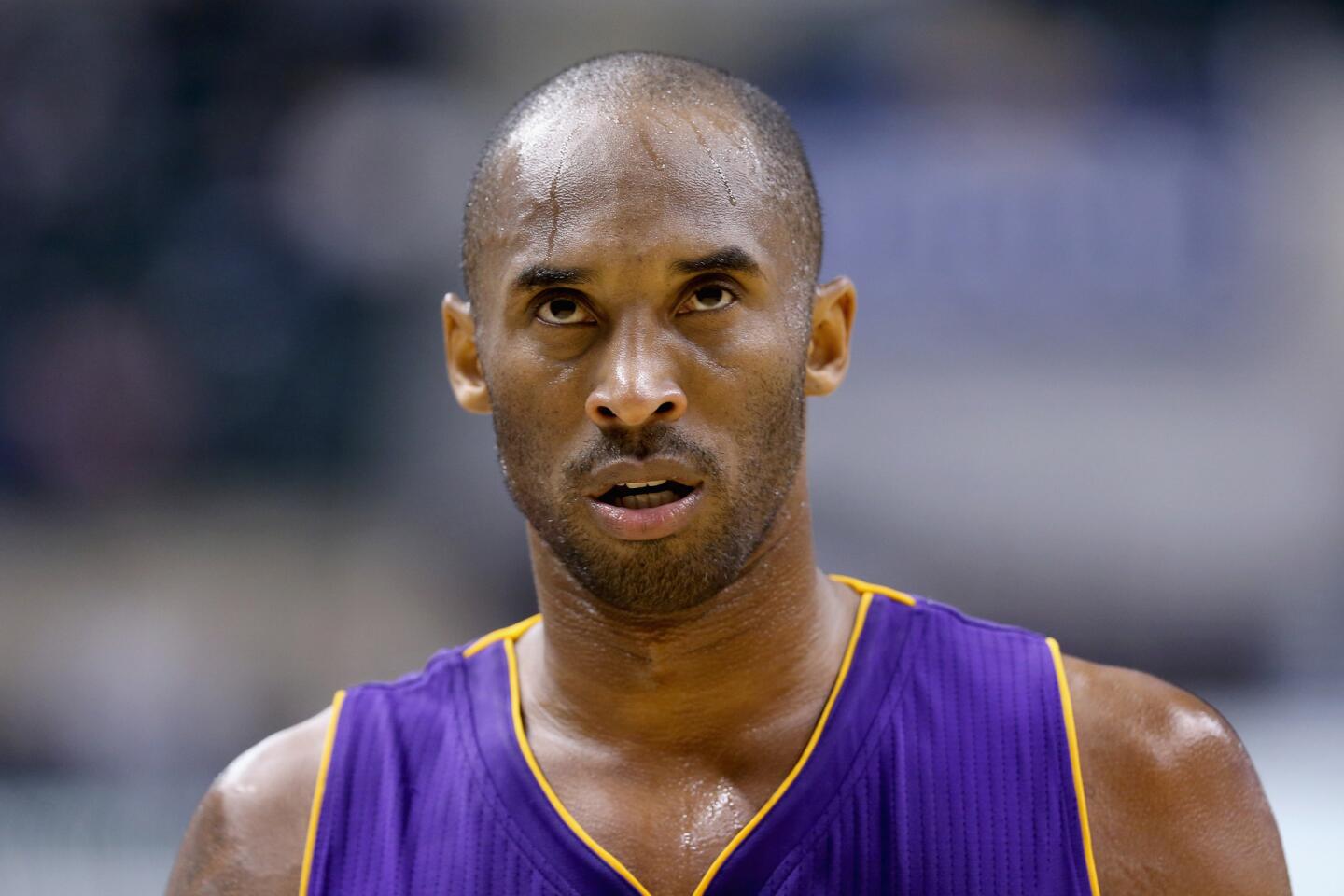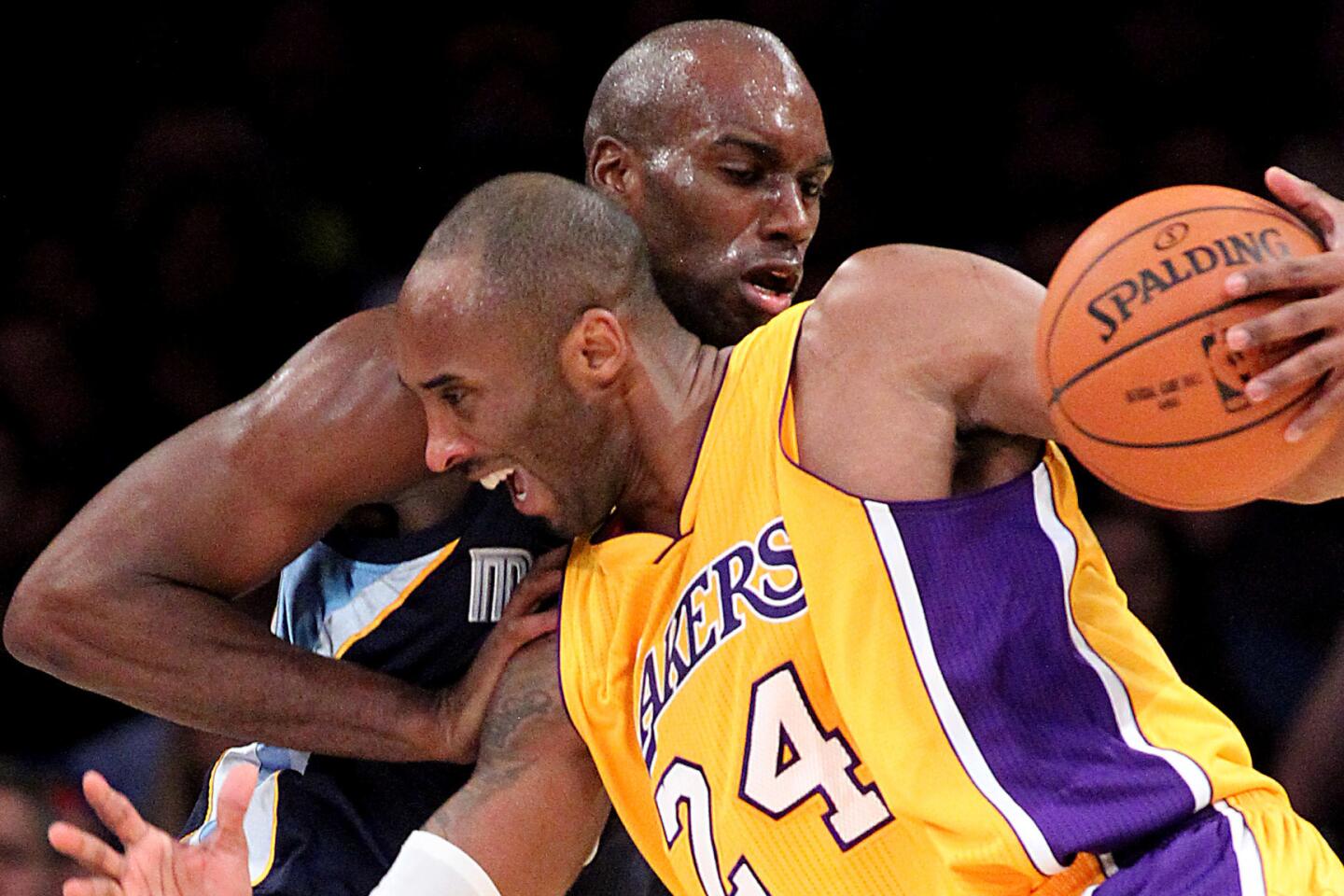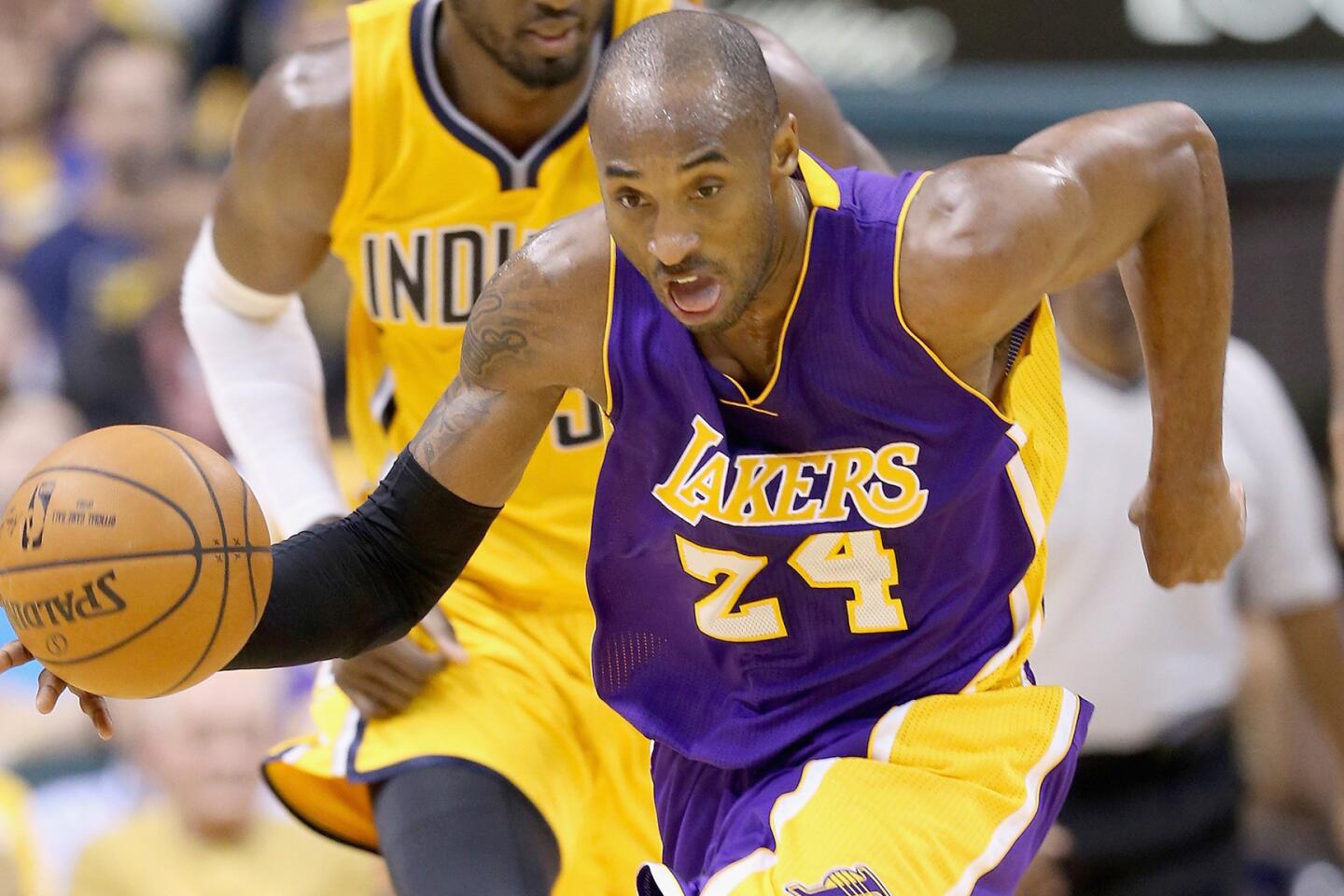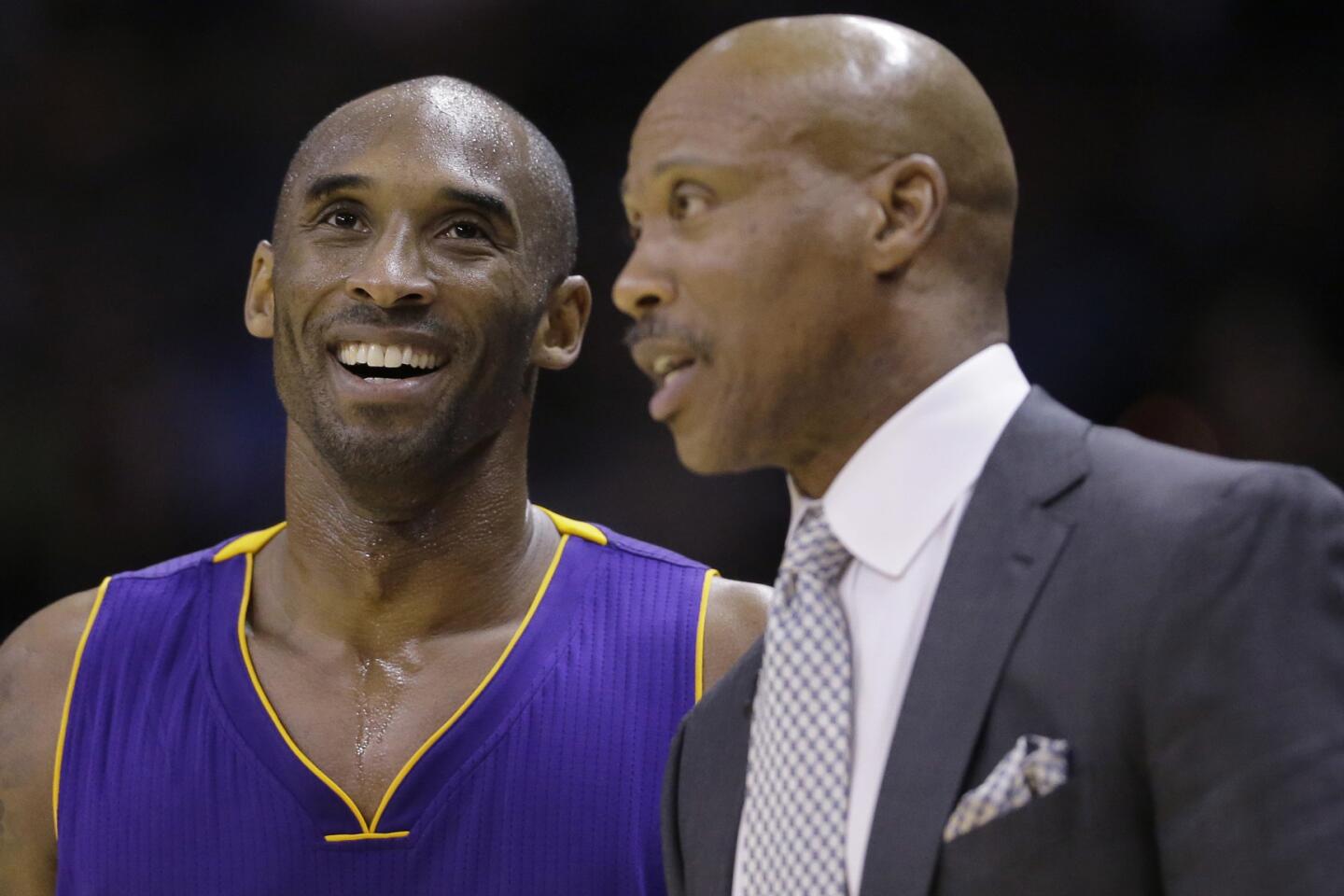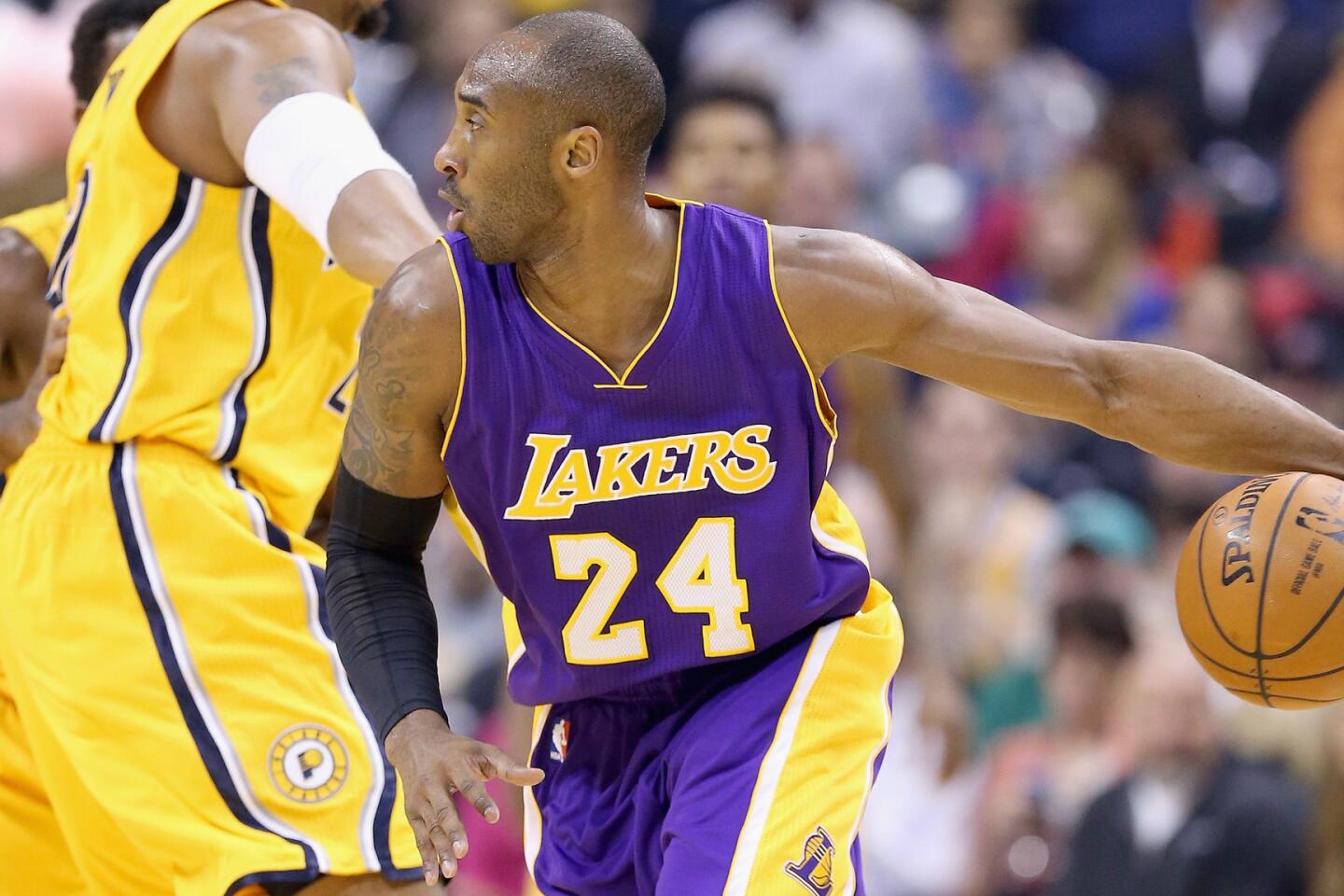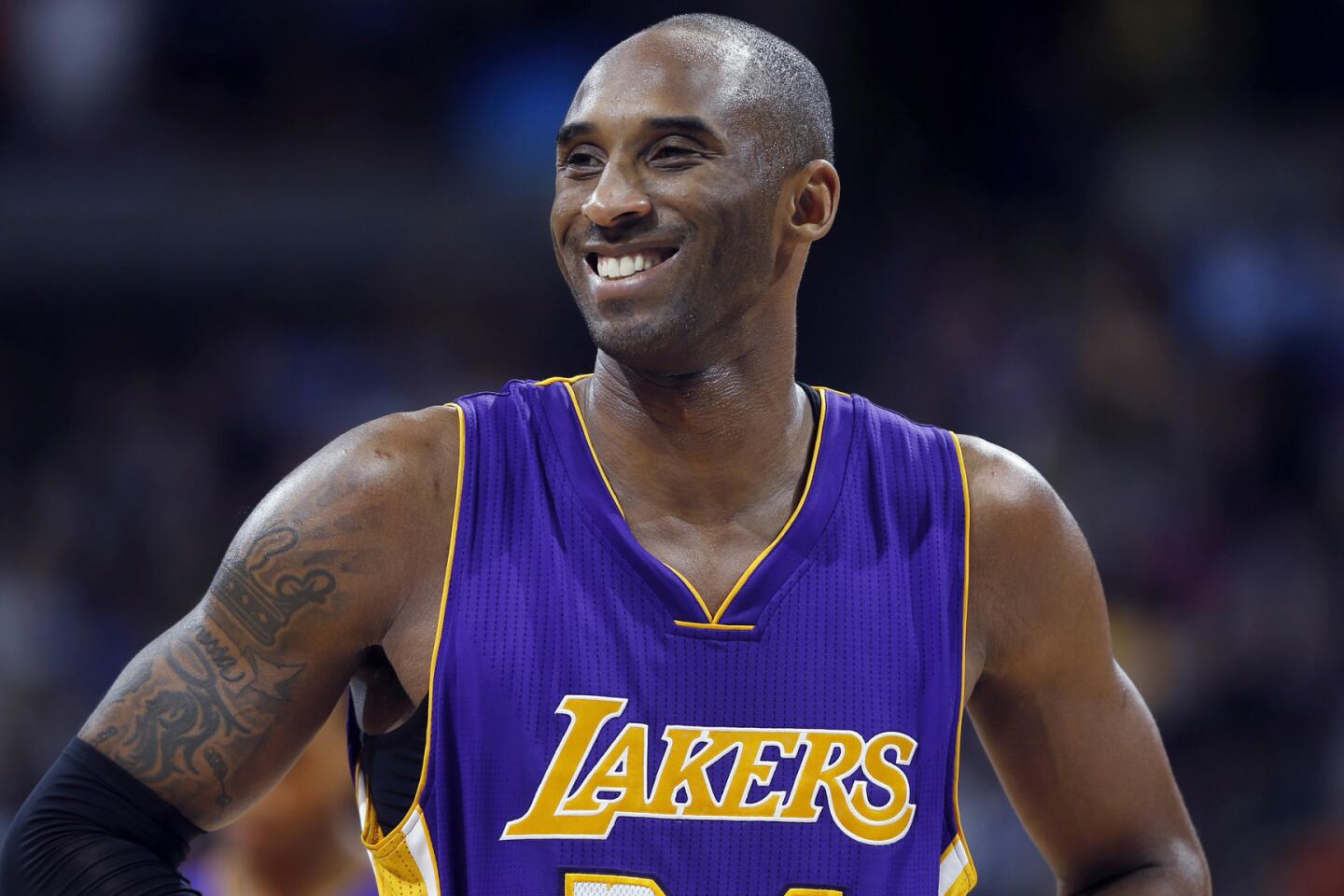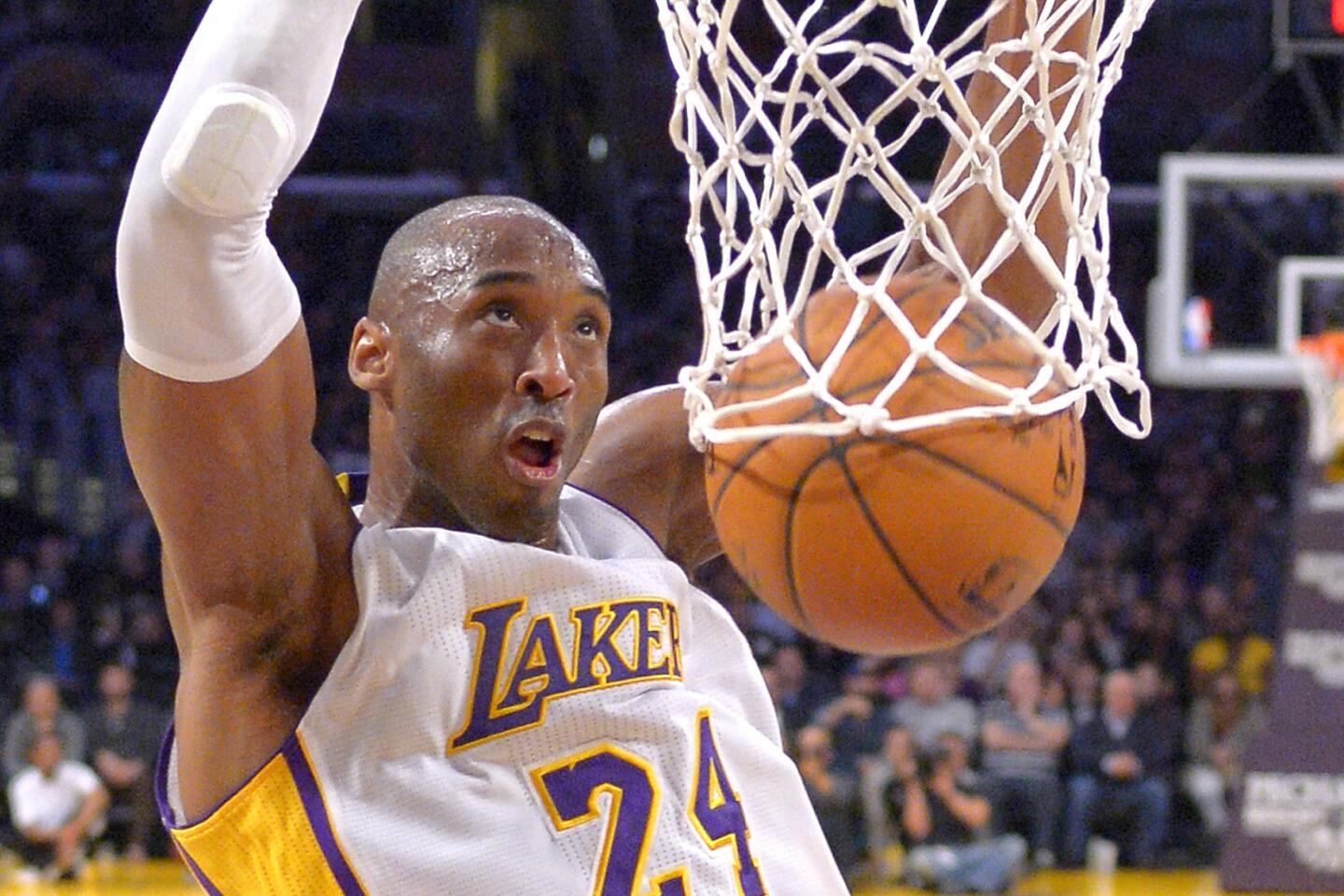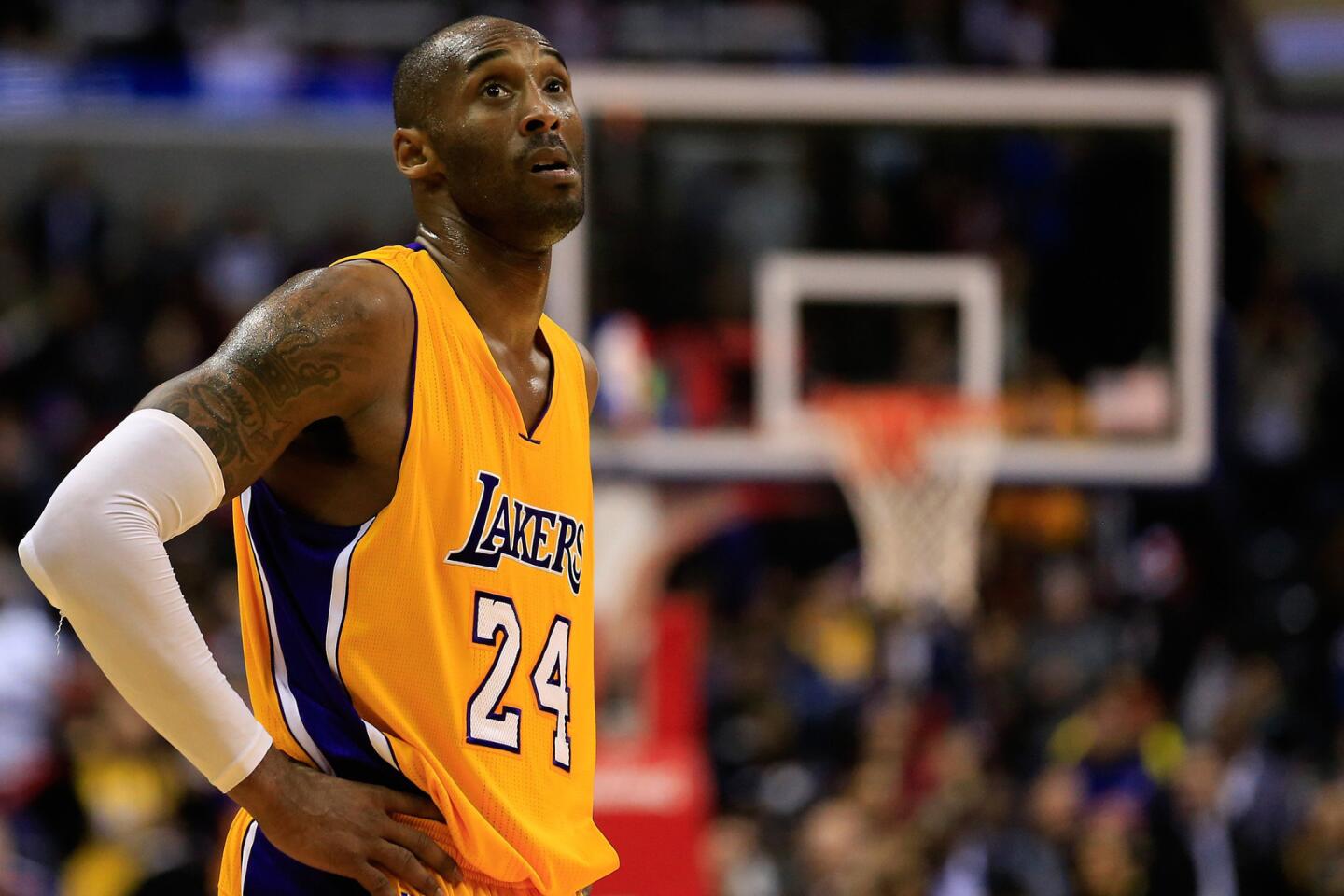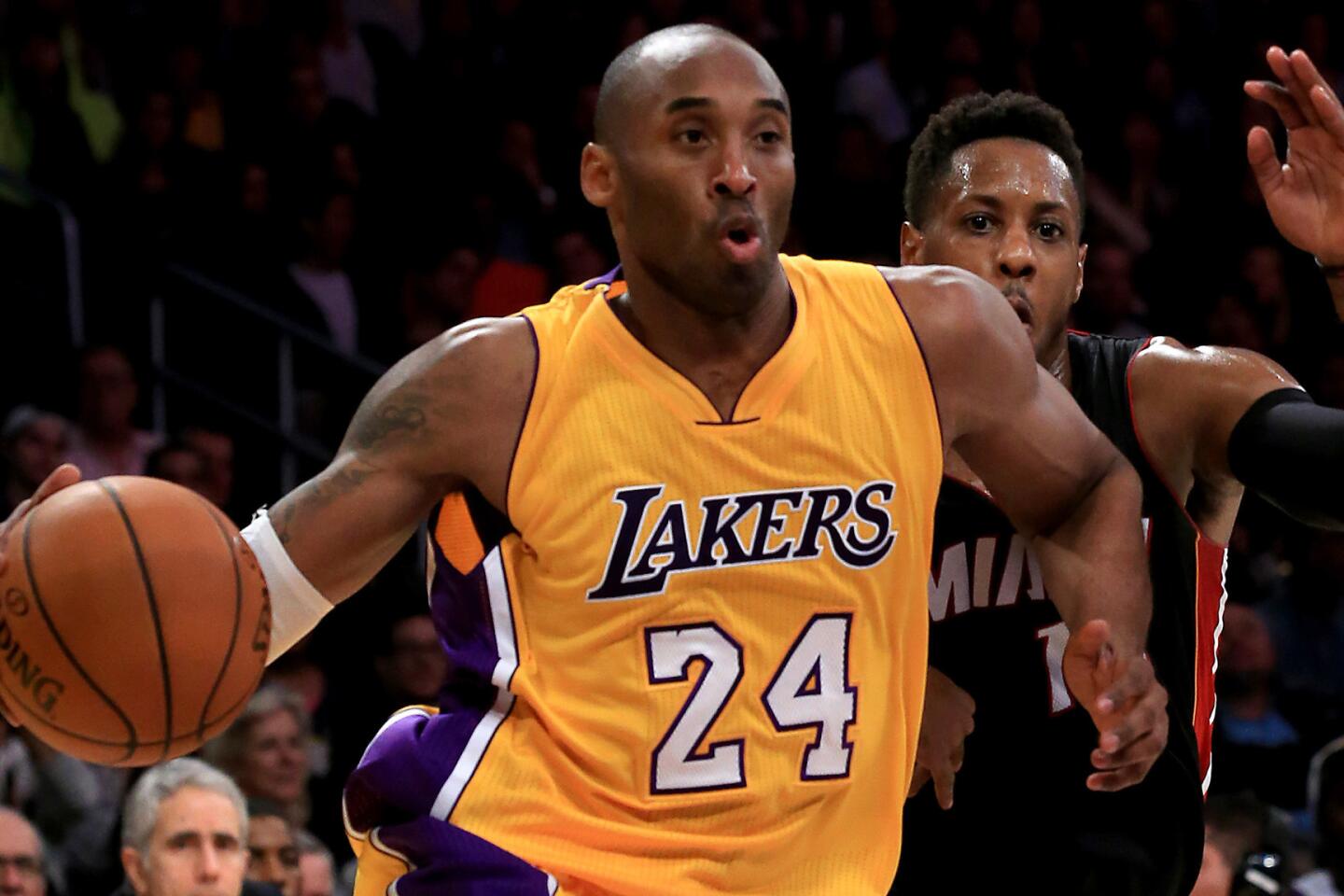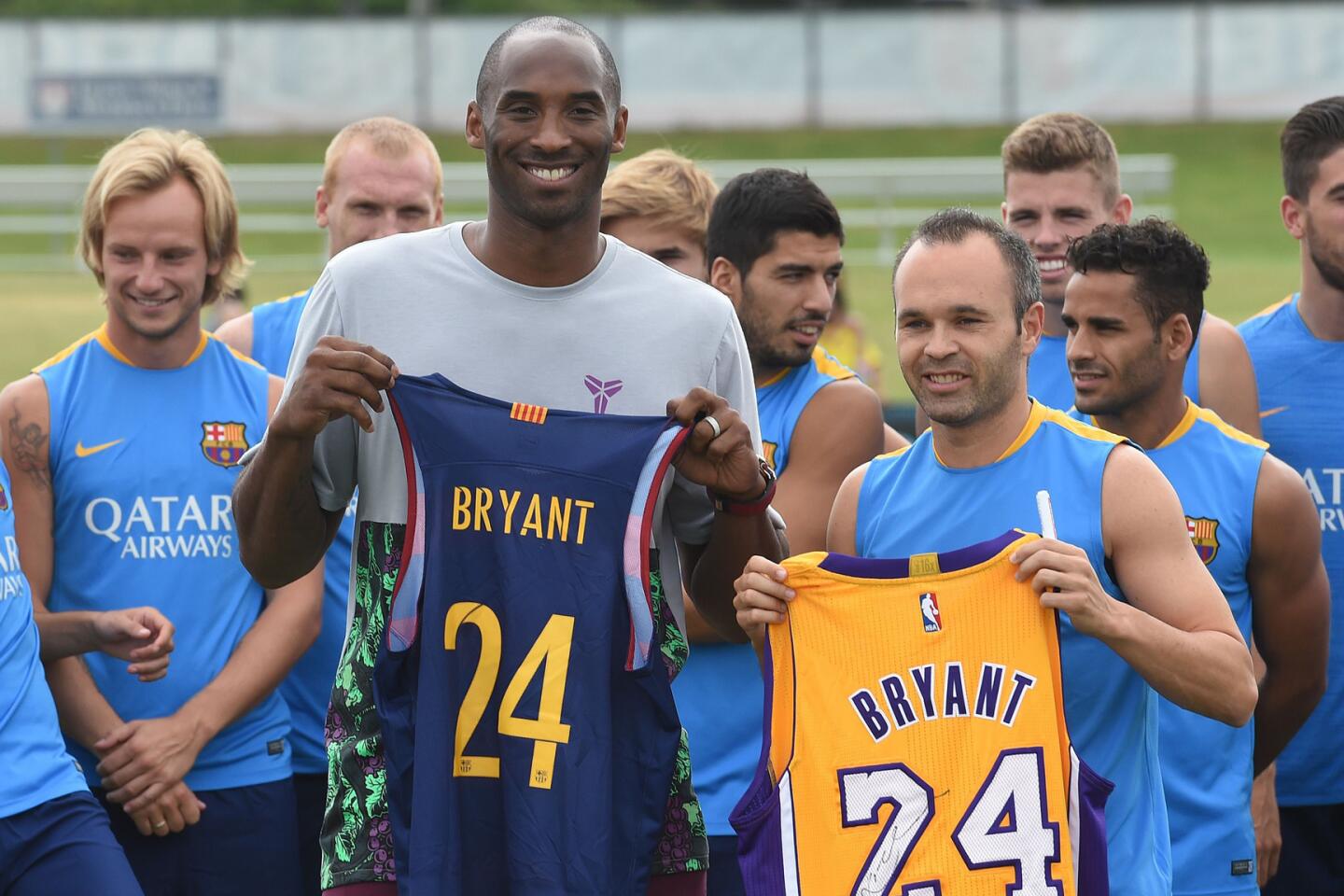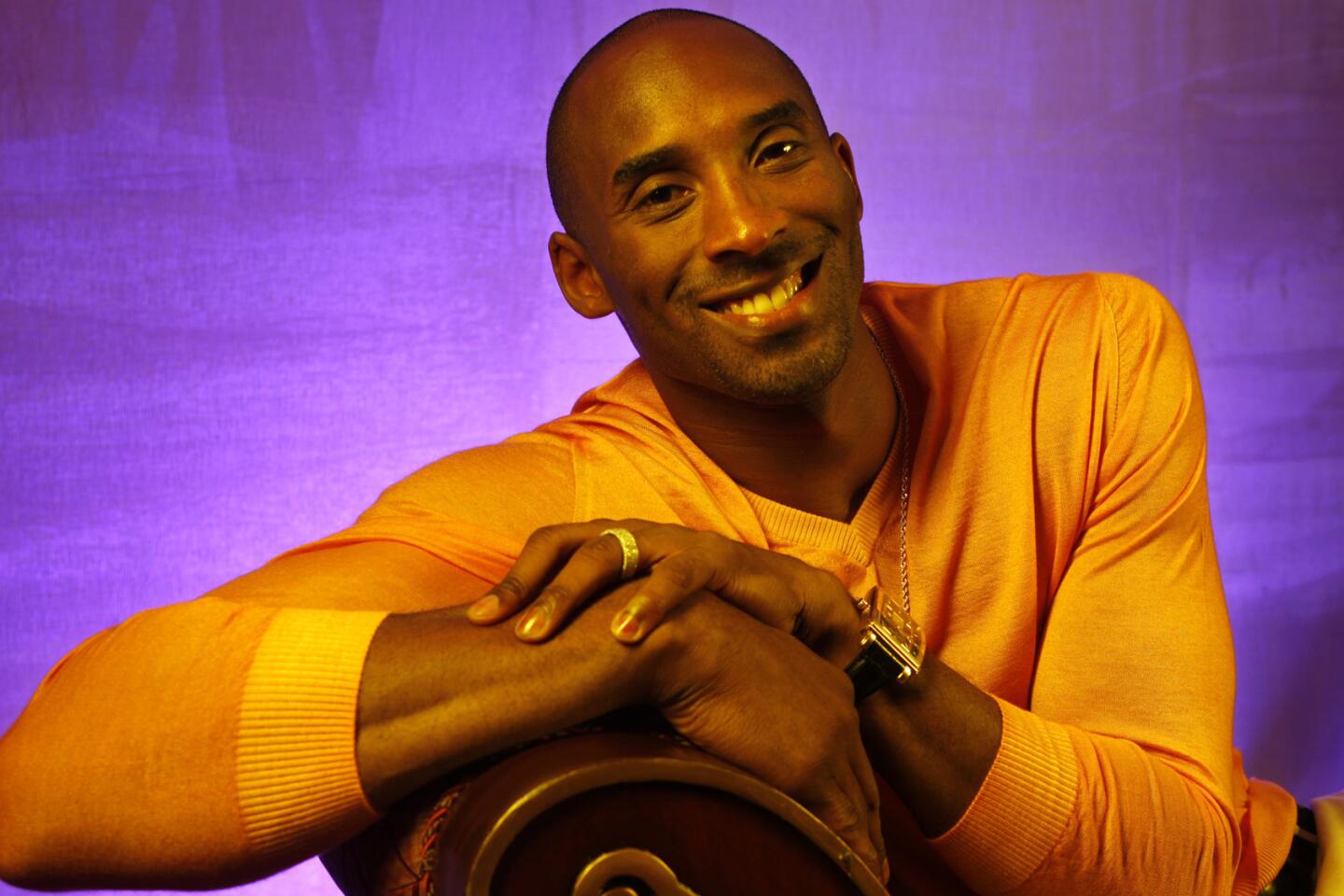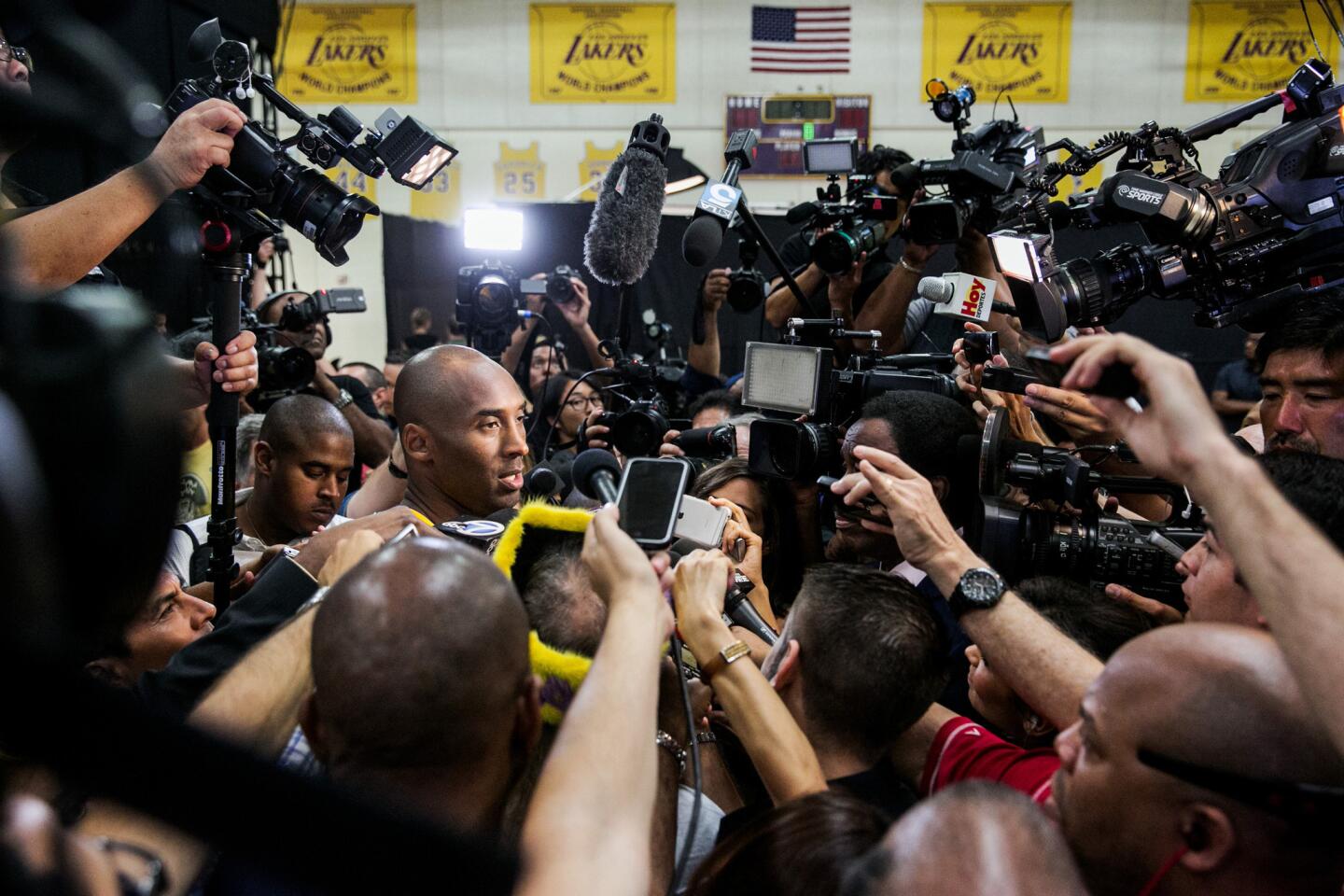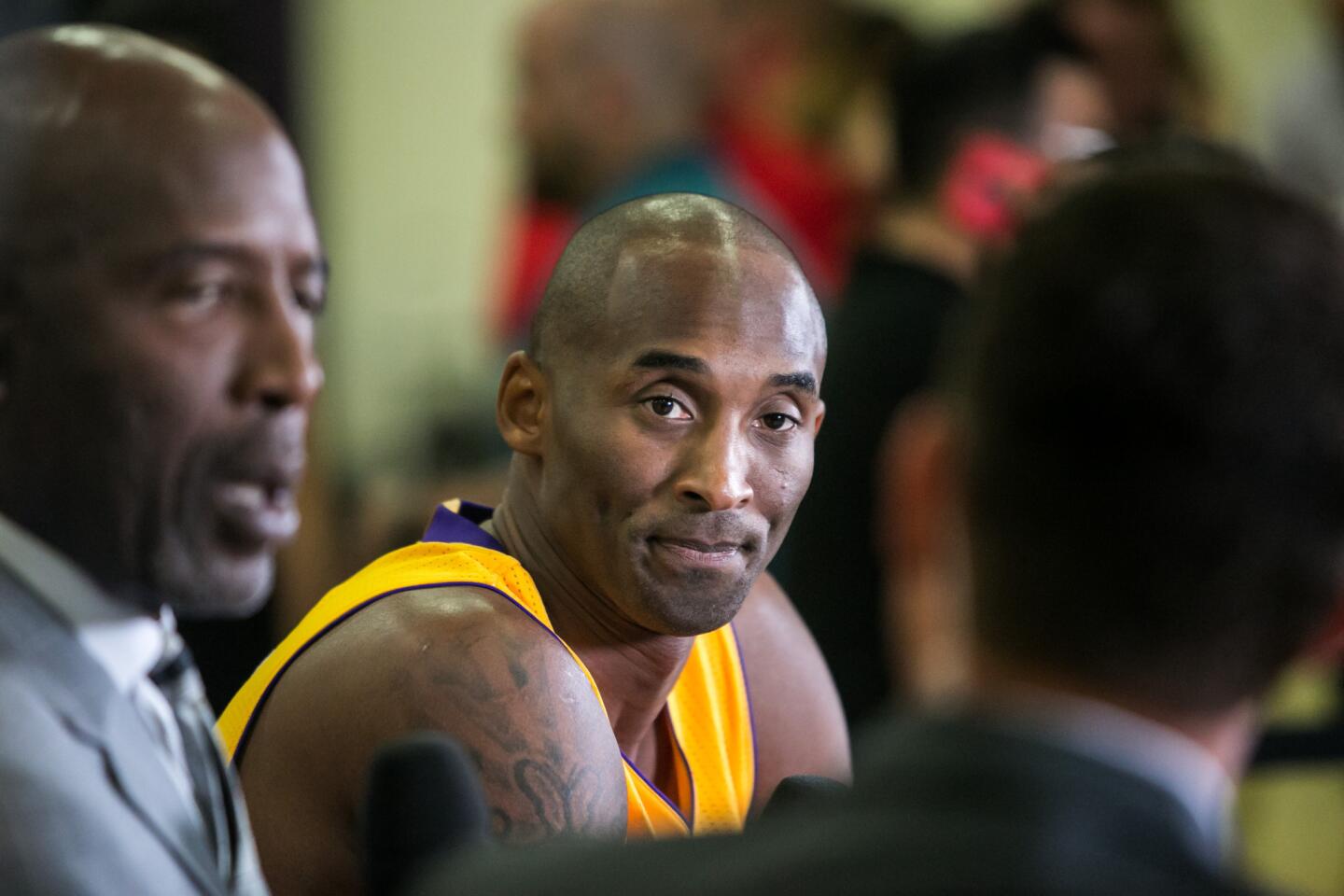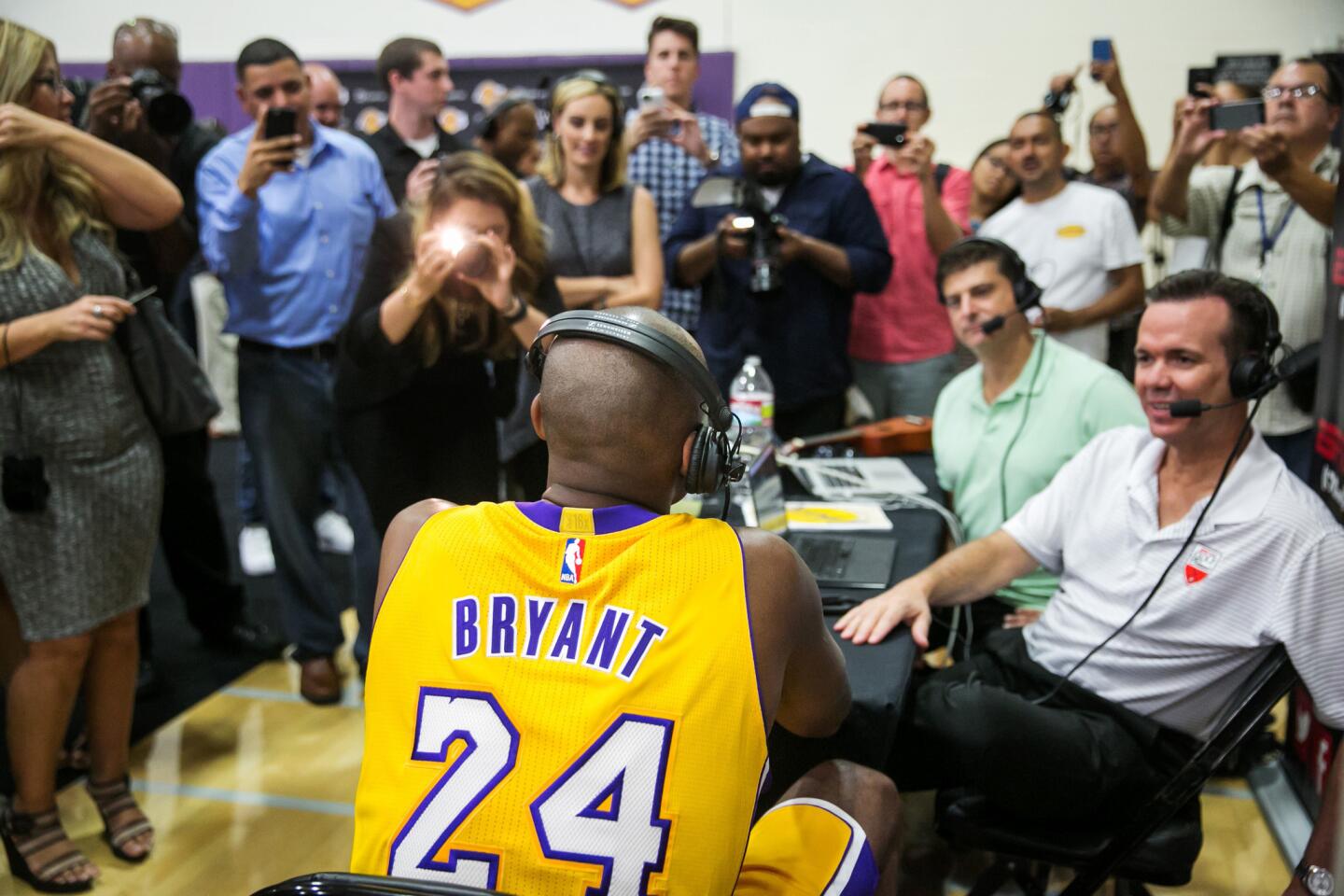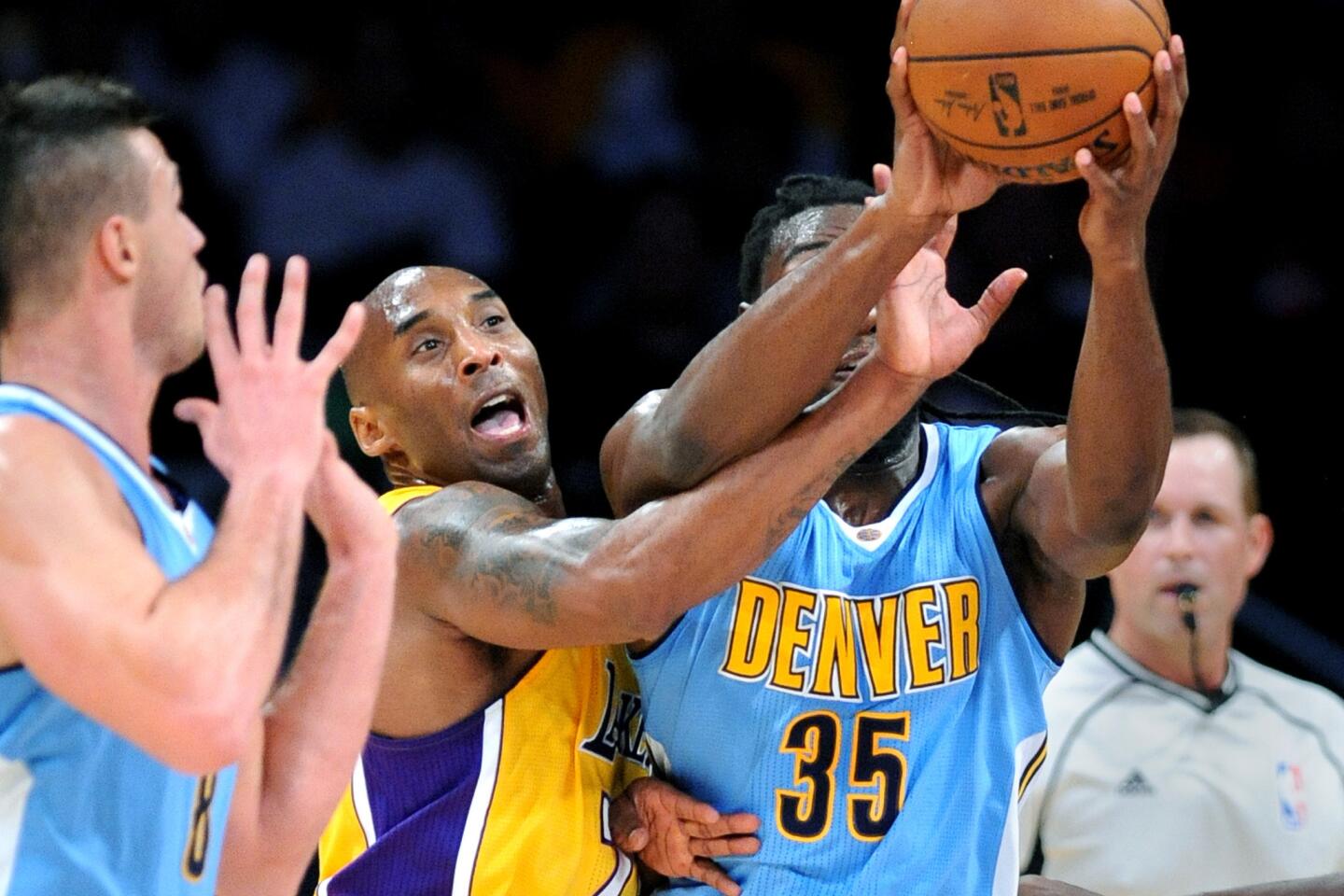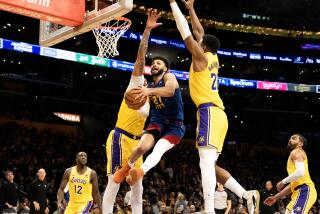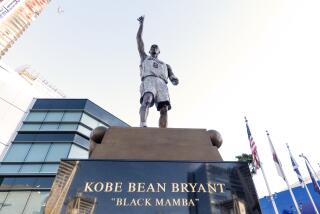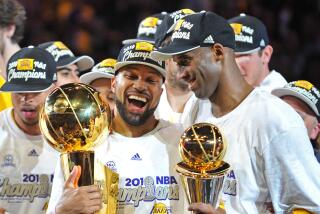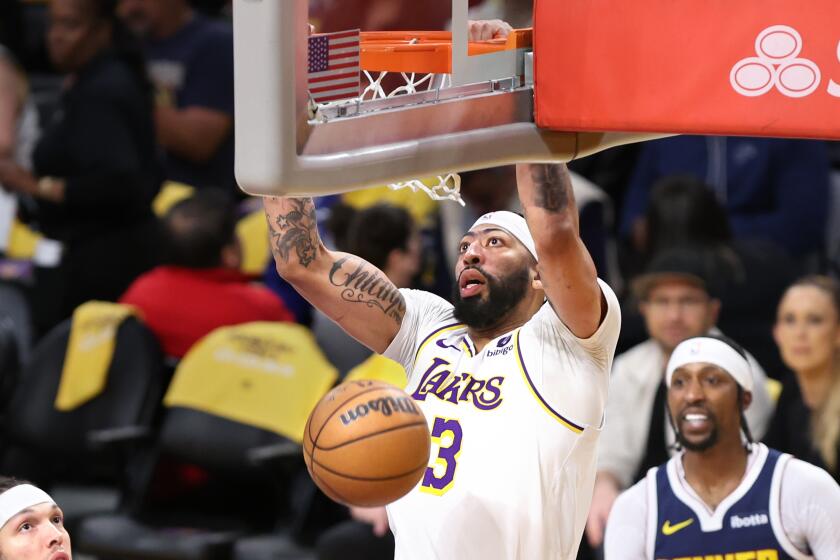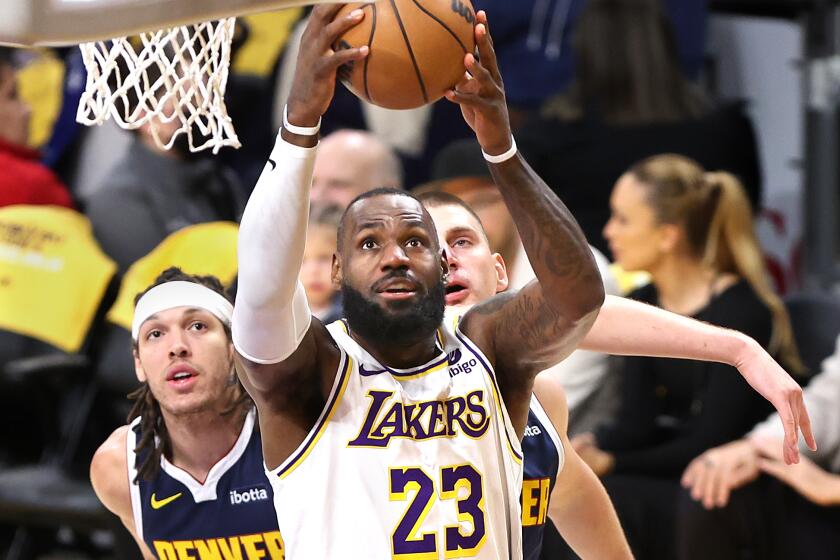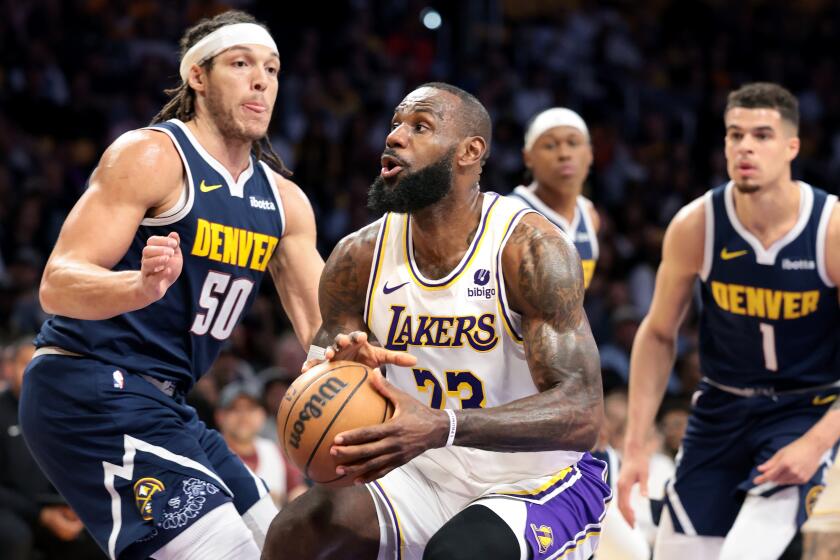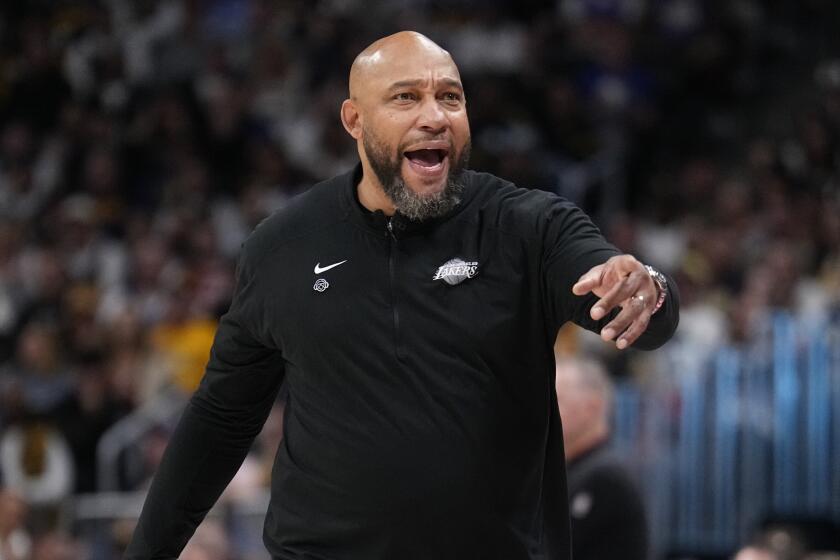The big delivery of newspapers was stacked neatly outside the hotel door.
It was October 2004, when the paper product was still more important than anything online, the assemblage of the Wall Street Journal, New York Times, Los Angeles Times, USA Today and San Diego Union-Tribune obviously for someone well-read.
The person in the suite might have skimmed over the Boston Red Sox’s miraculous comeback attempt from a 3-0 series deficit to the New York Yankees.
But Kobe Bryant liked keeping an eye on what was being written about him, belying the notion that athletes didn’t care what the media said. Bryant had no idea I was his neighbor, very coincidentally, at a resort hotel near the Lakers’ training camp in San Diego that year.
We first met that month. He was almost defensive, smoldering from an on-court divorce with Shaquille O’Neal in which Lakers fans and the media mainly blamed him. He was determined to show he didn’t need the 7-foot-1 monolith to keep appearing in the NBA Finals.
It was one of our first chats, actually.
The Lakers got off to a wobbly 3-4 start that season, the one in which Coach Rudy Tomjanovich lasted 43 games, and I started including a standard paragraph in practically every game story.
It was a template, really, and it showed the most important stats to Lakers fans after the final score: “Kobe Bryant scored xx points on xx-for-xx shooting.”
He had a problem with this, especially with his declining accuracy on what would be a bad team, and asked me about it one day after practice.
“Why do you keep writing how many shots I miss?” he said.
I told him that readers wanted to know how much of a load he was forced to carry without O’Neal — and of equal importance, how successfully he was doing it.
“So make more shots,” I added.
1/56
Kobe Bryant signs the court late into the night at the Staples Center.
(Wally Skalij / Los Angeles Times) 2/56
Kobe Bryant kisses his wife Vanessa long after his last game at the Staples Center.
(Wally Skalij / Los Angeles Times) 3/56
Kobe Bryant leaves the court for the last time as a Laker, heading to the locker room after scoring 60 points and leading the team to a 101-96 win over the Utah Jazz.
(Robert Gauthier / Los Angeles Times) 4/56
Kobe Bryant is all smiles after his final game at Staples Center Wednesday.
(Wally Skalij / Los Angeles Times) 5/56
Kobe Bryant shares a laugh with former teammate Derek Fisher on the court after scoring 60 points in his last game as a Laker at Staples Center.
(Robert Gauthier / Los Angeles Times) 6/56
Kobe Bryant greets Lamar Odom after his final game at Staples Center.
(Wally Skalij / Los Angeles Times) 7/56
Kobe Bryant kisses his wife Vanessa after his final game.
(Robert Gauthier / Los Angeles Times) 8/56
Kobe Bryant walks off the court after his final game at Staples Center.
(Christina House / For The Times) 9/56
Lakers Kobe Bryant salutes the crowd at the end of the game.
(Wally Skalij / Los Angeles Times) 10/56
Kobe Bryant waves to the crowd as he walks off the court for the last time at Staples Center. (Wally Skalij / Los Angeles Times)
11/56
Lakers Kobe Bryant pauses for a moment as confetti streams down following his last game at the Staples Center. (Wally Skalij / Los Angeles Times)
12/56
Kobe Bryant salutes the crowd at the end of his final game at Staples Center.
(Christina House / For The Times) 13/56
Kobe Bryant feels the love of the fans at Staples Center following his final game.
(Luis Sinco / Los Angeles Times) 14/56
Lakers Kobe Bryant and A.C. Green after his final game at Staples Center.
(Wally Skalij / Los Angeles Times) 15/56
Kobe Bryant thanks the crowd after his final game at Staples Center.
(Christina House / For The Times) 16/56
Kobe Bryant waves goodbye to the crowd after his final game at the Staples Center.
(Wally Skalij / Los Angeles Times) 17/56
Balloons and confetti fall after Kobe Bryant’s last game
(Robert Gauthier / Los Angeles Times) 18/56
A security guard stnds alone on the court after Kobe Bryant’s last game at the Staples Center Wednesday.
(Wally Skalij / Los Angeles Times) 19/56
Los Angeles City Hall is decorated with Lakers’ purple and gold lights for Kobe Bryant’s last game.
(Robert Lachman / Los Angeles Times) 20/56
Kobe Bryant is mobbed as he scores 60-points in his final NBA game at the Staples Center.
(Wally Skalij / Los Angeles Times) 21/56
Kobe Bryant gets a slap from comedian George Lopez after making a three-pointer in his final game.
(Wally Skalij / Los Angeles Times) 22/56
Kobe Bryant watches as the ball hits the bottom of the net during his last game as a Los Angeles Laker against the Utah Jazz.
(Robert Gauthier / Los Angeles Times) 23/56
Kobe Bryant stretches out as he makes a basket during his final game as a Laker on April 12 at Staples Center.
(Wally Skalij / Los Angeles Times) 24/56
Kobe Bryant drives late in the final minutes of the game at Staples Center.
(Wally Skalij / Los Angeles Times) 25/56
Kanye West and Jay Z greet each other before Kobe Bryant’s final game.
(Christina House / For The Times) 26/56
Kobe Bryant drives the ball in the third quarter of his final game at the Staples Center Wednesday.
(Wally Skalij / Los Angeles Times) 27/56
Kobe Bryant tries to steal the ball in his last game as a Laker at the Staples Center Wednesday, April 12.
(Wally Skalij / Los Angeles Times) 28/56
Kobe Bryant shakes hands with Shaquille O’Neal at his final game at Staples Center on April 13.
(Wally Skalij / Los Angeles Times) 29/56
The Weeknd and girlfriend Bella Hadid arrive for Kobe Bryant’s final game at Staples Center.
(Christina House / For The Times) 30/56
Kobe Bryant is stripped of the ball by Jazz guard Rodney Hood during first half action at Staples Center.
(Robert Gauthier / Los Angeles Times) 31/56
Kobe Bryant drives to the basket during the first half of his final NBA game.
(Robert Gauthier / Los Angeles Times) 32/56
Lamar Odom attends Kobe Bryant’s final game at Staples Center.
(Christina House / For The Times) 33/56
Lakers star Kobe Bryant, center, heads to the locker room after scoring 22 points in the first half of his final game on Wednesday, April 13, 2016, at Staples Center in Los Angeles.
(Luis Sinco / Los Angeles Times) 34/56
Kobe Bryant takes a shot in the first quarter of his final game at the Staples Center Wednesday.
(Wally Skalij / Los Angeles Times) 35/56
Kobe Bryant blocks a shot by Trevor Booker in his final game at Staples Center on Wednesday.
(Wally Skalij / Los Angeles Times) 36/56
Front row fans, including Jack Nicholson cheer Kobe Bryant after he hits a shot during first half action against the Jazz at Staples Center.
(Robert Gauthier / Los Angeles Times) 37/56
LOS ANGELES-CA-APRIL 13, 2016: Kobe thanks the crowd before his final game at Staples Center.
(Christina House / For the Times) 38/56
Kobe Bryant is welcomed onto the court for his farewell game at Staples Center on April 13.
(Wally Skalij / Los Angeles Times) 39/56
Kobe Bryant acknowledges the Staples Center crowd during a pregame ceremony.
(Robert Gauthier / Los Angeles Times) 40/56
Kobe Bryant with Magic Johnson before Kobe plays his last game as a Los Angeles Laker against the Utah Jazz.
(Robert Gauthier / Los Angeles Times) 41/56
Surrounded by cameras Kobe Bryant and Magic Johnson embrace before Bryant’s final game at the Staples Center Wednesday. (Wally Skalij / Los Angeles Times)
42/56
Kobe Bryant waits for introductions before his final game at the Staples Center Wednesday, April 13. (Wally Skalij / Los Angeles Times)
43/56
T-shirts await fans who attend Kobe Bryant’s final game at Staples Center.
(Christina House / For the Times) 44/56
A young girl, sporting Kobe Bryant’s original No. 8 Lakers jersey, bounces a ball on the court before the future Hall-of-Famer’s final game.
(Christina House / For the Times) 45/56
The Lakers store at Staples Center was all about Kobe Bryant and his merchandise on the day of his final NBA game.
(Christina House / For the Times) 46/56
Fans gather outside Staples Center before Kobe Bryant’s final game in a Laker uniform.
(Luis Sinco / Los Angeles Times) 47/56
Rock star “Flea” rehearses the national anthem before Kobe Bryant’s last game on April 13, 2016, as players warm-up. (Wally Skalij / Los Angeles Times)
48/56
Fans gathered outside Staples Center ahead of Kobe Bryant’s final game with the Lakers.
(Luis Sinco / Los Angeles Times) 49/56
Lakers fans gather outside Staples Center before the final game of Kobe Bryant’s career.
(Luis Sinco / Los Angeles Times) 50/56
Chick Hearn Court is packed as fans descend on Staples Cener to witness Kobe Bryant play his last game as a Los Angeles Laker against the Utah Jazz.
(Robert Gauthier / Los Angeles Times) 51/56
Lakers fans get a Kobe chant going outside Staples Center in Los Angeles before Laker great Kobe Bryant’s final game on Wednesday.
(Luis Sinco / Los Angeles Times) 52/56
Members of a group of Kobe Bryant fans who flew in from China, including Iris Hong of Beijing, right, get excited outside Staples Center for the player’s last game Wednesday.
(Christina House / For the Los Angeles Times) 53/56
Fans sign a giant card for Kobe Bryant outside Staples Center before his final game Wednesday.
(Robert Gauthier / Los Angeles Times) 54/56
Kobe Bryant fans swarm to Staples Center in Los Angeles to show their love for the Laker great at his last game Wednesday.
(Robert Gauthier / Los Angeles TImes) 55/56
Kobe Bryant footwear is on display as the Laker Girls arrive for Wednesday night’s game, the basketball star’s last.
(Robert Gauthier / Los Angeles TImes) 56/56
Fans sign a giant card for Kobe Bryant outside Staples Center in Los Angeles before his final game Wednesday.
(Robert Gauthier / Los Angeles TImes) He was testing me, the new Lakers beat reporter for The Times, just like he would try to expose a rookie on the court.
Maybe I survived his probe because our working relationship was strong the first few years I covered the Lakers.
We talked a lot, actually, especially during his unhappy days in the spring of 2007.
The Lakers hadn’t won a playoff series in three years without O’Neal and were recently eliminated without fanfare by the Phoenix Suns when I called him. He told me he was “waiting for them to make some changes,” and by “them” he meant the Lakers’ front office.
The next day, The Times essentially came out with a special section detailing his unhappiness — my story and two others by Times columnists.
Within a few days, his discontent would deepen. On a Wednesday, he demanded to be traded on Stephen A. Smith’s radio show, saying he’d rather “go play on Pluto” than return to the Lakers.
A few hours later, he appeared to recant with an apologetic, semi-soothing Vic “The Brick” Jacobs on local radio. Then he got on the phone with me and said that, actually, he still wanted to be traded.
Wild days indeed.
He turned cooler toward the media that fall, perhaps partly blaming The Times for its critical coverage of his trade demand. I found myself “outside the circle of trust,” as Bryant liked to call it, a Robert De Niro reference from “Meet the Parents.”
I’m pretty sure I never reentered it. It would take a while to count the number of scowls I’ve received from Bryant over the years, though, interestingly, he glowingly took credit for the Lakers’ February 2008 acquisition of Pau Gasol, saying, “It takes pressure sometimes to make a diamond.”
Topics that particularly annoyed him included his often unpredictable shot selection, his occasional drifts toward on-court inaccuracy (a lot less back then compared with the career-low he shot this season) and, of course, any Lakers playoff failures.
He could also be incredibly charming, even helpful, if in the right mood for his almost-daily interview session with reporters. He liked it when national reporters, especially those inside the circle of trust, appeared at Lakers games or practices.
It was funny when I broke the story about Bryant winning the 2007-2008 most valuable player award a few days before the official announcement.
When Bryant was emailed the story I posted online, a team dinner at a Melrose Ave. Italian eatery erupted in joy. The next morning, with the news still unconfirmed by the NBA, Bryant said the media usually got things wrong but hopefully got this one right. They did.
It was the only time the eternally gifted player won the MVP award.
During the Gasol era, getting a private interview with Bryant was like sitting down with a U.S. president. It rarely happened.
1/97
Lakers star Kobe Bryant dunks against the Utah Jazz on Jan. 25, 2013, at Staples Center. Arguably the greatest player of his generation, Bryant has played a leading role in helping the Lakers carry their winning tradition into the 21st century. (Wally Skalij / Los Angeles Times)
2/97
Lakers guard Kobe Bryant holds up his jersey during his introductory news conference on July 12, 1996. (Andrew Scholer / Los Angeles Times)
3/97
Laker rookie Kobe Bryant was a seasoned veteran at getting shot by cameras for advertisements before he took his first shot at training camp. (Ken Hively / Los Angeles Times)
4/97
Lakers guard Kobe Bryant puts up a shot during a summer league game against the Detroit Pistons in Long Beach on July 13, 1996. (Michael Caulfield / Associated Press)
5/97
Lakers rookie Kobe Bryant, 18, warms up before a game at the Forum on Jan. 30, 1997. (Vince Compagnone / Los Angeles Times)
6/97
Lakers guard Kobe Bryant saves the ball from going out of bounds during a game at the Forum on Dec. 29, 1997. (Lawrence K. Ho / Los Angeles Times)
7/97
Lakers guard Kobe Bryant claps while walking off the court during a timeout against the Minnesota Timberwolves on Nov. 24, 1997, at the Forum. (Vince Compagnone / Los Angeles Times)
8/97
Chicago Bulls great Michael Jordan, left, guards Lakers star Kobe Bryant during the 1998 NBA All-Star game. (Mark Lennihan / Associated Press)
9/97
Kobe Bryant is dejected after losing the ball late in the second half of Game 3 of the 1999 Western Conference semifinals against the San Antonio Spurs in the playoffs at the Forum. The Lakers lost, 103-91, giving the Spurs a 3-0 advantage in the series. The Spurs went on to win the series 4-0. (Lori Shepler / Los Angeles Times)
10/97
Lakers star Kobe Bryant speaks with reporters at the team’s practice facility in El Segundo on May 2, 2000. (Jack Smith / Associated Press)
11/97
Lakers stars Kobe Bryant, left, and Shaquille O’Neal hold the championship trophies after winning Game 6 of the 2000 NBA Finals against the Indiana Pacers. (Paul Morse / Los Angeles Times)
12/97
Lakers star Kobe Bryant jumps over a row of fans after saving the ball from going out of bounds during a win over the Houston Rockets on Dec. 20, 2001. (Pat Sullivan / Associated Press)
13/97
Lakers star Kobe Bryant, center, is all smiles while standing next to teammates (from left) Derek Fisher, Rick Fox and Shaquille O’Neal during Game 1 of the 2001 Western Conference finals. Bryant scored 45 points in the Lakers’ 104-90 win. (Gina Ferazzi / Los Angeles Times)
14/97
Lakers stars Kobe Bryant, left, and Shaquille O’Neal congratulate each other during the Lakers’ win over the Portland Trail Blazers in Game 1 of the 2002 Western Conference quarterfinals at Staples Center. (Wally Skalij / Los Angeles Times)
15/97
Lakers star Kobe Bryant puts up a shot during a win over the Chicago Bulls at Staples Center on Nov. 22, 2002. (Gina Ferazzi / Los Angeles Times)
16/97
Lakers star Kobe Bryant, right, steals the ball away from Portland Trail Blazers guard Jeff McInnis during a game at Staples Center on Nov. 3, 2002. (Lori Shepler / Los Angeles Times)
17/97
Lakers star Kobe Bryant puts up a shot during Game 1 of the 2002 NBA Western Conference finals against the Sacramento Kings. (Wally Skalij / Los Angeles Times)
18/97
Lakers star Kobe Bryant, right center, congratulates teammate Robert Horry on his winning shot against the Sacramento Kings in Game 4 of the Western Conference finals at Staples Center on May 26, 2002. (Wally Skalij / Los Angeles Times)
19/97
Lakers teammates (from left) Kobe Bryant, Lindsey Hunter and Shaquille O’Neal celebrate the team’s 2002 NBA Finals win over the New Jersey Nets. (Alex Gallardo / Los Angeles Times)
20/97
Lakers star Kobe Bryant celebrates in the locker room after the team’s 2002 NBA Championship win over the New Jersey Nets. (Wally Skalij / Los Angeles Times)
21/97
Lakers star Kobe Bryant looks at the Larry O’Brien trophy after the Lakers’ NBA championship victory over the New Jersey Nets on June 12, 2002. (Wally Skalij / Los Angeles Times)
22/97
Lakers teammates Mark Madsen, left, and Kobe Bryant celebrate the team’s 2002 NBA title during a celebration in downtown Los Angeles on June 14, 2002. (Anacleto Rapping / Los Angeles Times)
23/97
Lakers stars Kobe Bryant, left, and Shaquille O’Neal show off their 2002 NBA championship rings before a game against the San Antonio Spurs at Staples Center on Oct. 29, 2002. (Andrew D. Bernstein / Getty Images)
24/97
Lakers star Kobe Bryant, left, drives on Houston Rockets small forward Juaquin Hawkins during a game at Staples Center on Nov. 17, 2002. (Kevin P. Casey / Los Angeles Times)
25/97
Kobe Bryant watches as one of his three-pointers falls against the Wizards at Staples in 2001. (Lori Shepler / Los Angeles Times)
26/97
Lakers star Kobe Bryant, center, is double-teamed by Cleveland Cavaliers teammates Eric Snow, left, and Flip Murray during a game on March 19, 2006. (Mark Duncan / Associated Press)
27/97
Lakers guard Kobe Bryant walks past the courtroom where his pretrial motion hearing for sexual assault charges took place in Eagle, Colo., on March 25, 2004. In July 2003, Bryant was arrested after a woman claimed he raped her at a Colorado hotel. Prosecutors later dropped the charges. (Chris Schneider / EPA)
28/97
Kobe Bryant and his wife, Vanessa, take part in a news conference at Staples Center in July 2003 while addressing the sexual assault charges brought against Kobe. The charges were later dropped. (Lori Shepler / Los Angeles Times)
29/97
Lakers star Kobe Bryant, right, speaks with coach Phil Jackson in 2010. (Wally Skalij / Los Angeles Times)
30/97
Lakers star Kobe Bryant dunks against the Sacramento Kings at Staples Center on April 10, 2003. (Alex Gallardo / Los Angeles Times)
31/97
Lakers star Kobe Bryant tries to hide his emotions after the team’s season-ending loss to the San Antonio Spurs in Game 6 of the 2003 NBA Western Conference semifinals. (Gina Ferazzi / Los Angeles Times)
32/97
Lakers players (from left) Karl Malone, Kobe Bryant, Gary Payton and Shaquille O’Neal make their first game appearance together during a preseason game against the Clippers in Anaheim on Oct. 23, 2003. (Allen J. Schaben / Los Angeles Times)
33/97
Lakers star Kobe Bryant, left, is congratulated by teammate Derek Fisher after the Lakers’ victory over the Minnesota Timberwolves in Game 4 of the 2004 Western Conference semifinals at Staples Center. (Wally Skalij / Los Angeles Times)
34/97
Lakers teammates (from left) Karl Malone, Kobe Bryant and Gary Payton walk off the court after a win over the Minnesota Timberwolves in Game 4 of the 2004 Western Conference finals at Staples Center. (Wally Skalij / Los Angeles Times)
35/97
Lakers teammates Kobe Bryant, left, and Shaquille O’Neal sit on the bench during Game 6 of the 2004 Western Conference finals against the Minnesota Timberwolves. (Wally Skalij / Los Angeles Times)
36/97
Lakers star Kobe Bryant wipes sweat from his face during the team’s season-ending loss to the Detroit Pistons in Game 5 of the 2004 NBA Finals. (Wally Skalij / Los Angeles Times)
37/97
Lakers star Kobe Bryant writhes in pain after injuring his right ankle during a game against the Cleveland Cavaliers at Staples Center on Jan. 13, 2005. (Anne Cusack / Los Angeles Times)
38/97
Lakers star Kobe Bryant, left, and William “Smush” Parker talk during a preseason game against the Utah Jazz in Anaheim on Oct. 25, 2005. (Lori Shepler / Los Angeles Times)
39/97
Lakers star Kobe Bryant reacts after hitting the winning shot against the Phoenix Suns in Game 4 of the 2006 Western Conference quarterfinals at Staples Center. (Wally Skalij / Los Angeles Times)
40/97
Lakers star Kobe Bryant reacts after being fouled by the Houston Rockets’ Ryan Bowen (not pictured) in the first quarter of a game at Staples Center on Dec. 18, 2005. (Robert Lachman / Los Angeles Times)
41/97
Kobe Bryant, left, whispers to coach Phil Jackson in between being photographed during Lakers’ media day on Oct. 2, 2006. (Mel Melcon / Los Angeles Times)
42/97
Kobe Bryant saves the ball from going out of bounds against the Memphis Grizzlies at Staples Center on Nov. 12, 2006. (Richard Hartog / Los Angeles Times)
43/97
Lakers forward Lamar Odom, left, and guard Kobe Bryant talk on the bench during a timeout against the New Jersey Nets on Nov. 26, 2006. (Wally Skalij / Los Angeles Times)
44/97
Lakers star Kobe Bryant listens to the national anthem before a game against the New Jersey Nets on Nov. 26, 2006. (Wally Skalij / Los Angeles Times)
45/97
Lakers star Kobe Bryant shoots over Miami Heat guard Dwyane Wade to score the winning basket with less than a second remaining in a 108-107 victory at Staples Center on Dec. 4, 2009. (Gina Ferazzi / Los Angeles Times)
46/97
Lakers star Kobe Bryant holds his daughter, Natalia, while greeting team owner Jerry Buss before a news conference at the Sheraton Gateway Hotel in Los Angeles announcing Bryant as the 2008 NBA MVP. (Lori Shepler / Los Angeles Times)
47/97
Lakers star Kobe Bryant walks off the court after losing to the Phoenix Suns in Game 1 of the 2007 NBA Western Conference quarterfinals. (Wally Skalij / Los Angeles Times)
48/97
Lakers star Kobe Bryant walks off the court after a championship loss to the Boston Celtics in Game 6 of the 2009 NBA Finals. (Robert Gauthier / Los Angeles Times)
49/97
Lakers star Kobe Bryant celebrates after hitting a late three-pointer in a win over the Utah Jazz in Game 2 of the 2009 Western Conference quarterfinals. (Robert Gauthier / Los Angeles Times)
50/97
Phoenix Suns coach Alvin Gentry, right, calls a timeout immediately after Kobe Bryant hits a three-pointer during Game 2 of the 2010 Western Conference finals. (Robert Gauthier / Los Angeles Times)
51/97
Lakers star Kobe Bryant reacts immediately after a slam dunk against the New York Knicks on Feb. 2, 2009, at Madison Square Garden. Bryant scored 61 points in the win. (Kathy Willens / Associated Press)
52/97
Lakers teammates Kobe Bryant and Pau Gasol, right, celebrate in the closing seconds of the team’s NBA championship win over the Orlando Magic in Game 5 of the 2009 NBA Finals. (Robert Gauthier / Los Angeles Times)
53/97
Kobe Bryant celebrates after winning his fourth NBA title with a win over the Orlando Magic in Game 5 of the 2009 NBA Finals. (Wally Skalij / Los Angeles Times)
54/97
Lakers guard Kobe Bryant holds the Larry O’Brien Trophy while celebrating his fourth championship with the team following a win over the Orlando Magic in Game 5 of the 2009 NBA Finals. (Robert Gauthier / Los Angeles Times)
55/97
Lakers teammates Derek Fisher, left, and Kobe Bryant, center, give President Barack Obama a personalized team jersey while visiting the White House on Jan. 25, 2010. (Charles Dharapak / Associated Press)
56/97
Lakers forward Ron Artest, center, is congratulated by Kobe Bryant, left, and the rest of his teammates after hitting the winning shot against the Phoenix Suns in Game 5 of the 2010 Western Conference finals. (Wally Skalij / Associated Press)
57/97
Lakers star Kobe Bryant, left, and Boston Celtics guard Tony Allen battle for a loose ball during Game 6 of the 2010 NBA Finals at Staples Center on June 15, 2010. (Wally Skalij / Los Angeles Times)
58/97
Lakers star Kobe Bryant celebrates after winning his fifth NBA title following a victory over the Boston Celtics in Game 7 of the 2010 NBA Finals. (Robert Gauthier / Los Angeles Times)
59/97
Kobe Bryant celebrates after the Lakers’ victory over the Boston Celtics in Game 7 of the 2010 NBA Finals at Staples Center on June 17, 2010. (Wally Skalij / Los Angeles Times)
60/97
Kobe Bryant gestures while celebrating his fifth championship with the Lakers during a team parade in Los Angeles on June 21, 2010. (Christina House / For the Times)
61/97
Lakers star Kobe Bryant celebrates his fifth NBA title during the team’s championship parade on June 21, 2010. (Christina House / For the Times)
62/97
Kobe Bryant kisses his championship ring during a ceremony honoring the Lakers’ 2010 NBA title before the team’s season opener on Oct. 26, 2010. (Gary Friedman / Los Angeles Times)
63/97
Lamar Odom and Kobe Bryant share a laugh before a game against the Minnesota Timberwolves at Staples Center on Nov. 9, 2010.
(Luis Sinco / Los Angeles Times) 64/97
Kobe Bryant, left, exchanges words with LeBron James during a Christmas Day game in 2010. (Wally Skalij / Los Angeles Times)
65/97
Kobe Bryant walks behind Dallas Mavericks standout Dirk Nowitzki during Game 3 of the 2011 Western Conference semifinals. (Wally Skalij / Los Angeles Times)
66/97
Lakers star Kobe Bryant walks off the court after the team’s season-ending loss to the Dallas Mavericks in Game 4 of the Western Conference semifinals on May 8, 2011. (Wally Skalij / Los Angeles Times)
67/97
Lakers star Kobe Bryant reflects on the 2010-11 season as he answers questions from reporters at the team’s practice facility in El Segundo on May 11, 2011. (Allen J. Schaben / Los Angeles Times)
68/97
Lakers star Kobe Bryant participates in a training session for South Korean fans during a promotional tour in Seoul on July 14, 2011. (Chung Sung-Jun / Getty Images)
69/97
Kobe Bryant drives to the basket during an exhibition game in the Philippines on July 24, 2011. (Noel Celis / AFP/Getty Images)
70/97
Lakers guard Kobe Bryant gets a massage from team physical therapist Julie Seto during a game against the Minnesota Timberwolves on Feb. 29, 2012. (Allen J. Schaben / Los Angeles Times)
71/97
Lakers star Kobe Bryant, right, greets Oklahoma City Thunder standout Kevin Durant before walking off the court after a season-ending loss in Game 5 of the 2012 Western Conference semifinals. (Wally Skalij / Los Angeles Times)
72/97
Lakers teammates (from left) Pau Gasol, Kobe Bryant and Dwight Howard celebrate in the closing moments of their 119-108 victory over the Houston Rockets on Nov. 18, 2012. (Luis Sinco / Los Angeles Times)
73/97
Lakers guard Kobe Bryant, right, puts up a shot over Portland Trail Blazers forward Nicolas Batum during a game at Staples Center on Feb. 22, 2013. (Mark J. Terrill / Associated Press)
74/97
Lakers star Kobe Bryant shoots over Toronto Raptors forward Rudy Gay during the Lakers’ 118-116 overtime win at Staples Center on March 8, 2013. (Reed Saxon / Associated Press)
75/97
Lakers star Kobe Bryant looks on during a game against the New Orleans Hornets at Staples Center on Jan. 29, 2013. (Wally Skalij / Los Angeles Times)
76/97
Lakers guard Kobe Bryant, right, protects the ball from Sacramento Kings forward John Salmons during the Lakers’ 103-98 win on March 30, 2013. (Rich Pedroncelli / Associated Press)
77/97
Kobe Bryant rolls on the floor in pain after injuring suffering a torn Achilles tendon during a game against the Sacramento Kings on April 12, 2013. Bryant did not return from the injury until December 2013. (Robert Gauthier / Los Angeles Times)
78/97
Lakers star Kobe Bryant limps off the court in front of teammate Metta World Peace after suffering an Achilles tendon injury on April 12, 2013, against the Golden State Warriors. (Robert Gauthier / Los Angeles Times)
79/97
Kobe Bryant sits on the bench before being introduced against the Phoenix Suns at Staples Center on Dec. 10, 2013. It was Bryant’s first game back since tearing his Achilles tendon on April 12, 2013. (Gina Ferazzi / Los Angeles Times)
80/97
Lakers guard Kobe Bryant grabs a rebound against the Toronto Raptors at Staples Center on Dec. 8, 2013. (Harry How / Getty Images)
81/97
Lakers star Kobe Bryant puts up a shot against the Phoenix Suns at Staples Center on Dec. 10, 2013. (Gina Ferazzi / Los Angeles Times)
82/97
Kobe Bryant, sidelined with a torn Achilles tendon injury, sits next to teammate Jodie Meeks during a Lakers’ loss to the Clippers at Staples Center on Jan. 10, 2014. (Rick Loomis / Los Angeles Times)
83/97
Kobe Bryant walks down the court during the Lakers’ 110-91 loss to the Pacers on Dec. 14, 2014, at Bankers Life Fieldhouse in Indianapolis. (Andy Lyons / Getty Images)
84/97
Kobe Bryant drives on Memphis Grizzlies guard Quincy Pondexter on Nov. 26, 2014. (Luis Sinco / Los Angeles Times)
85/97
Kobe Bryant drives to the basket during a 110-91 loss to the Indiana Pacers on Dec. 15, 2014. (Andy Lyons / Getty Images)
86/97
Lakers star Kobe Bryant, left, speaks with Coach Byron Scott during a game against the San Antonio Spurs last December.
(Eric Gay / Associated Press) 87/97
Lakers star Kobe Bryant dribbles the ball during the first half against the Indiana Pacers on Dec. 15, 2014. (Andy Lyons / Getty Images)
88/97
Lakers guard Kobe Bryant smiles during the fourth quarter of a 111-103 win over the Denver Nuggets on Dec. 30, 2014. (David Zalubowski / Associated Press)
89/97
Lakers star Kobe Bryant dunks during a game against Indiana Pacers at Staples Center on Jan. 4. (Mark J. Terrill / Associated Press)
90/97
Lakers star Kobe Bryant looks on during the closing moments of a 111-95 loss to the Washington Wizards on Dec. 3, 2014.
(Rob Carr / Getty Images) 91/97
Lakers star Kobe Bryant drives to the basket past Miami Heat guard Mario Chalmers during a game at Staples Center on Jan. 13, 2015.
(Luis Sinco / Los Angeles Times) 92/97
Lakers star Kobe Bryant, left, poses for photos with FC Barcelona captain Andrés Iniesta Luján before a training session at the StubHub Stadium in Carson on July 20, 2015.
(Mark Ralston / AFP/Getty Images) 93/97
Kobe Bryant poses for a photo at the Beverly Hills Hilton on July 18, 2014. Bryant was limited to 35 games during the 2014-15 season because of injury.
(Genaro Molina / Los Angeles Times) 94/97
Lakers guard Kobe Bryant fields questions from reporters surrounding him during the Lakers’ media day in El Segundo.
(Marcus Yam / Los Angeles Times) 95/97
Lakers guard Kobe Bryant fields questions from television reporters during the Lakers’ media day in El Segundo.
(Marcus Yam / Los Angeles Times) 96/97
Lakers guard Kobe Bryant is surrounded by reporters while doing a radio interview during the Lakers’ media day in El Segundo.
(Marcus Yam / Los Angeles Times) 97/97
Kobe Bryant tries to steal the ball from Nuggets forward Kenneth Faried during a game at Staples Center on Nov. 3.
(Wally Skalij / Los Angeles Times) It didn’t help that Bryant at best warily regarded The Times. In his eyes, I was the day-to-day annoyance standing there asking why he kept missing so many shots. Or why the Lakers lost to Charlotte. Or worse, Boston.
Times columnist Bill Plaschke, along with former columnists Mark Heisler and T.J. Simers, also had plenty of stops and starts with Bryant.
He finally started dropping his “Media = Enemy” mind-set last season. My first inkling of it happened at another hotel on the road, when we were both unexpectedly on the same floor in Memphis.
(I rarely stay where the Lakers do because my boss would not be happy with a litany of Ritz-Carlton and Four Seasons receipts. Neither hotel is in Memphis and other small NBA towns, increasing the likelihood I’m occasionally at the same hotel as the team.)
Bryant seemed surprised when he and I boarded an elevator together a couple of hours before the Lakers played the Grizzlies. He recovered quickly and started asking about my daily routine — how often I filed stories, tweeted to followers, etc. He was already gathering information for his post-basketball career, which he hoped would include a website launch akin to Derek Jeter’s theplayerstribune.com, of which Bryant was an original investor.
Along those lines, imagine my surprise last season when Bryant didn’t glare at a reporter who asked whether his career was headed the way of Michael Jordan’s — slow in the beginning, plenty of championships in the middle and rough at the end for team and player.
Bryant weighed the question, then said it was fair because it was “reachable content.” He almost sounded like an editor.
Last November, I figured he probably wouldn’t find a lengthy Times story I co-wrote with Broderick Turner to be under the same “reachable” category.
In more than 1,600 words, we detailed Bryant’s sharply declining game since he sustained a torn Achilles’ tendon at the end of the 2012-13 season. He was shooting a jarringly low 31.1% one month into this season, putting him dead last among 122 players who qualified for NBA stat-keeping with enough attempts. He was an equally alarming 19.5% from three-point range at the time.
The story included quotes from Charles Barkley and Shaquille O’Neal, each of whom said it was time to call it a career.
Two days after it appeared, however, Bryant playfully tapped me on the shoulder before a game in Portland. That night, after one of many Lakers losses, he espoused about the toll of two decades of the NBA on the human body.
He announced his retirement intentions the following day.
Since that Nov. 29 evening, Bryant has changed his attitude with the media. In the same way he routinely hugs opponents after games, he no longer views reporters as adversaries.
Bryant hasn’t exactly filled his contractual obligations to meet with reporters before every game but has been humorous and insightful when he does talk.
It led me to think on many occasions, “Where was this side of Bryant all the other years I covered him?”
I’ll never know. Only he does.
Follow Mike Bresnahan on Twitter: @Mike_Bresnahan
Join the conversation on Facebook >>
ALSO
Every shot Kobe Bryant ever took. All 30,699 of them
Lakers’ win transforms Kobe Bryant’s send-off from scripted to spectacular
Kobe Bryant beat the Golden State Warriors — on Twitter at least
Jerry West didn’t need much time to make up his mind about Kobe Bryant
